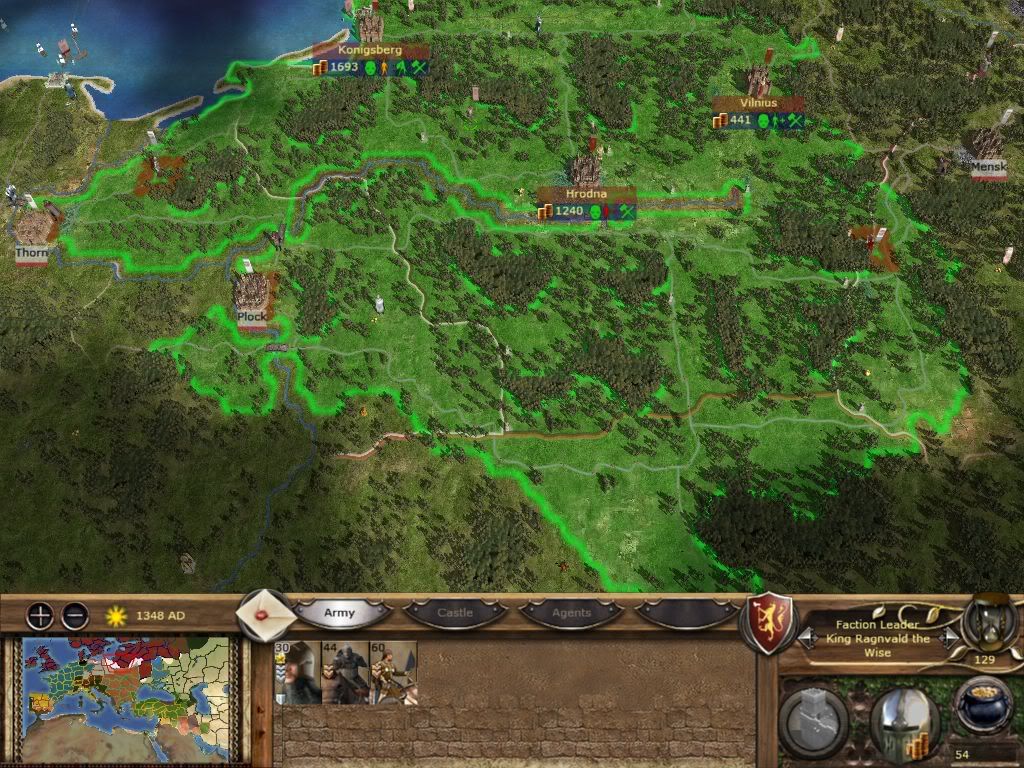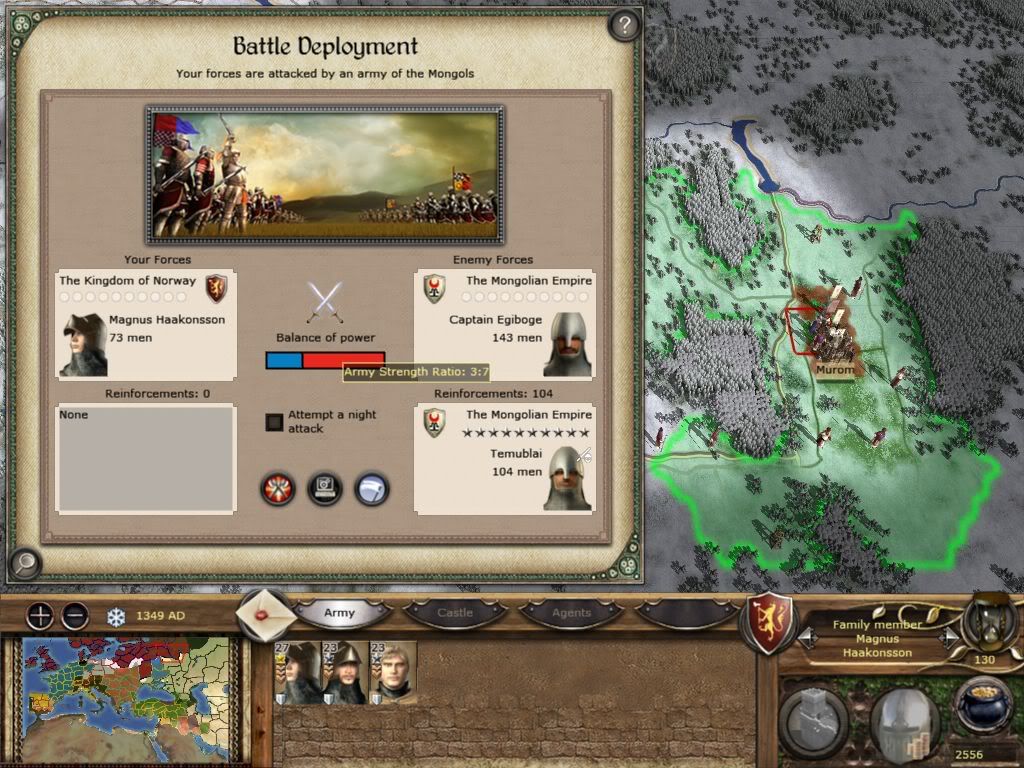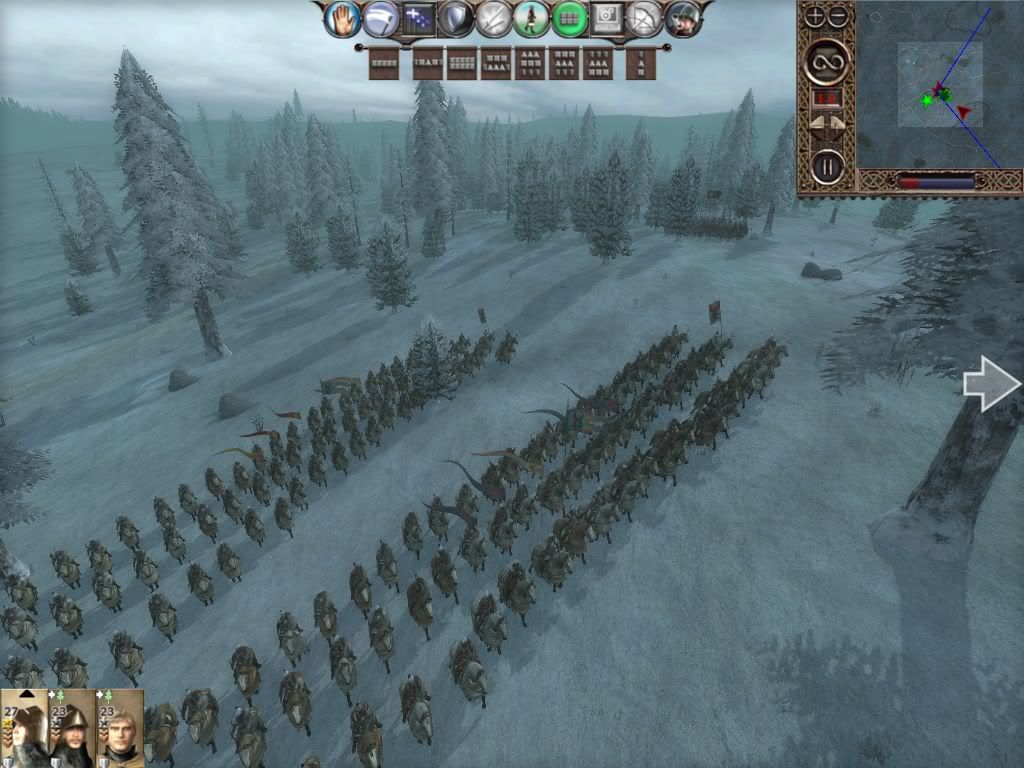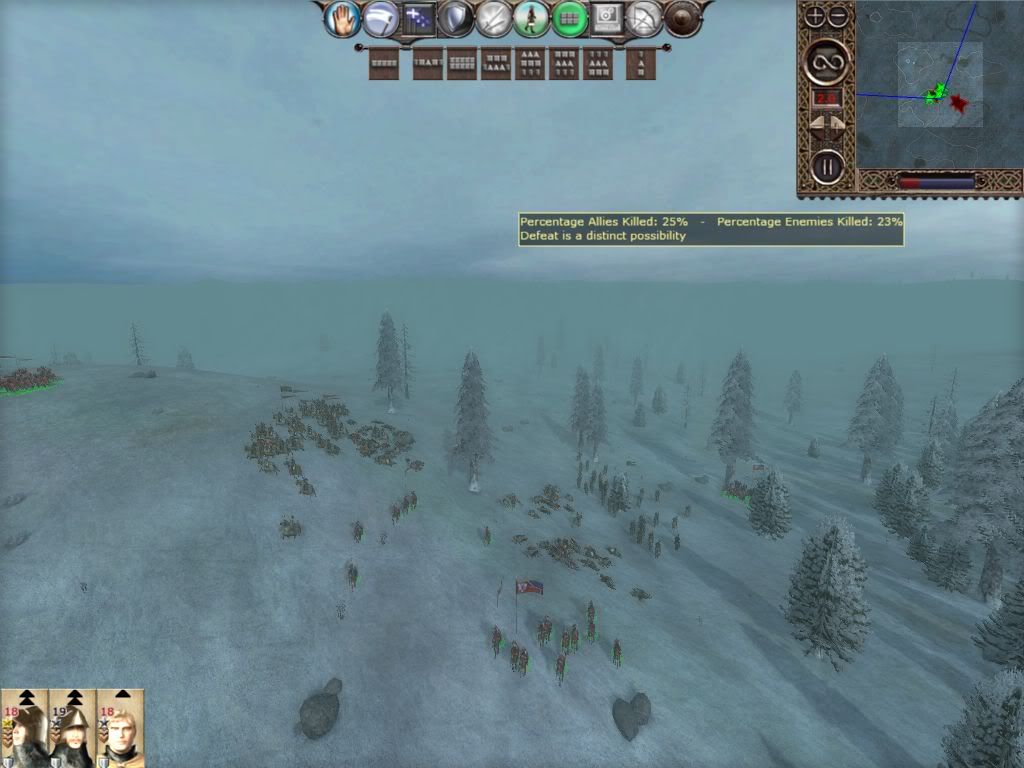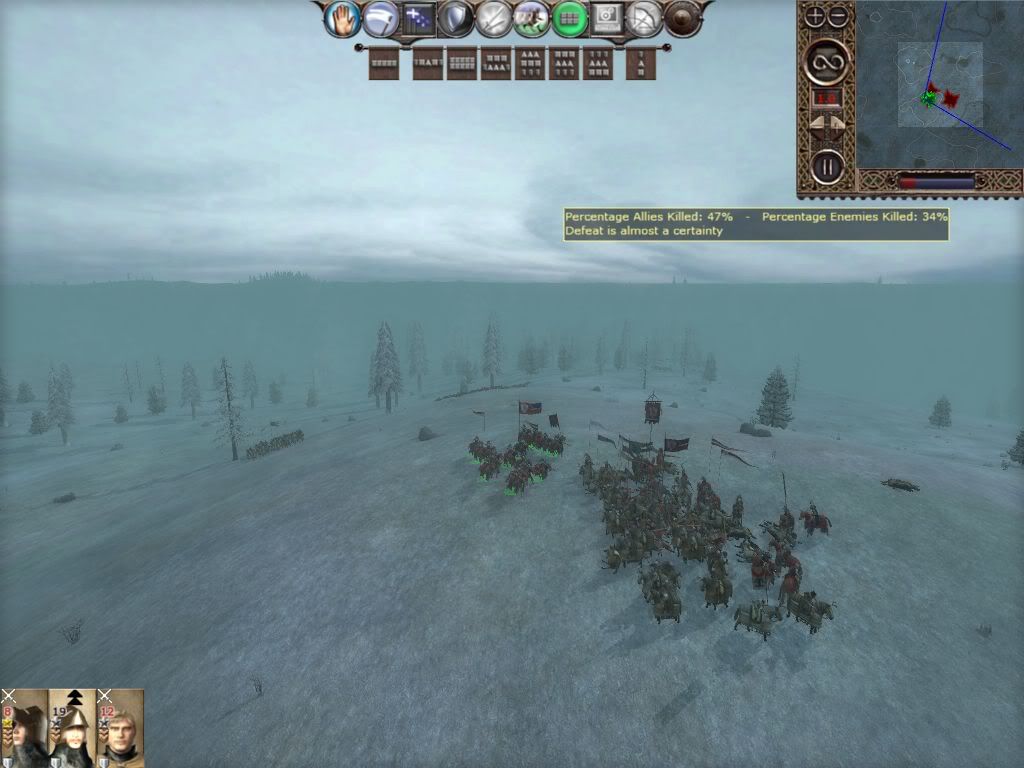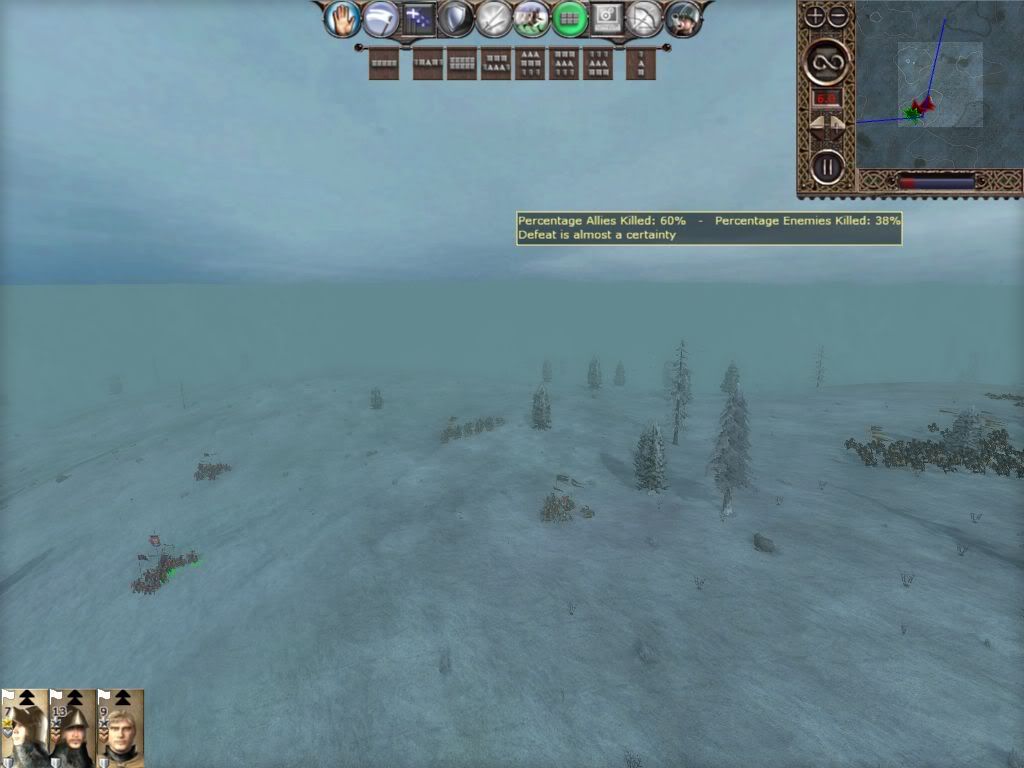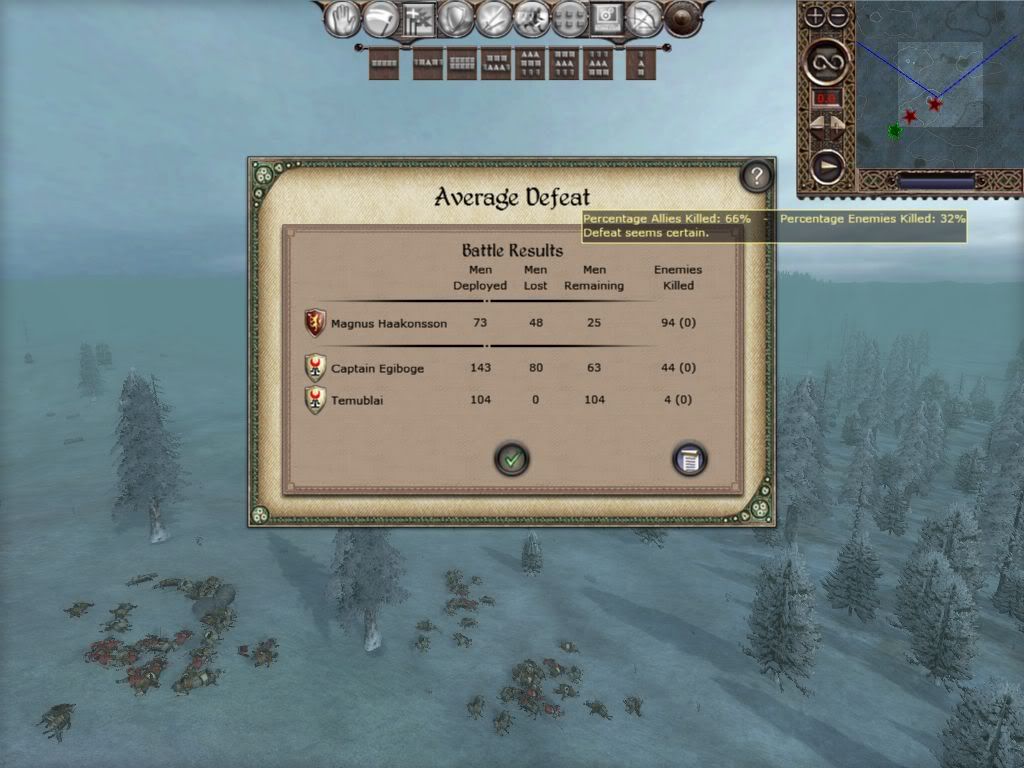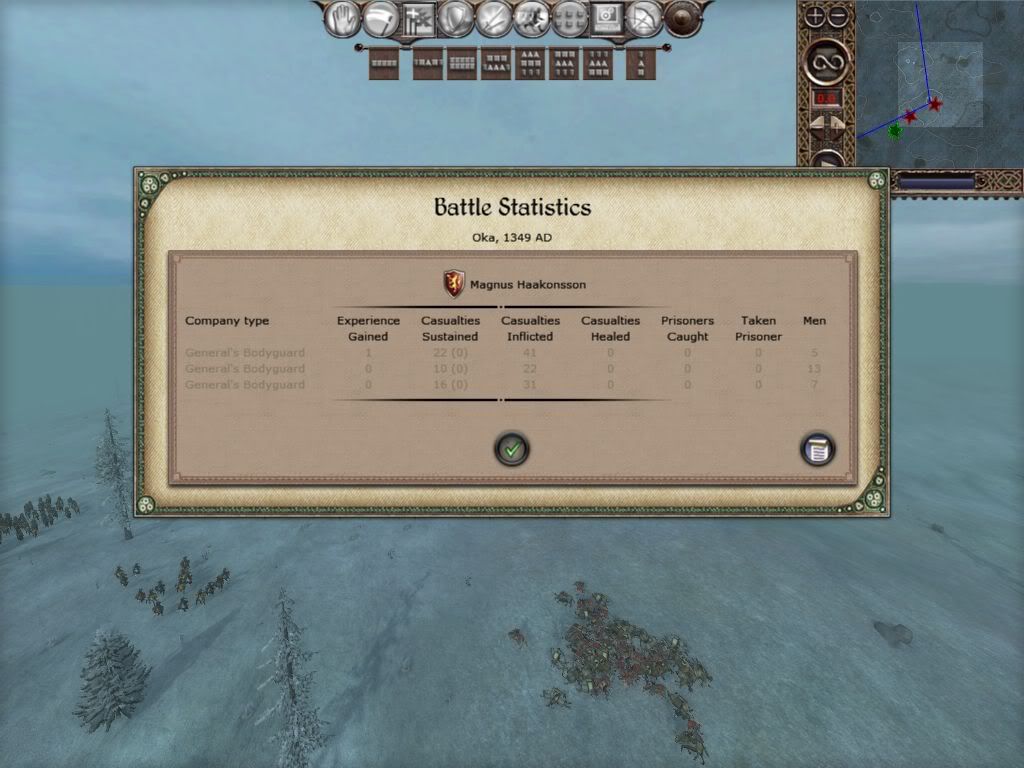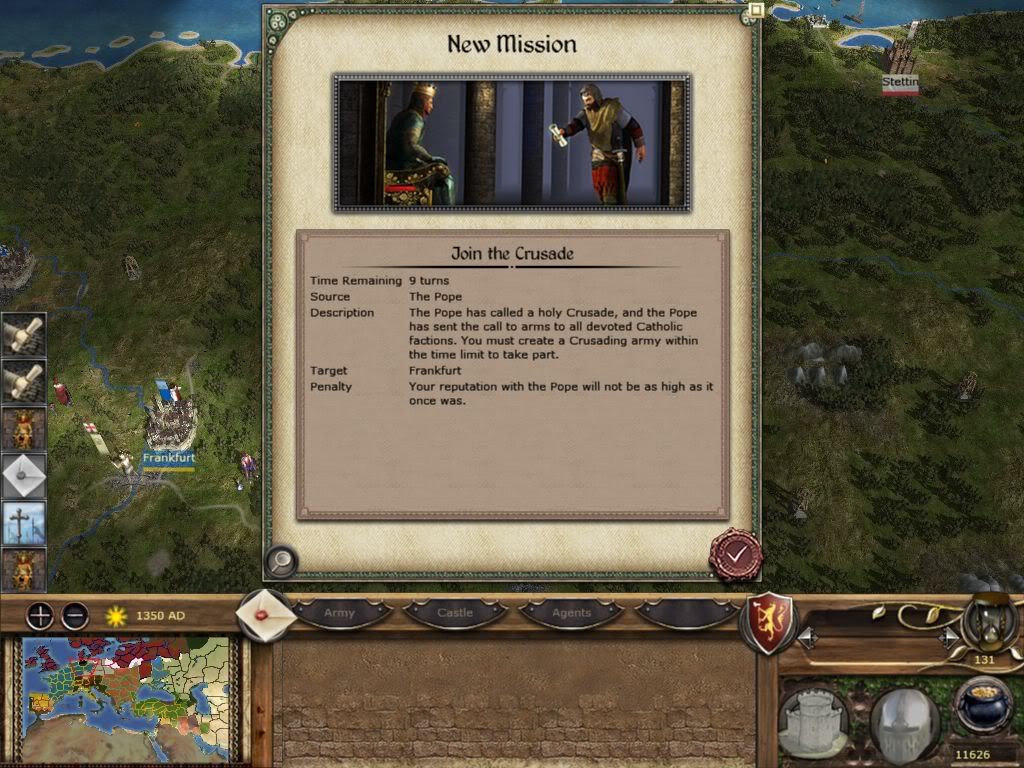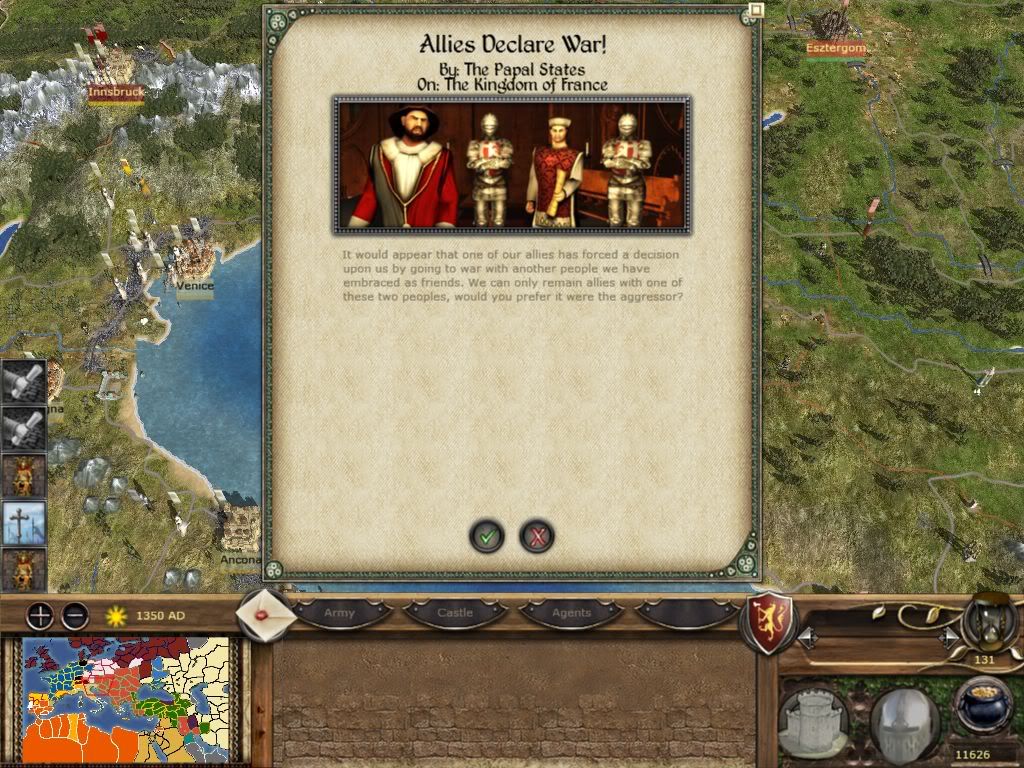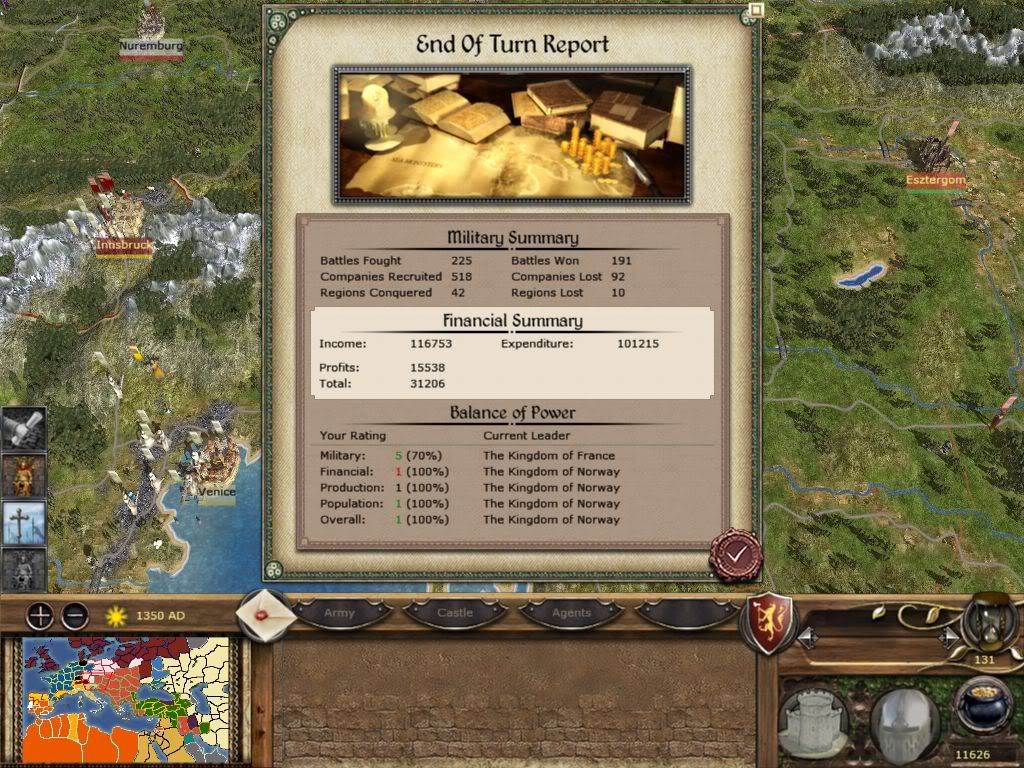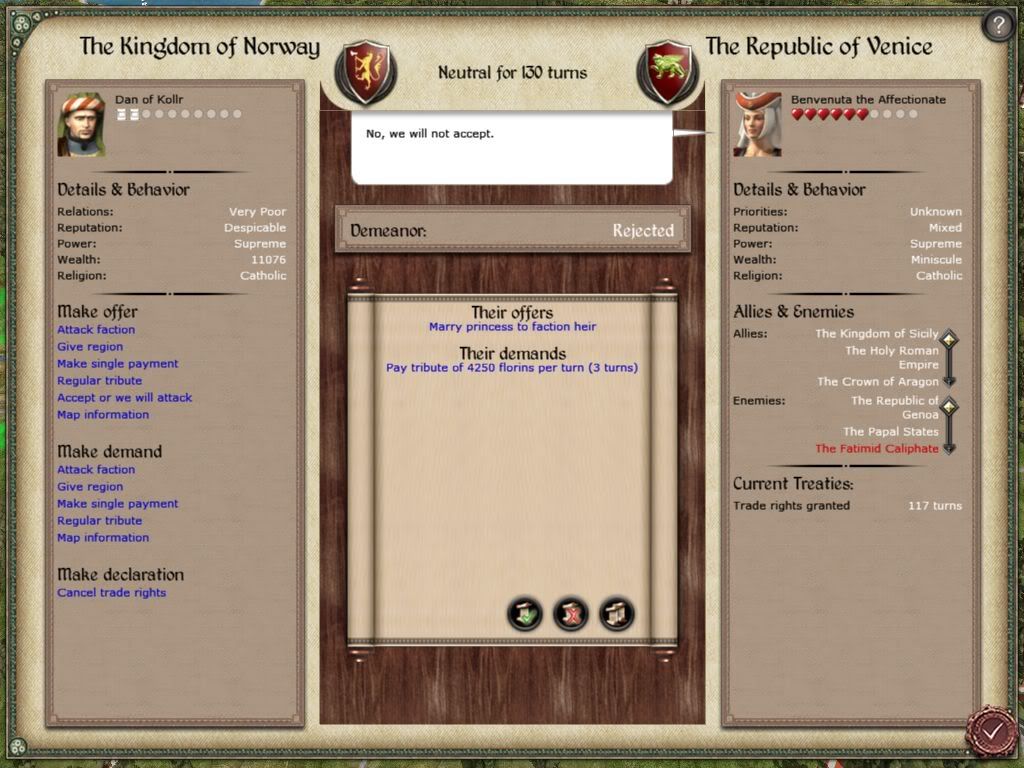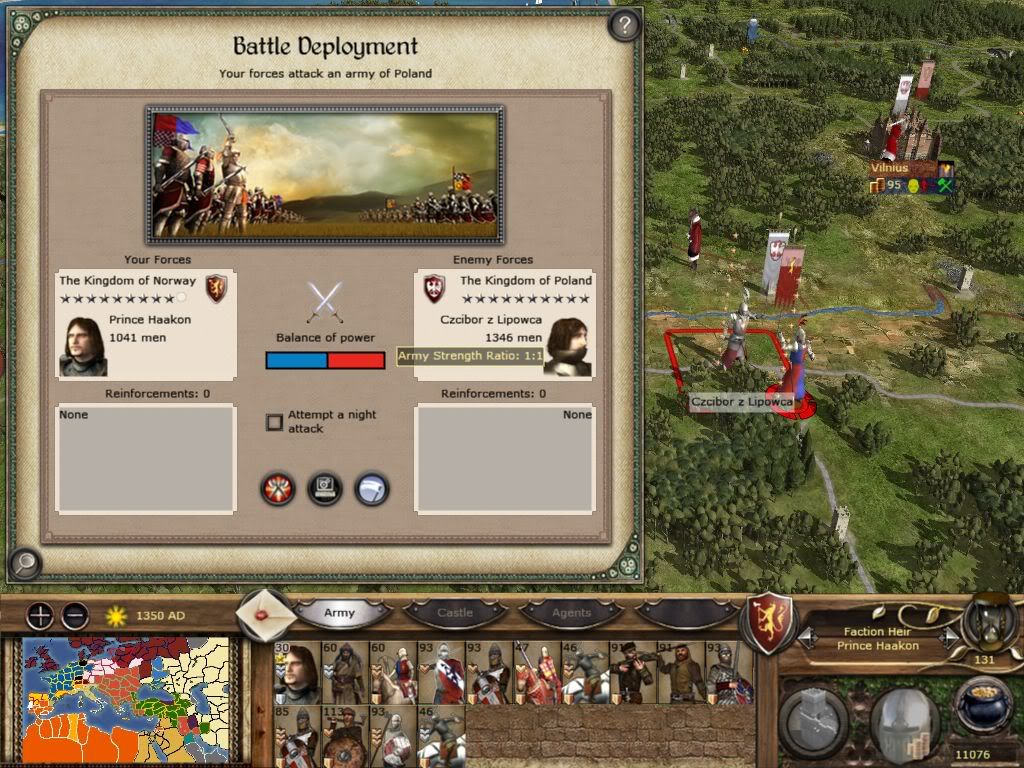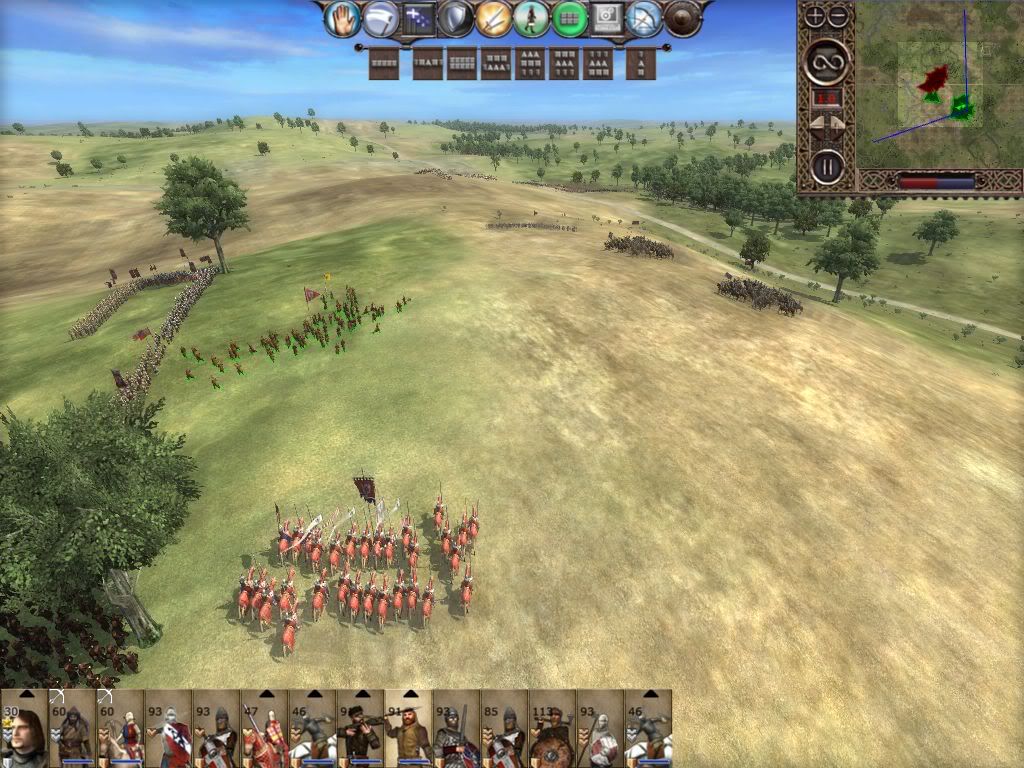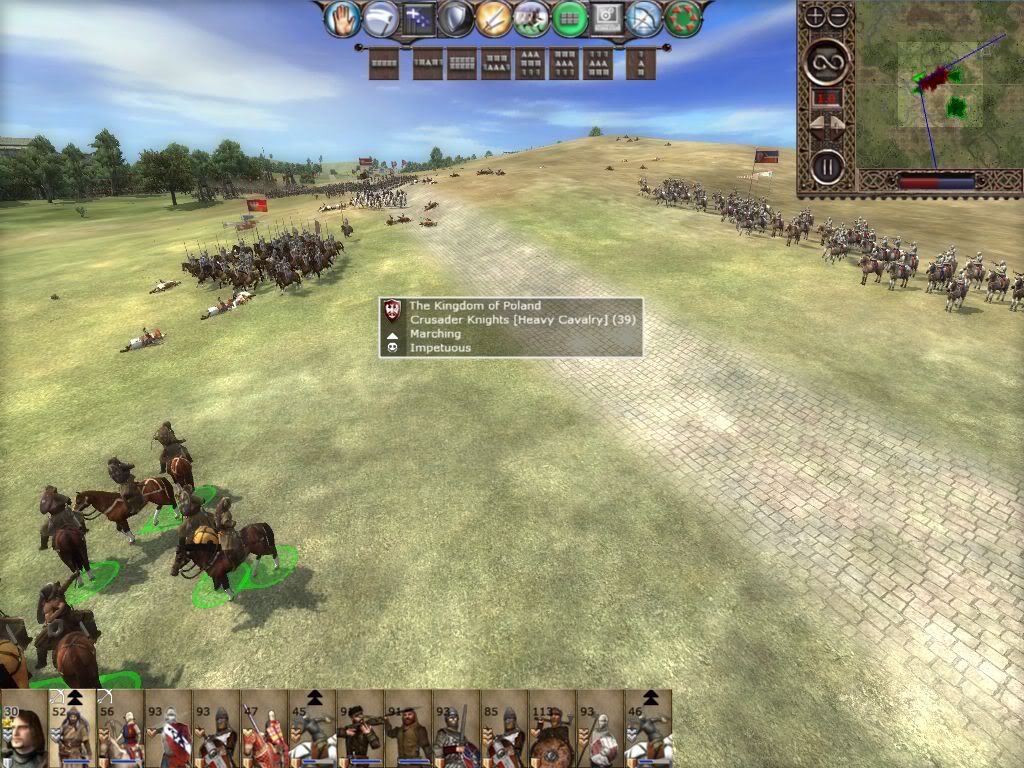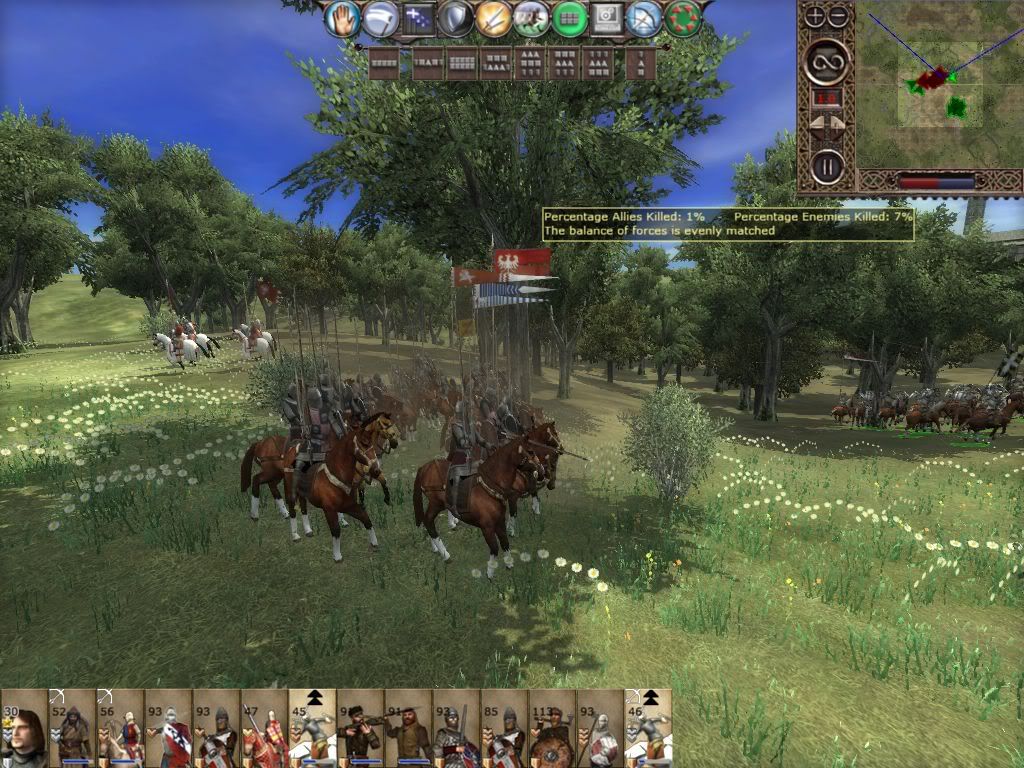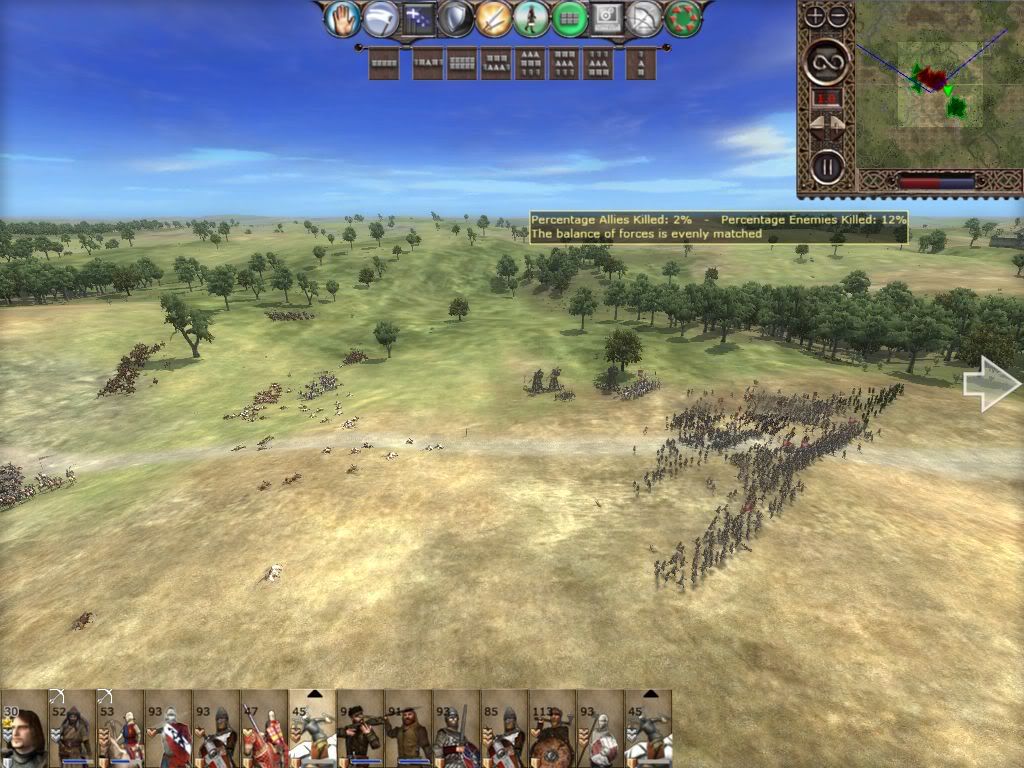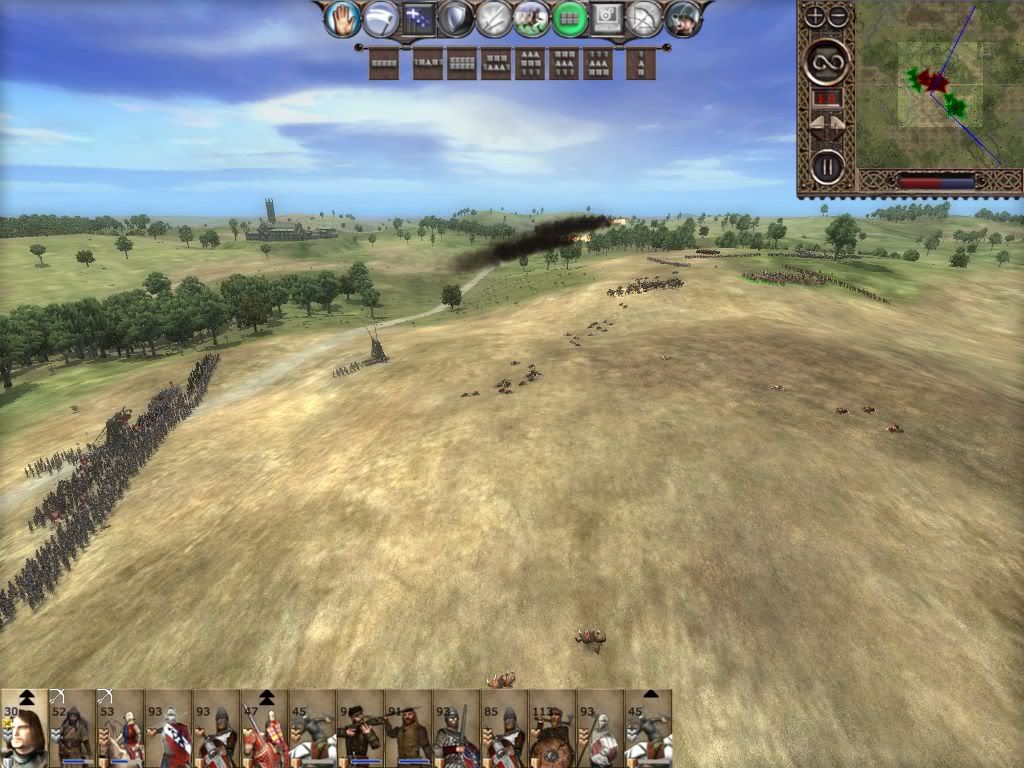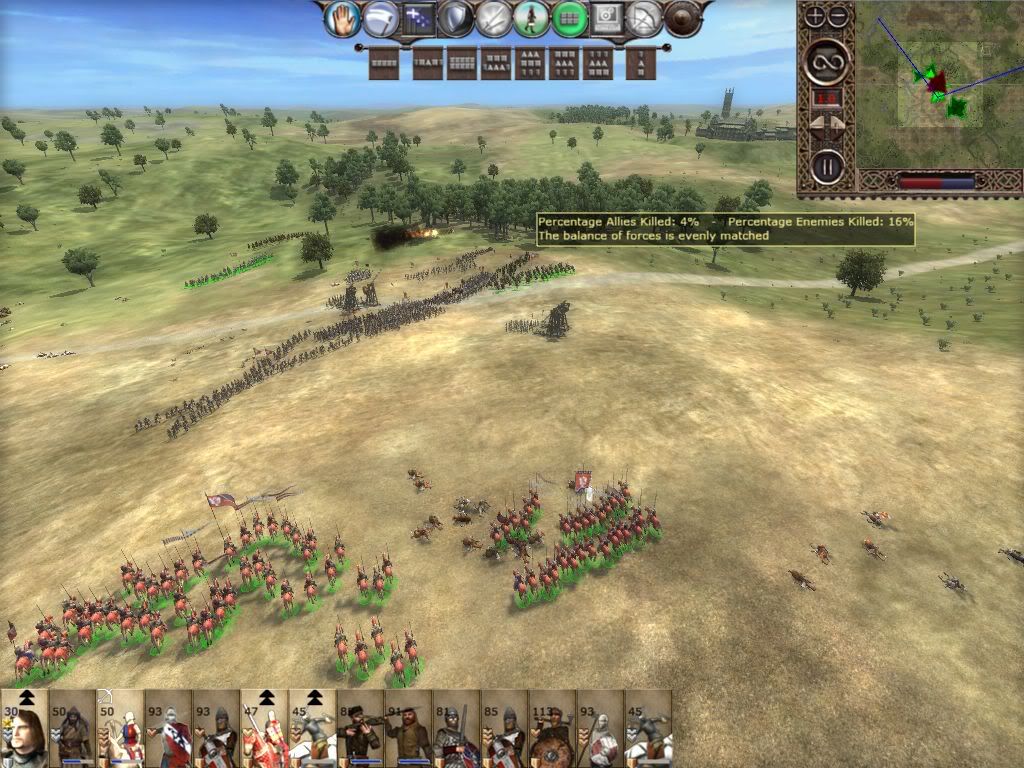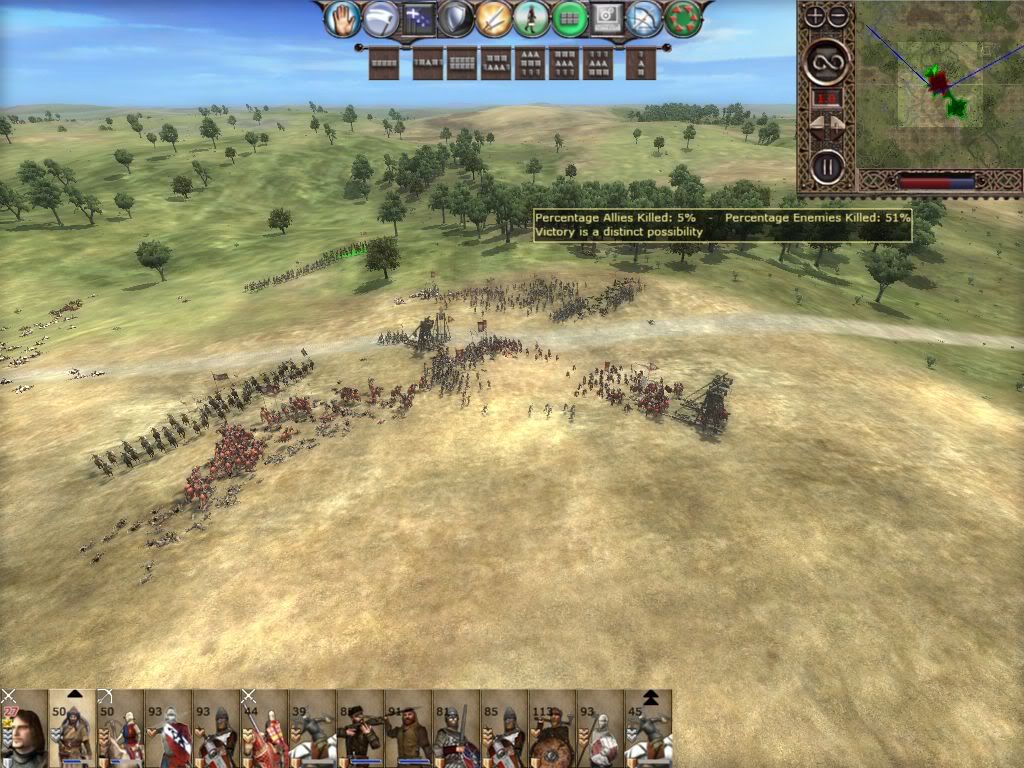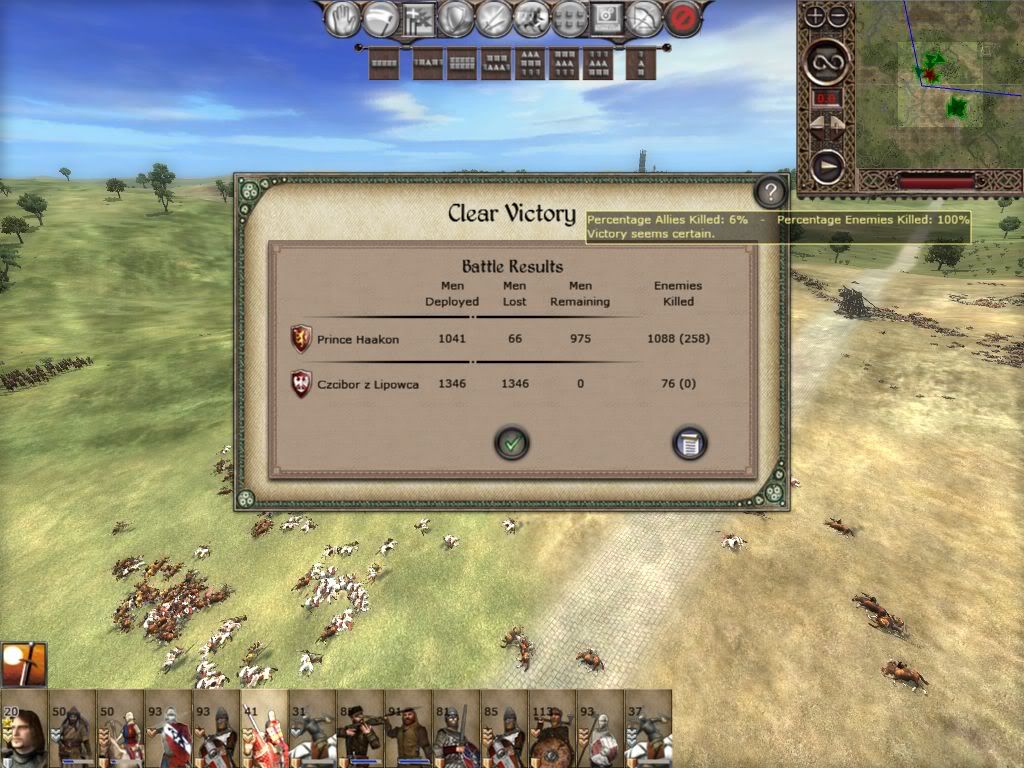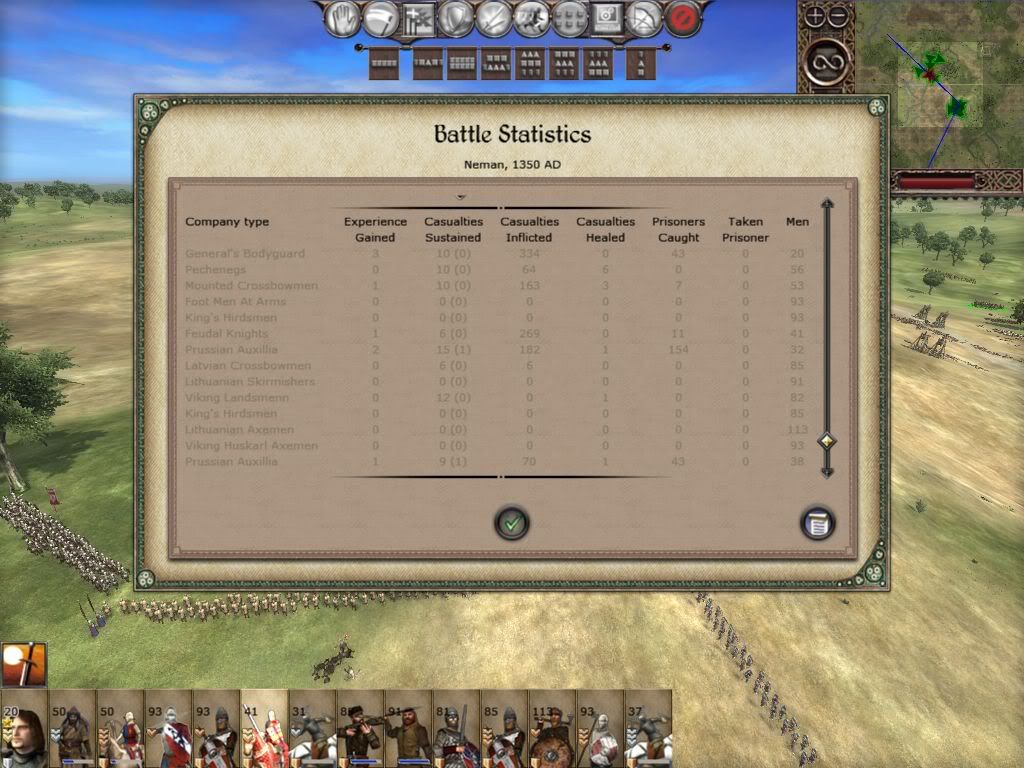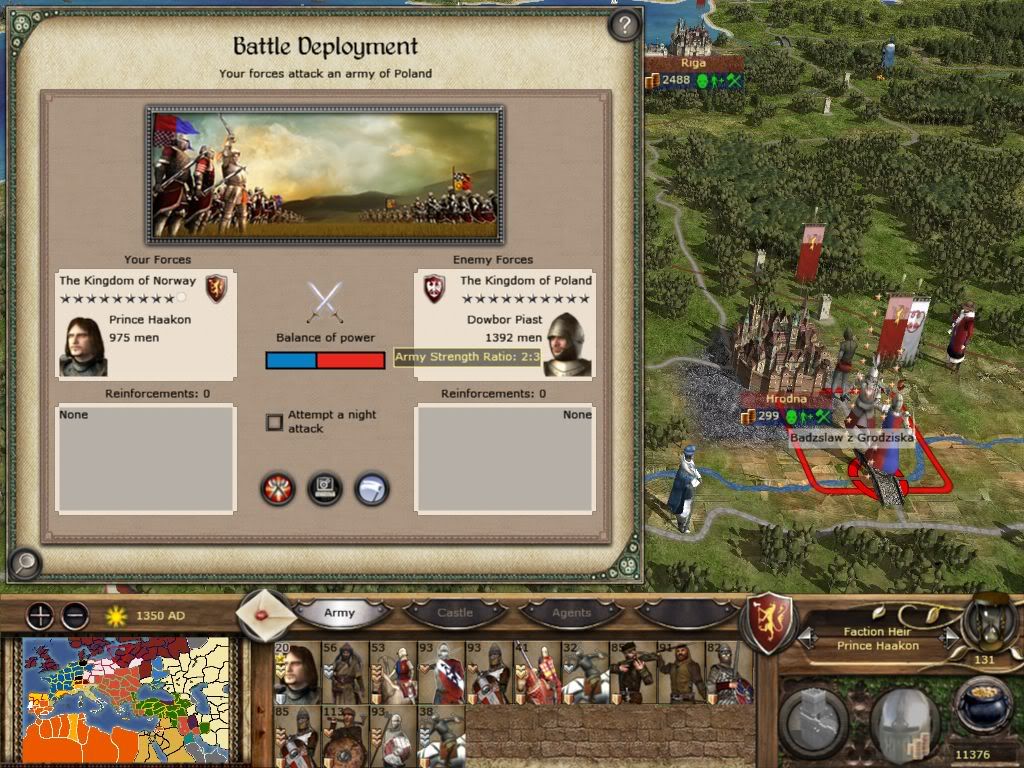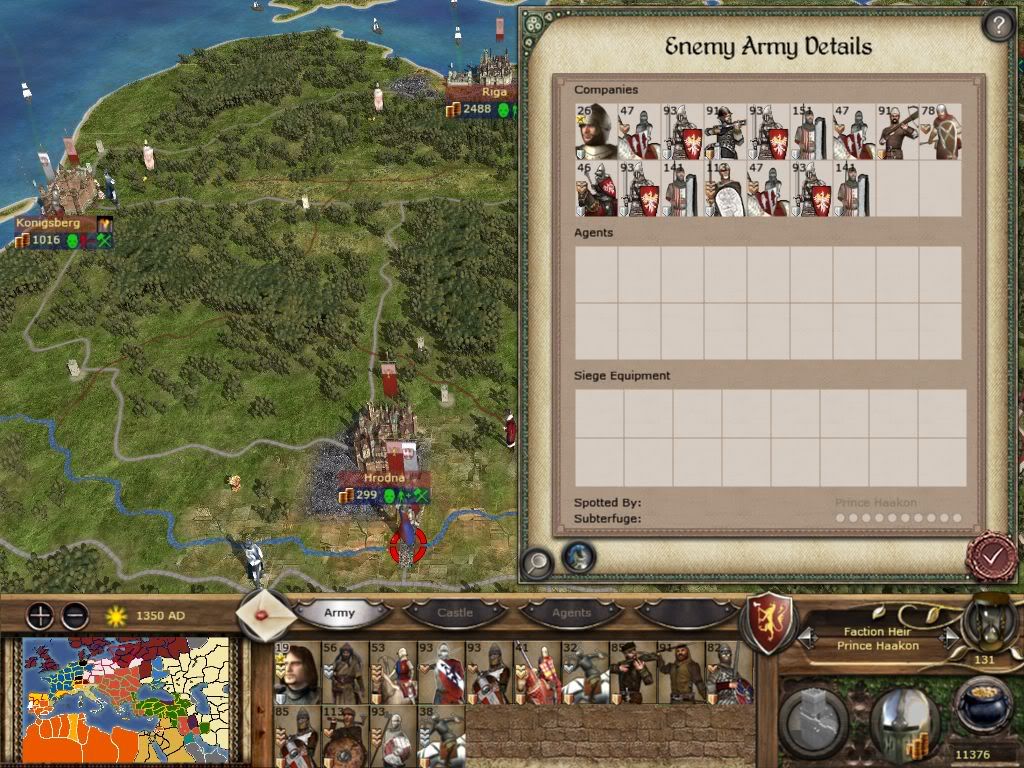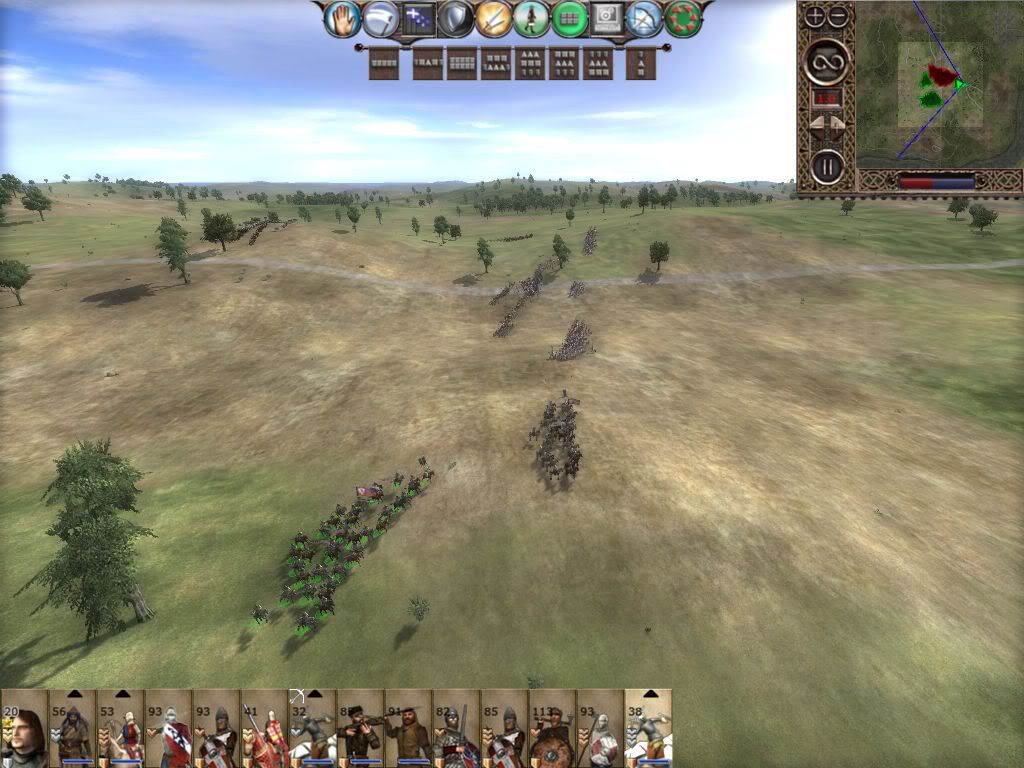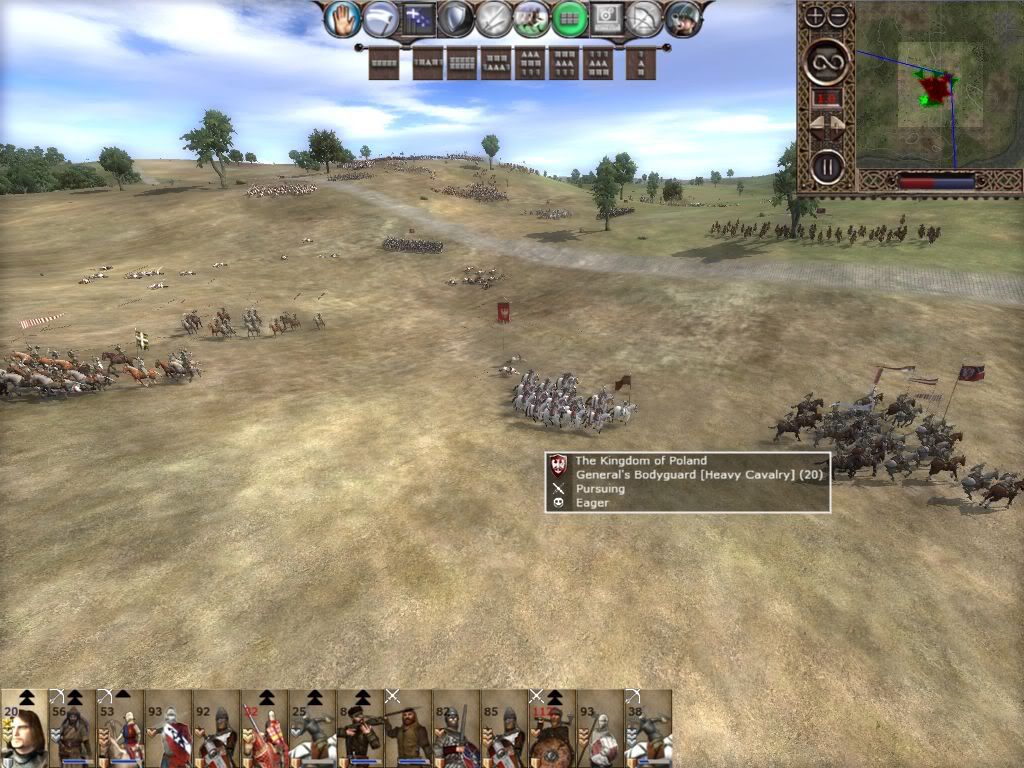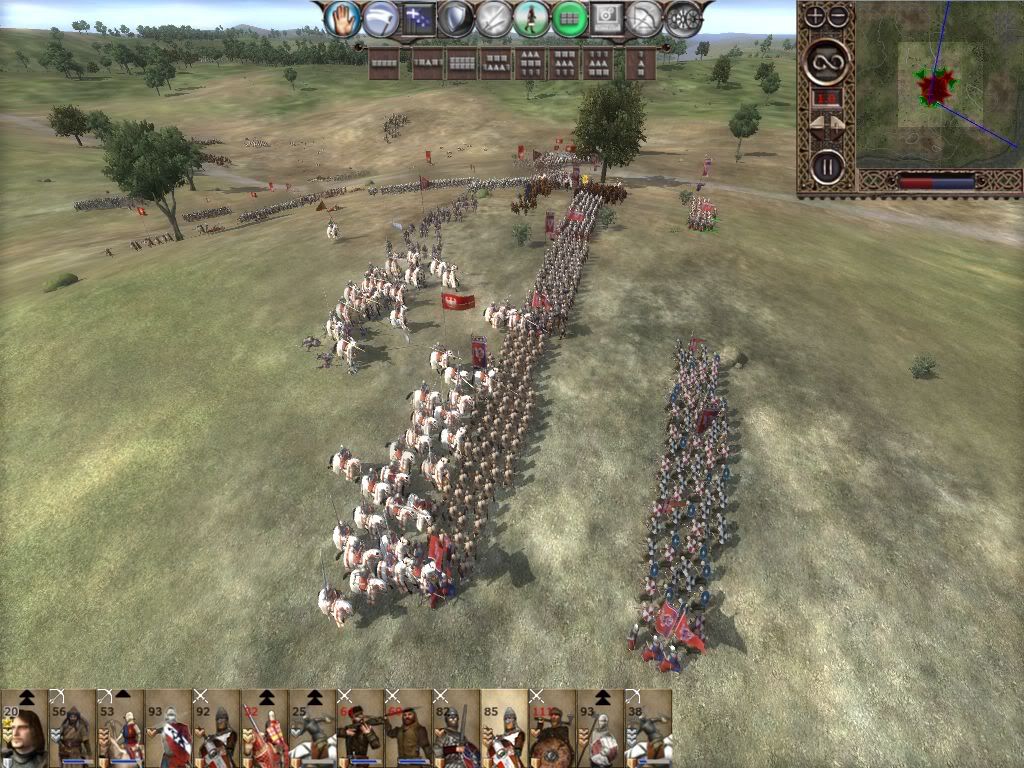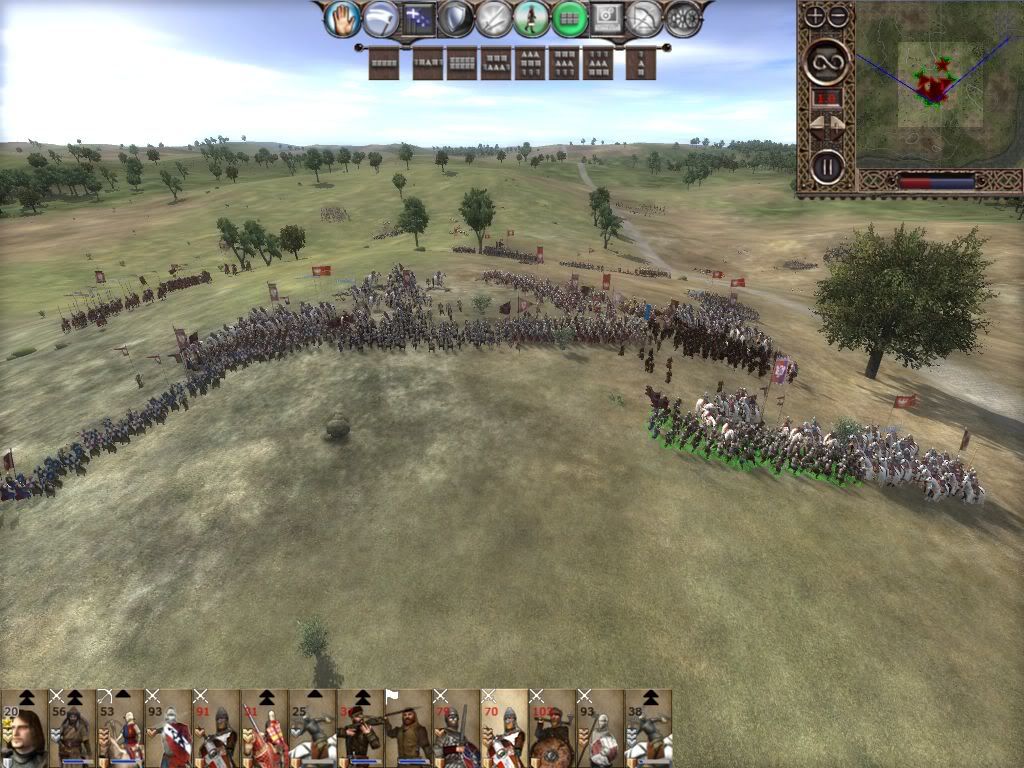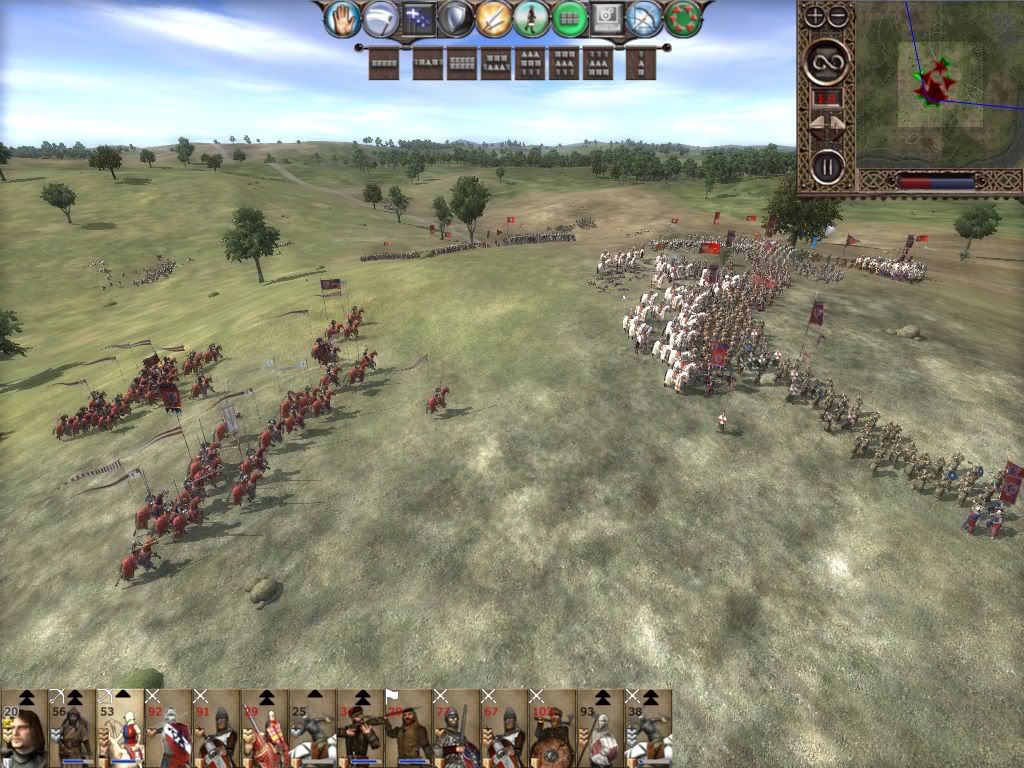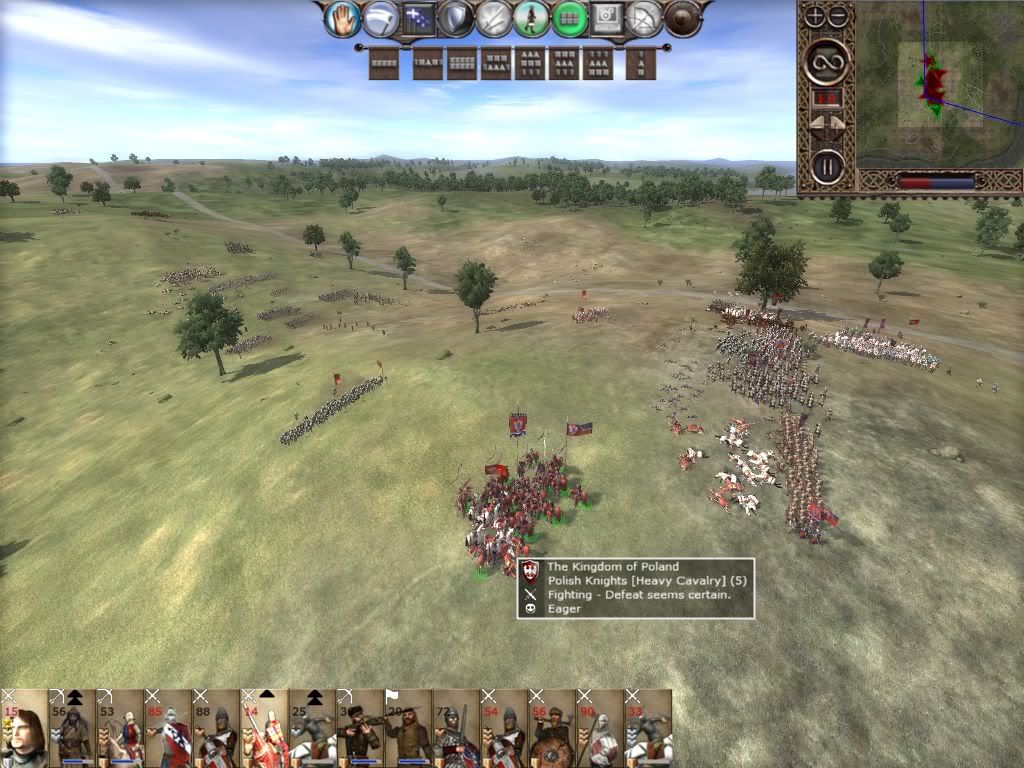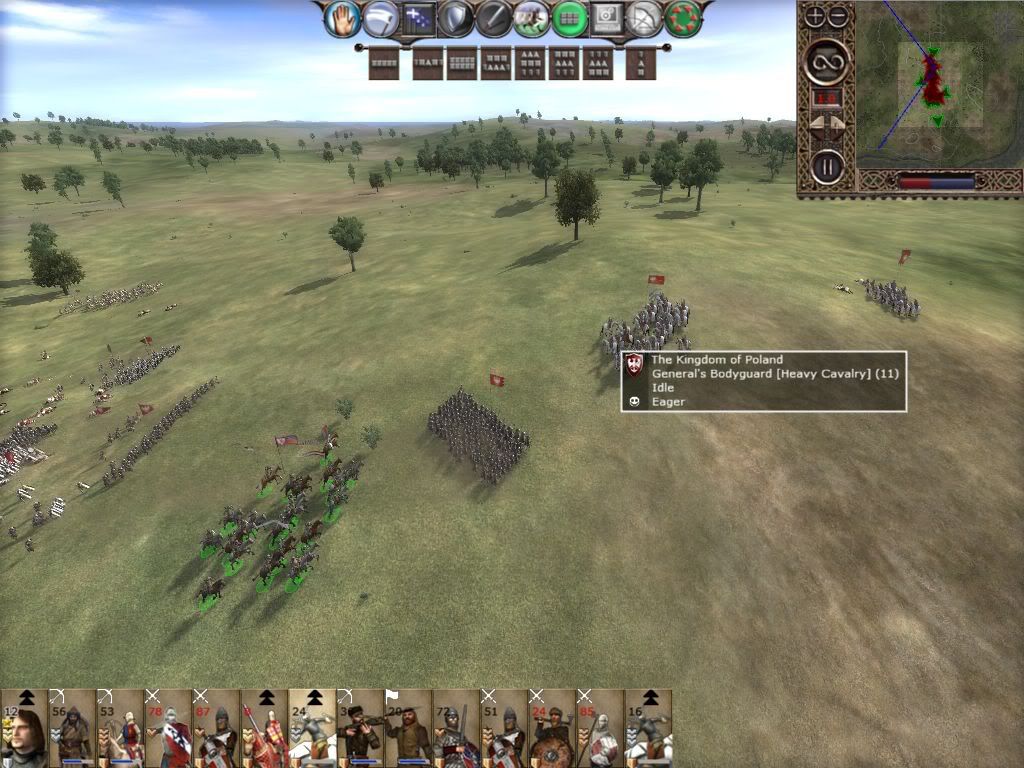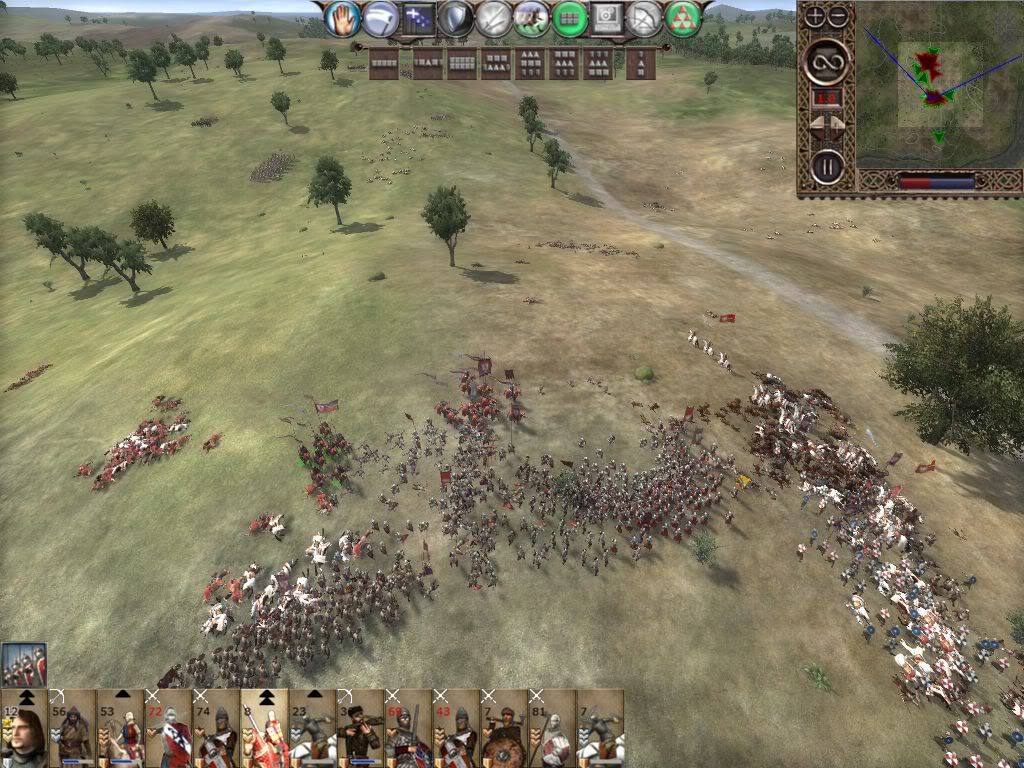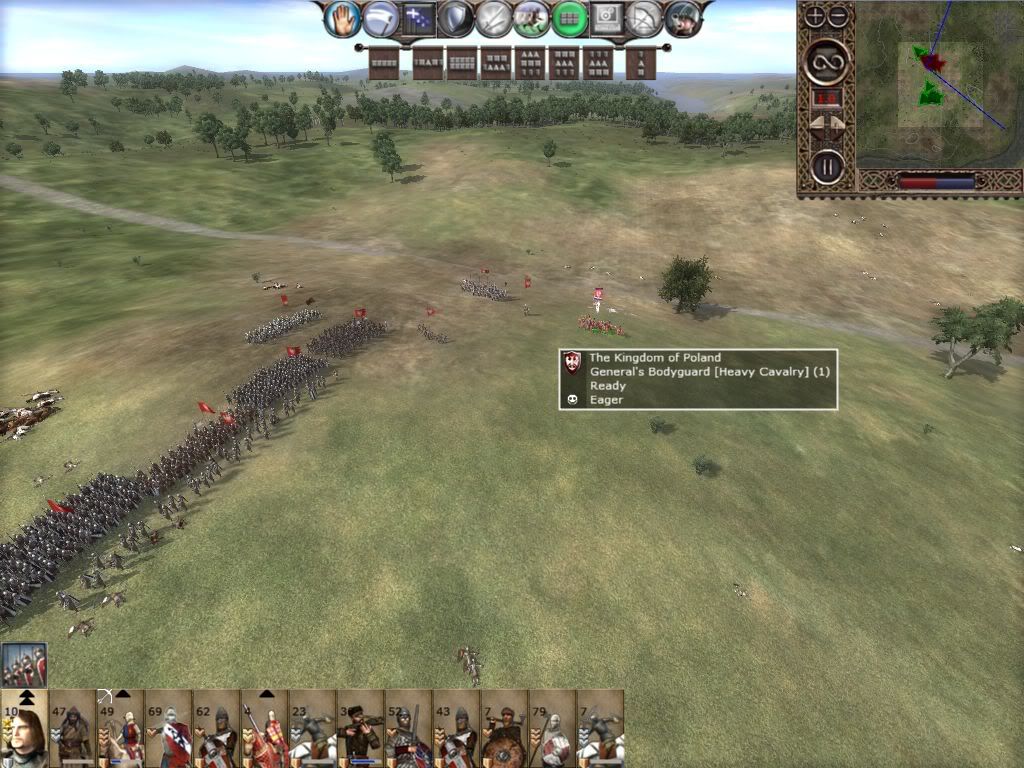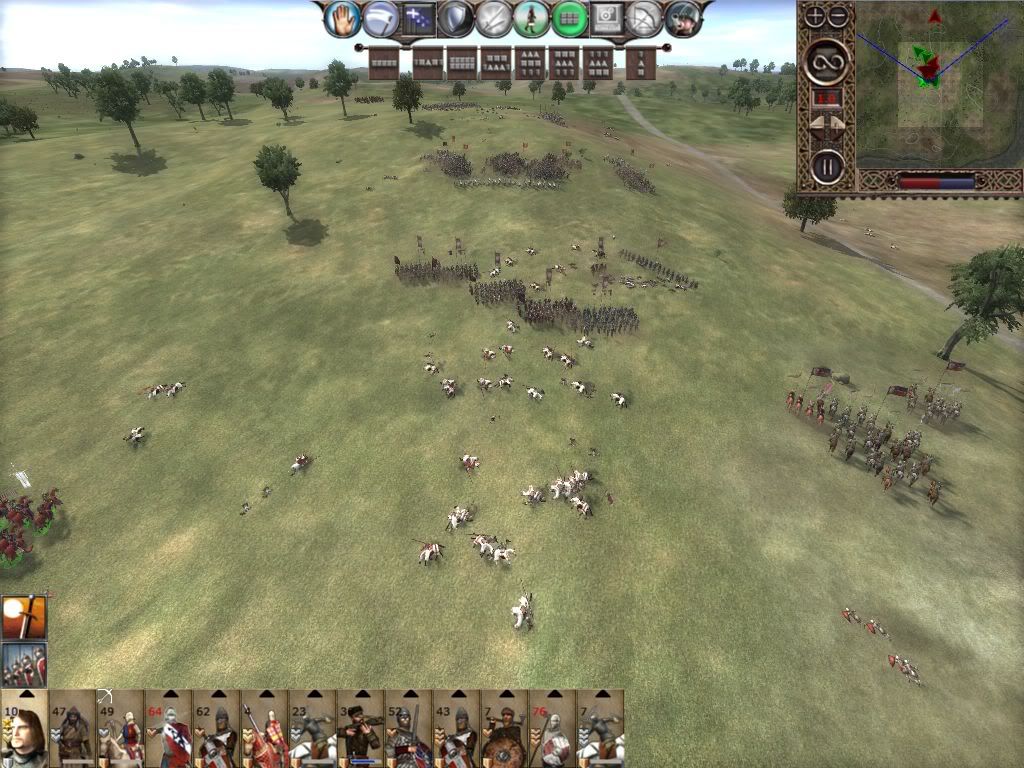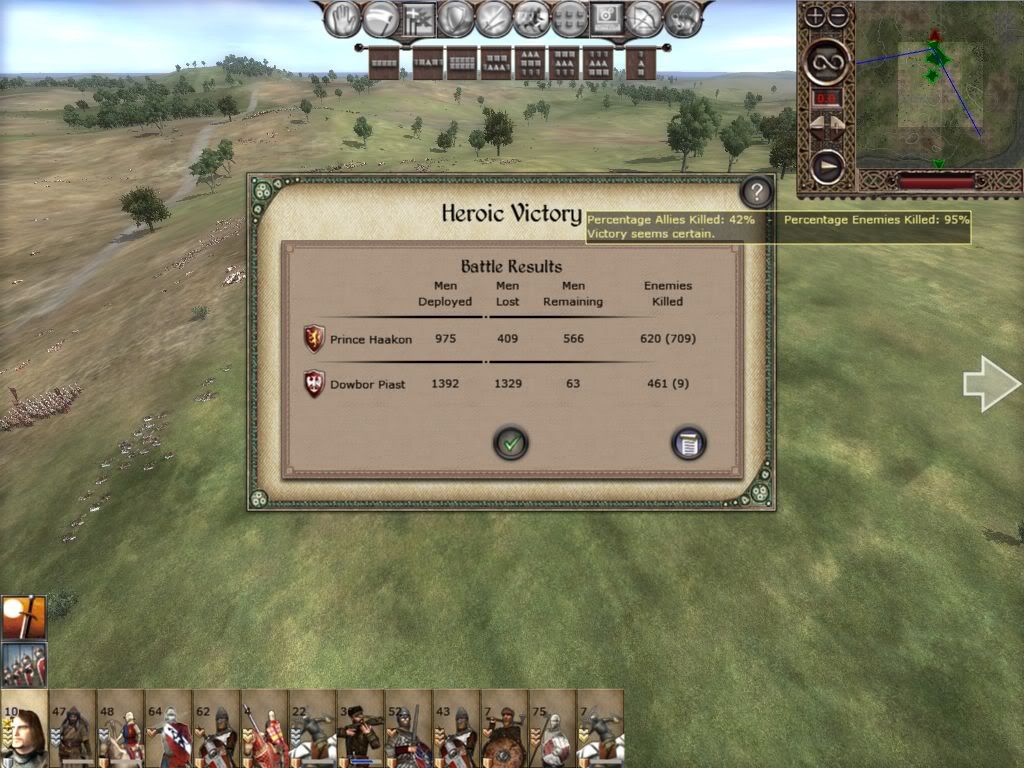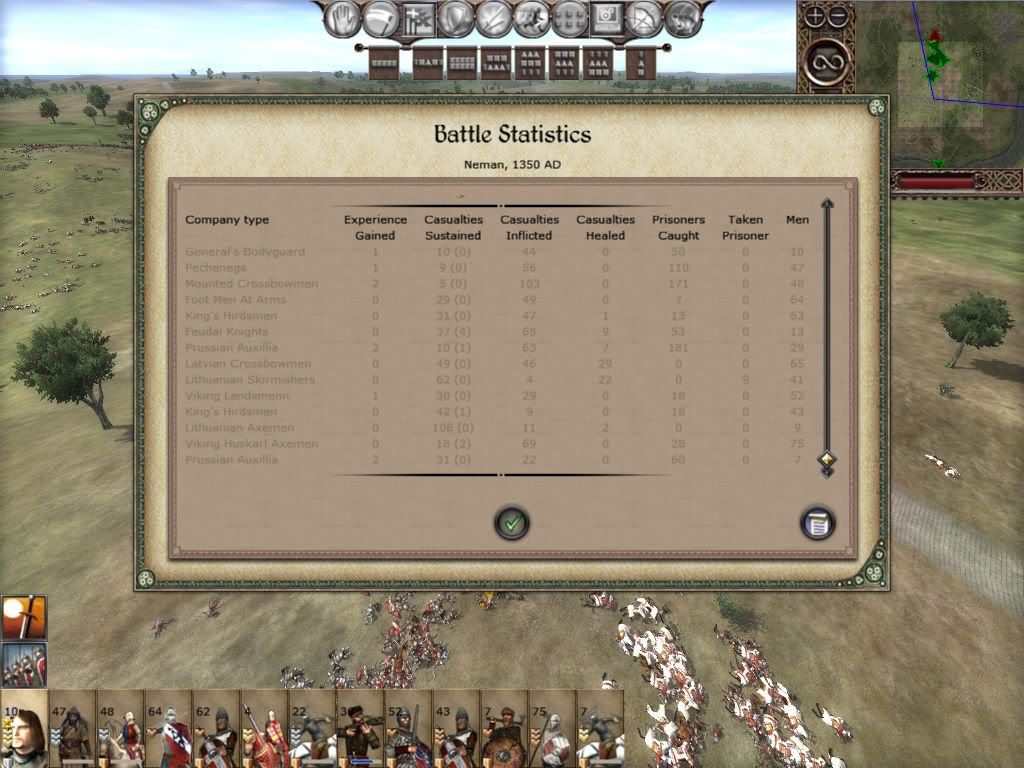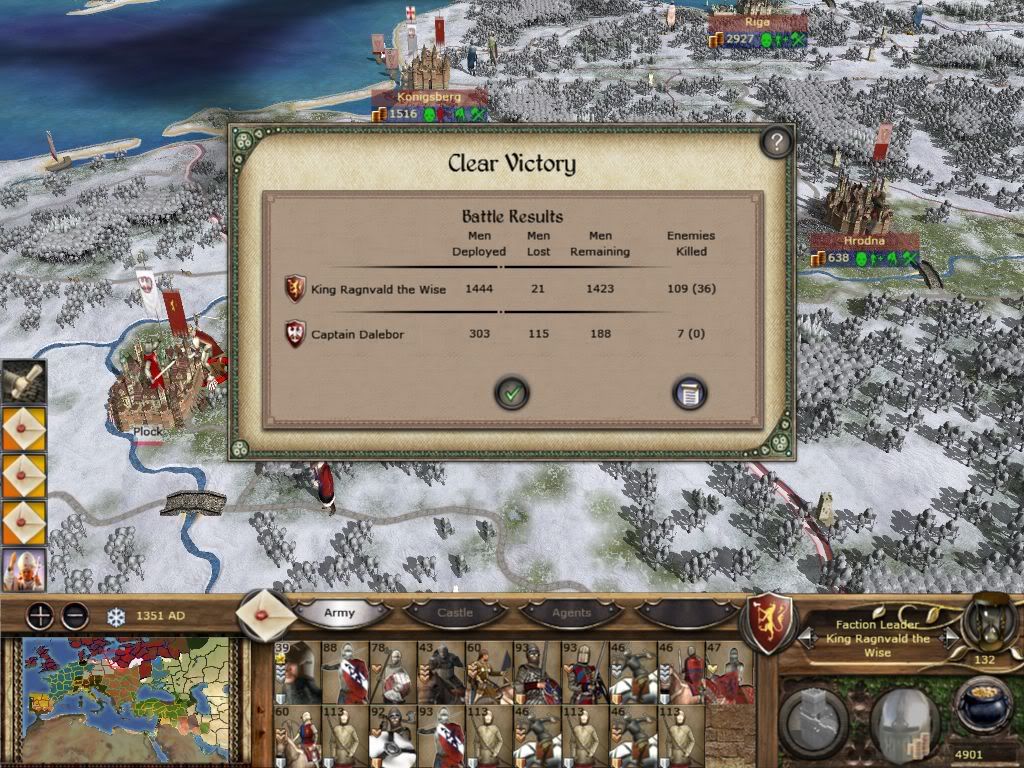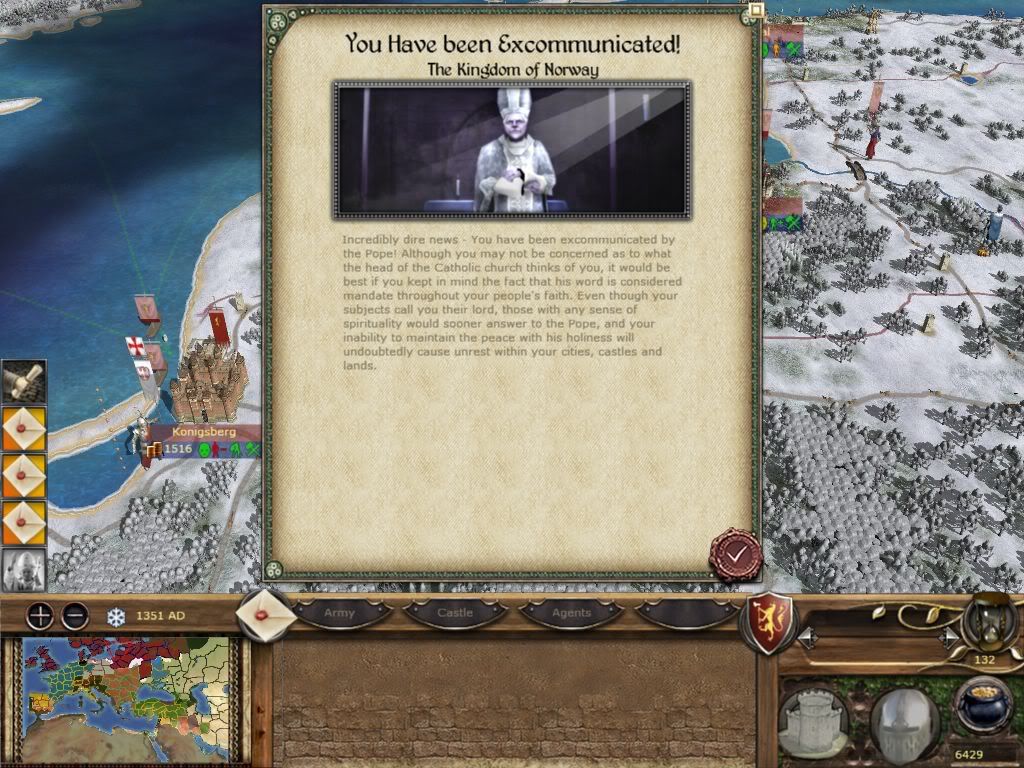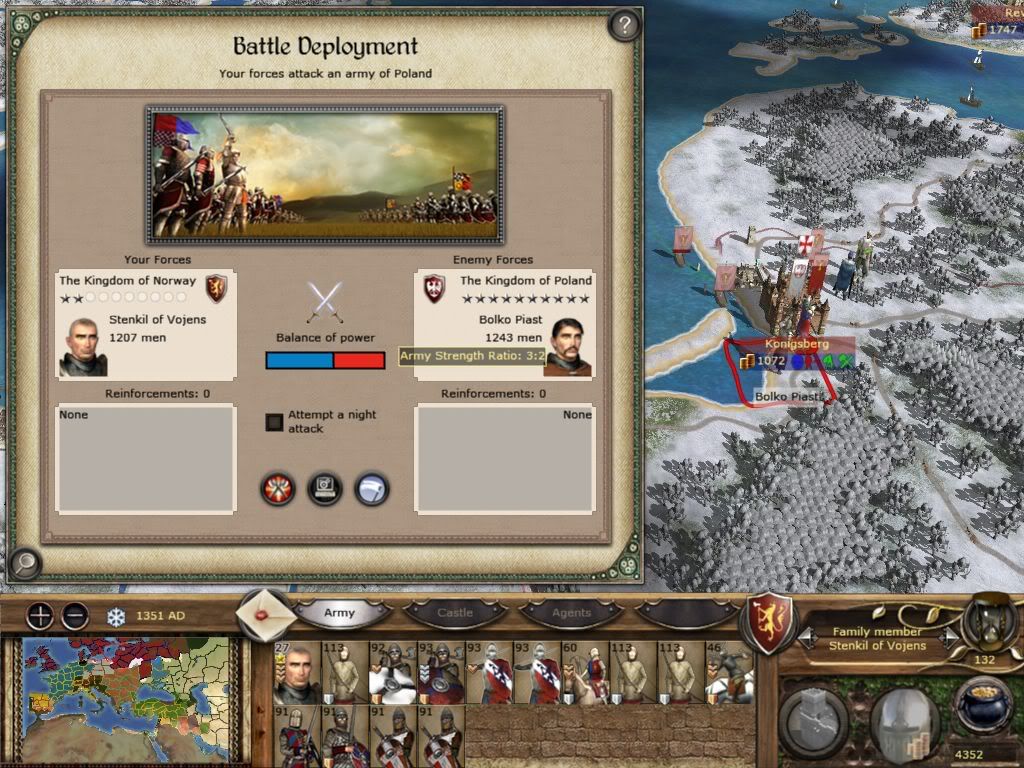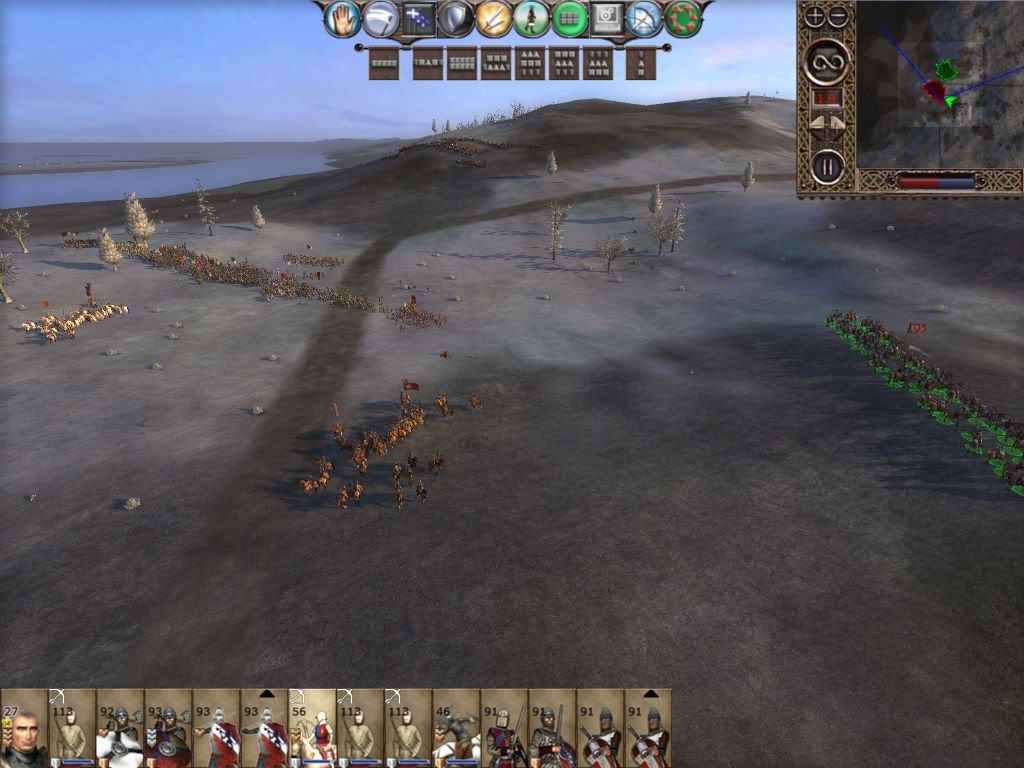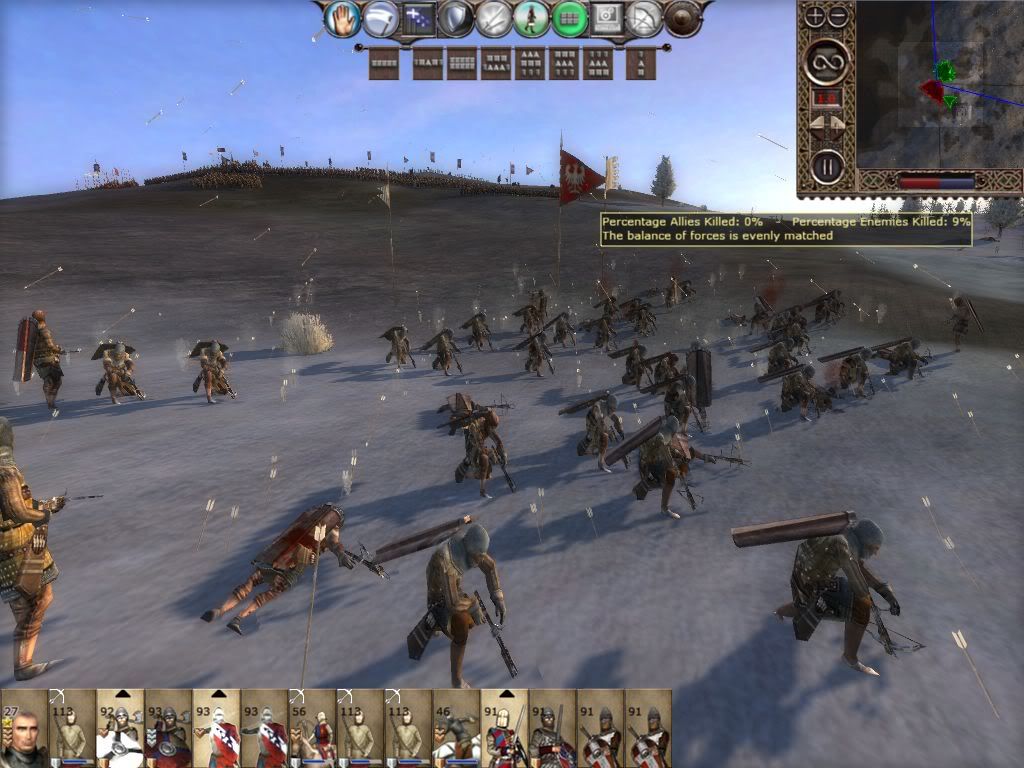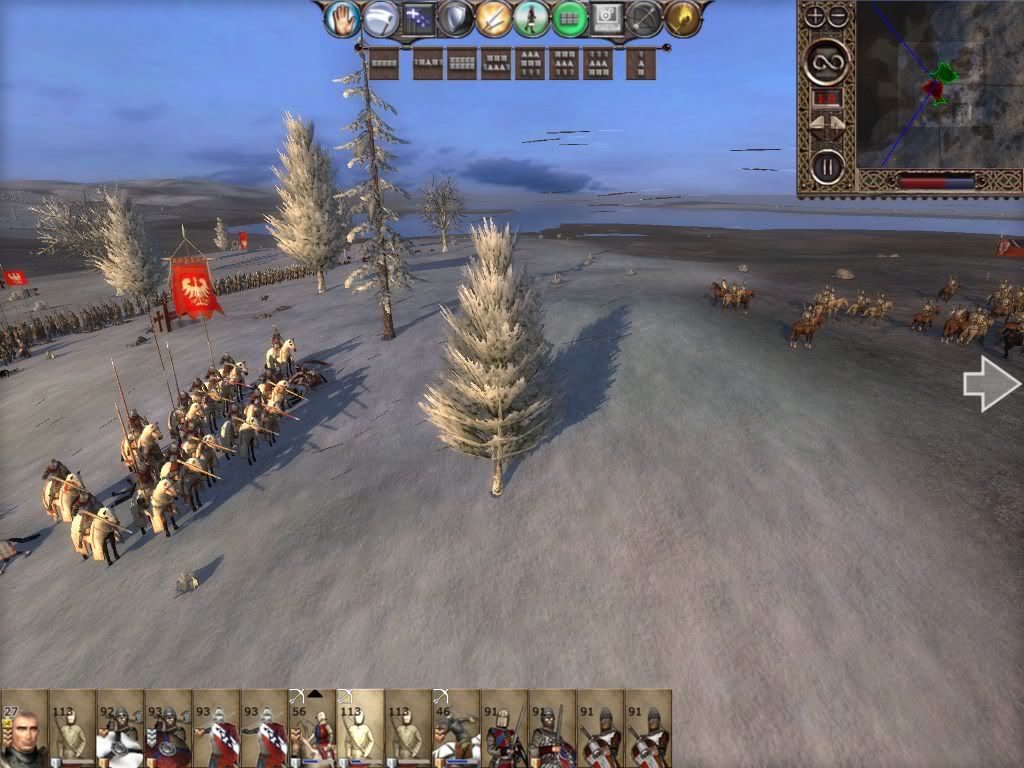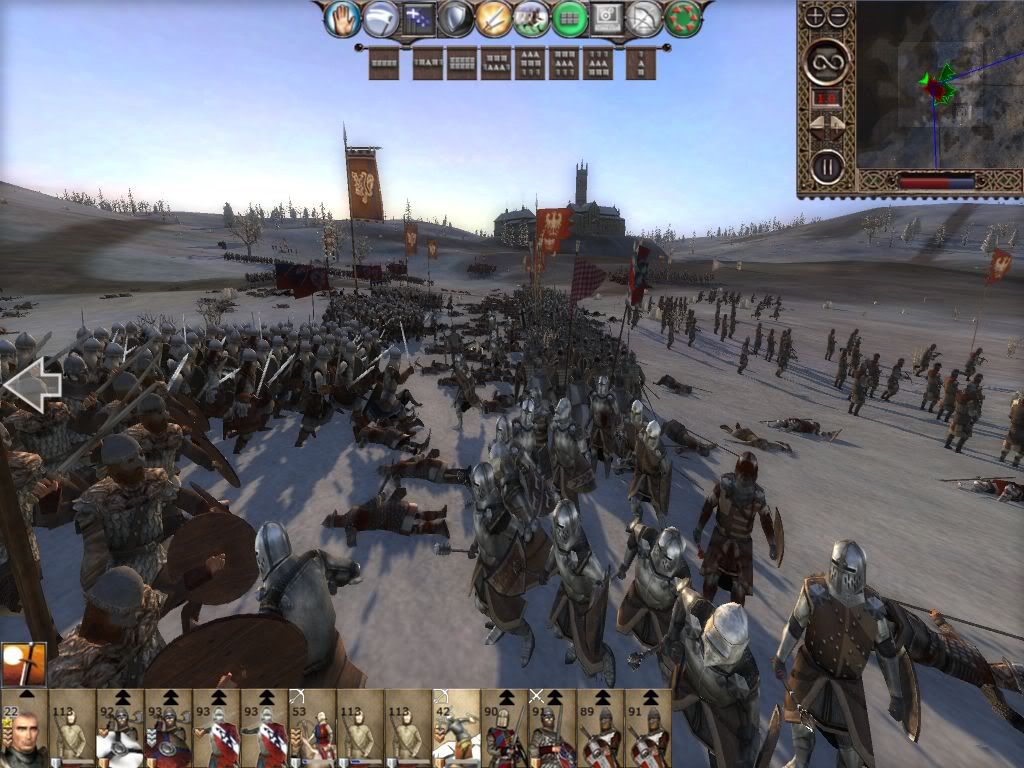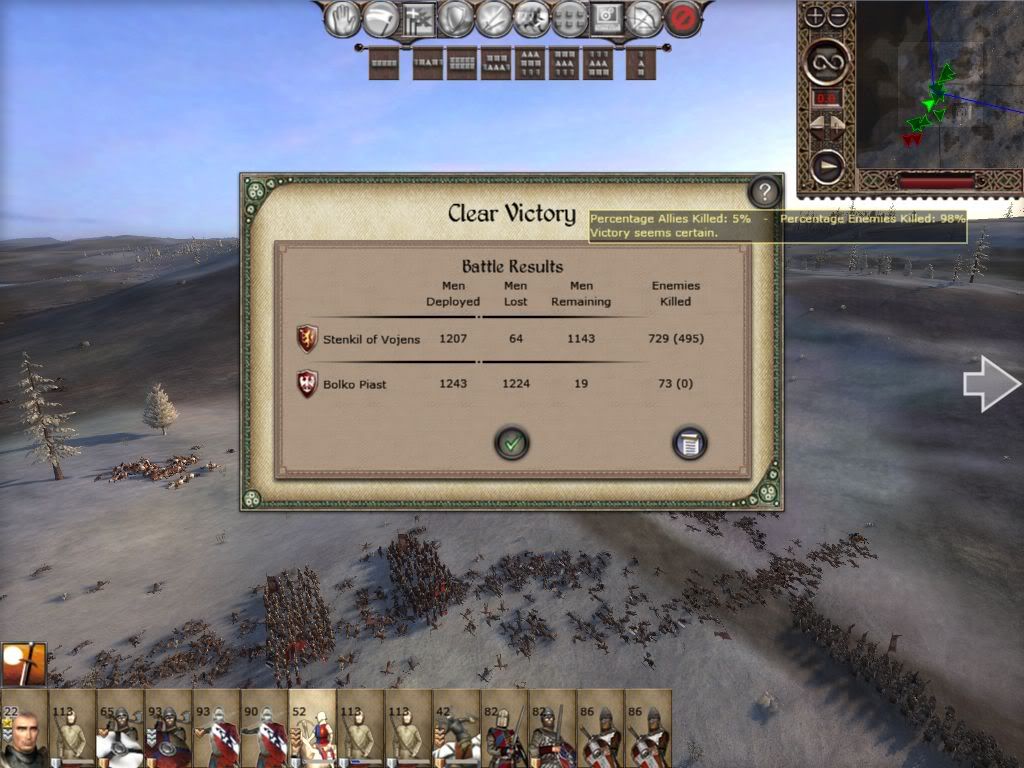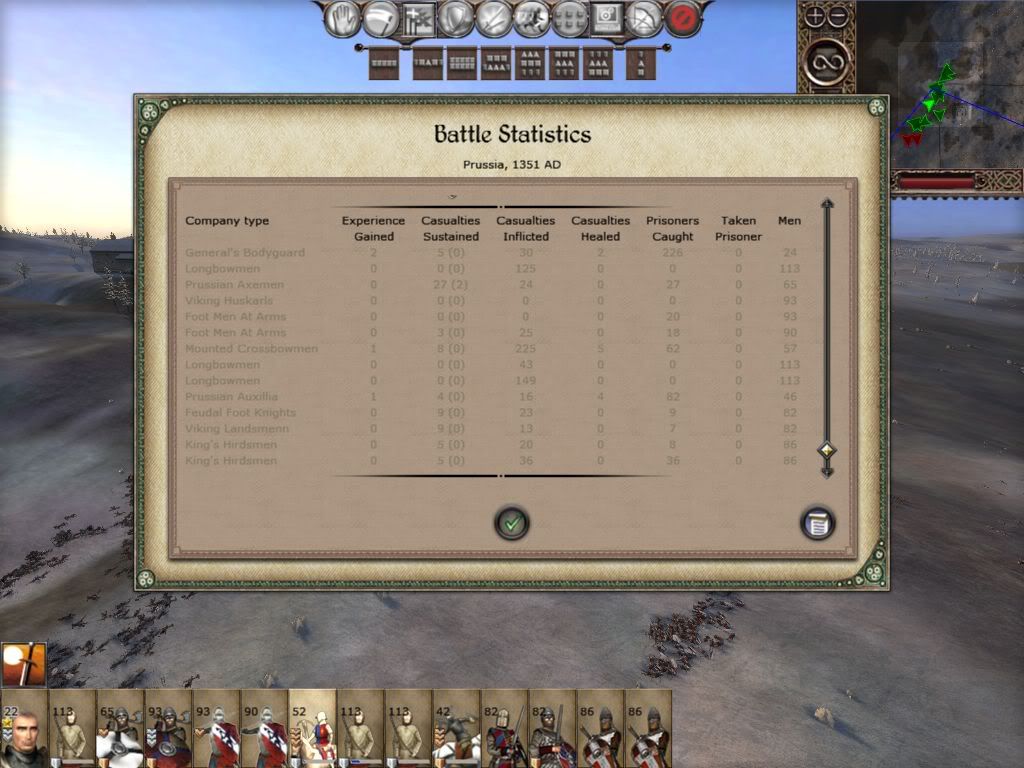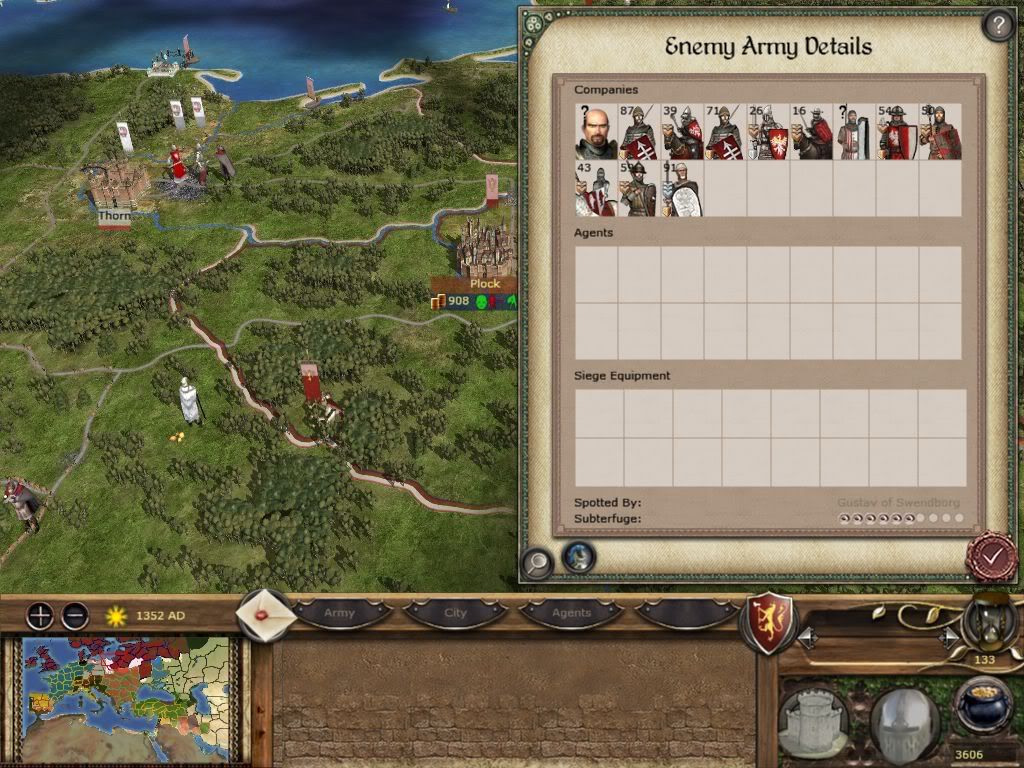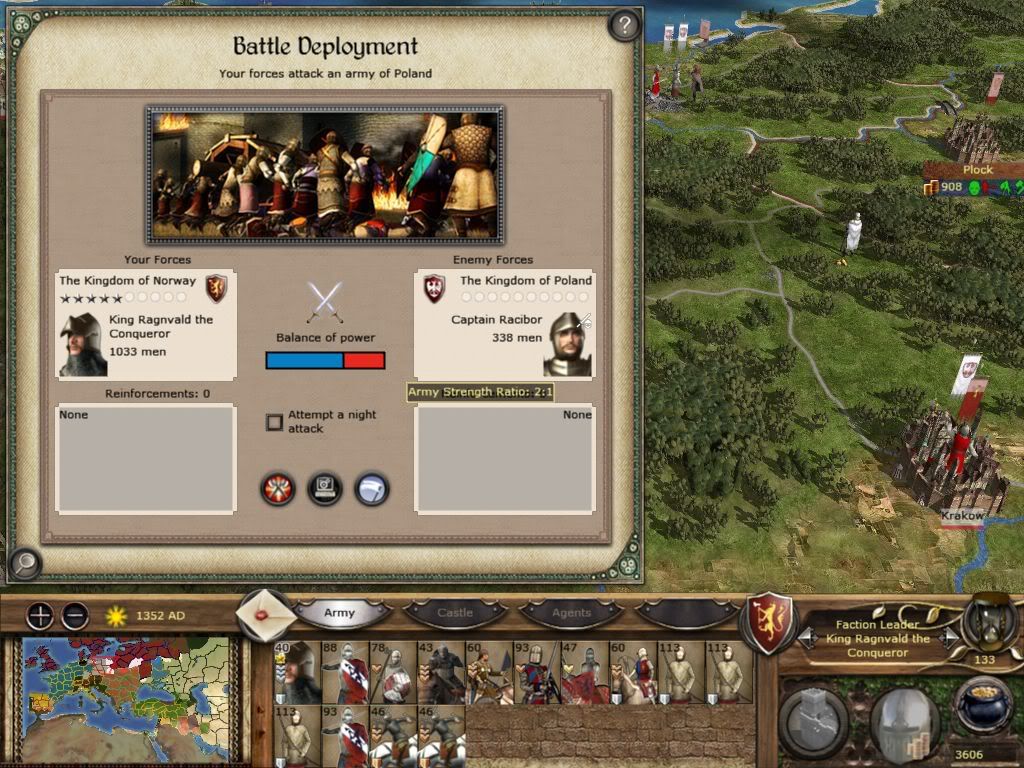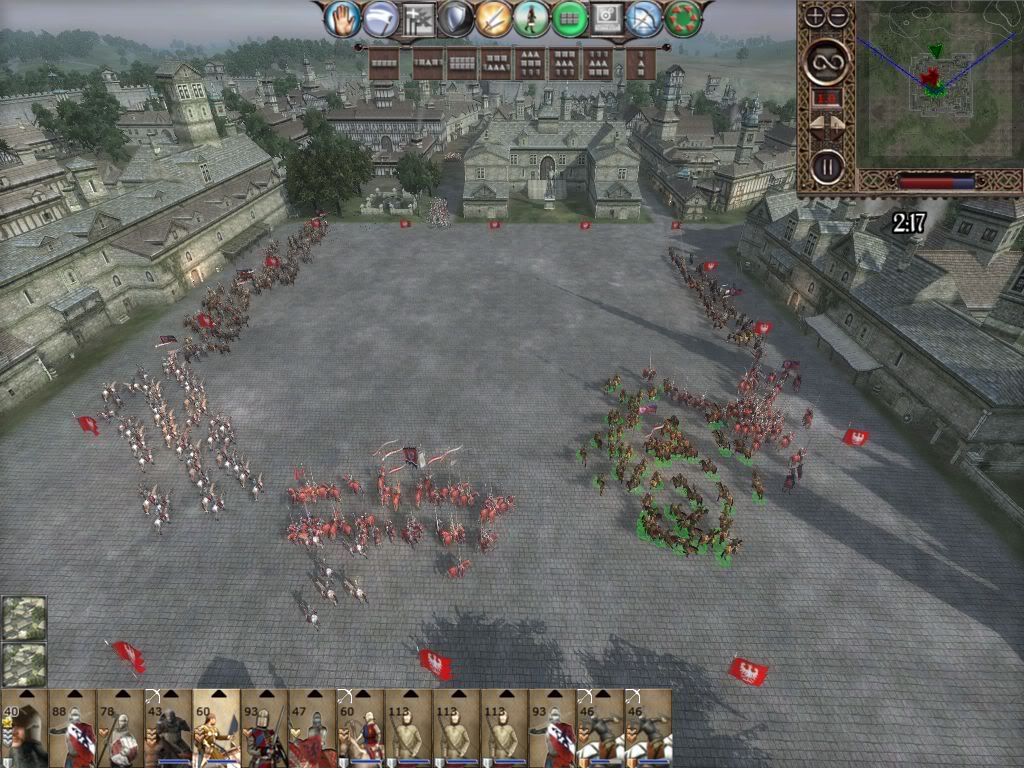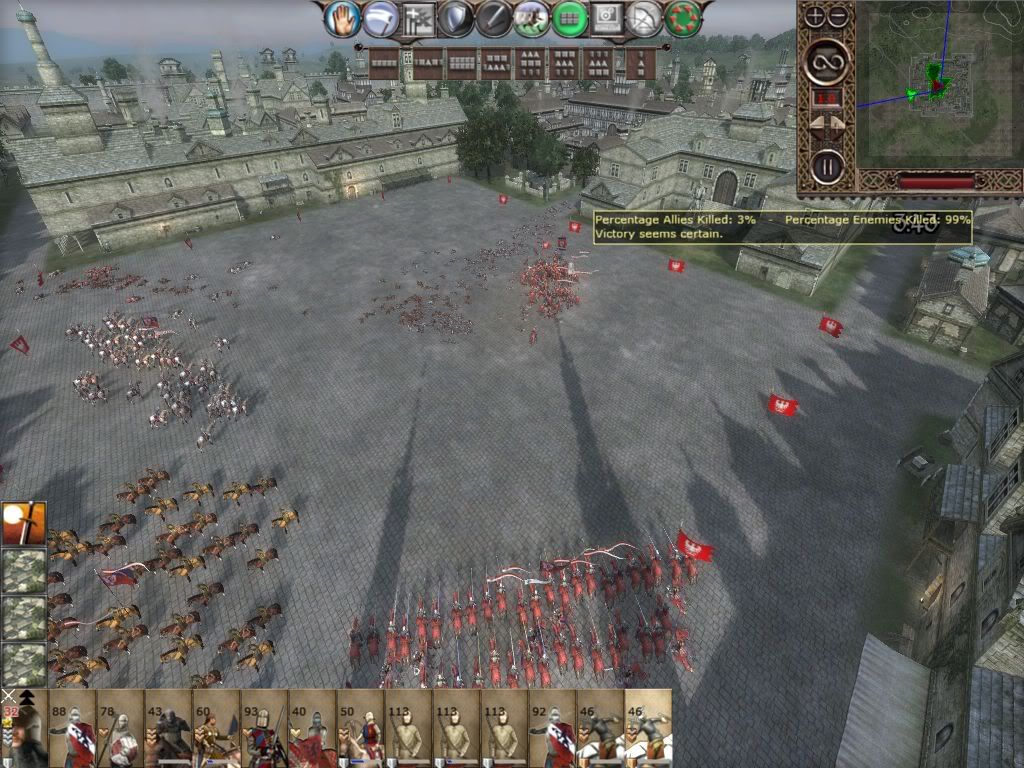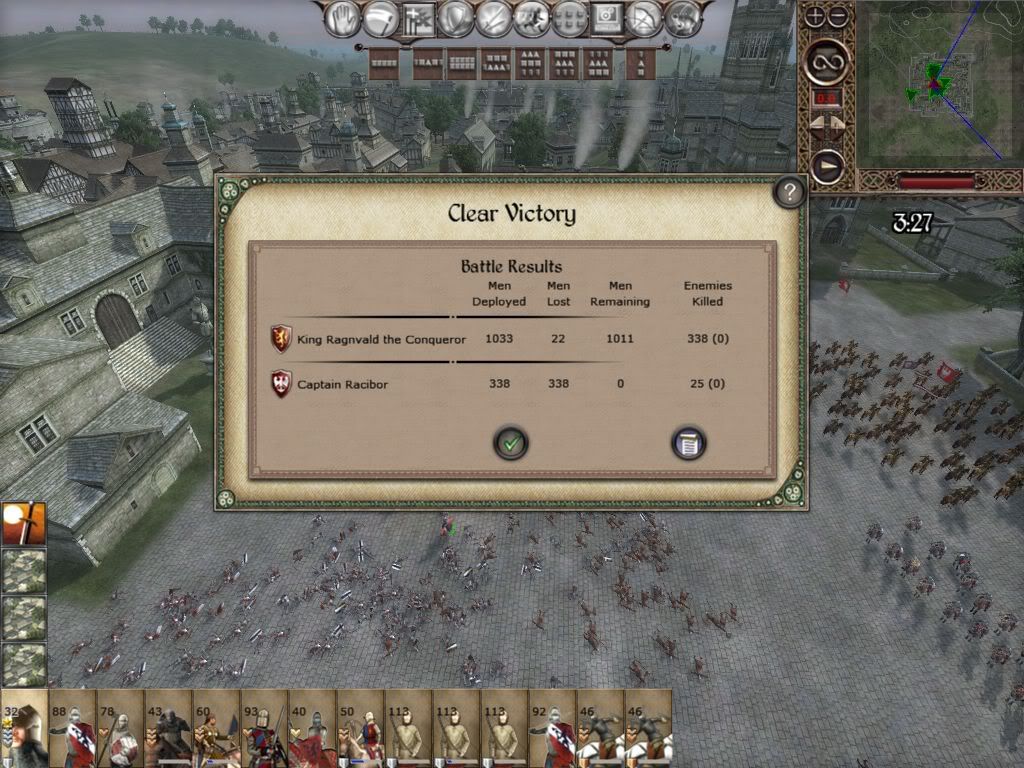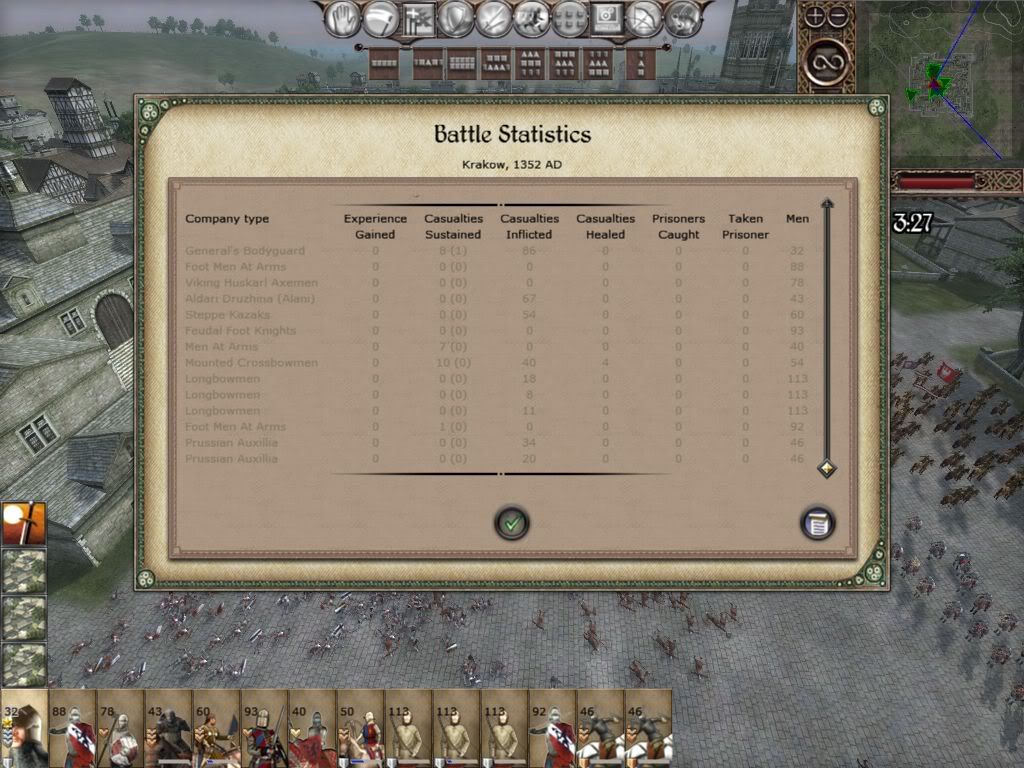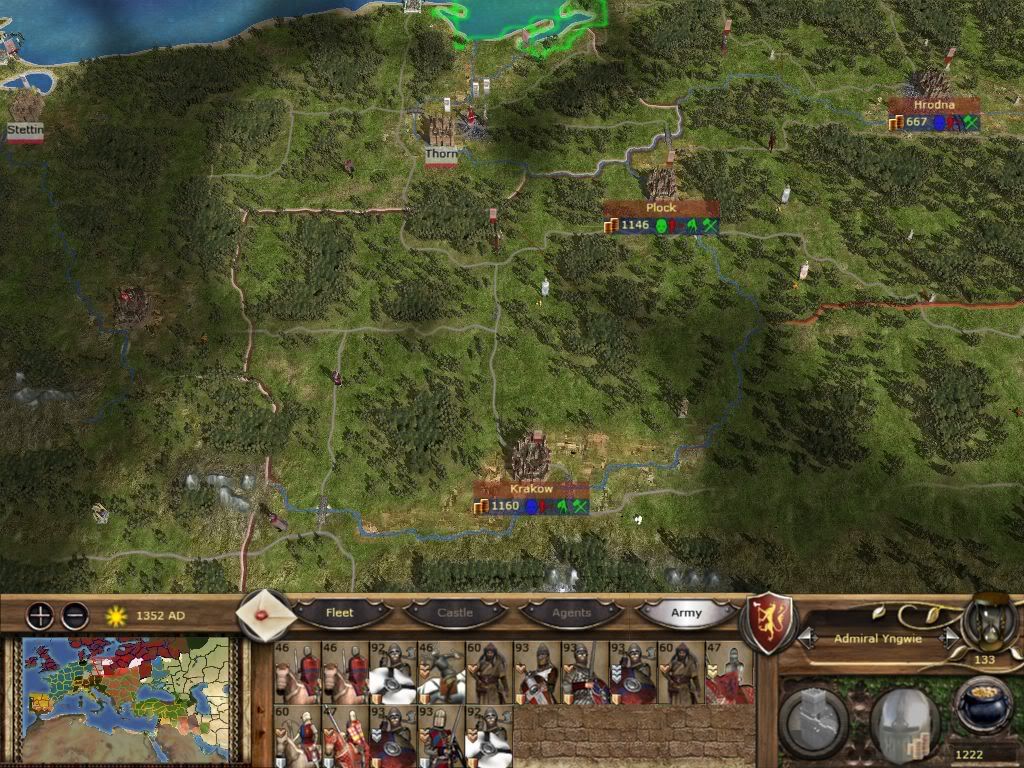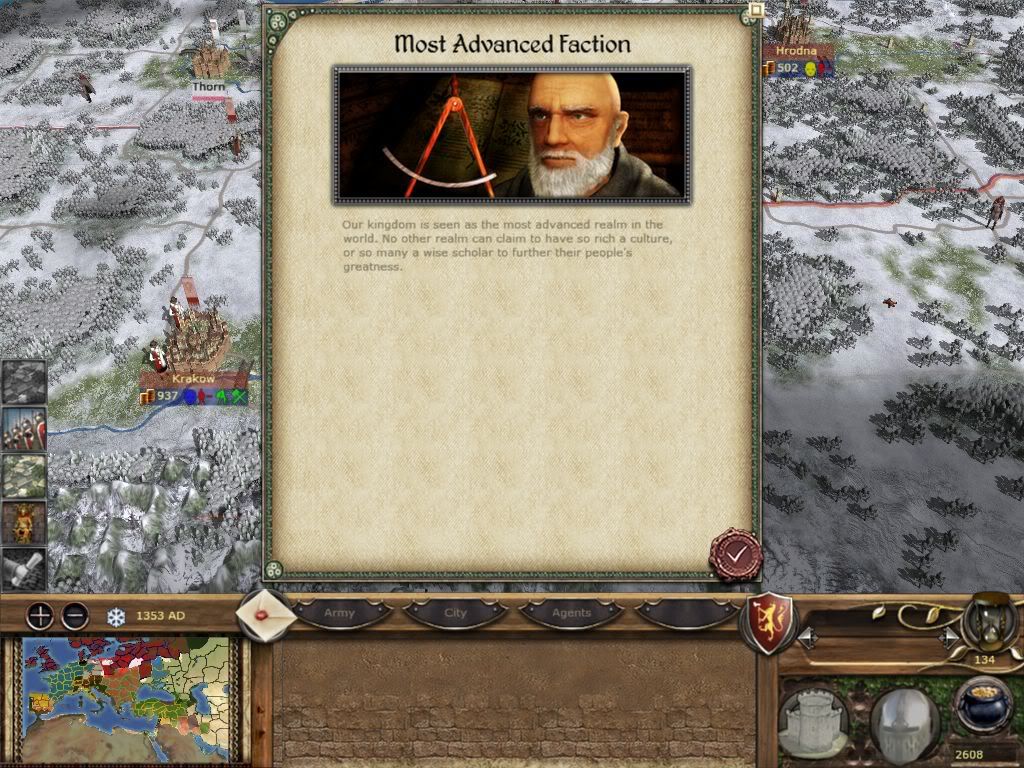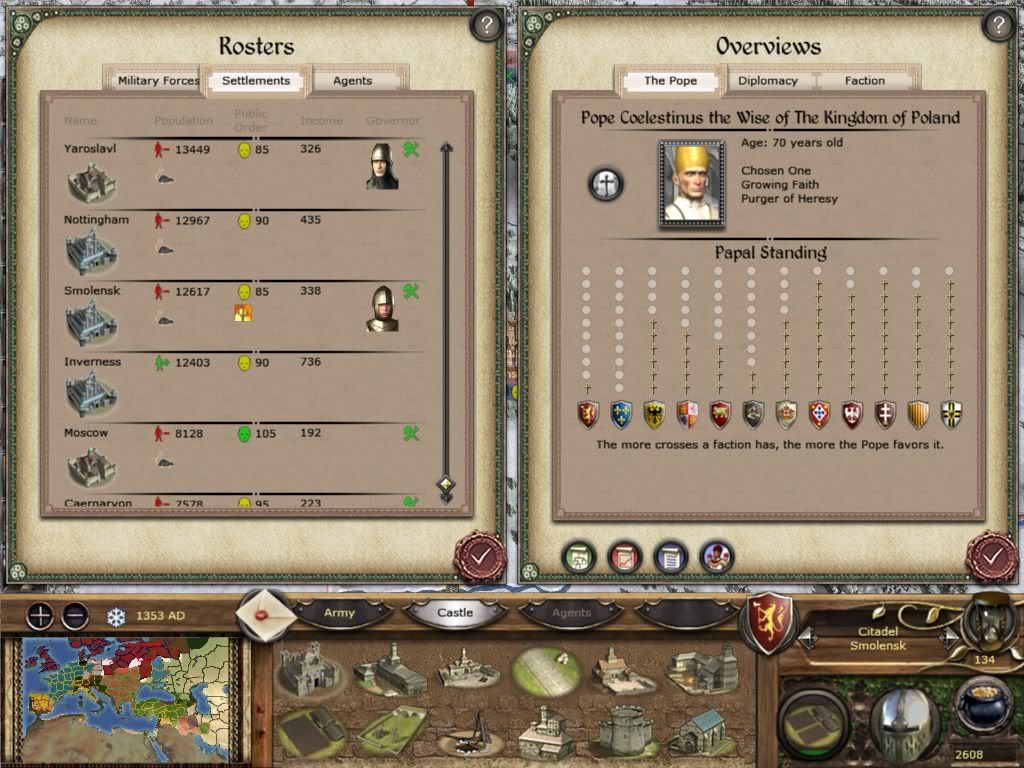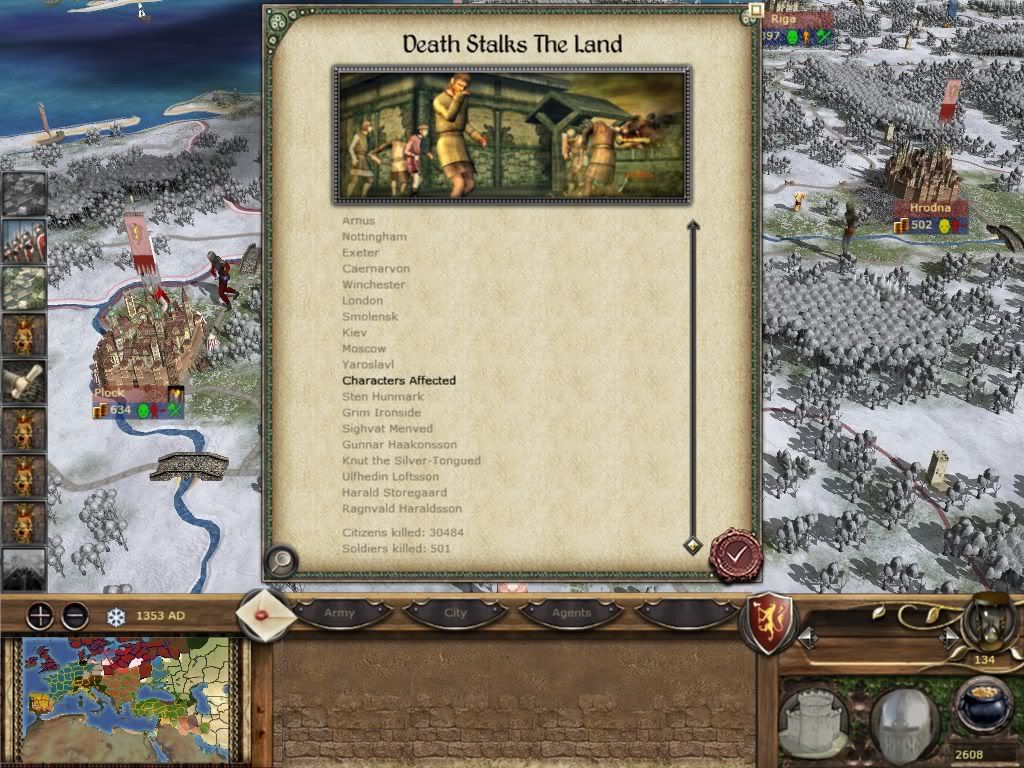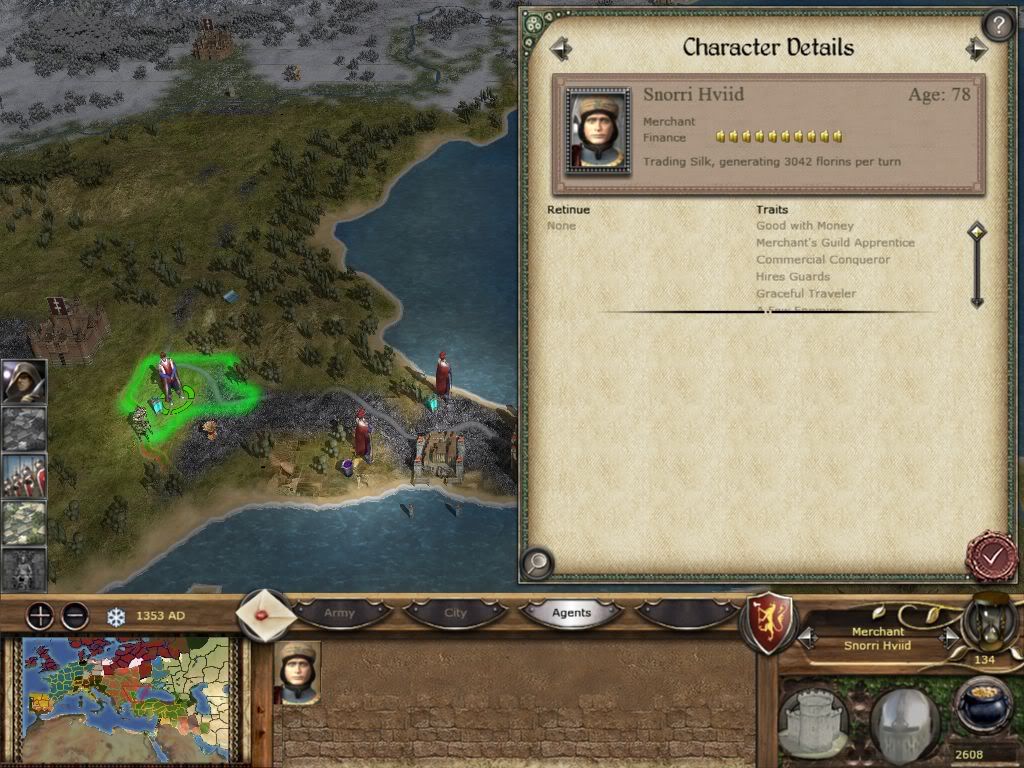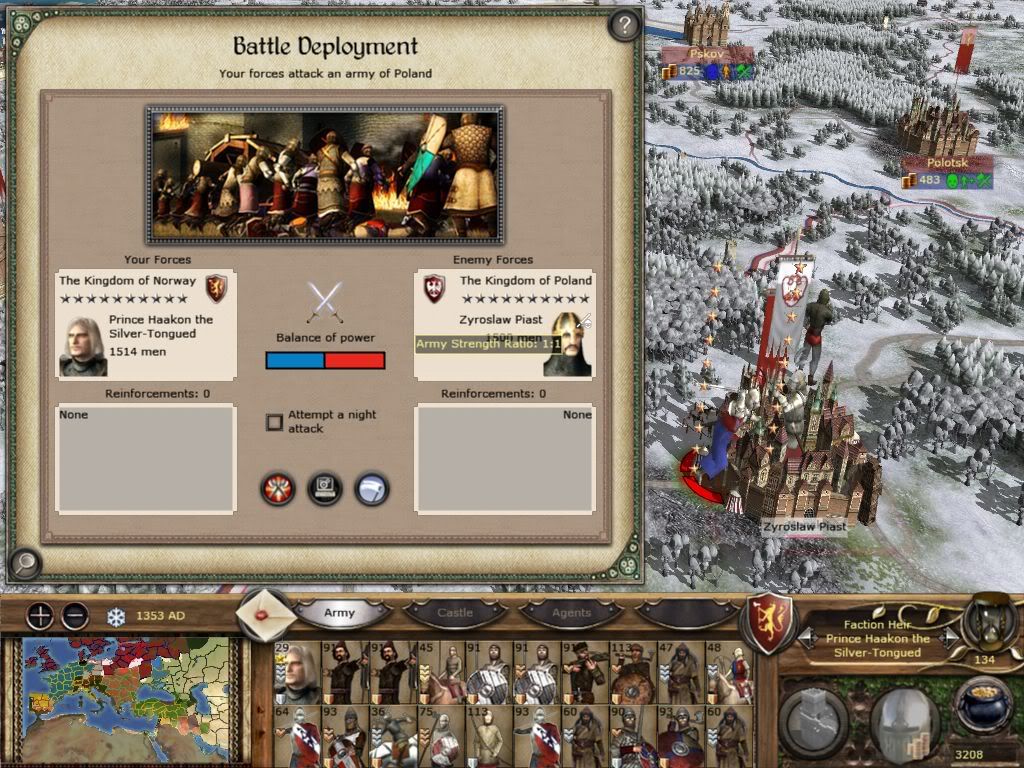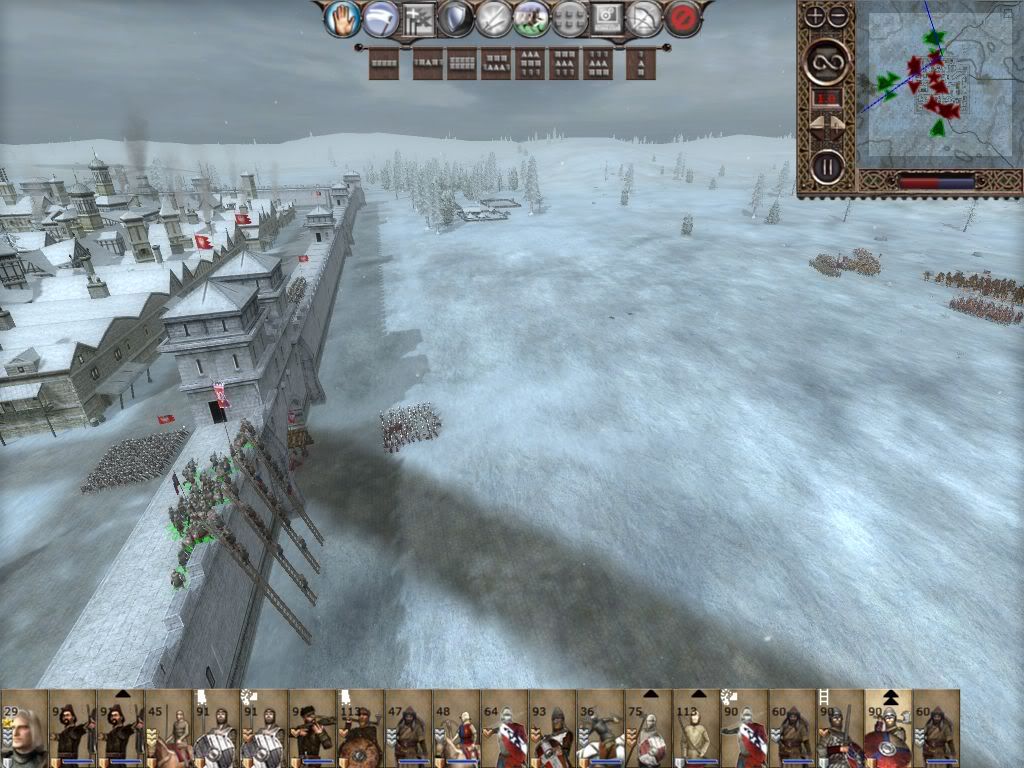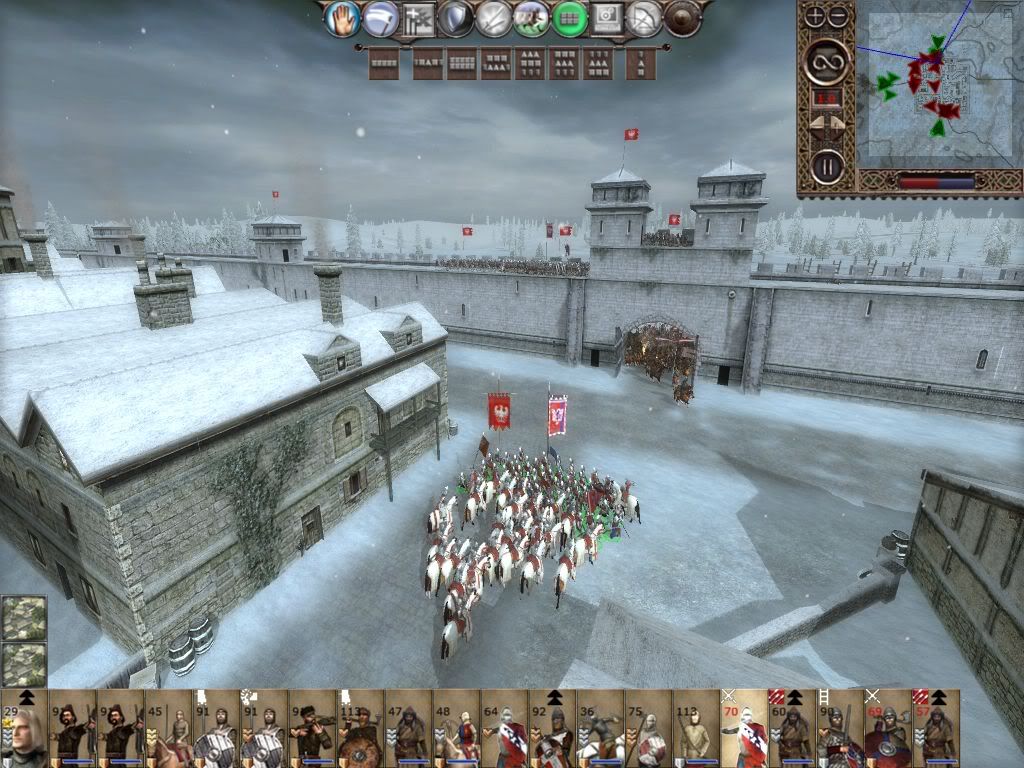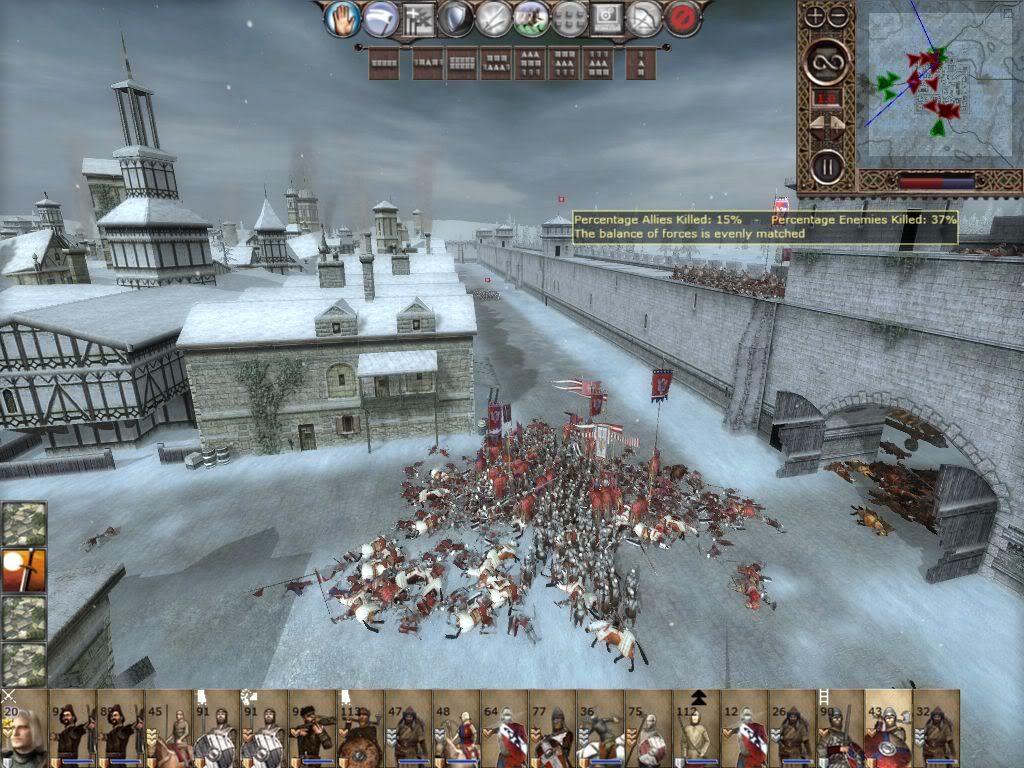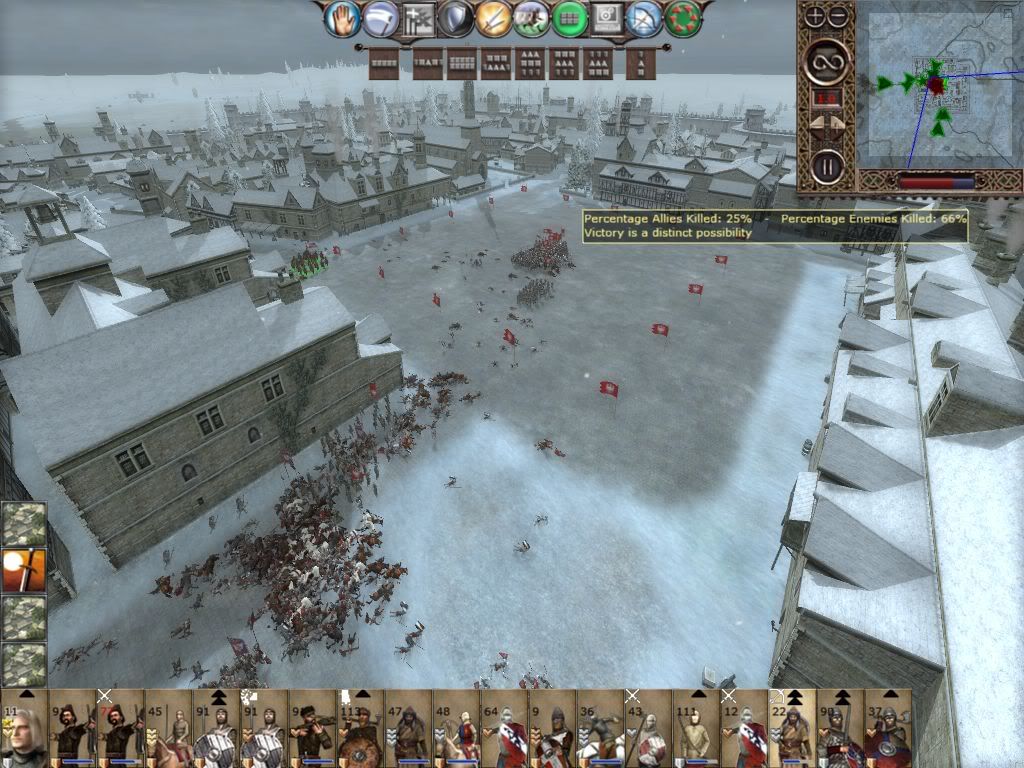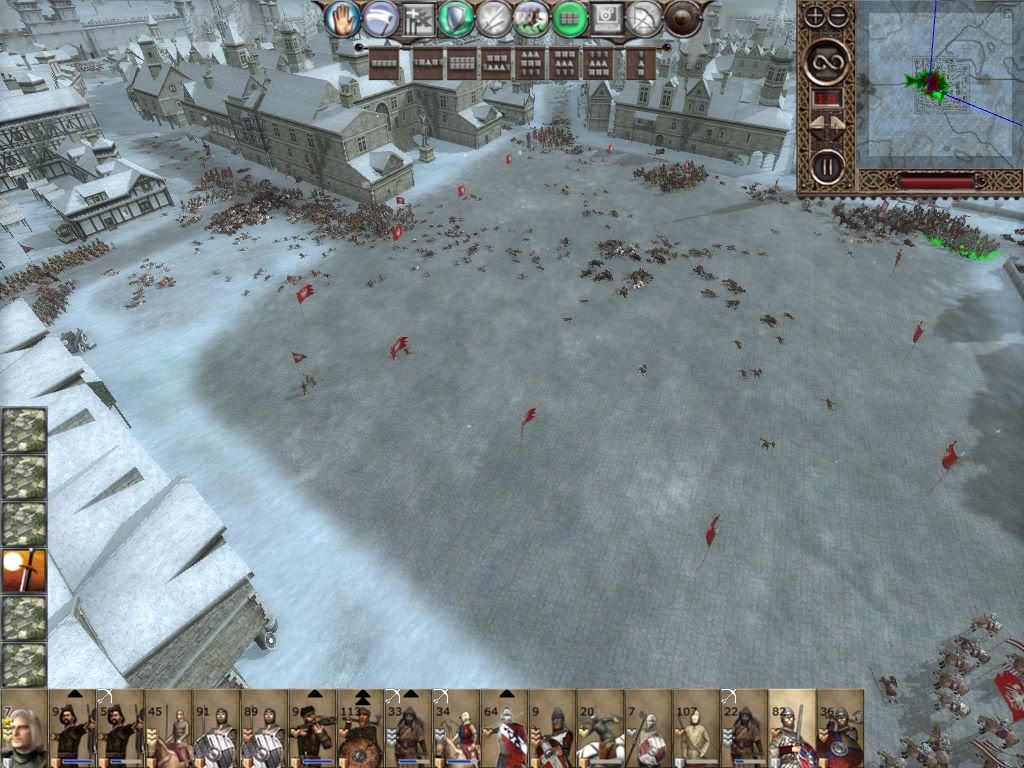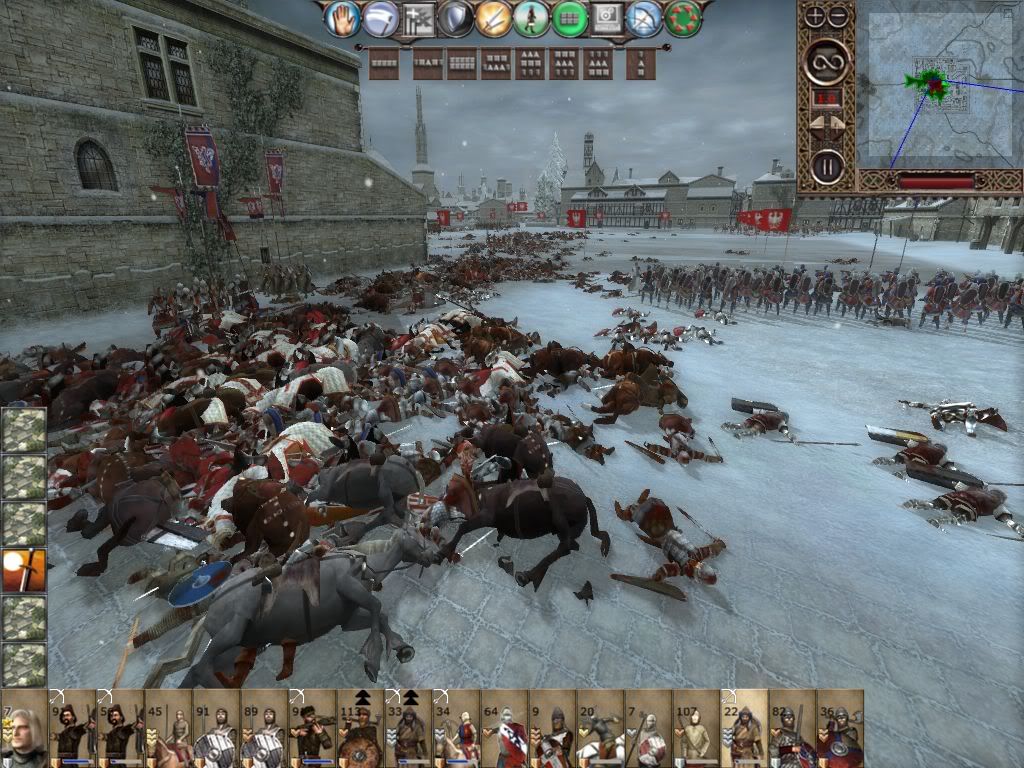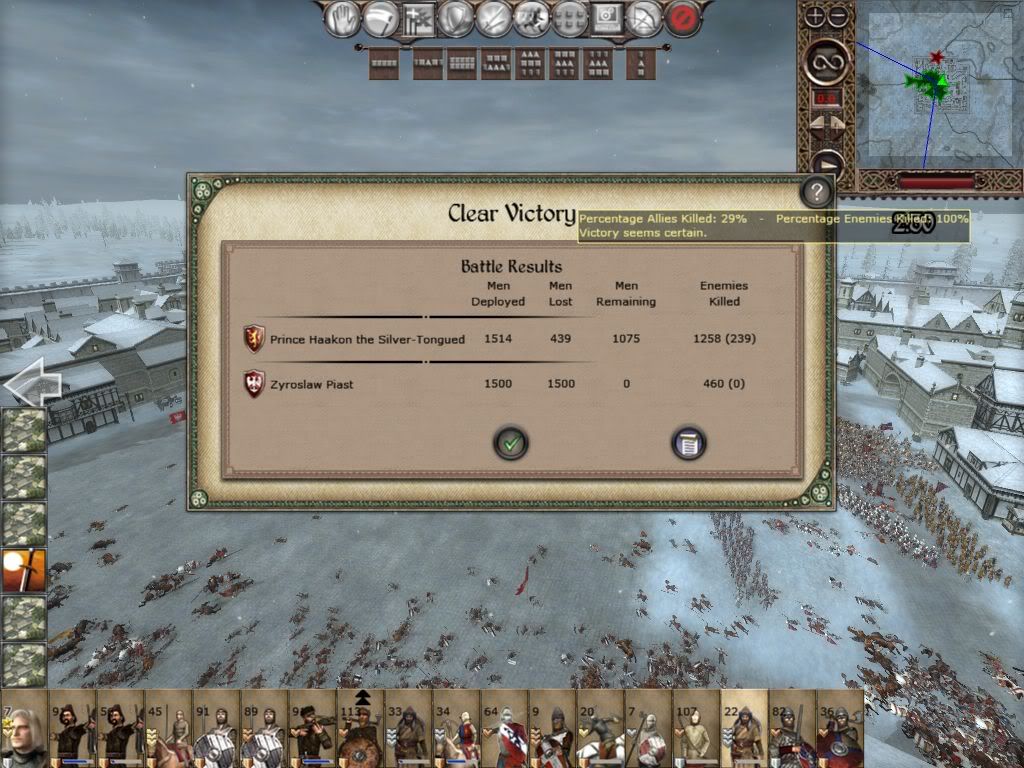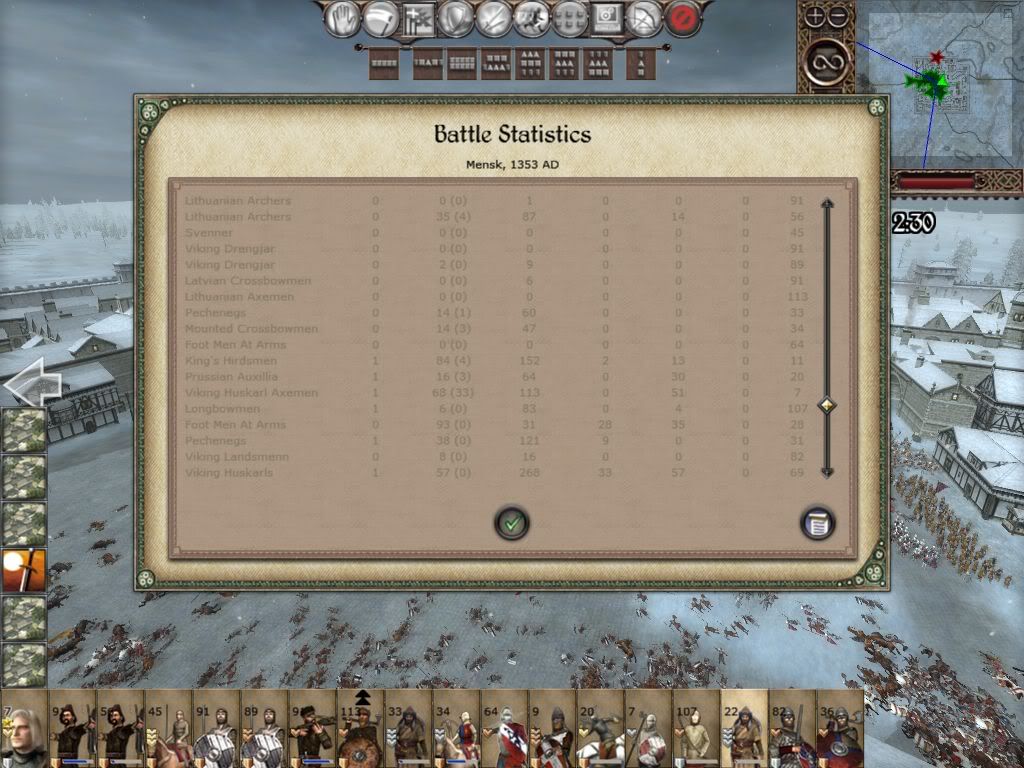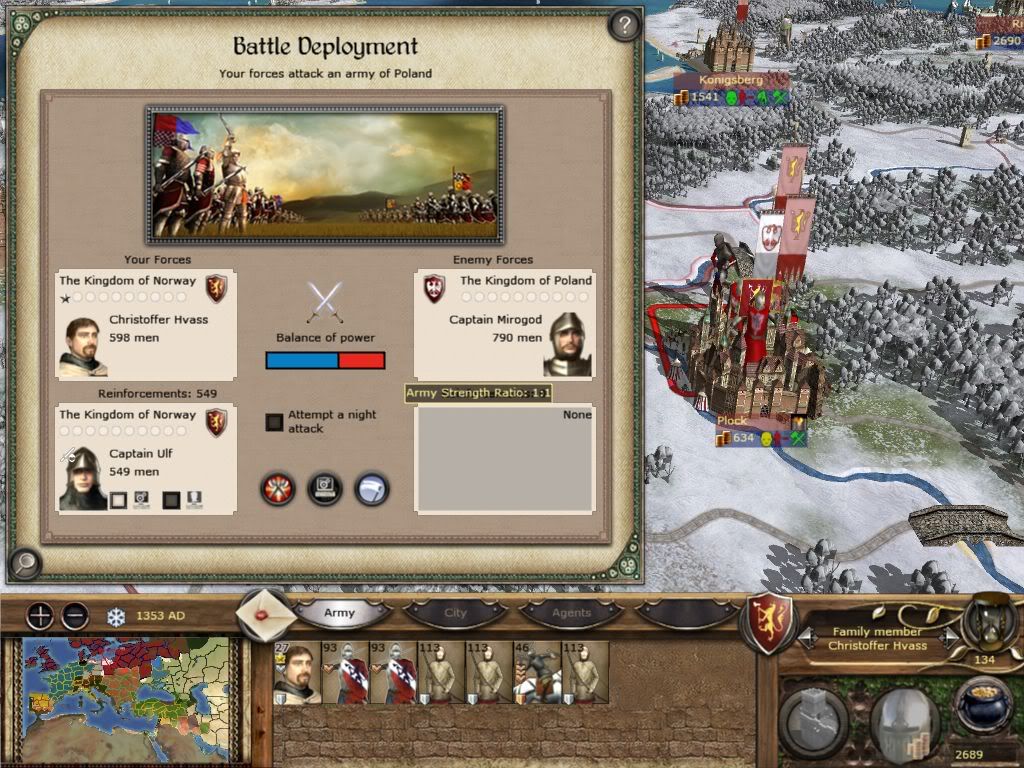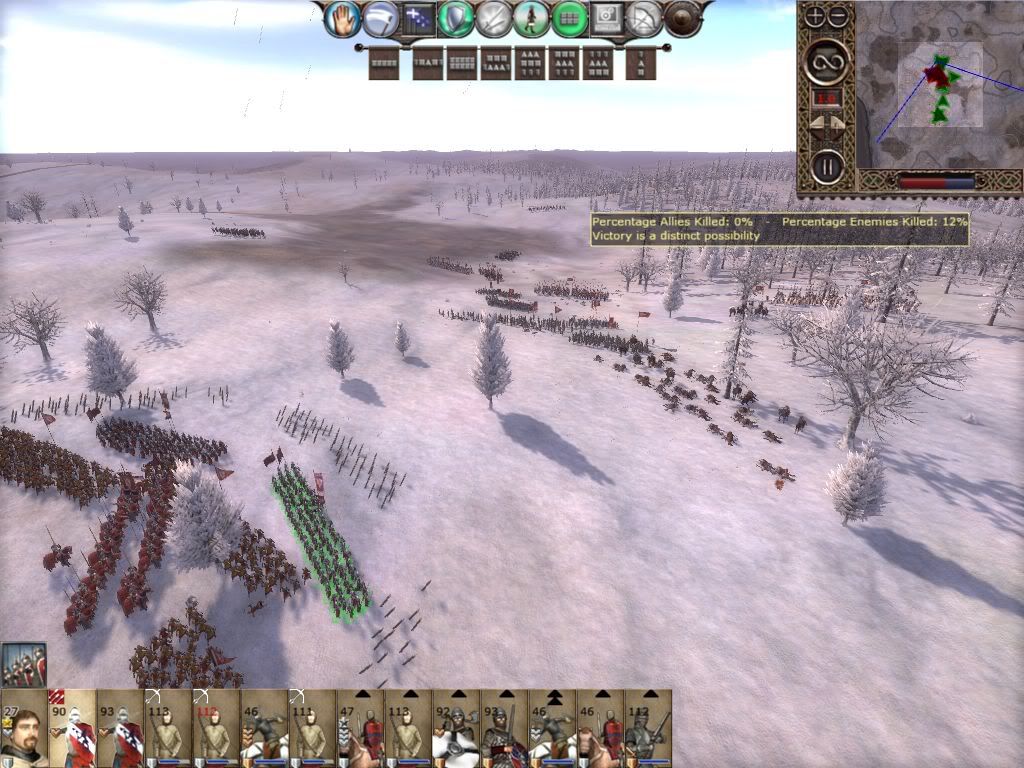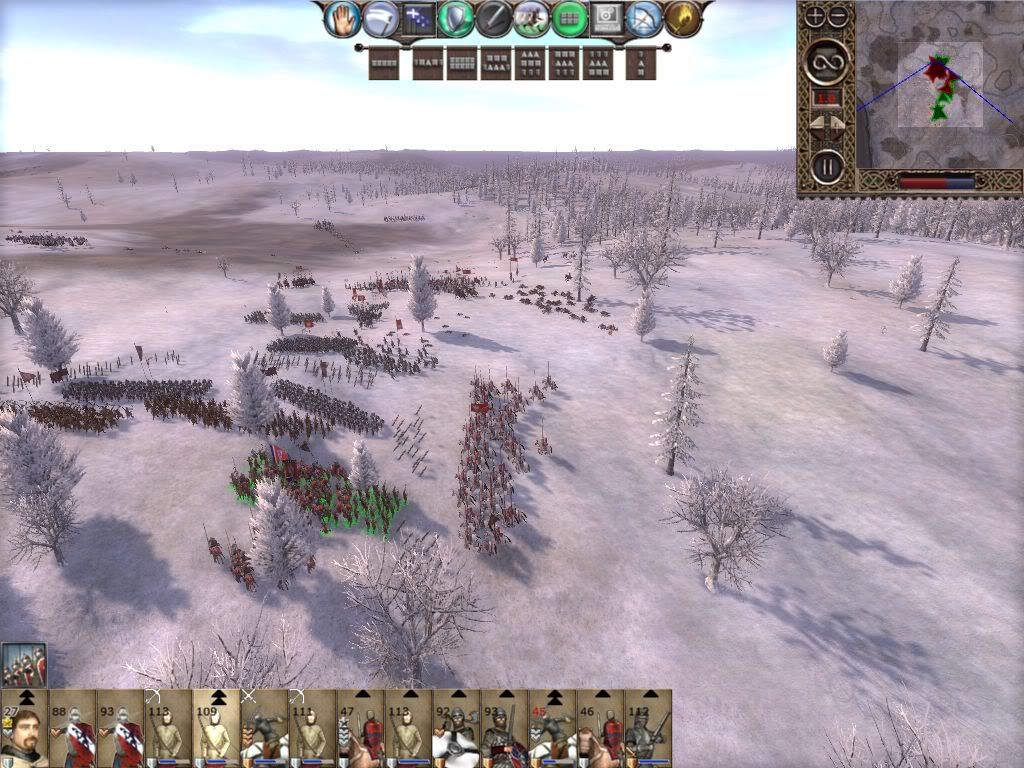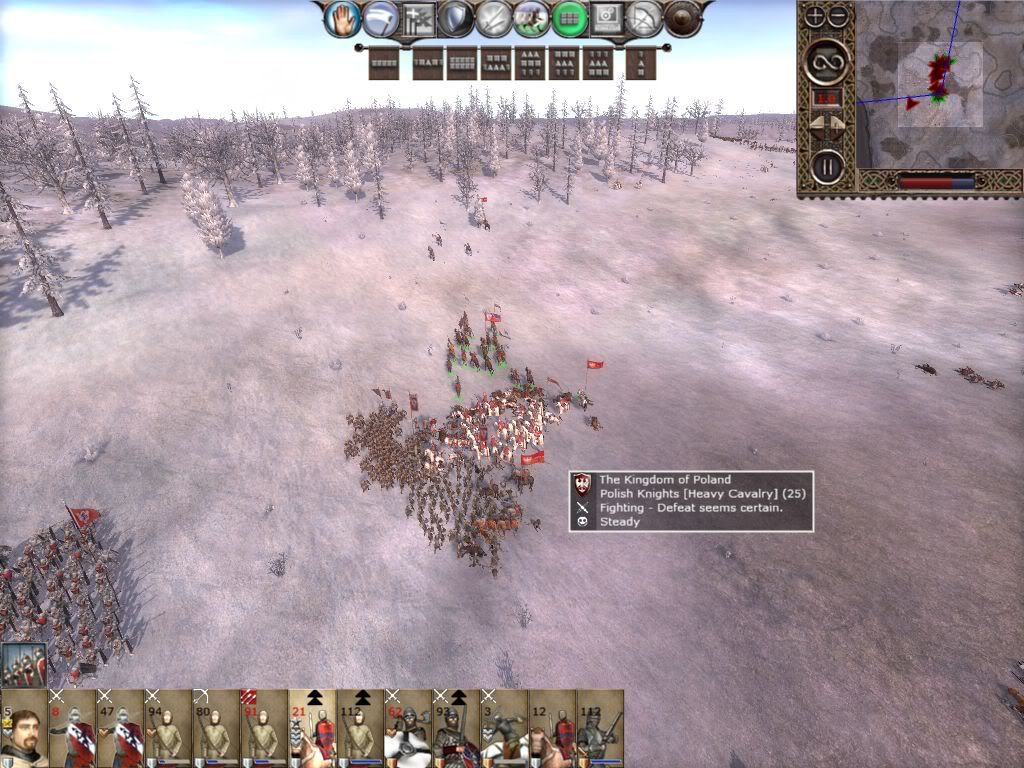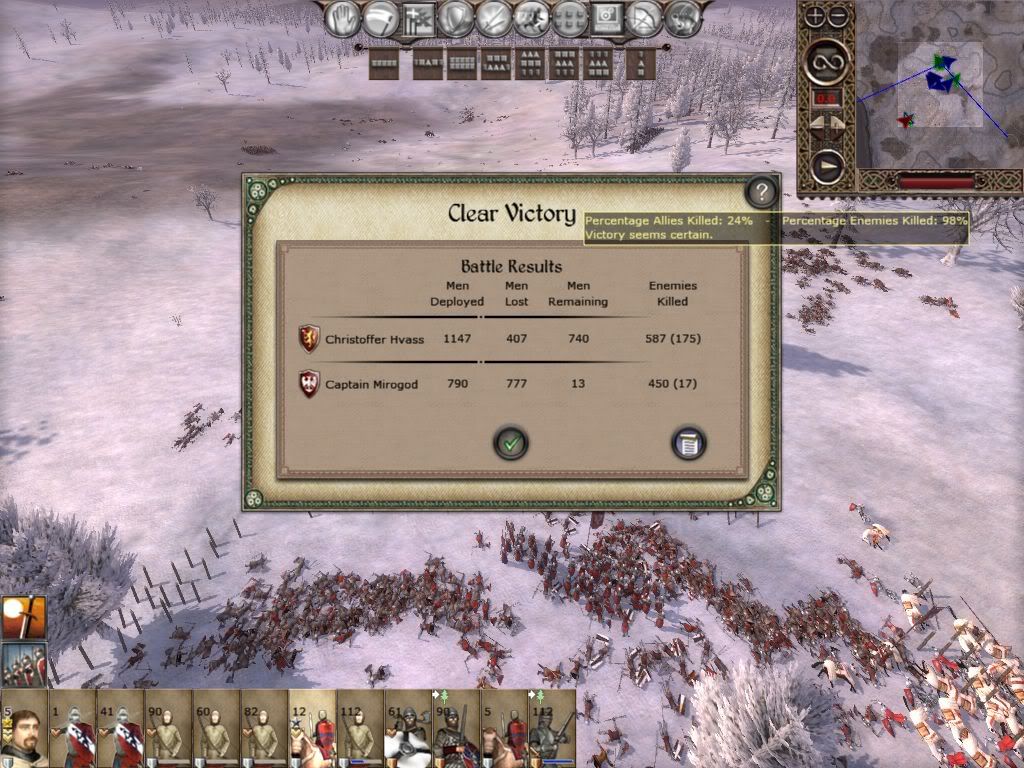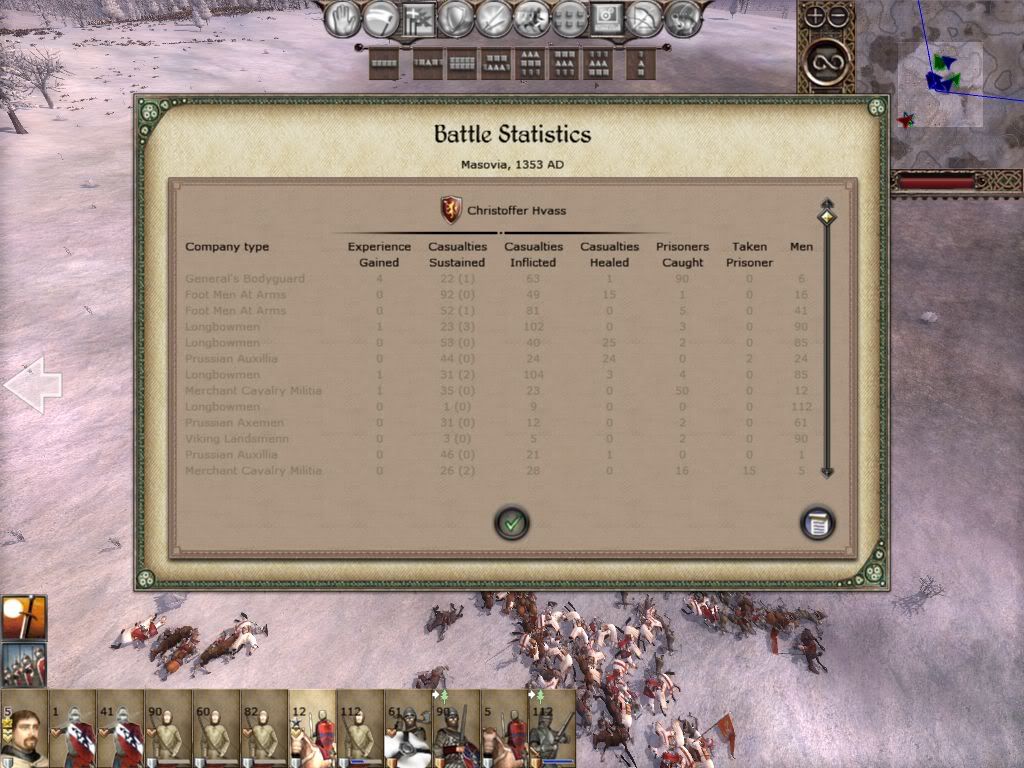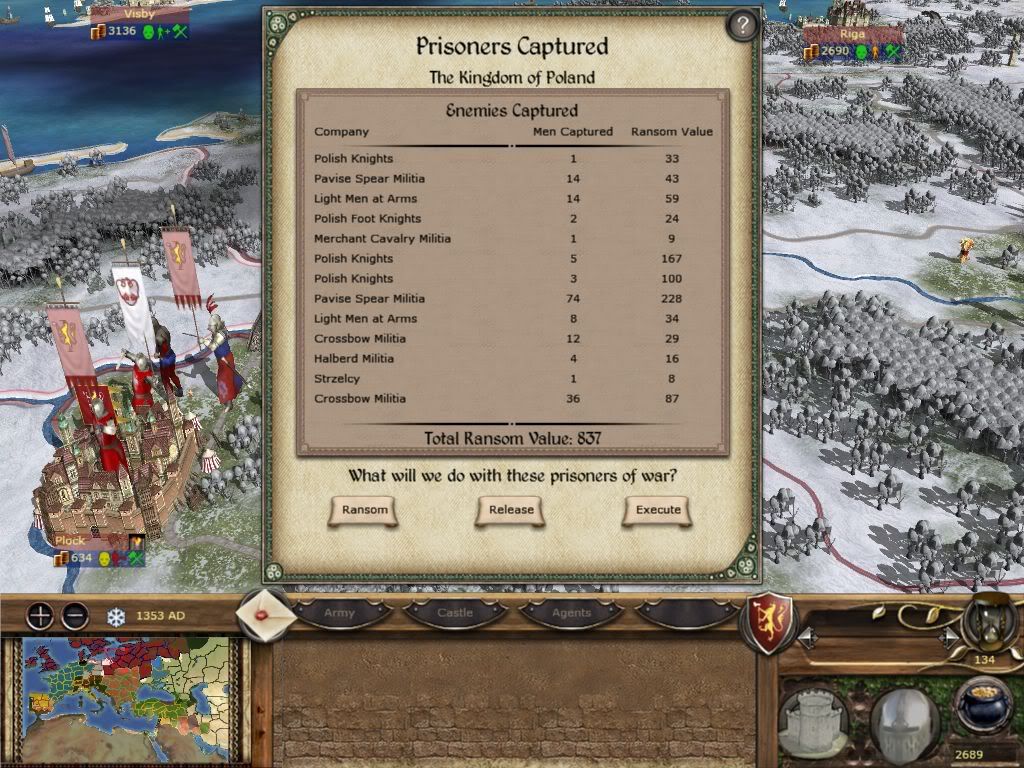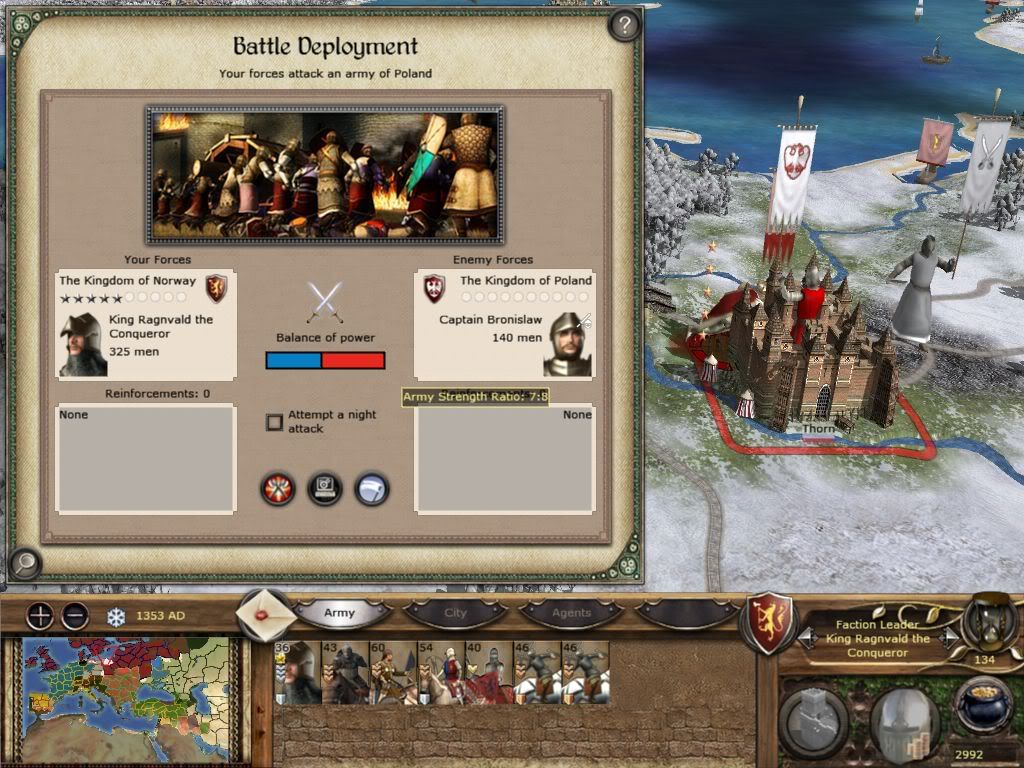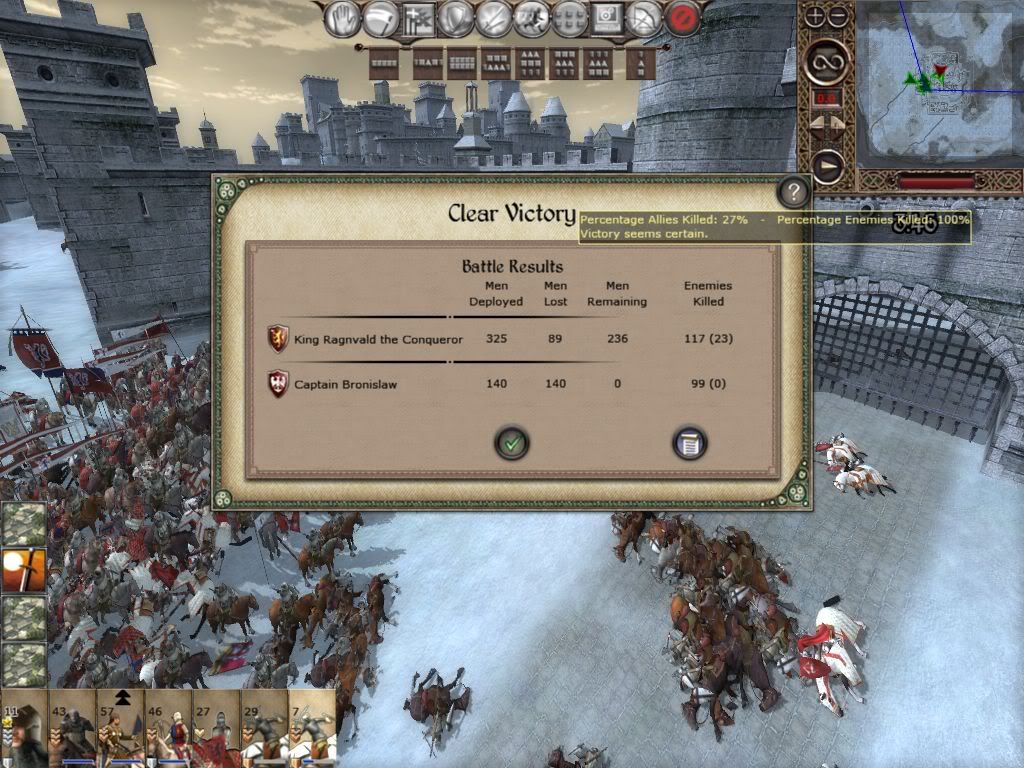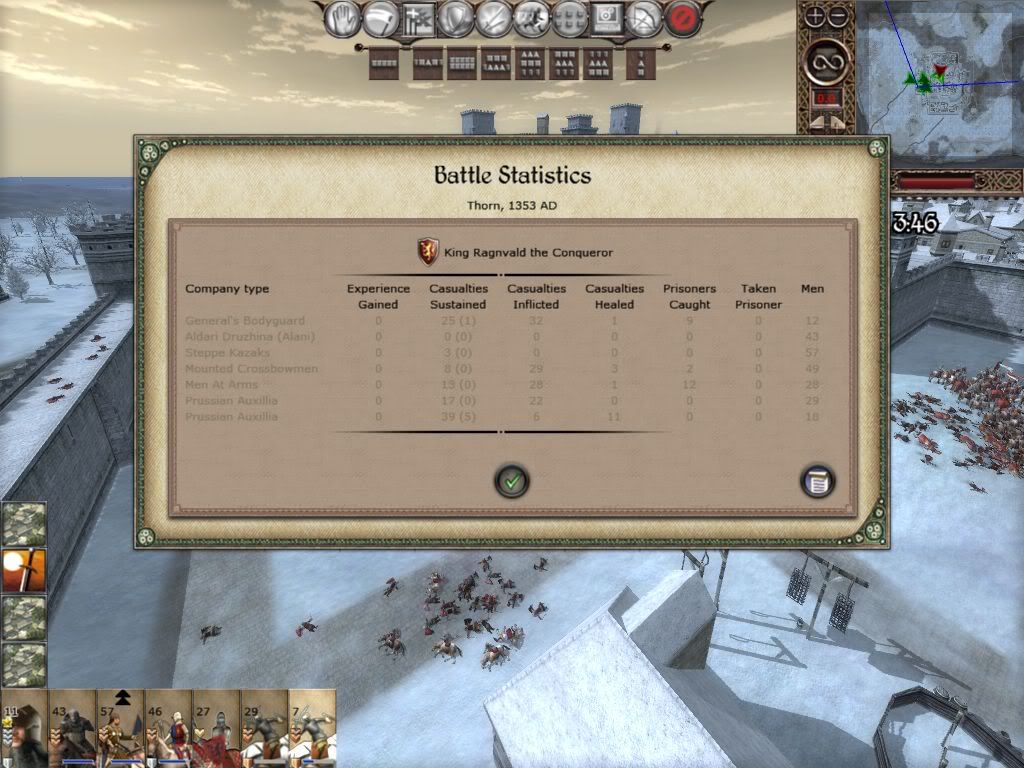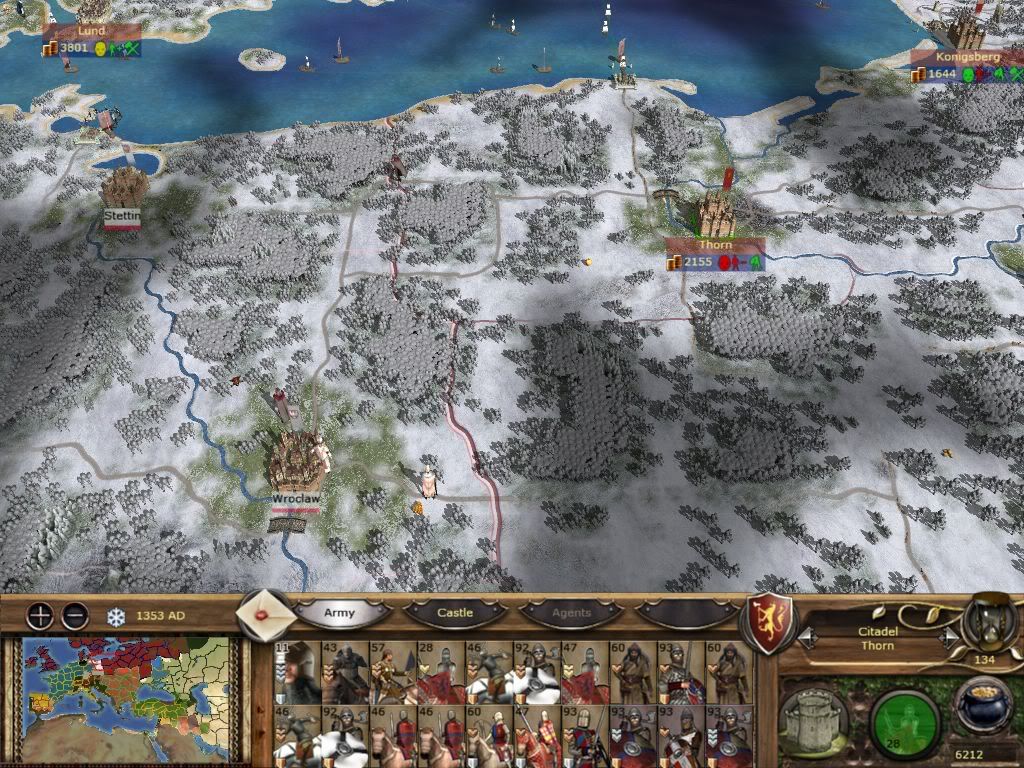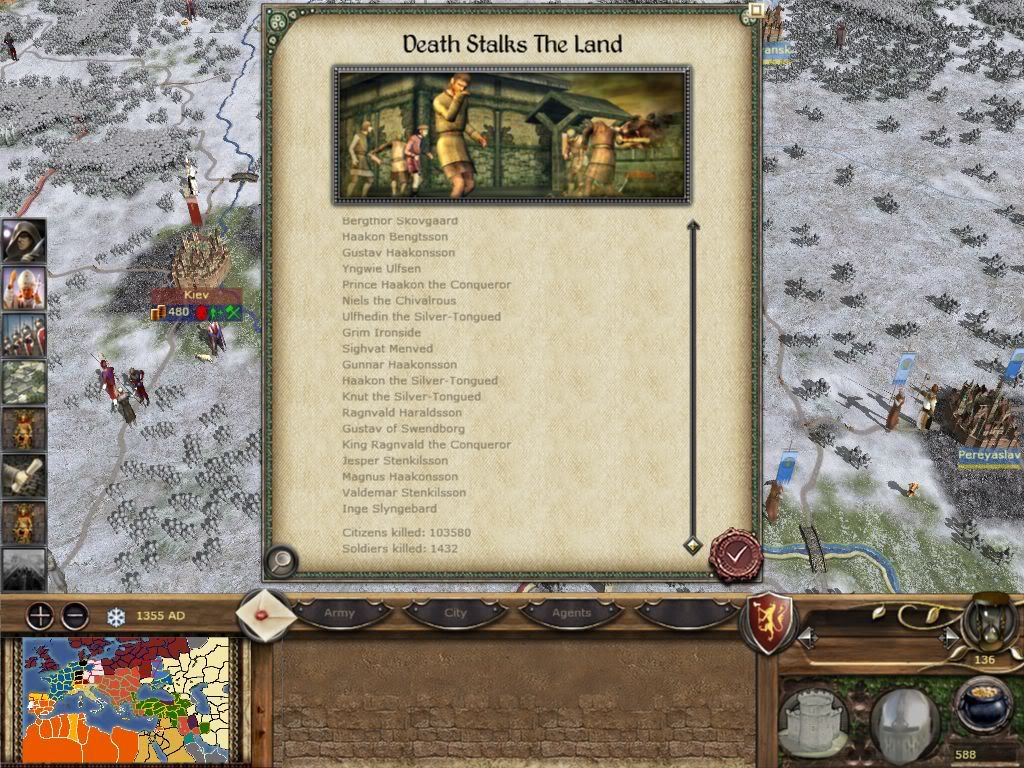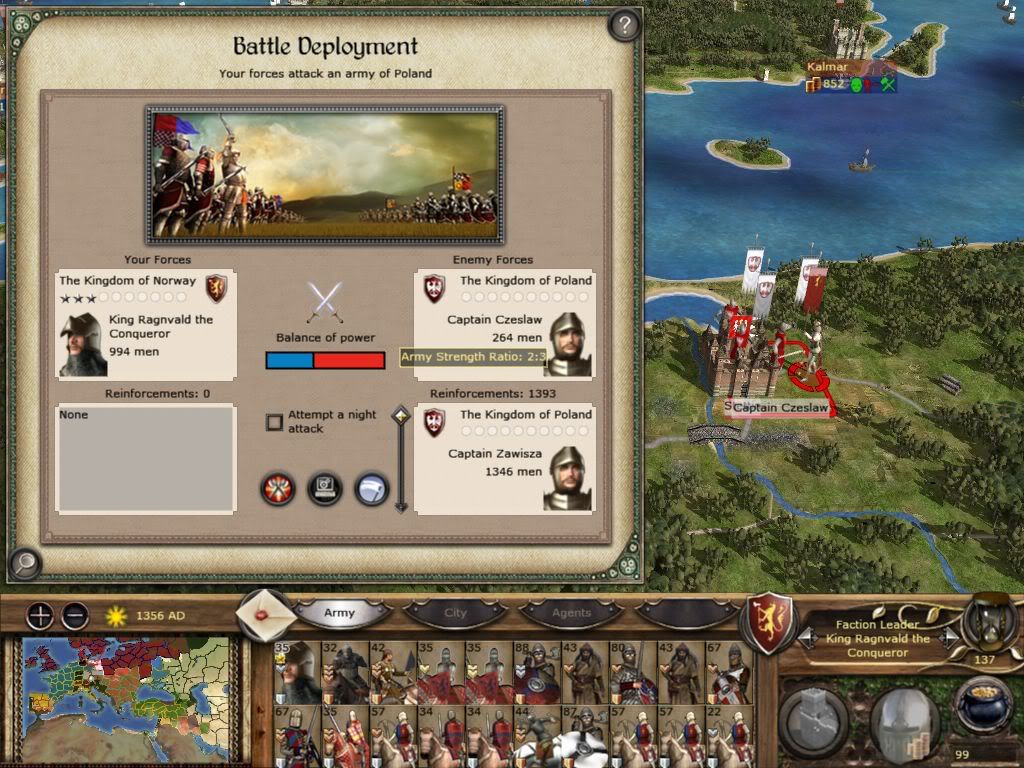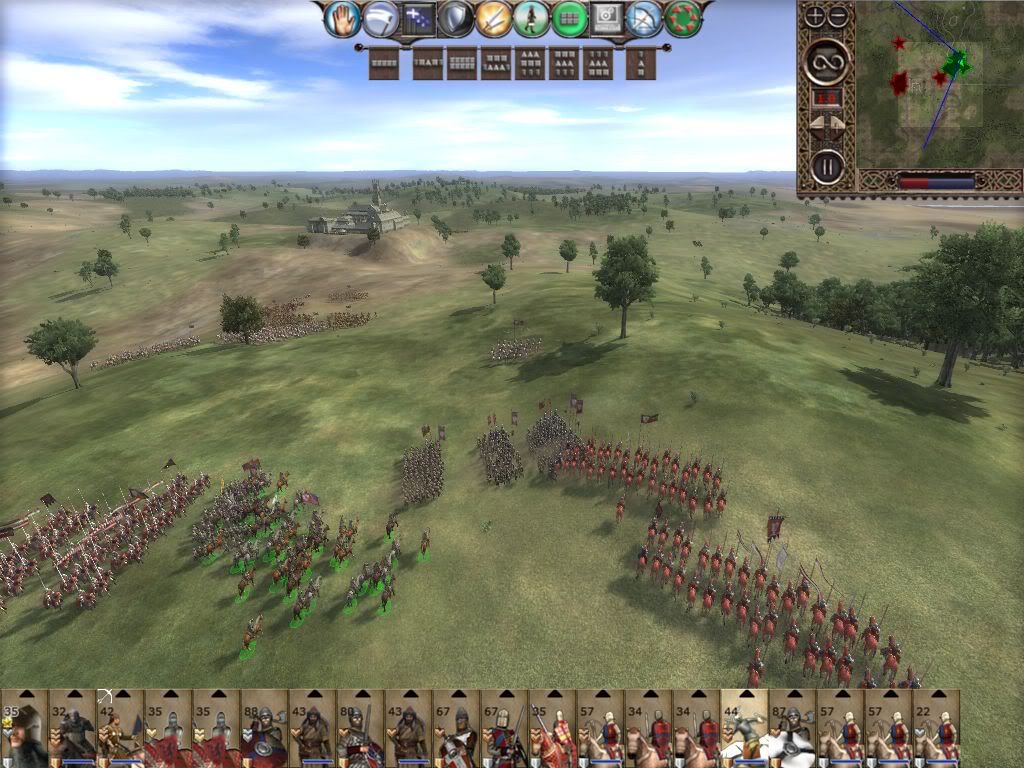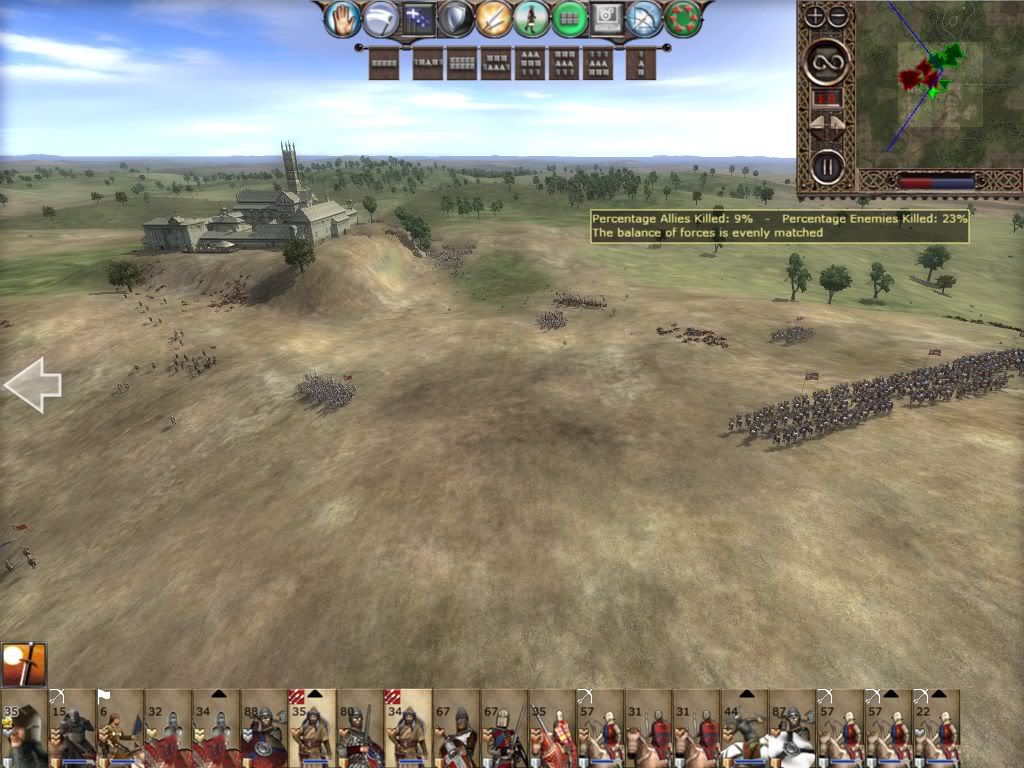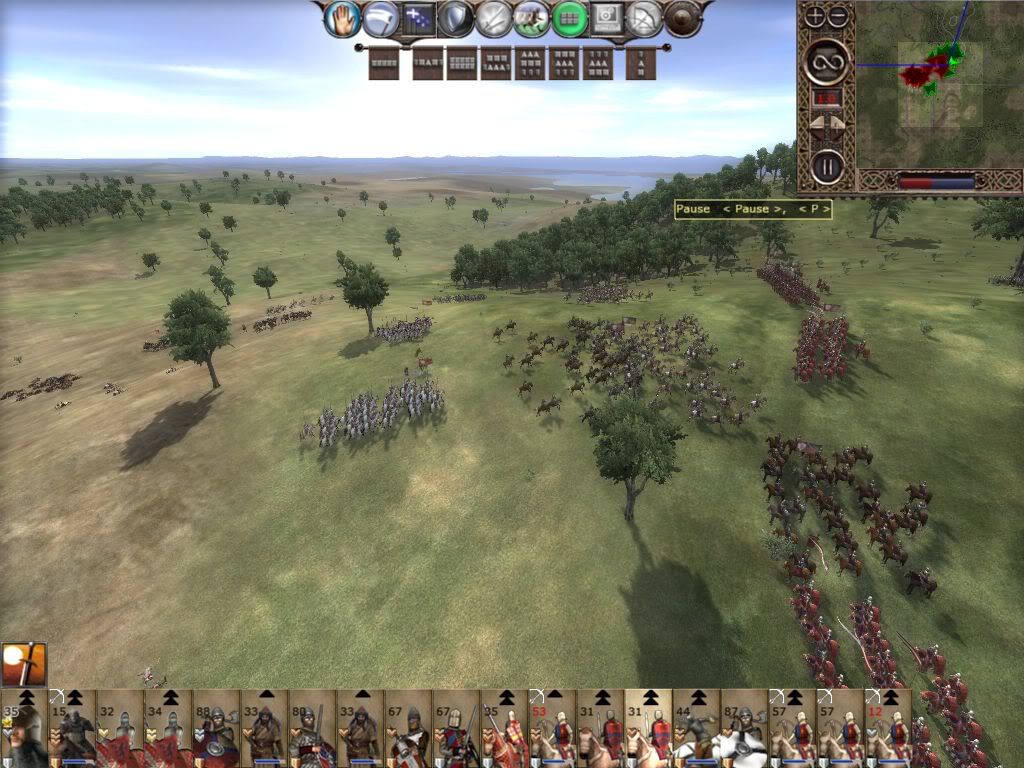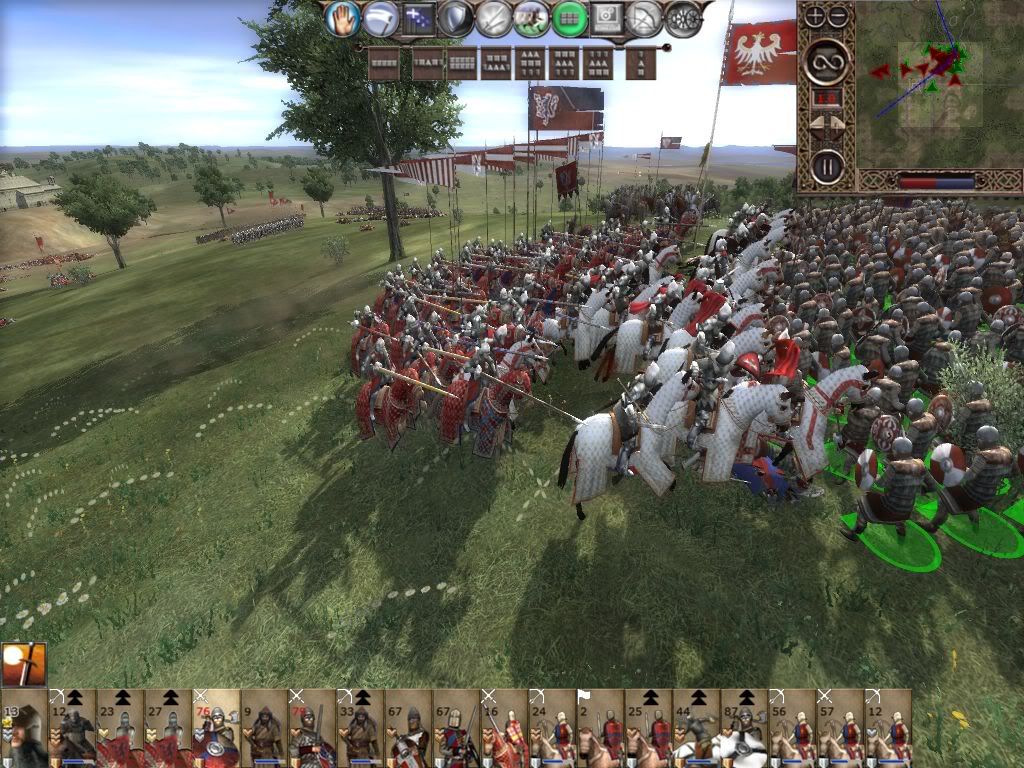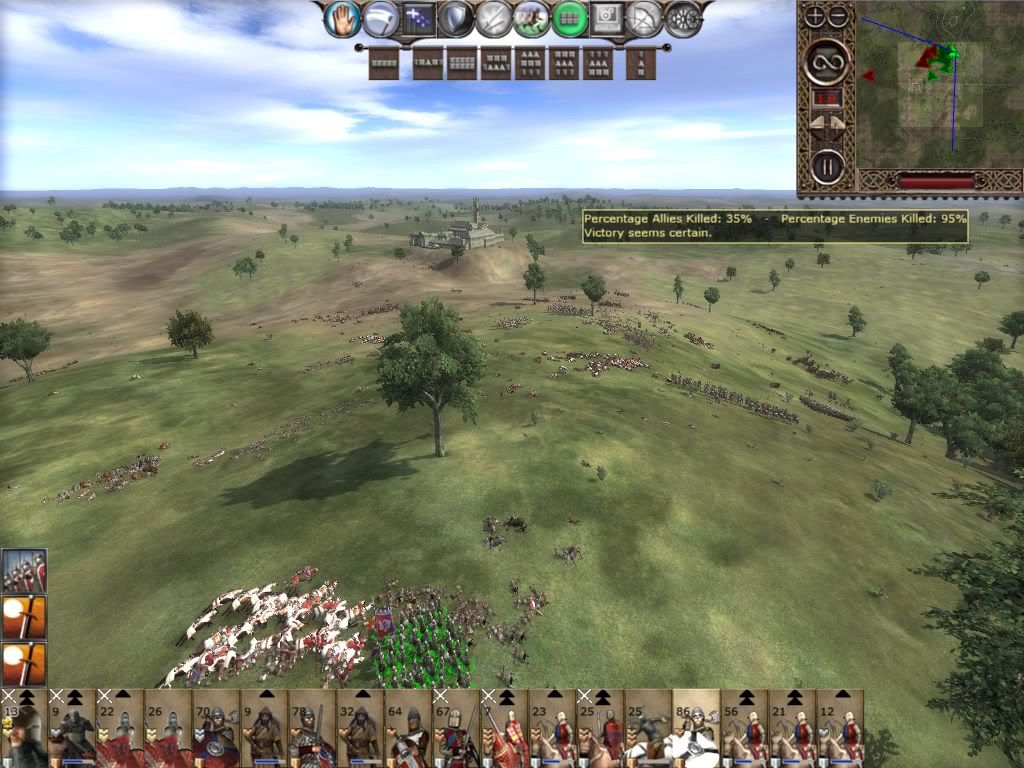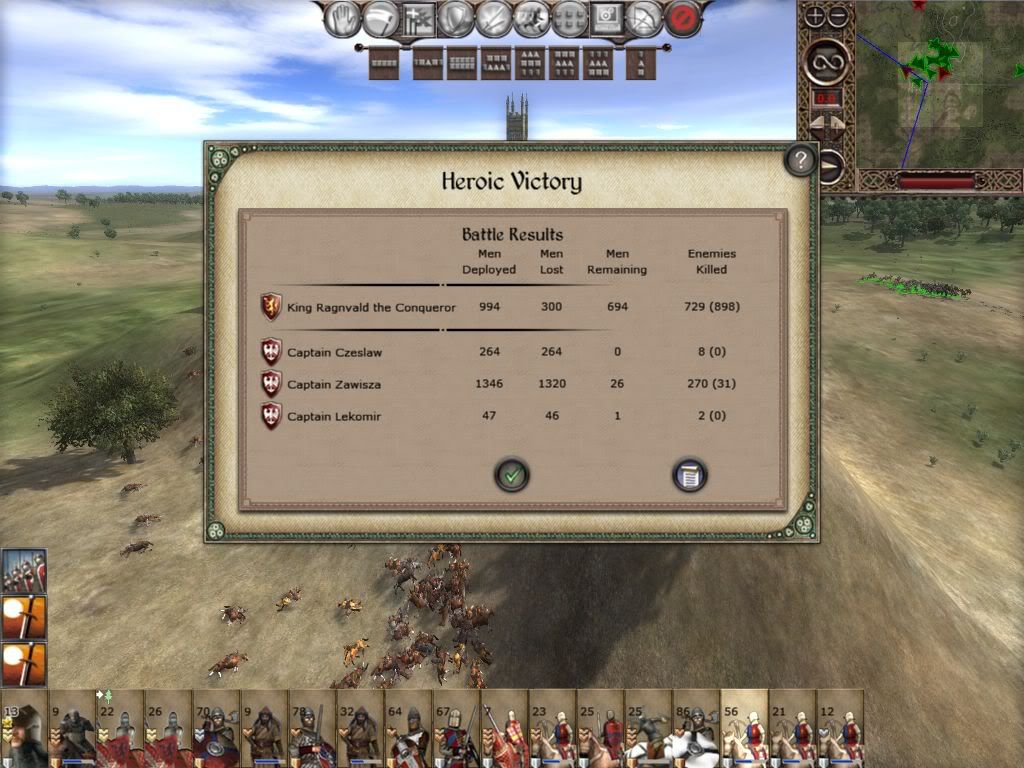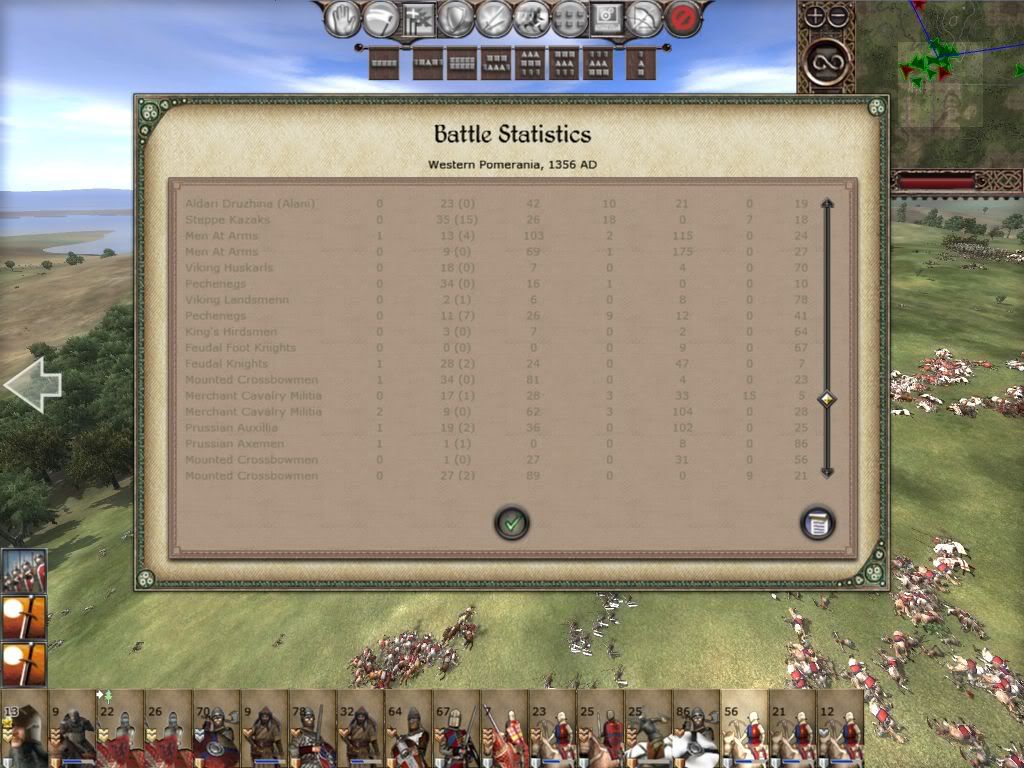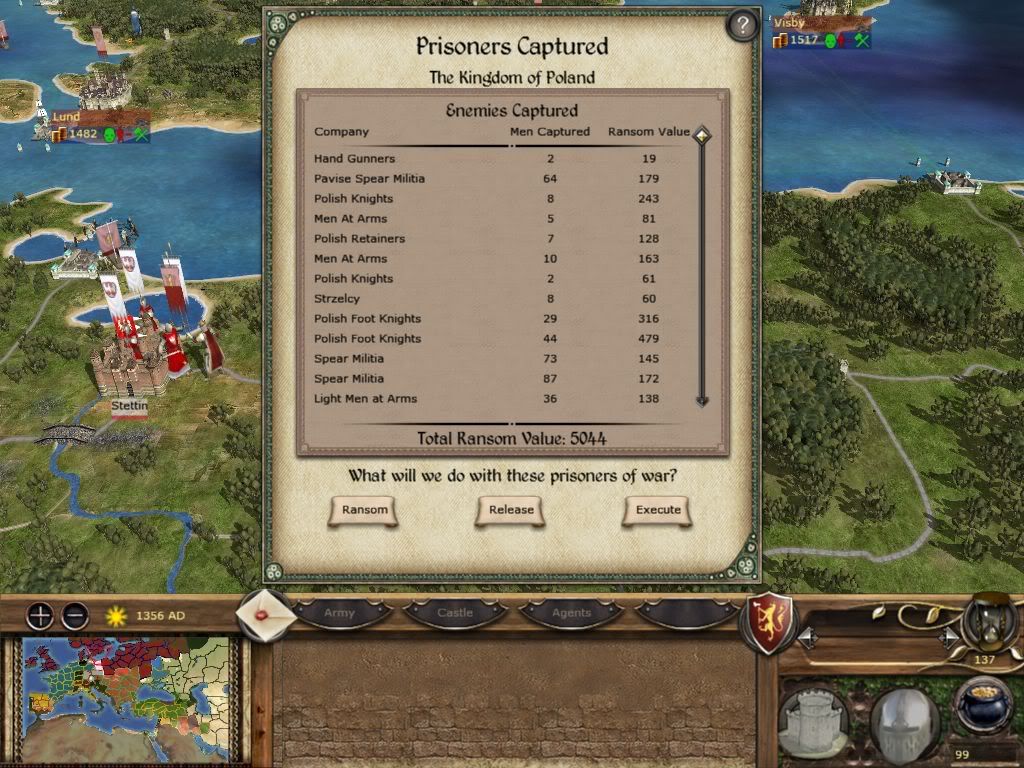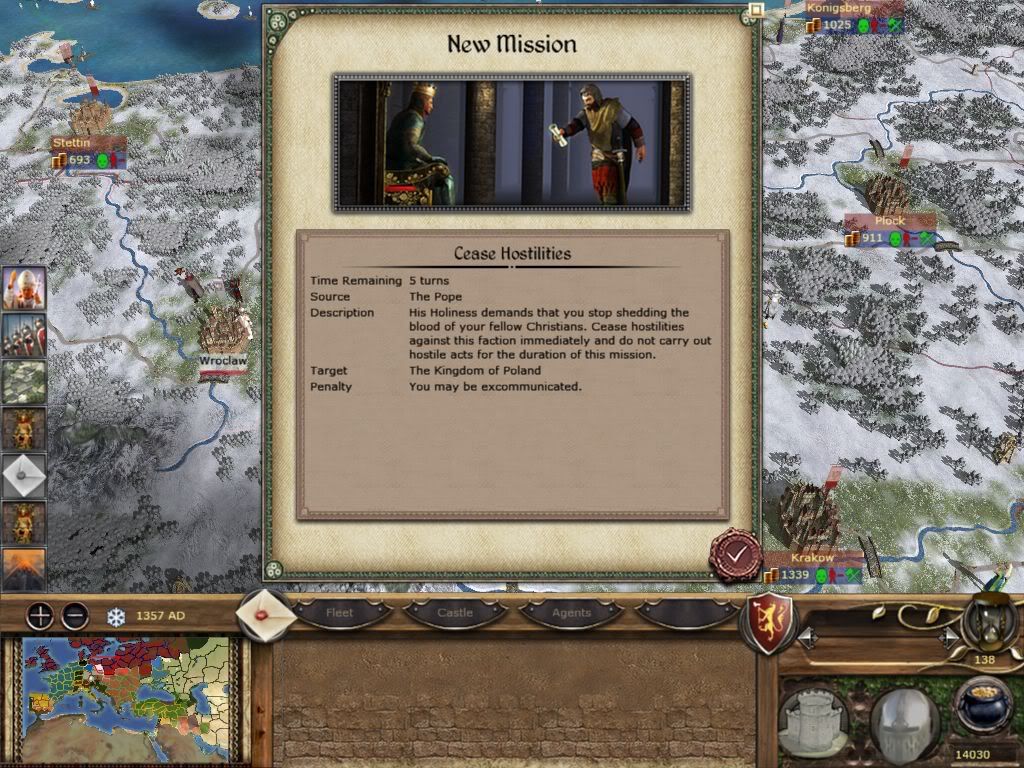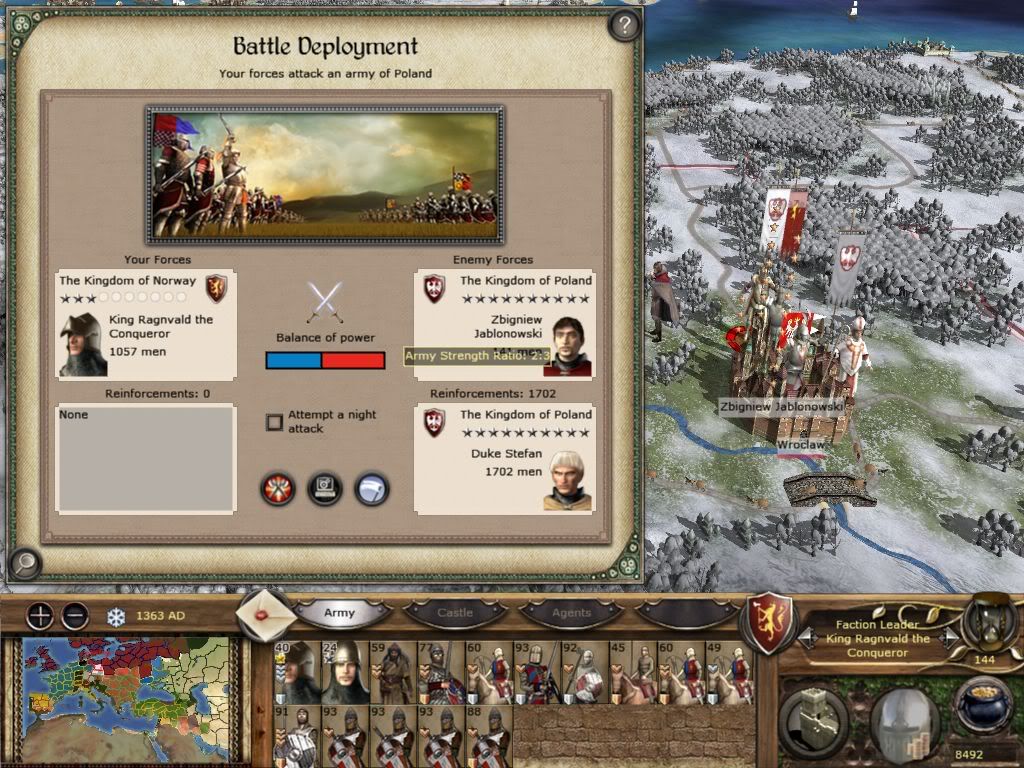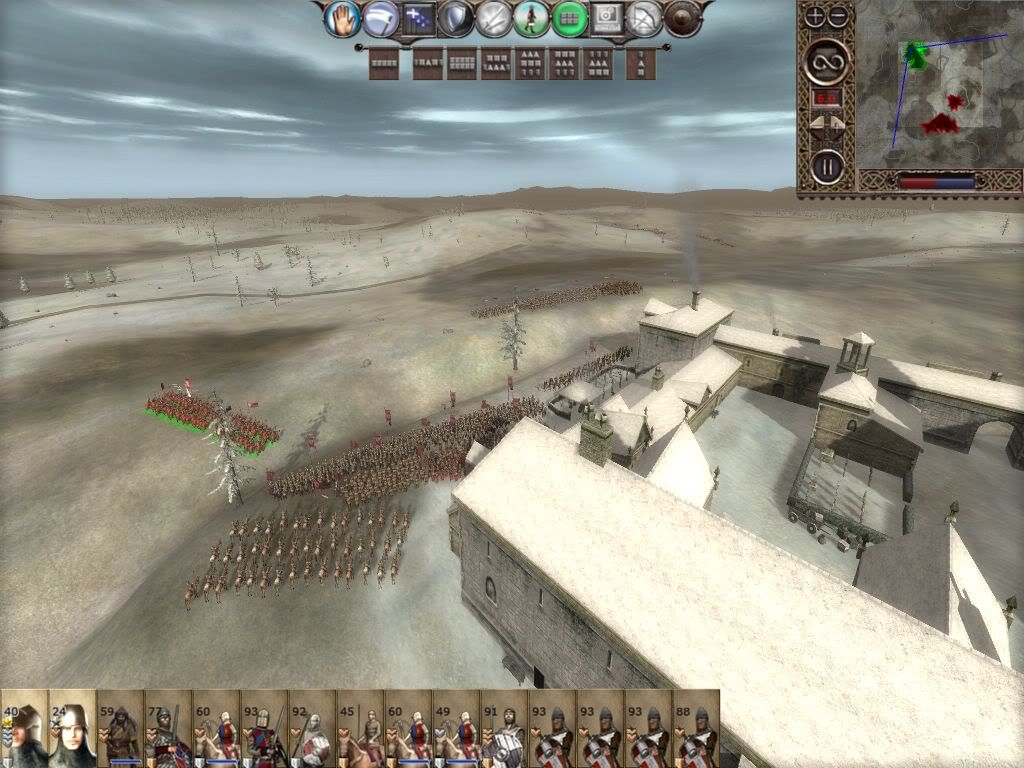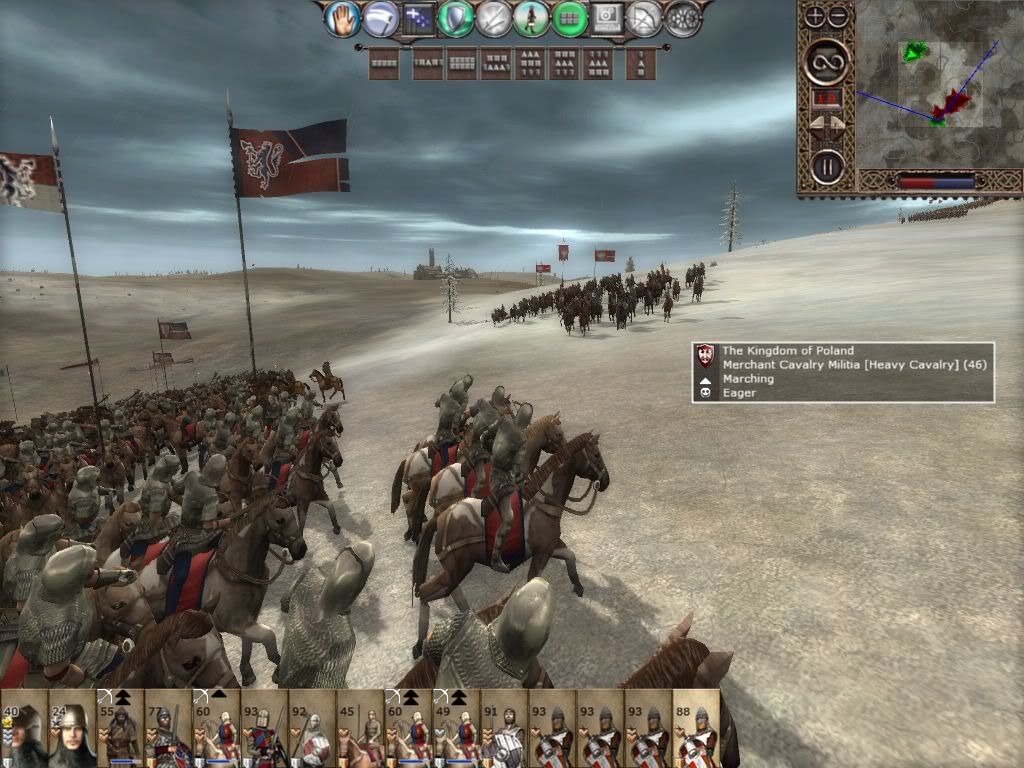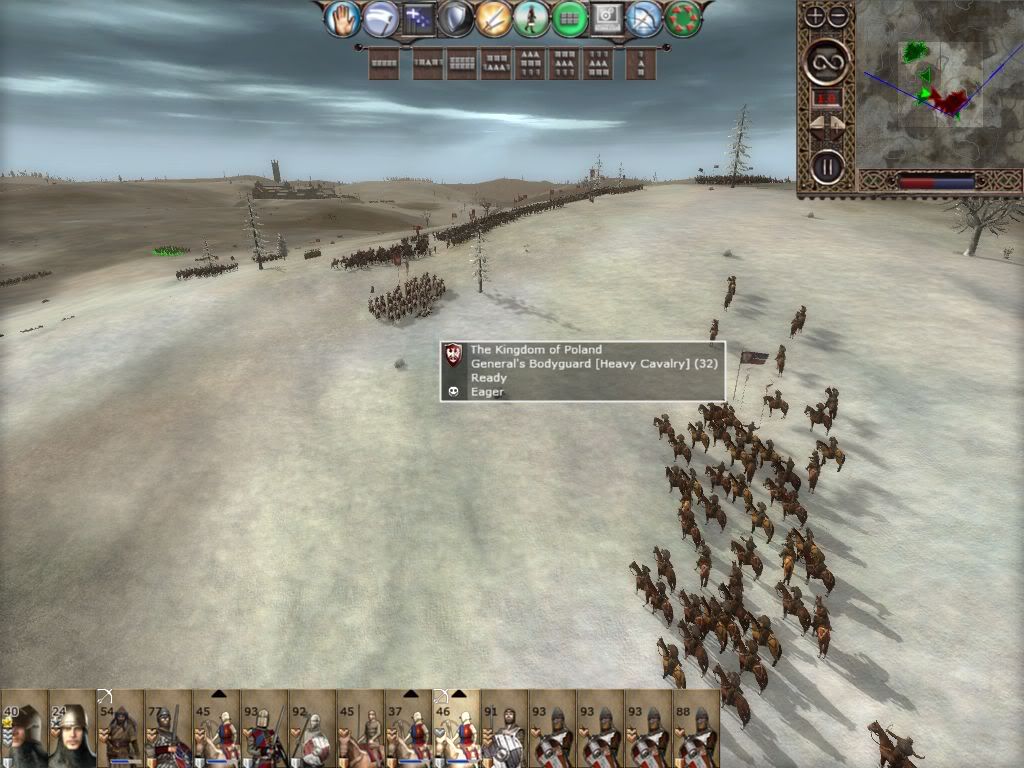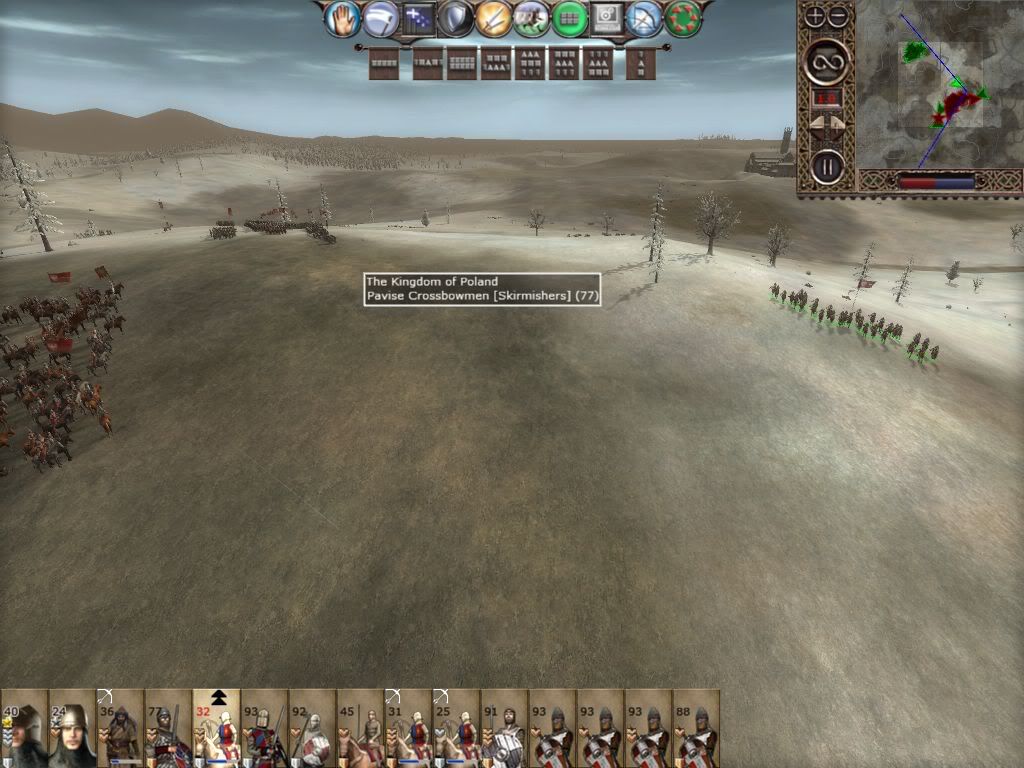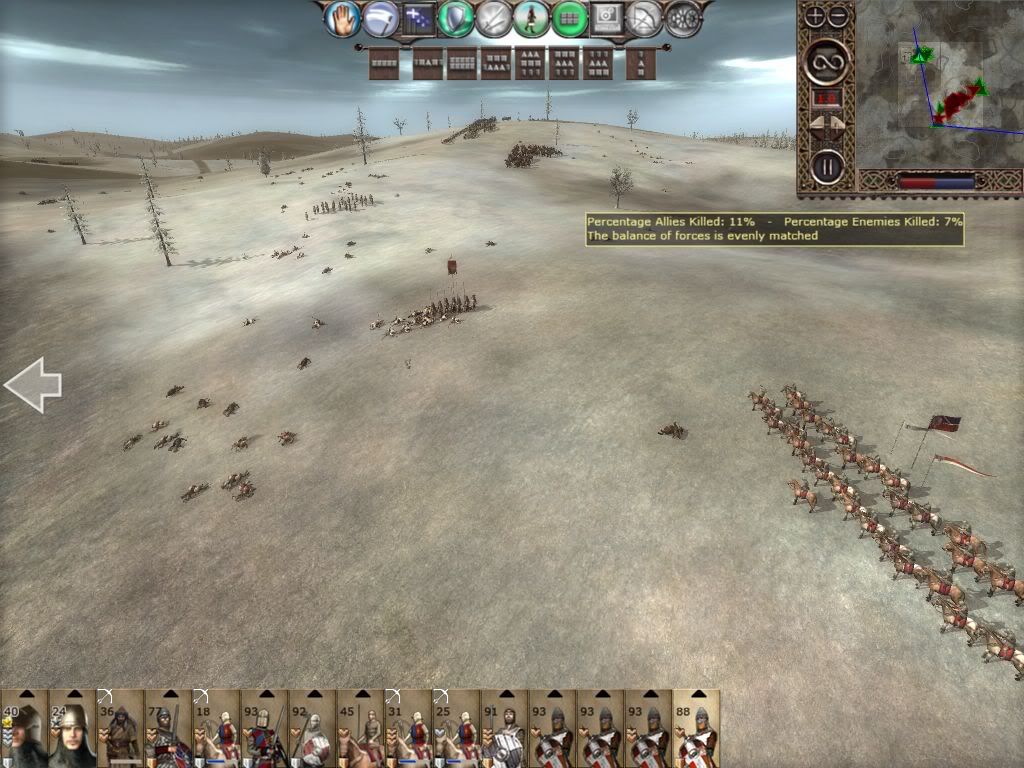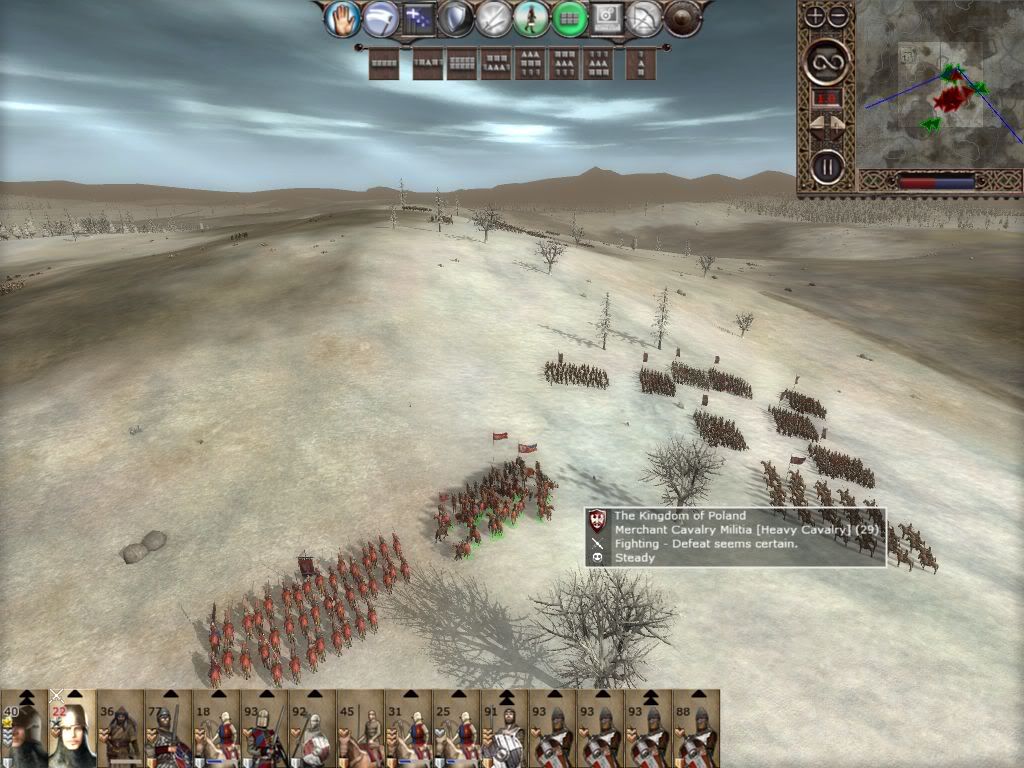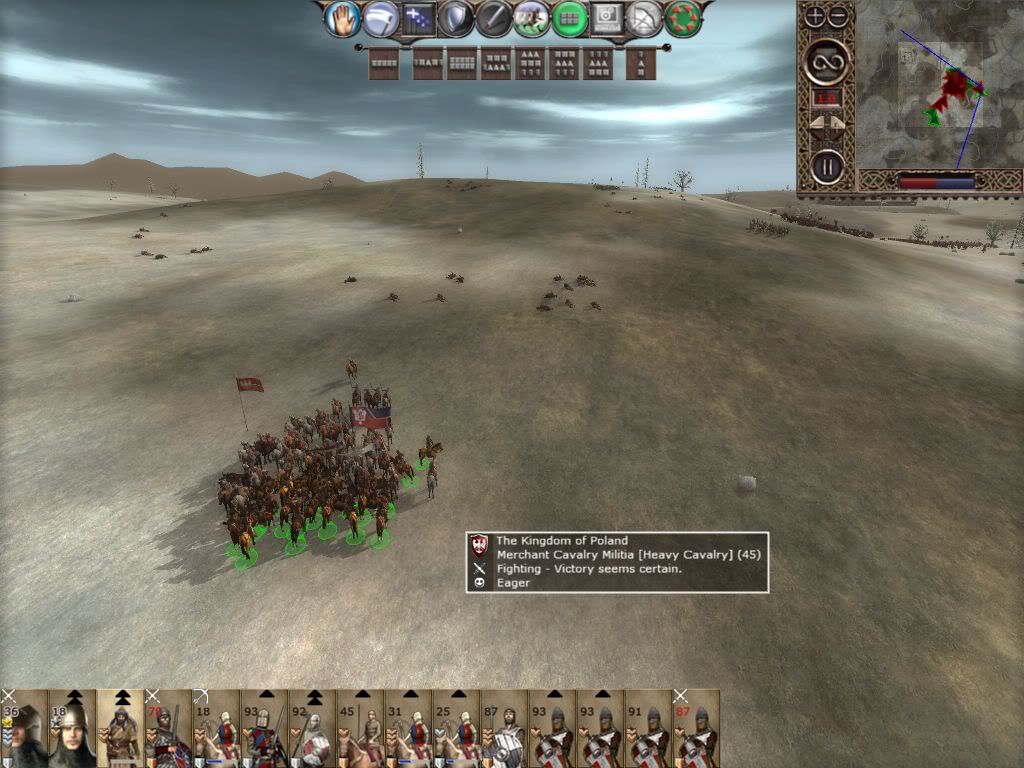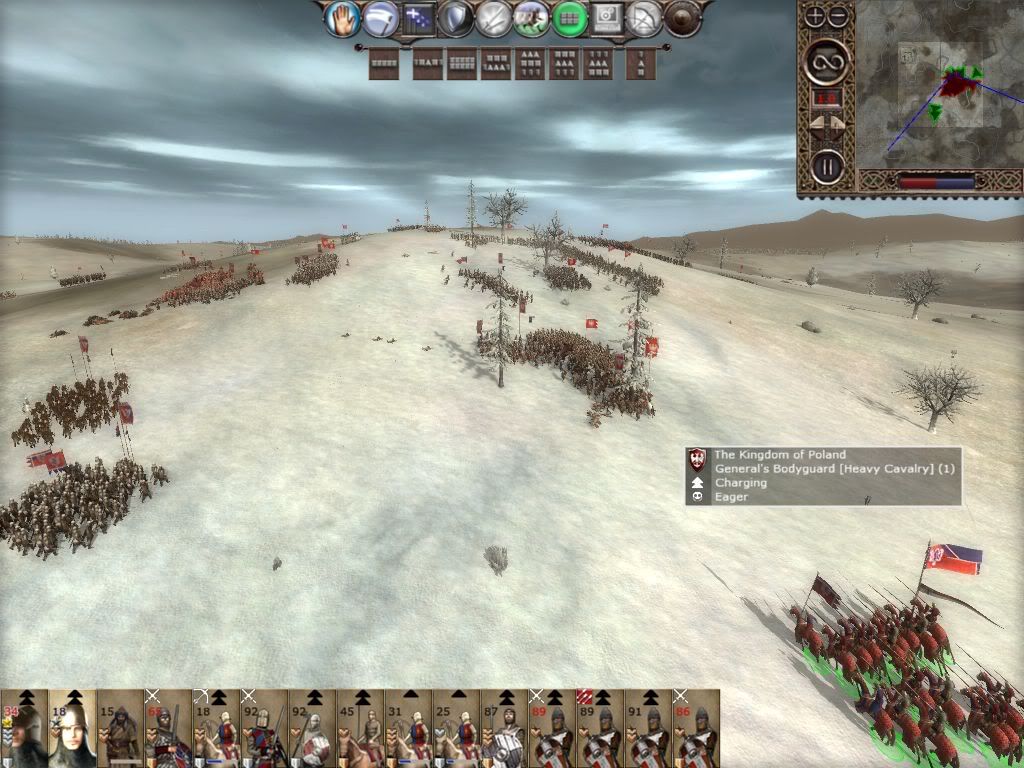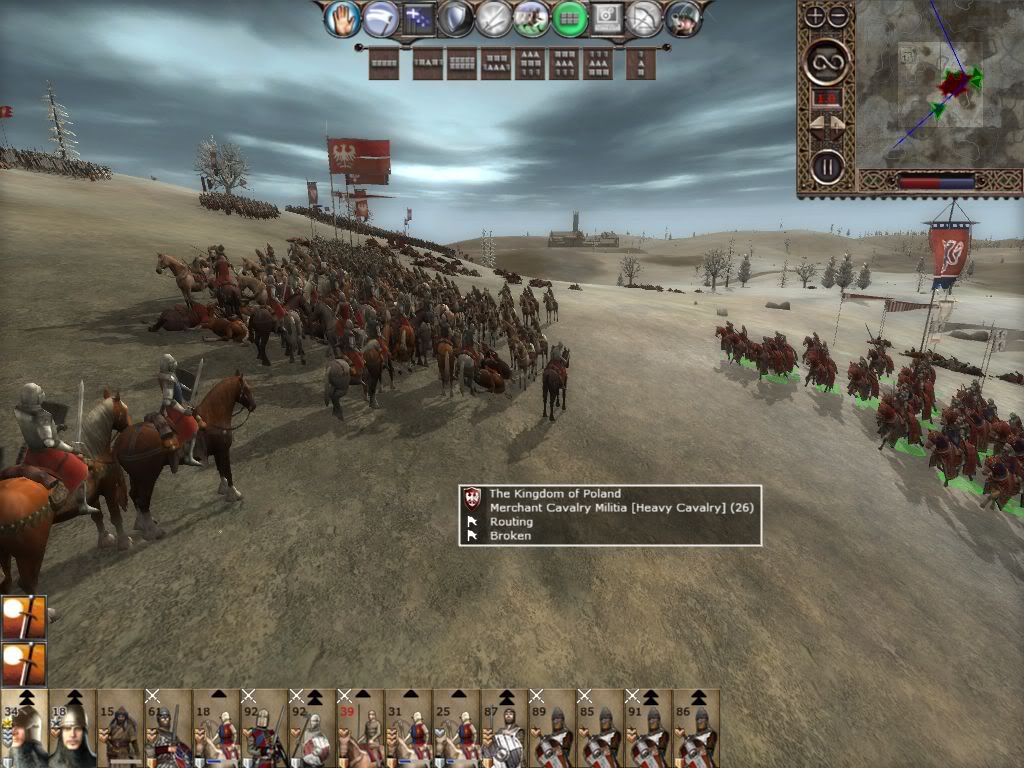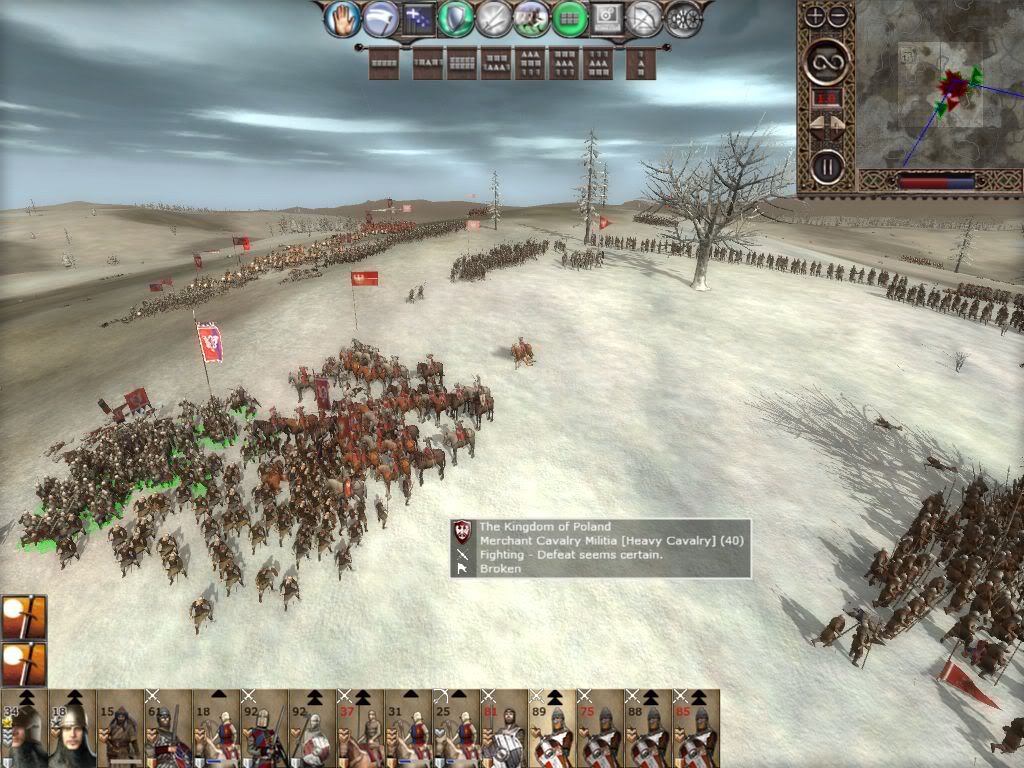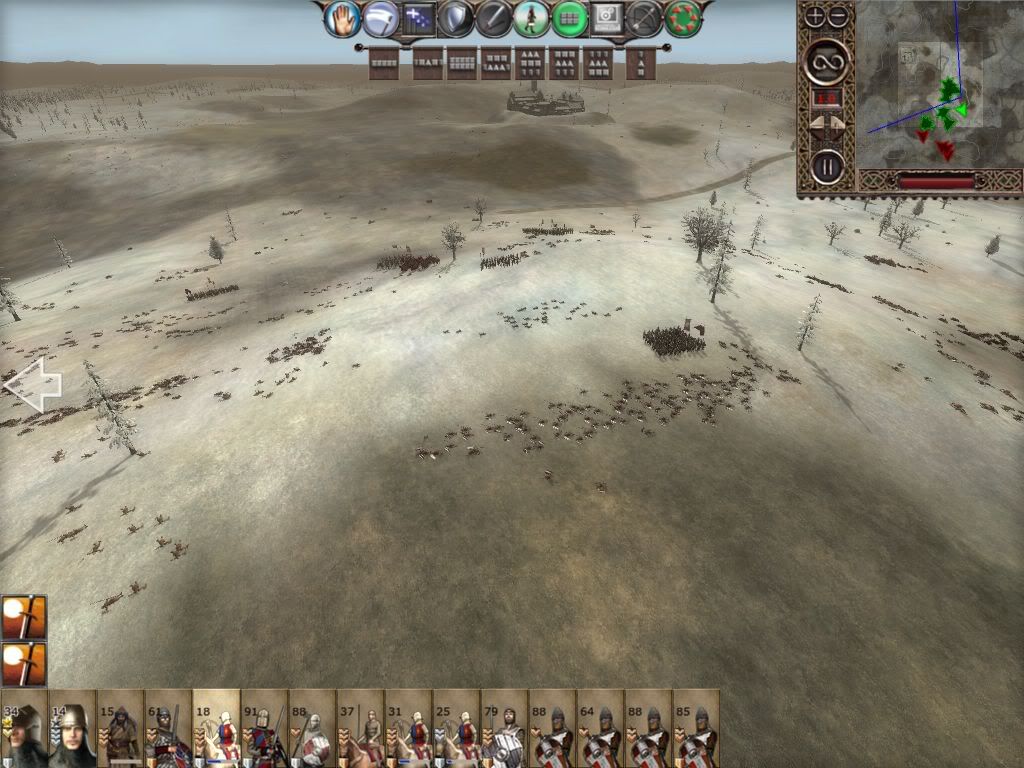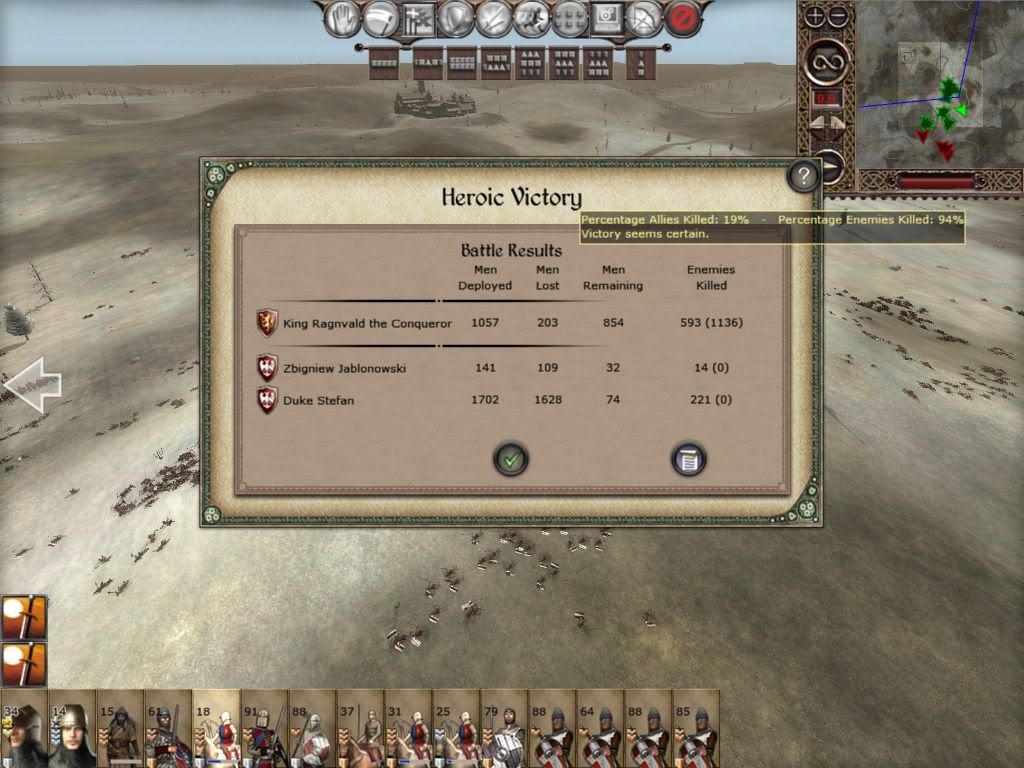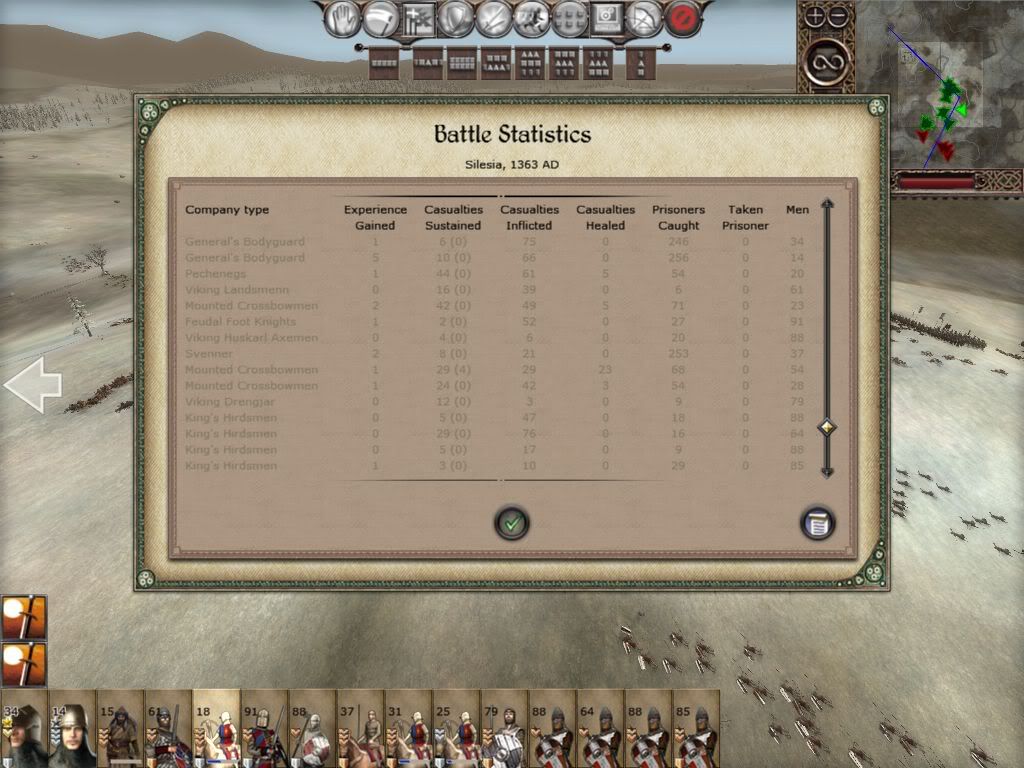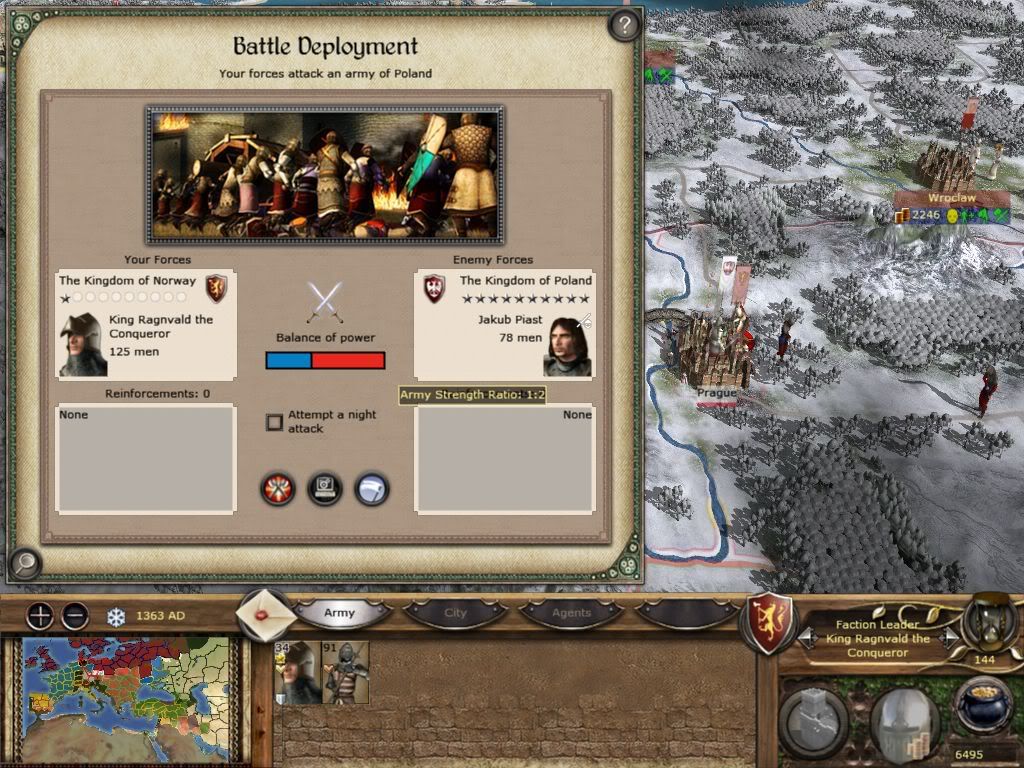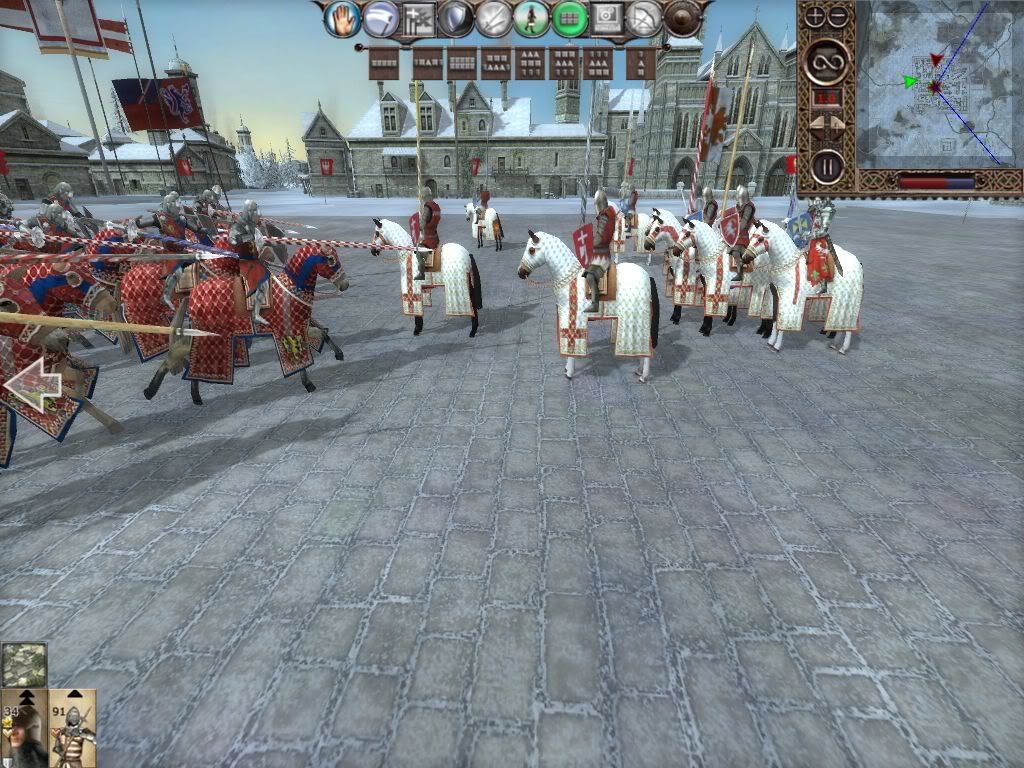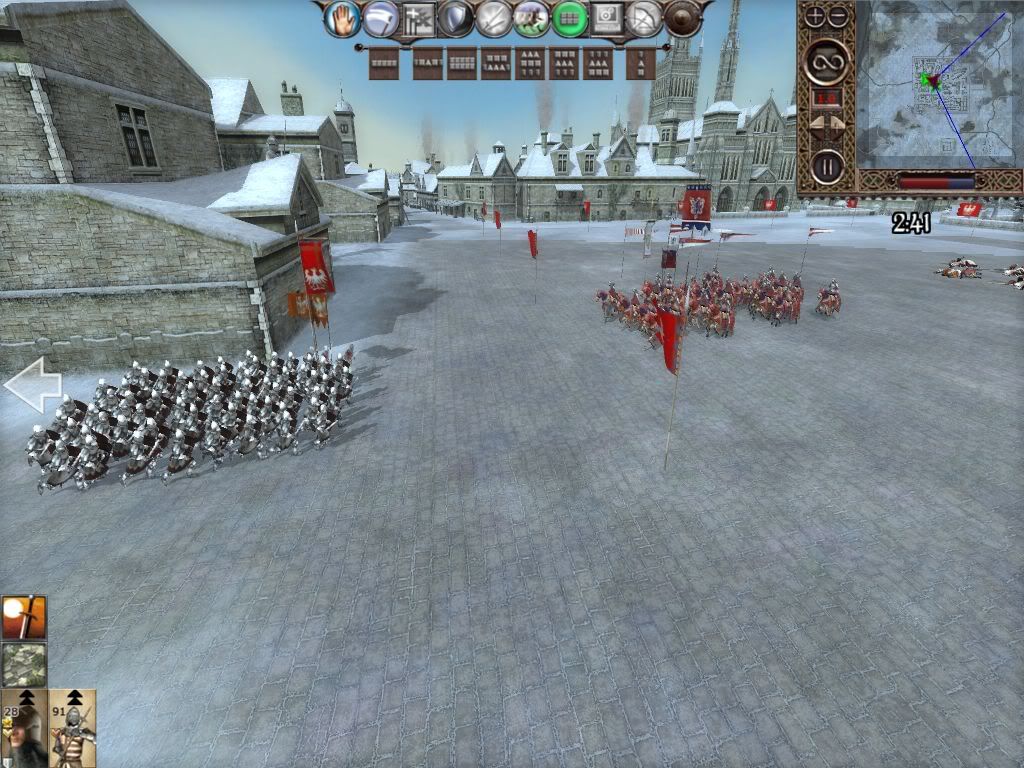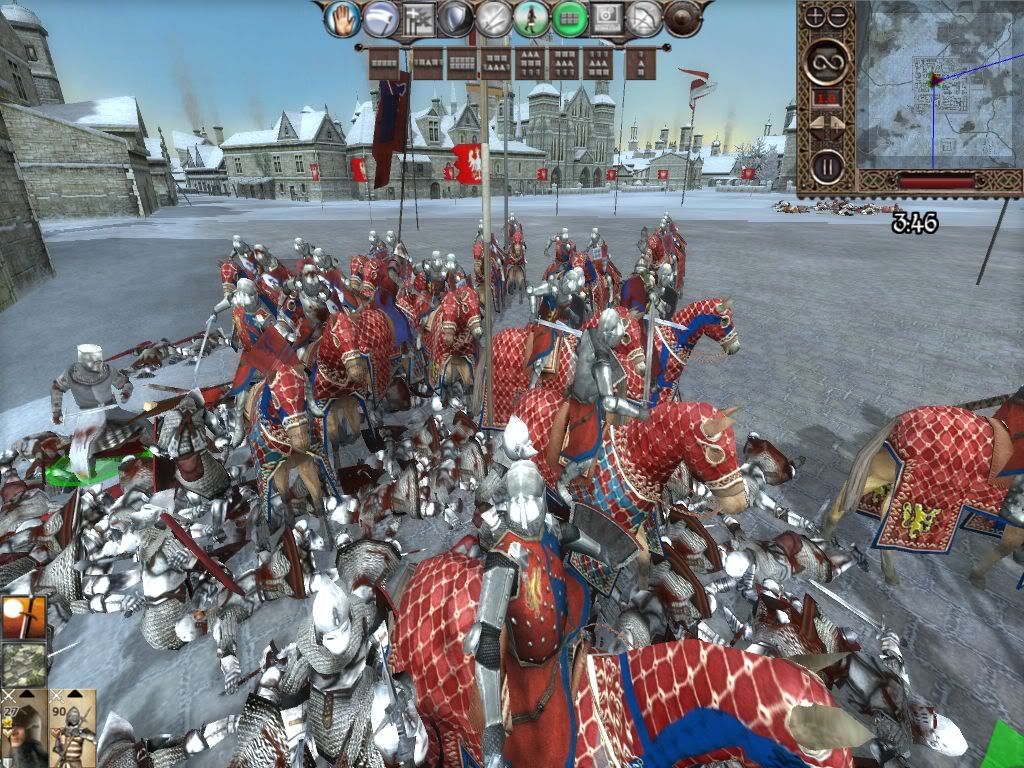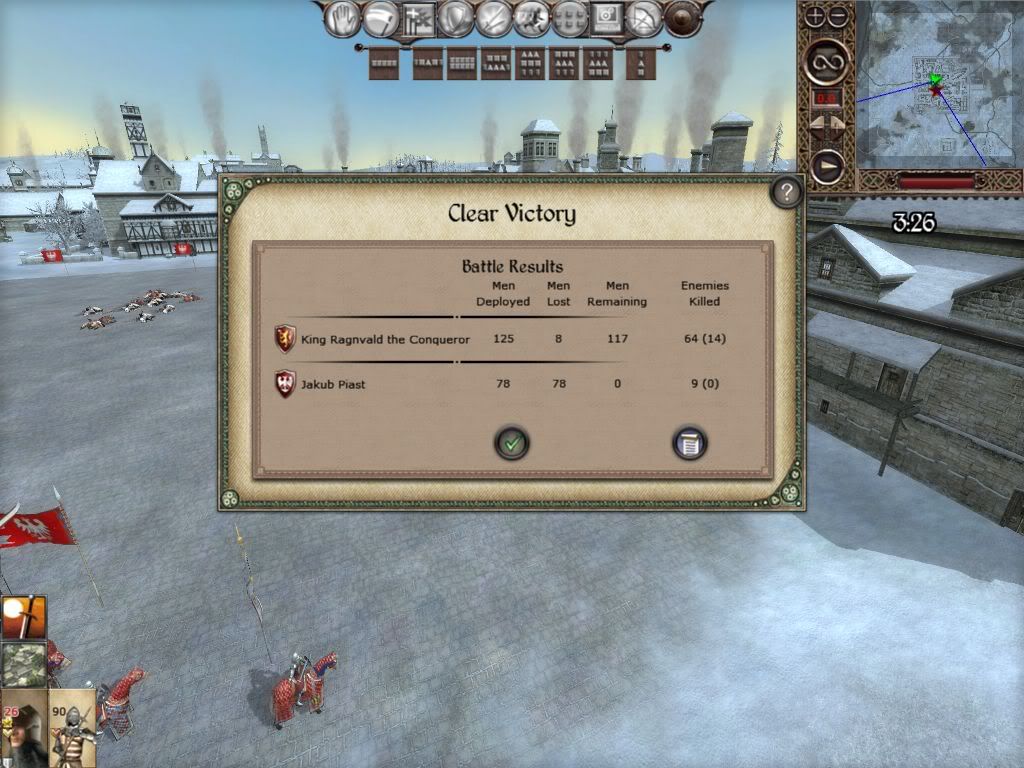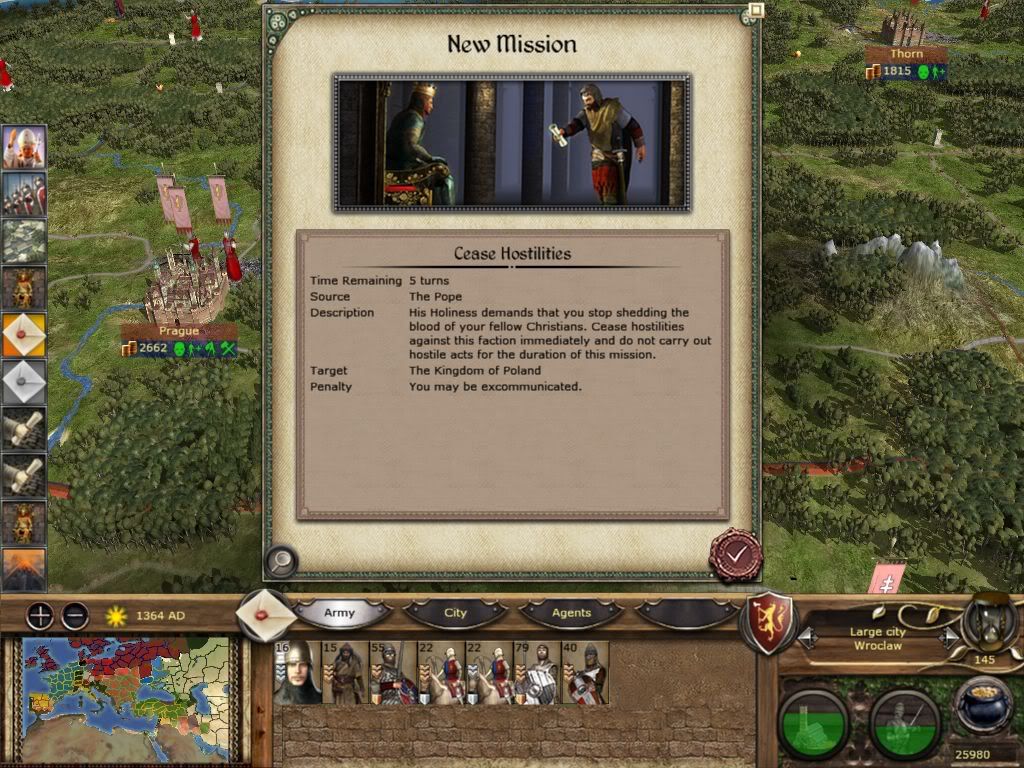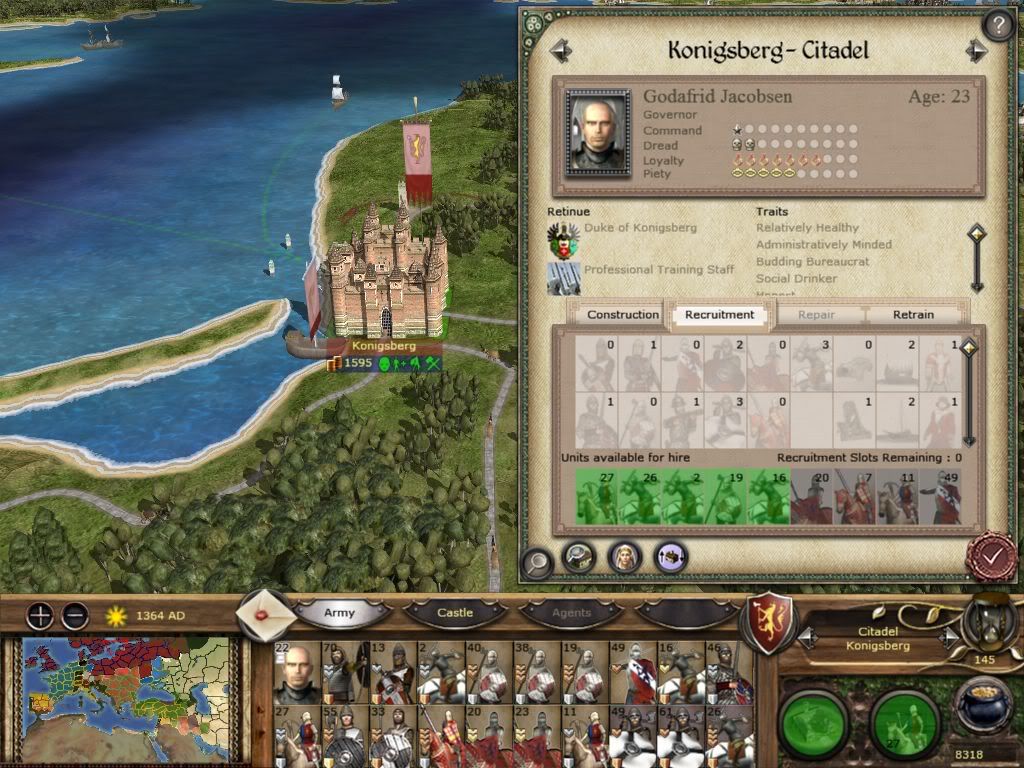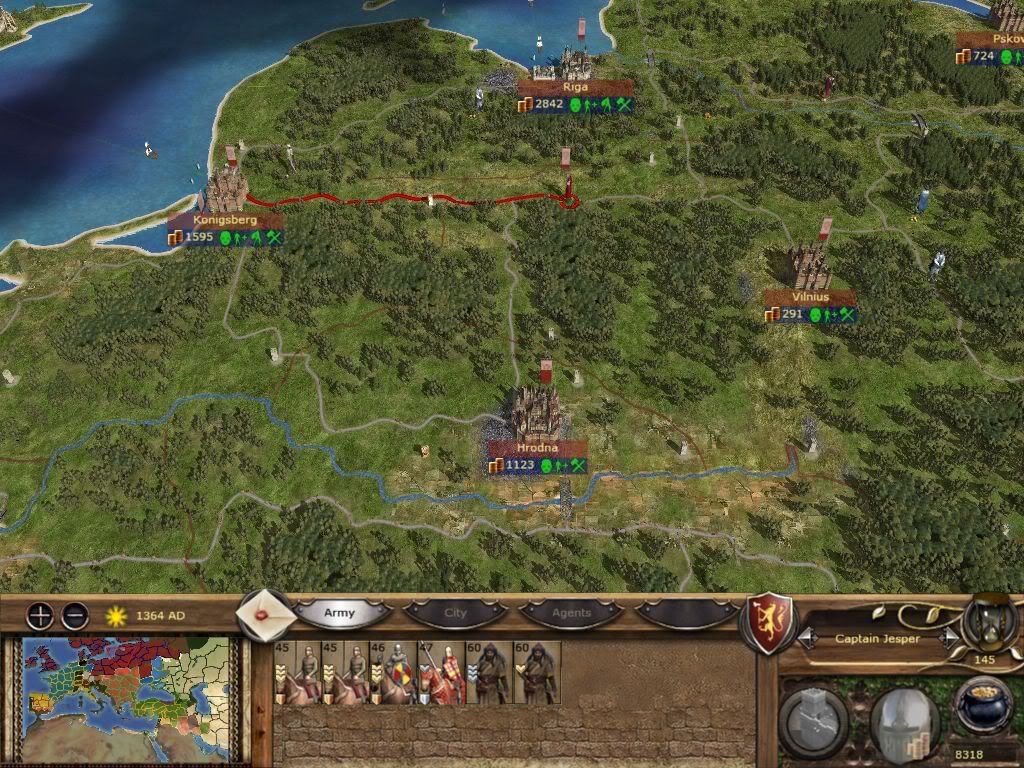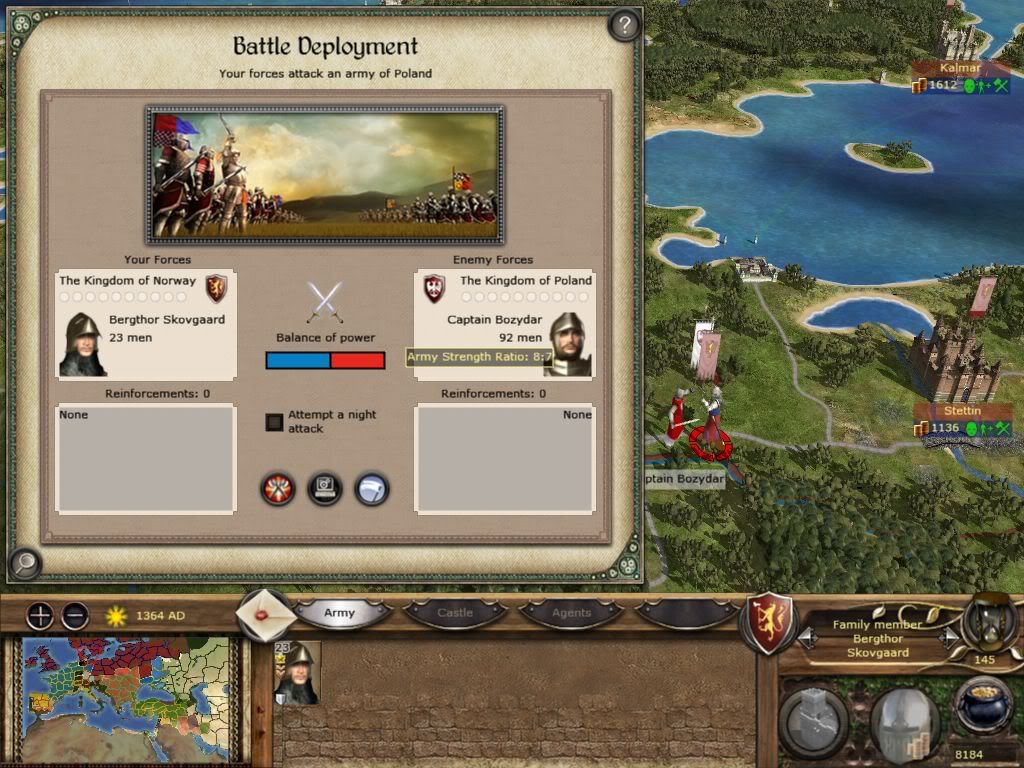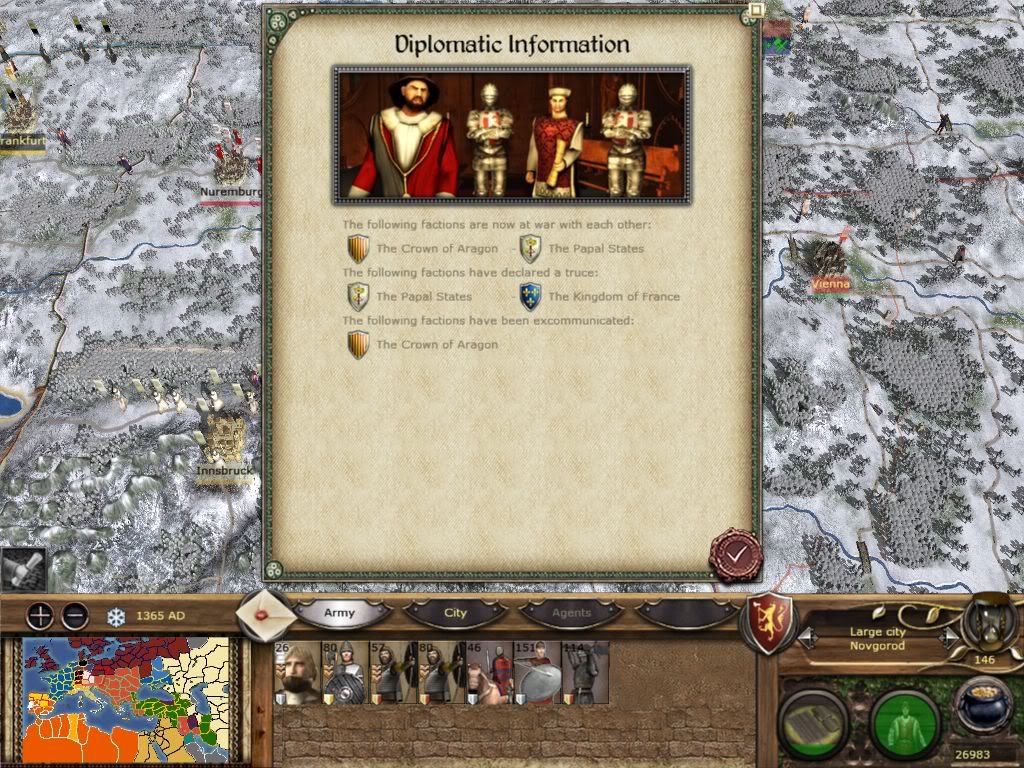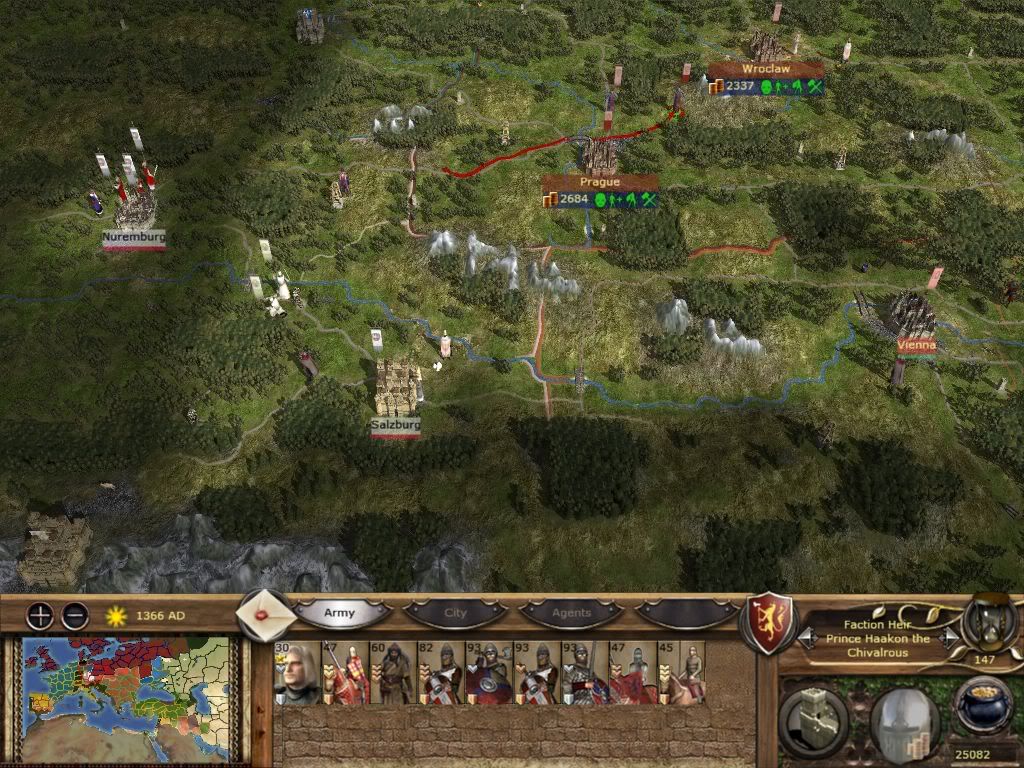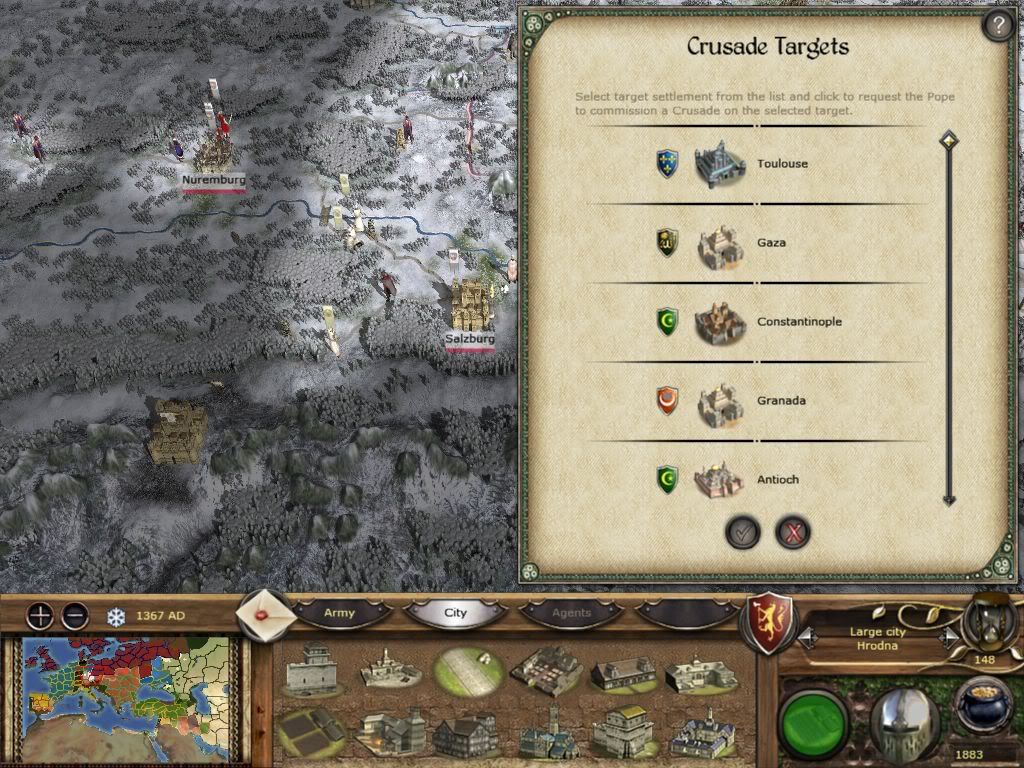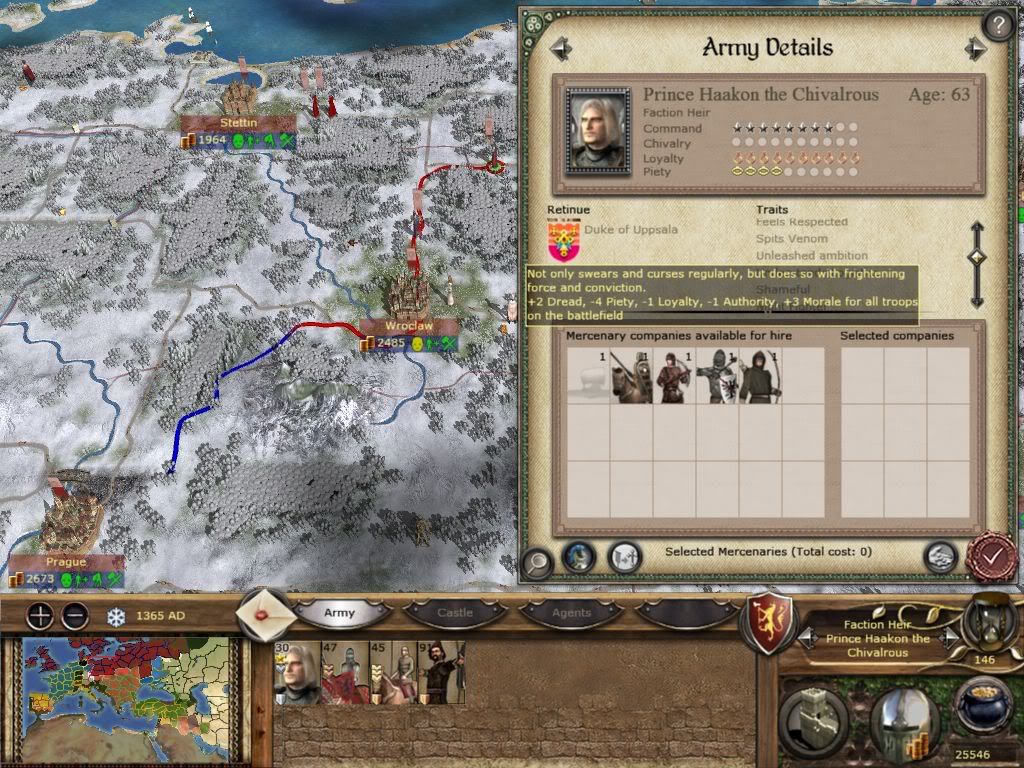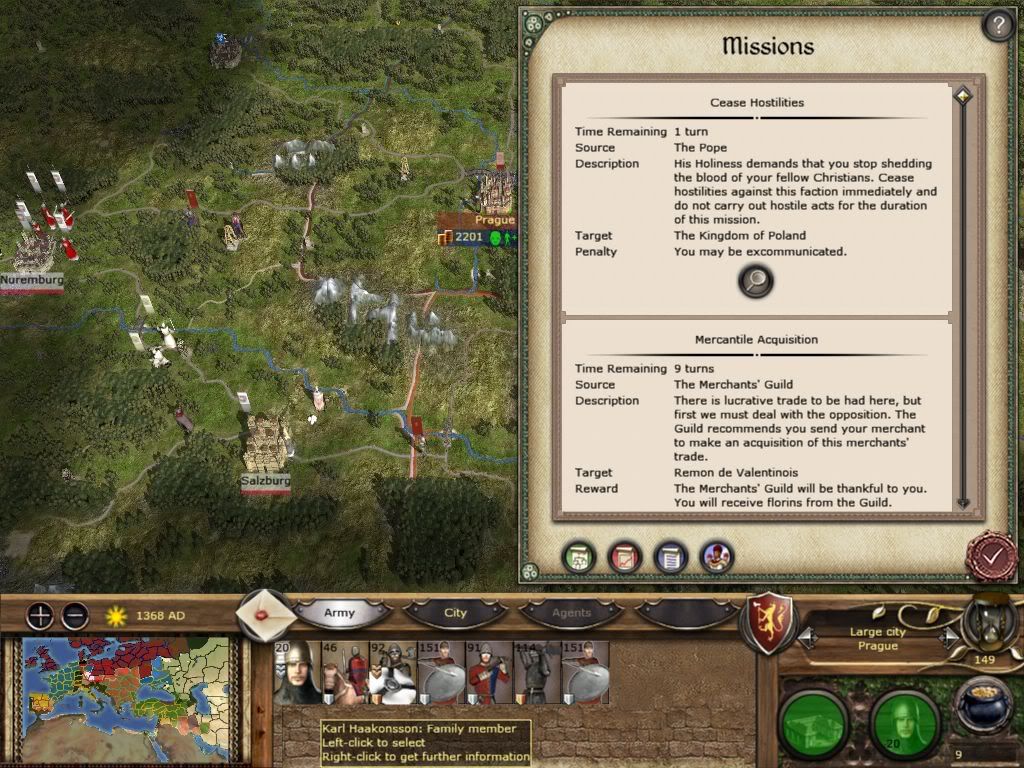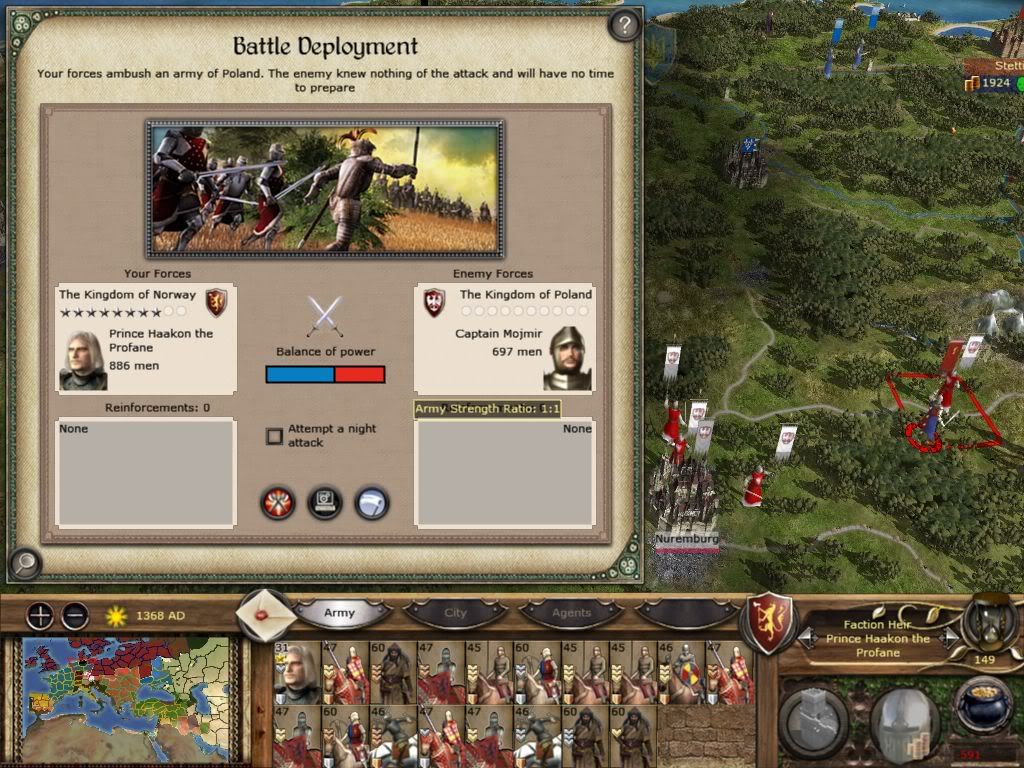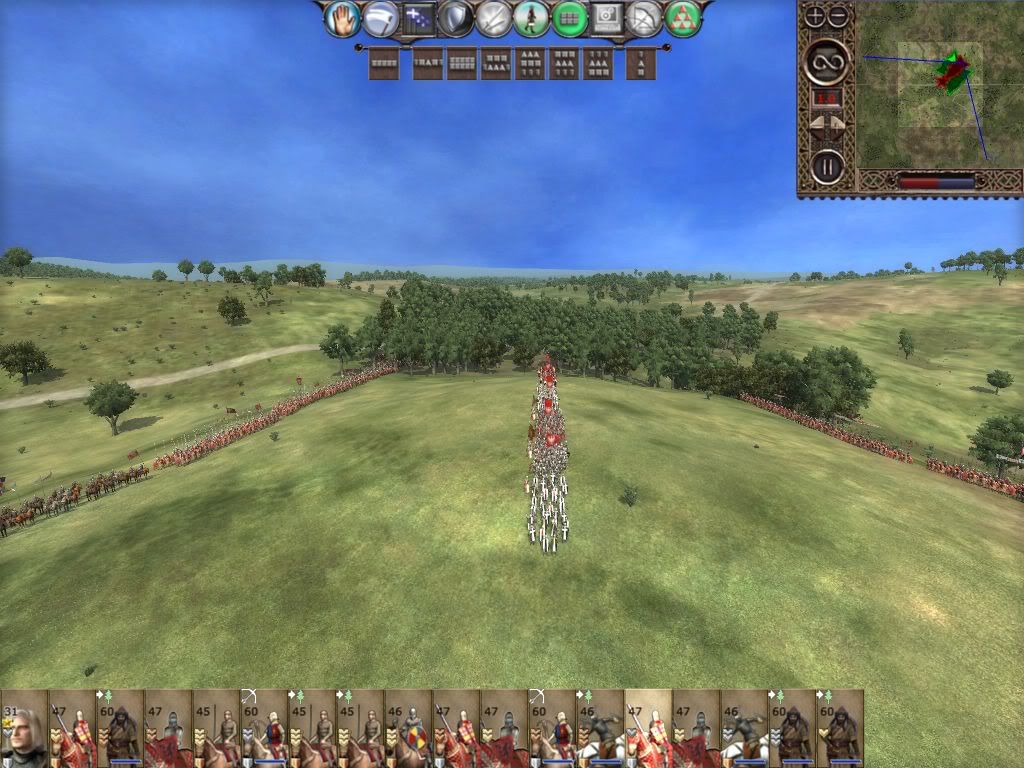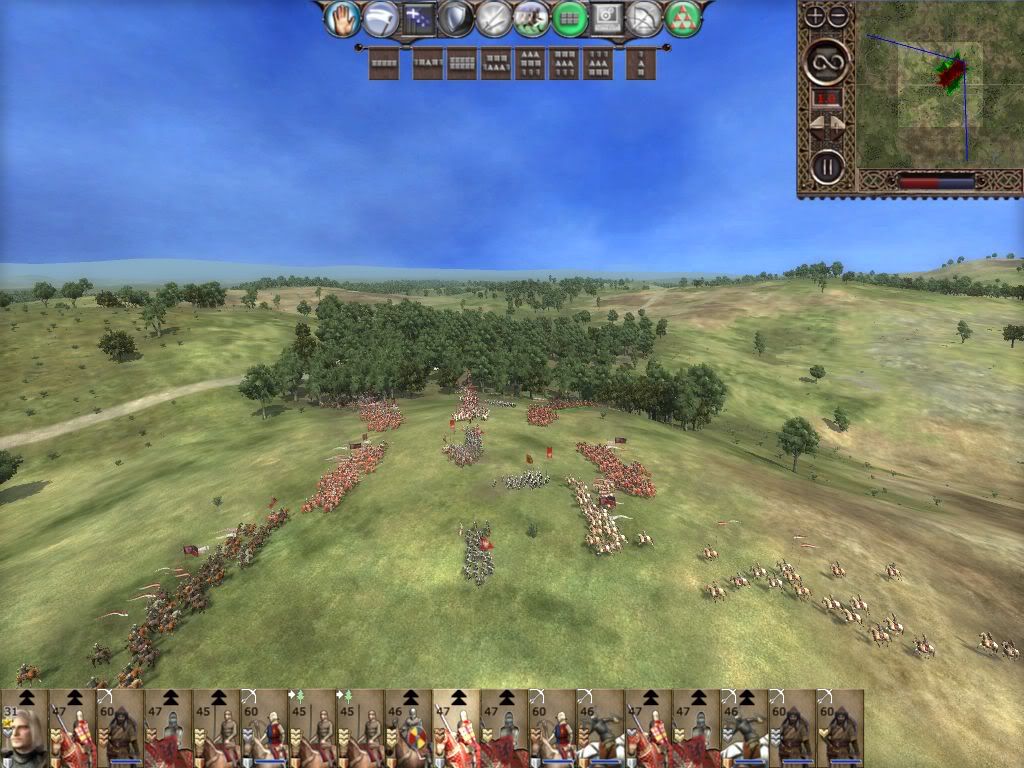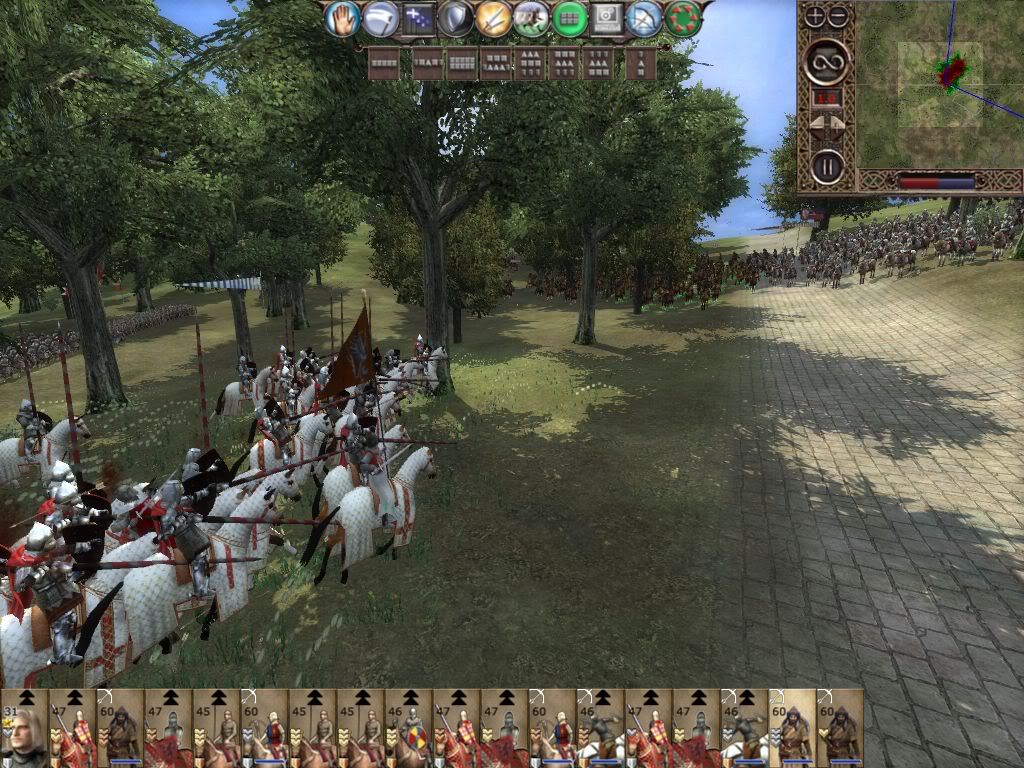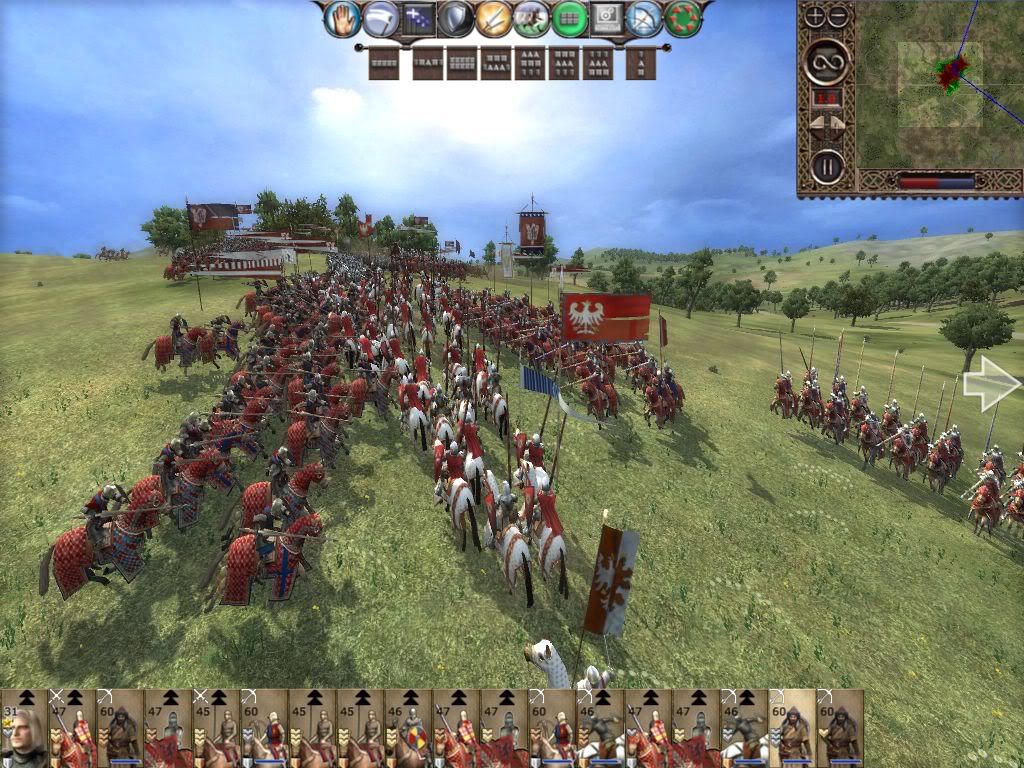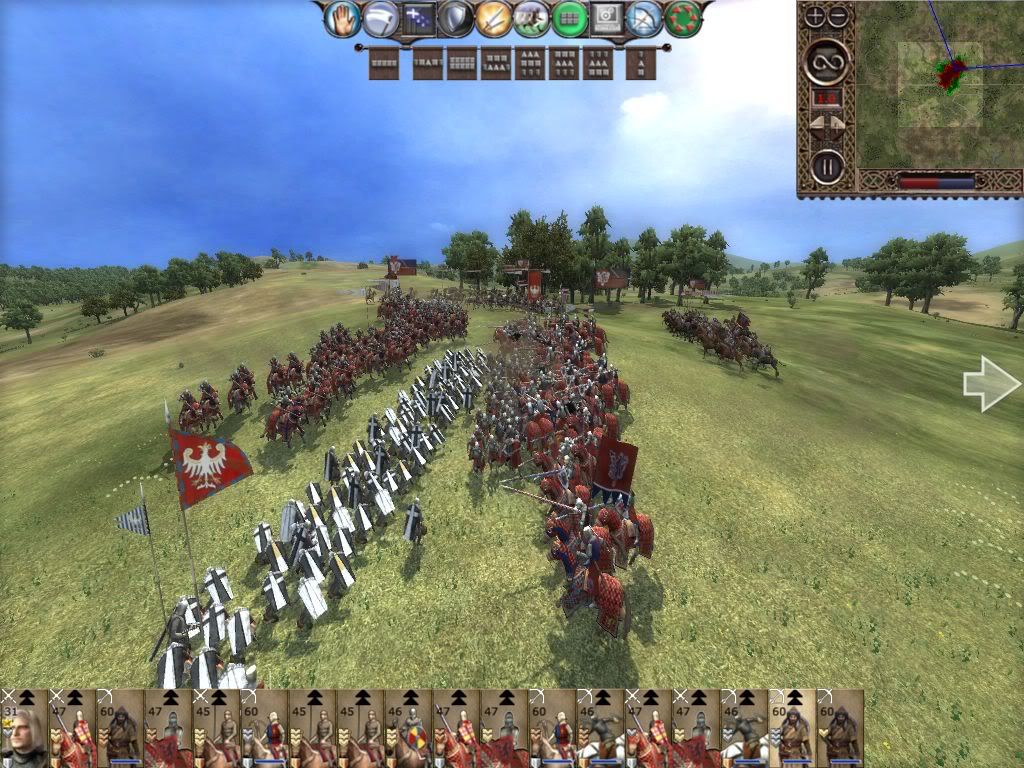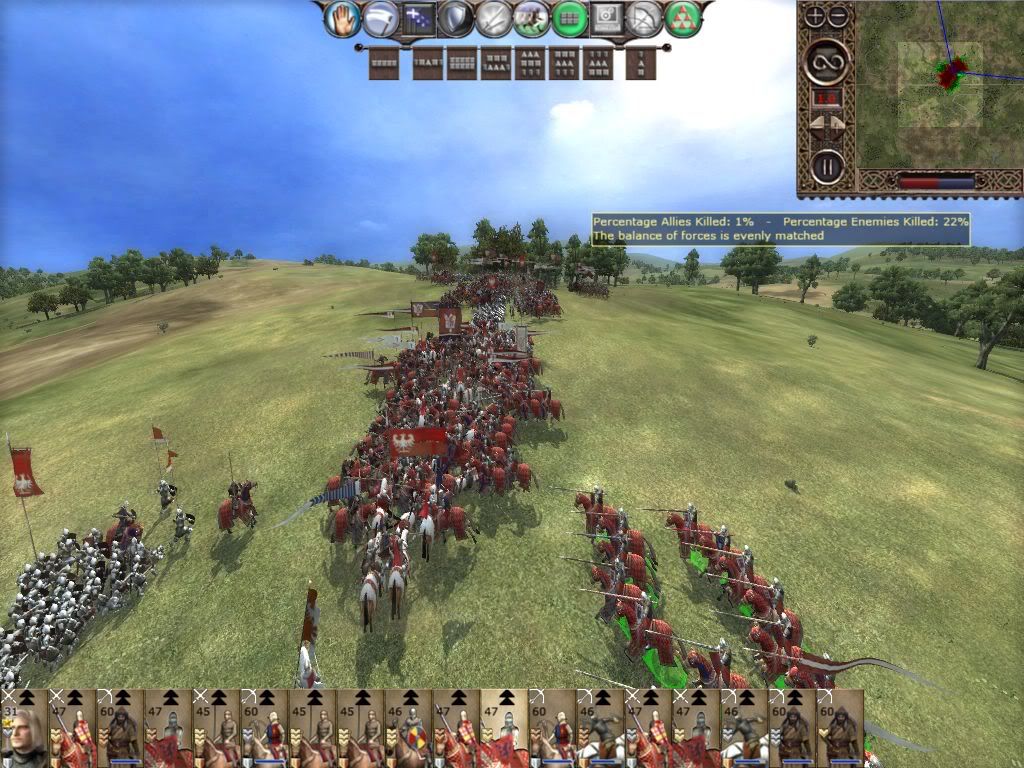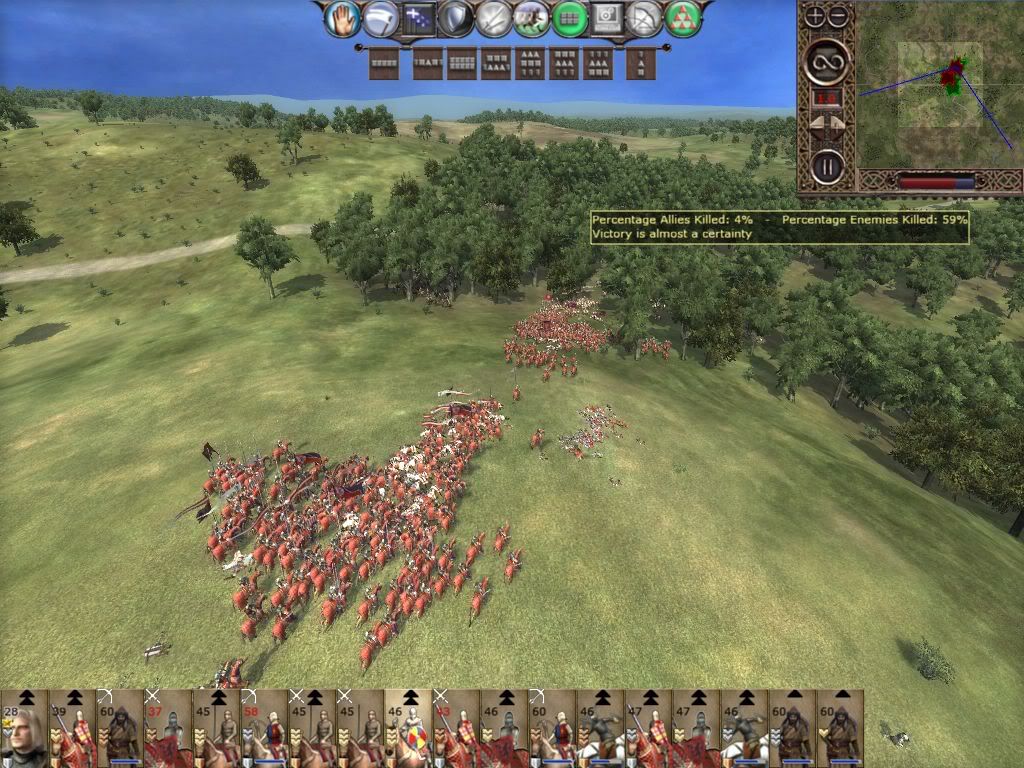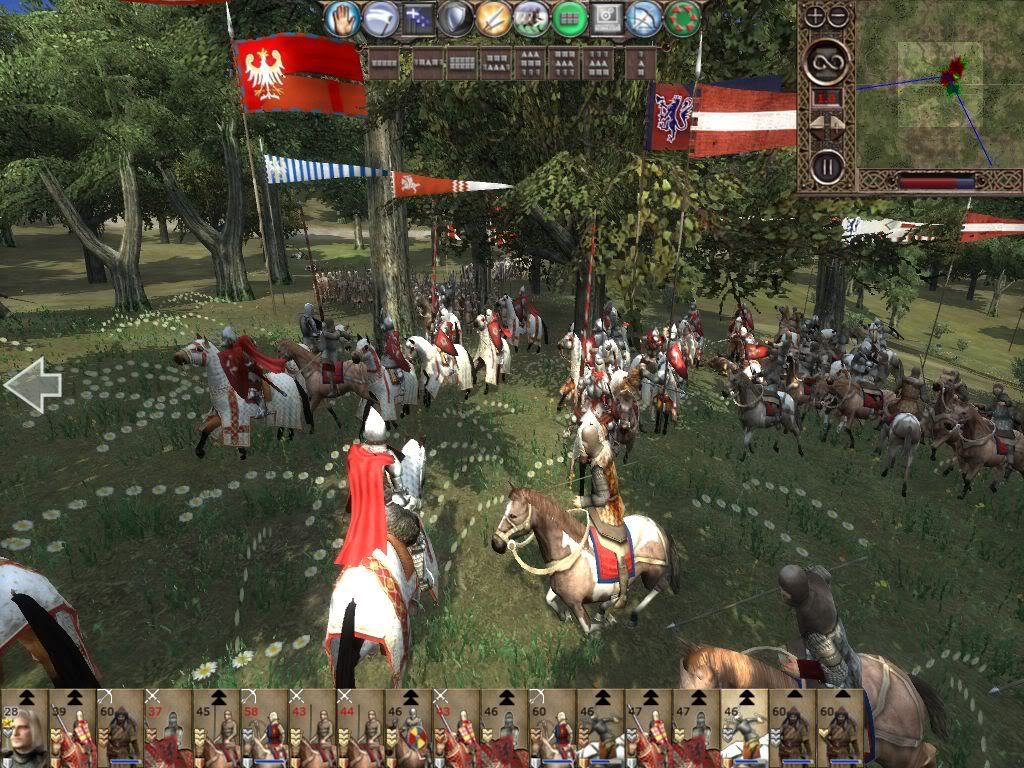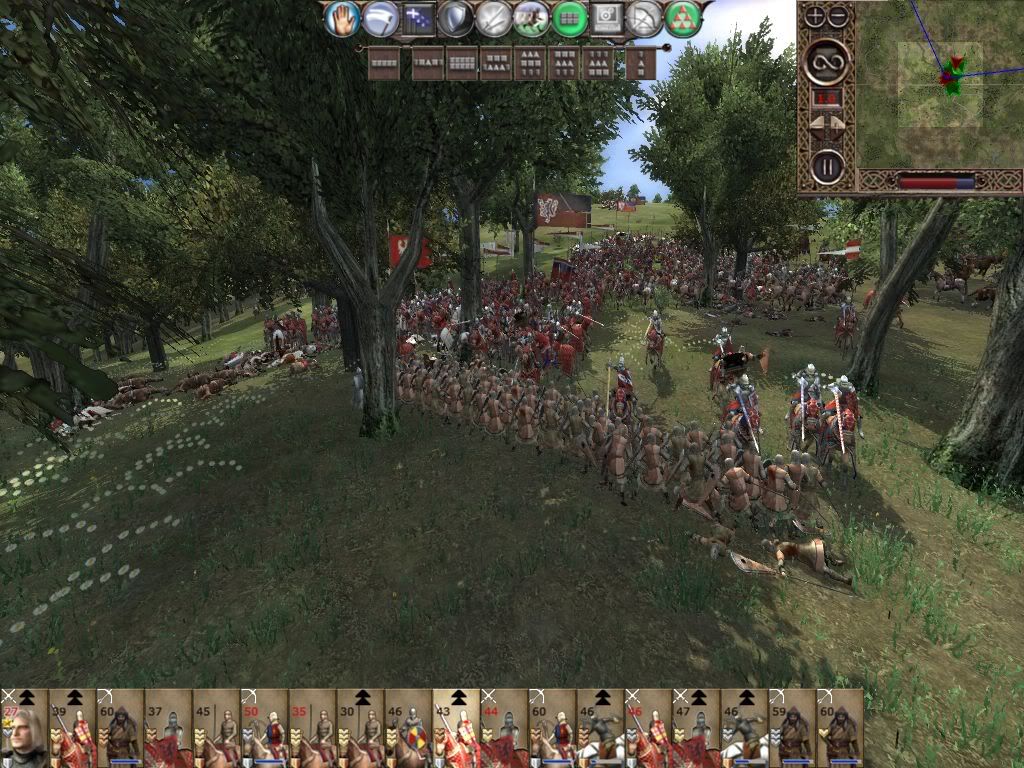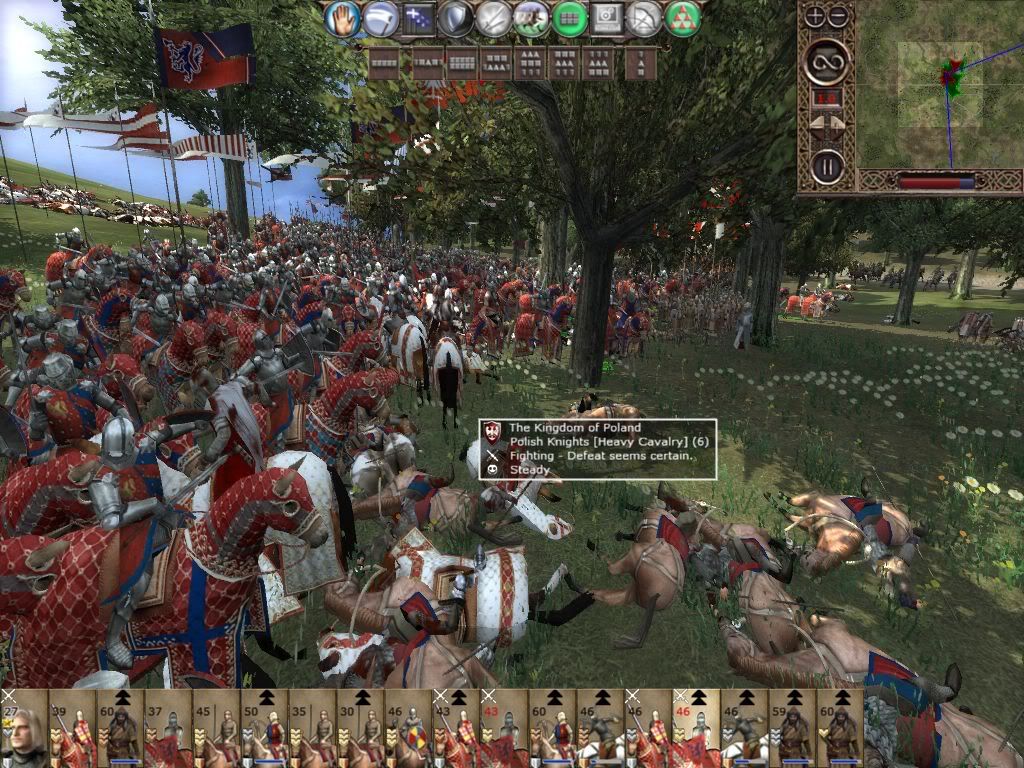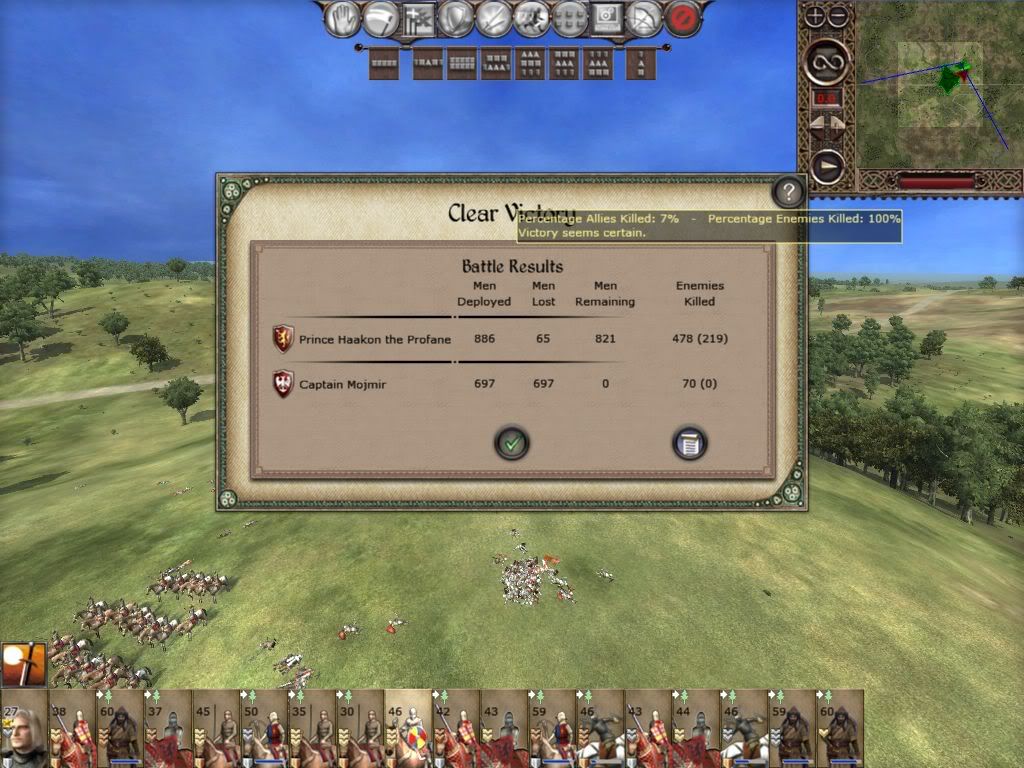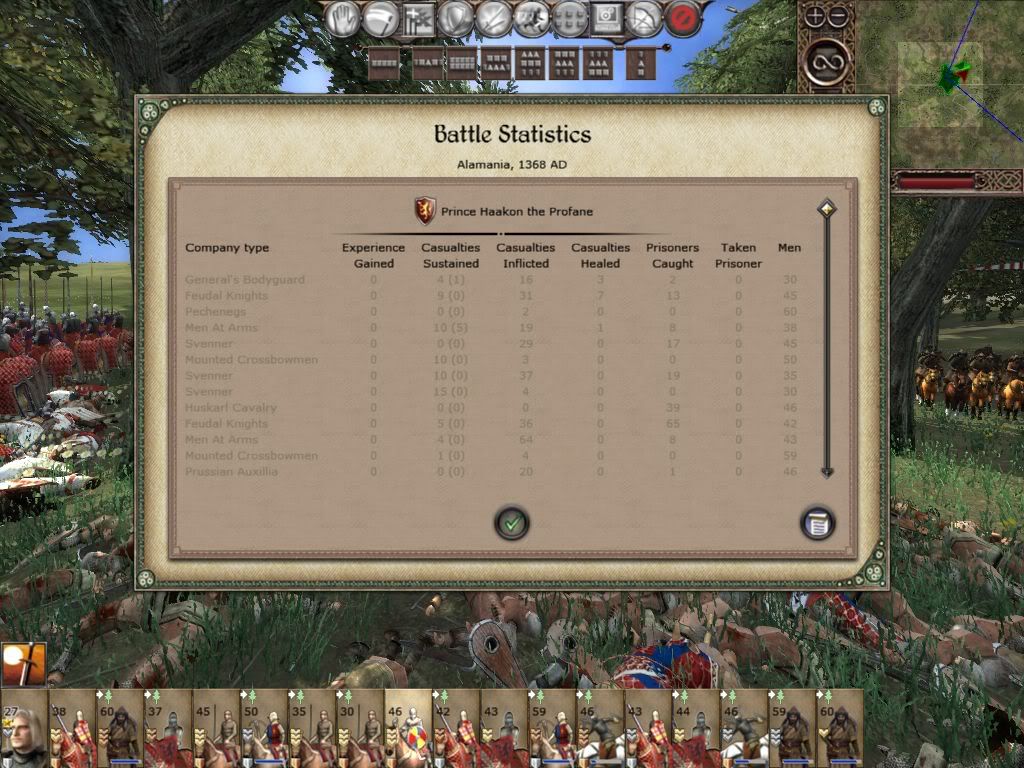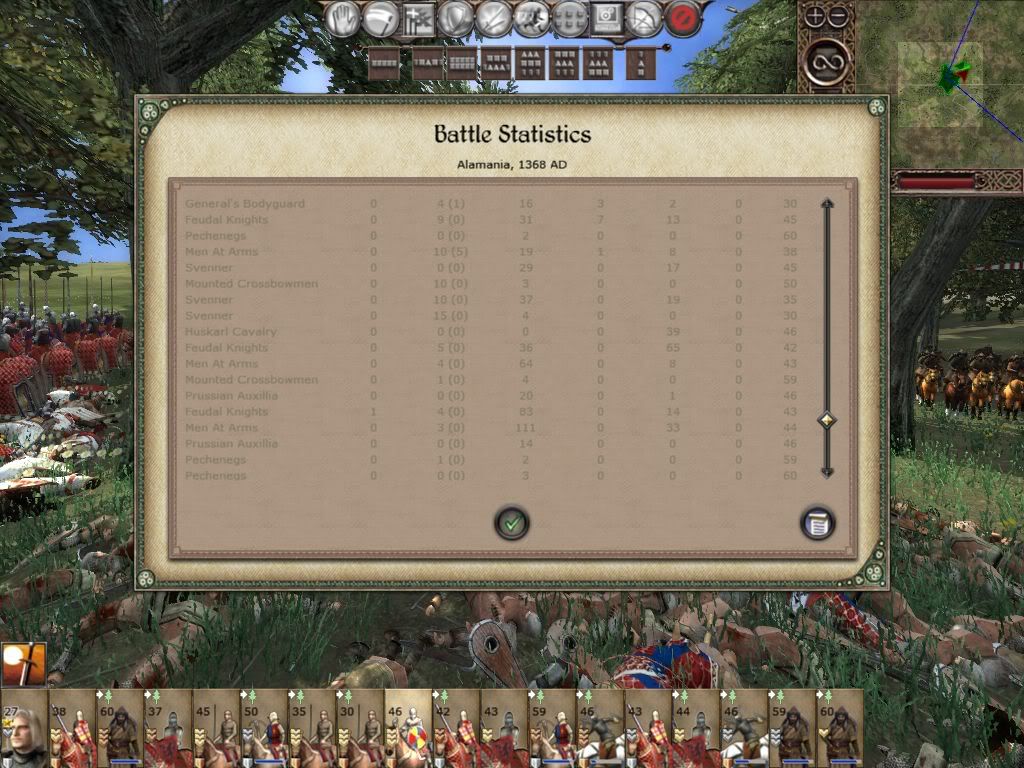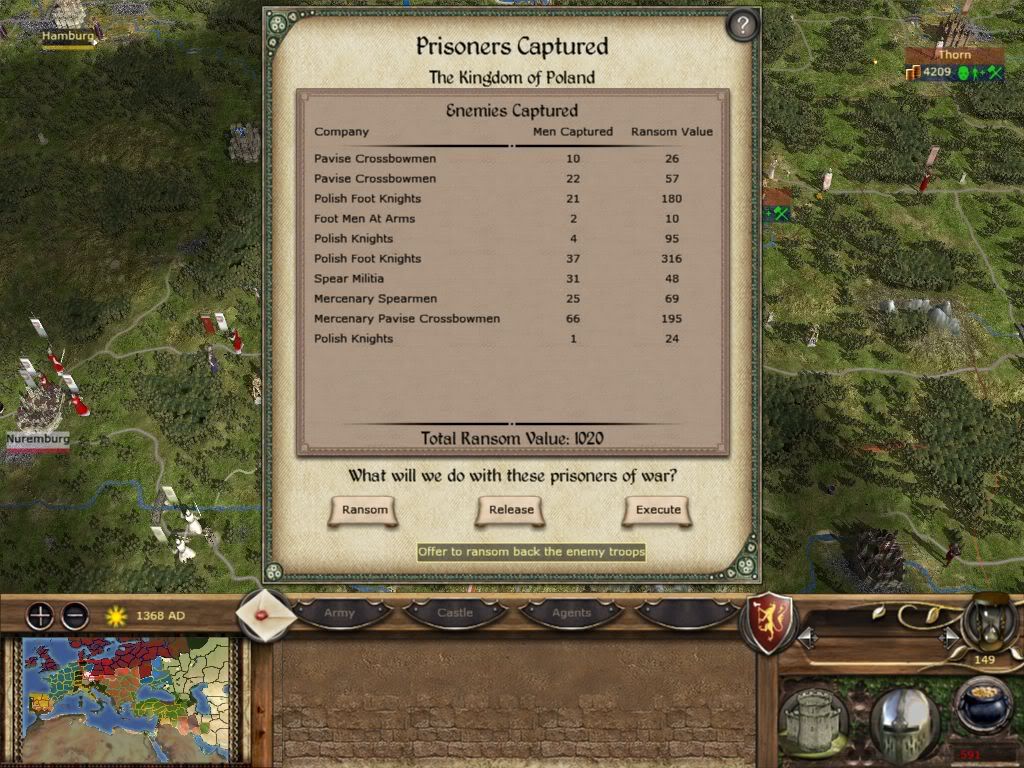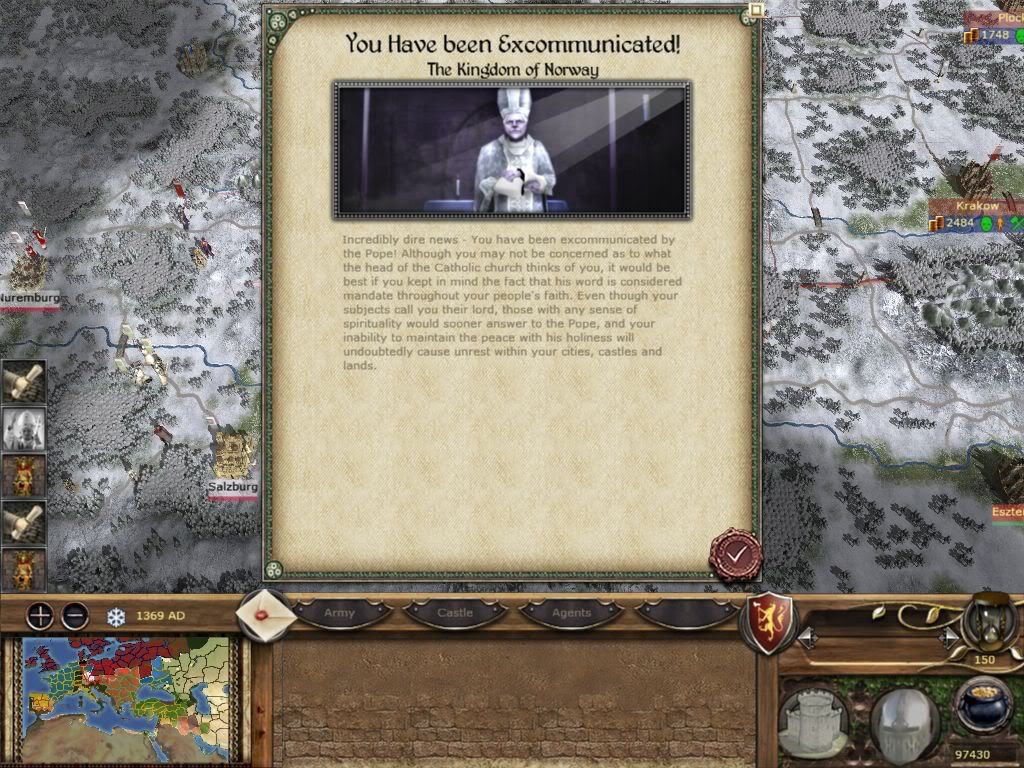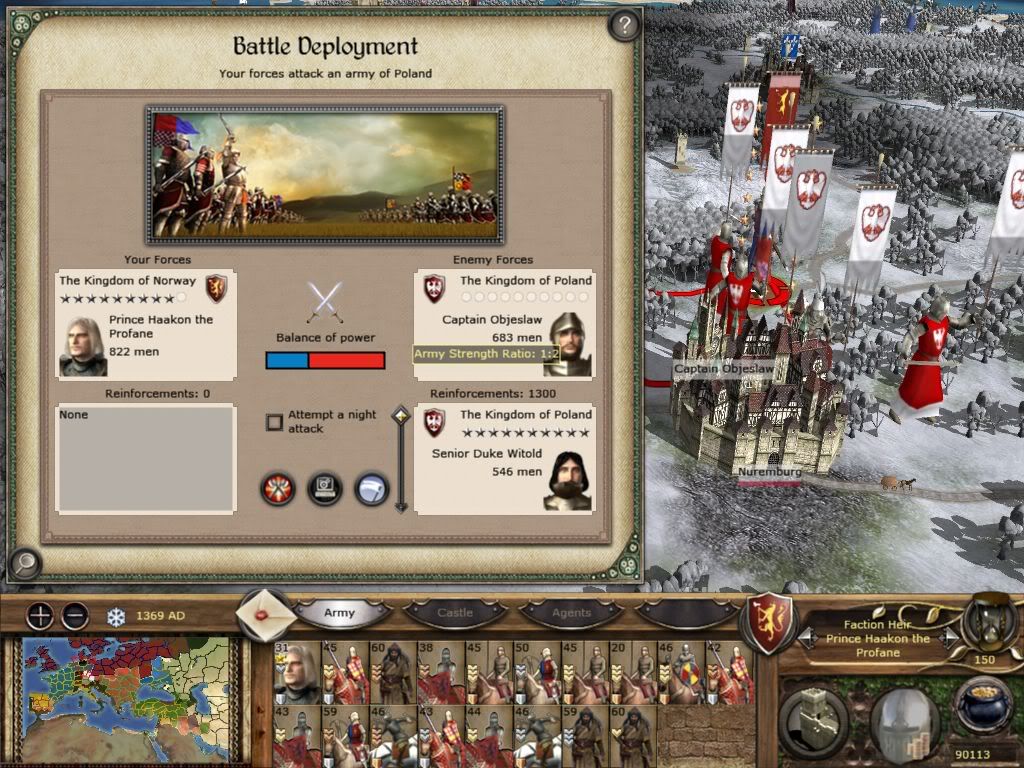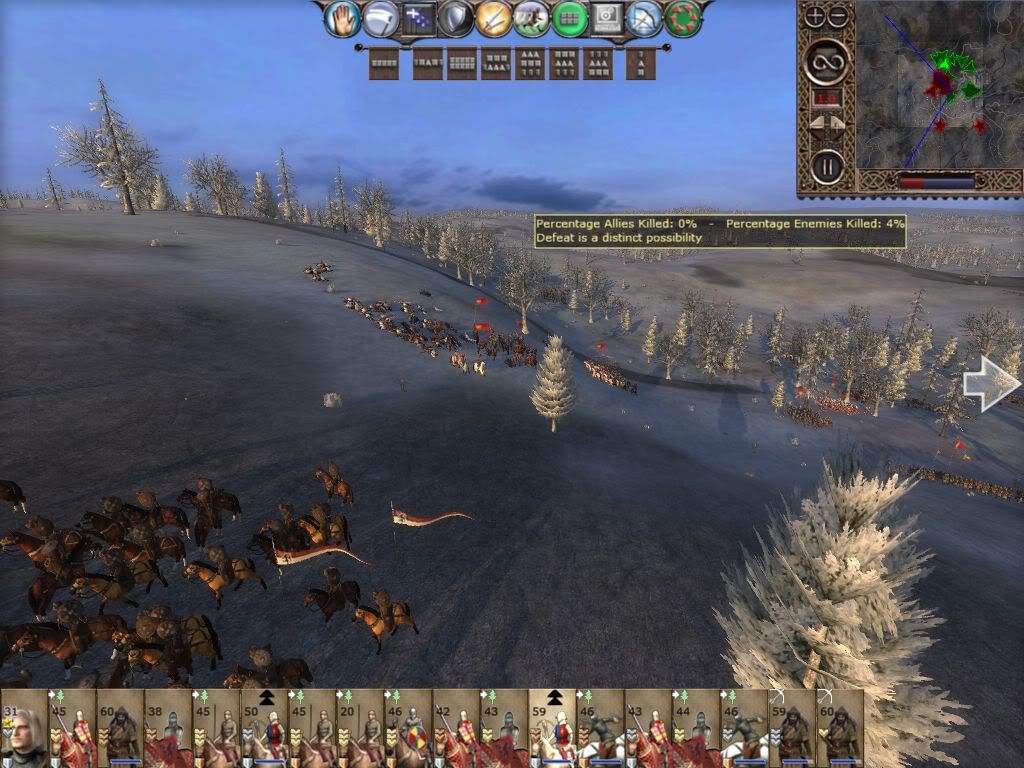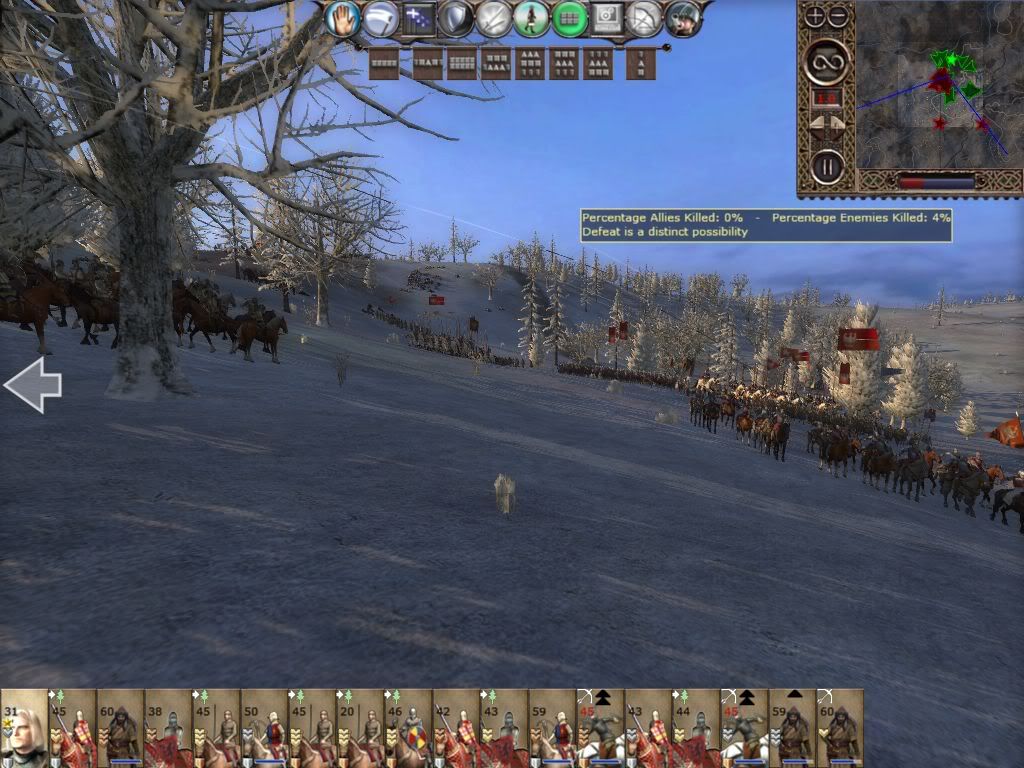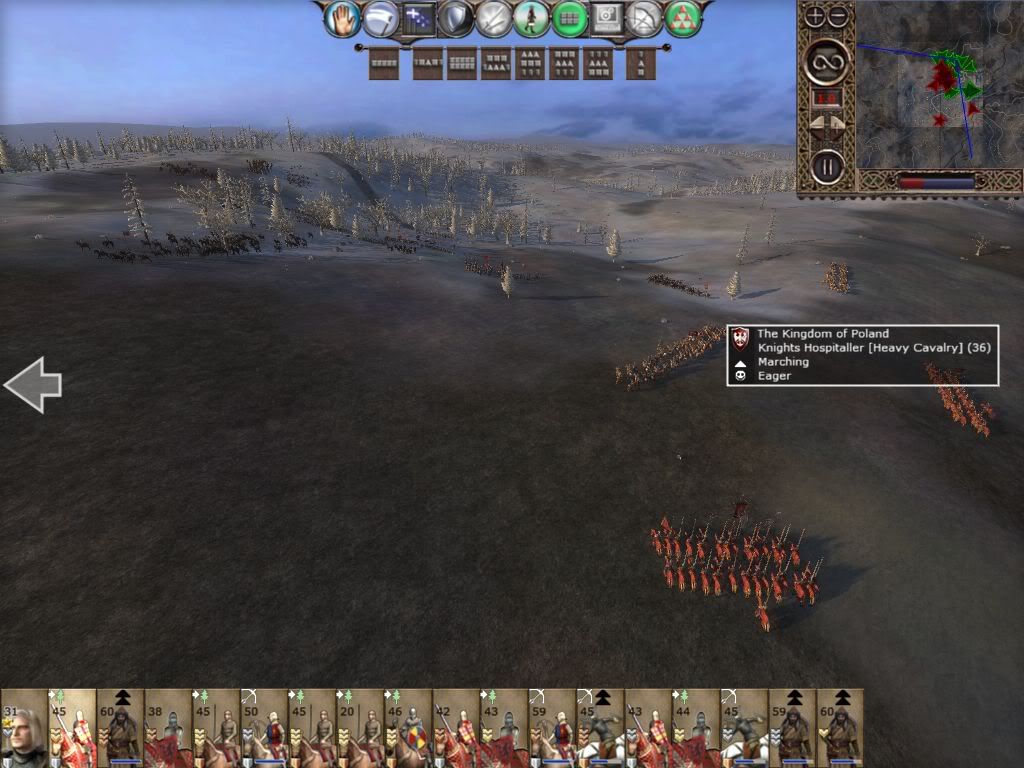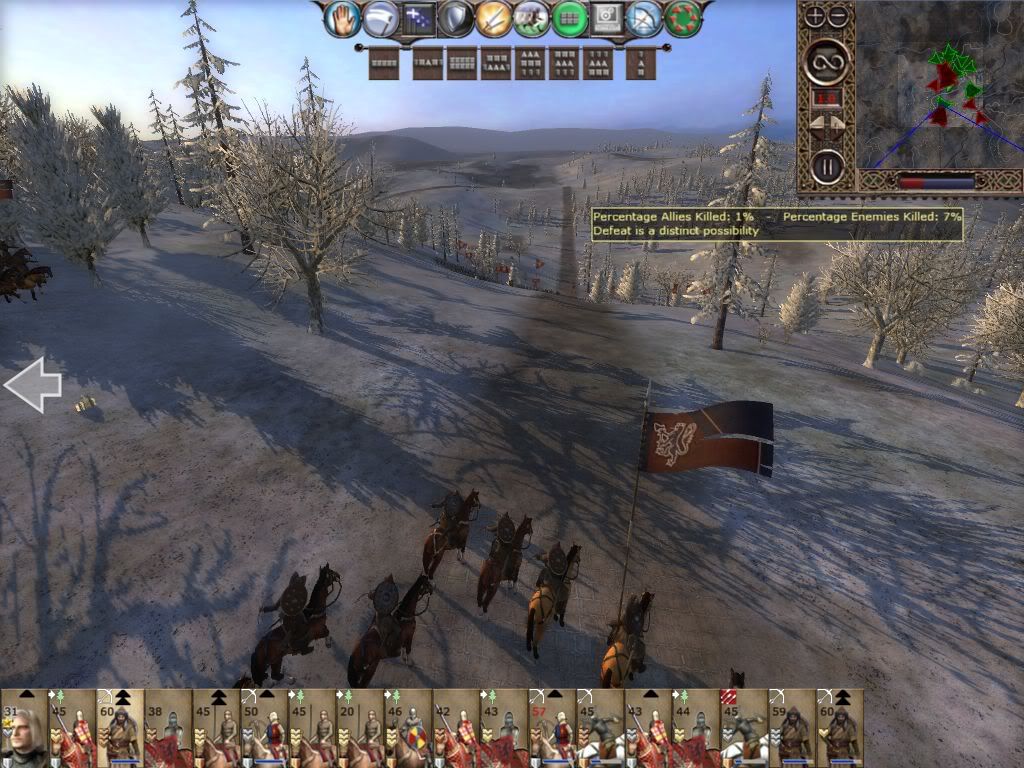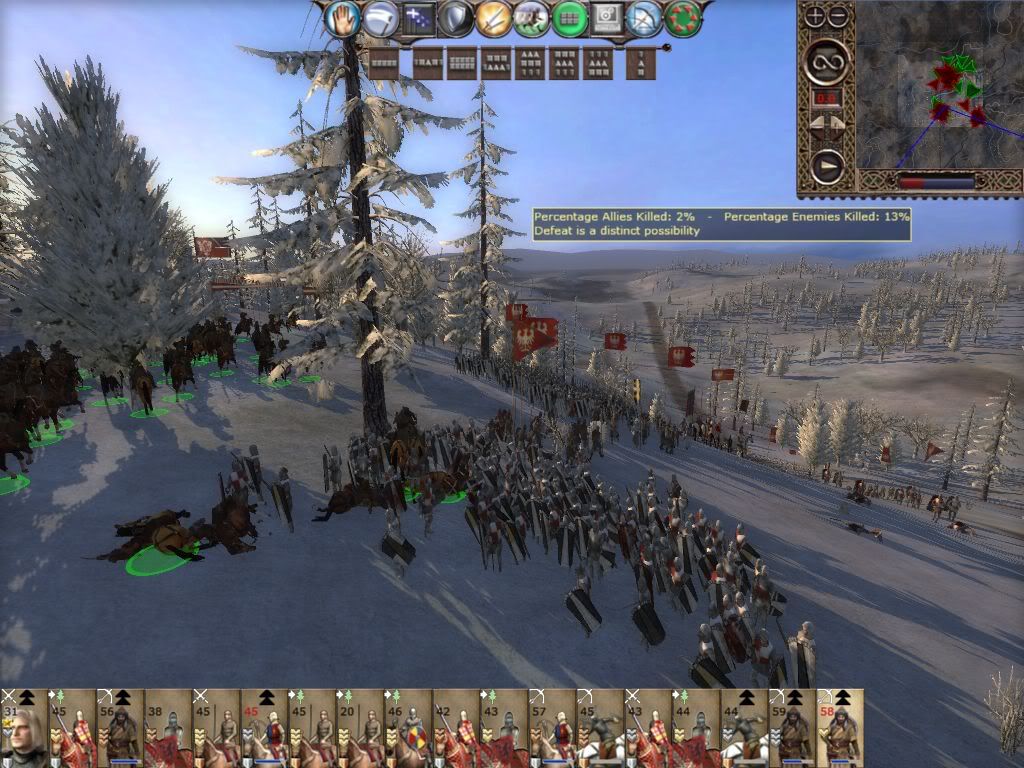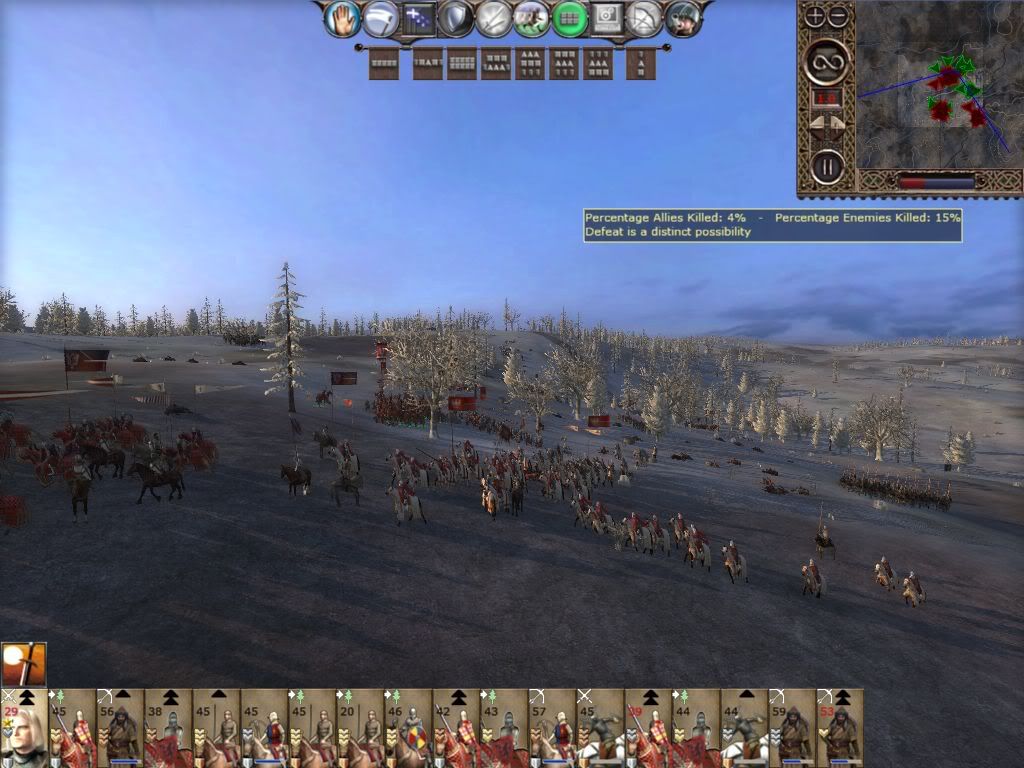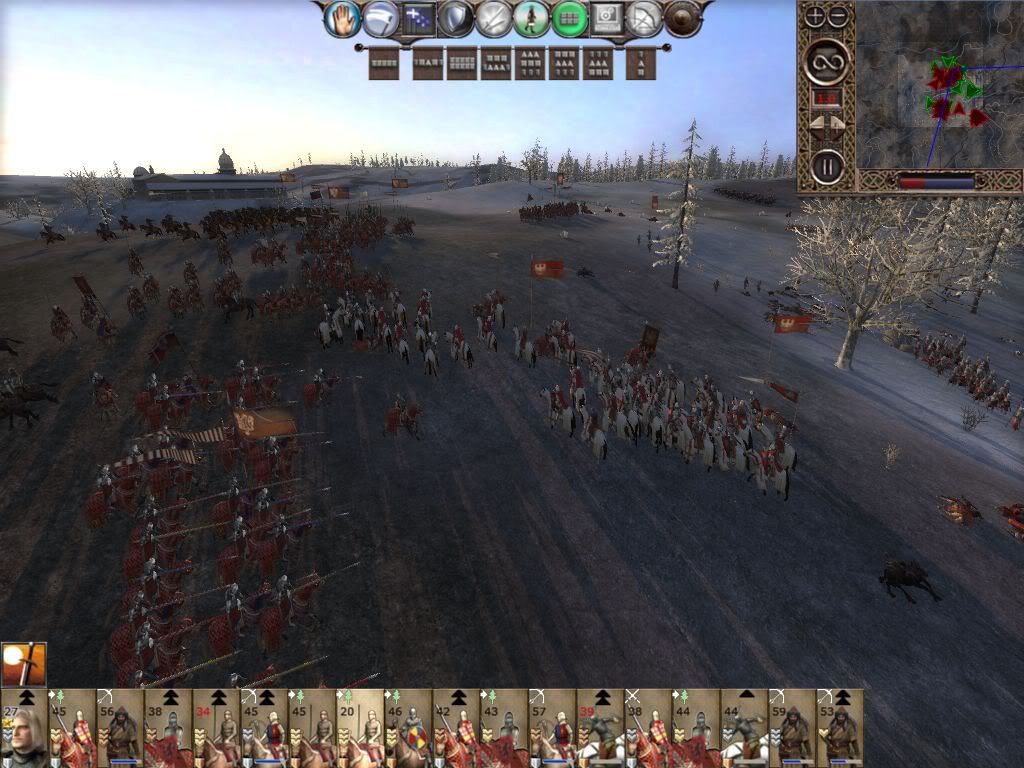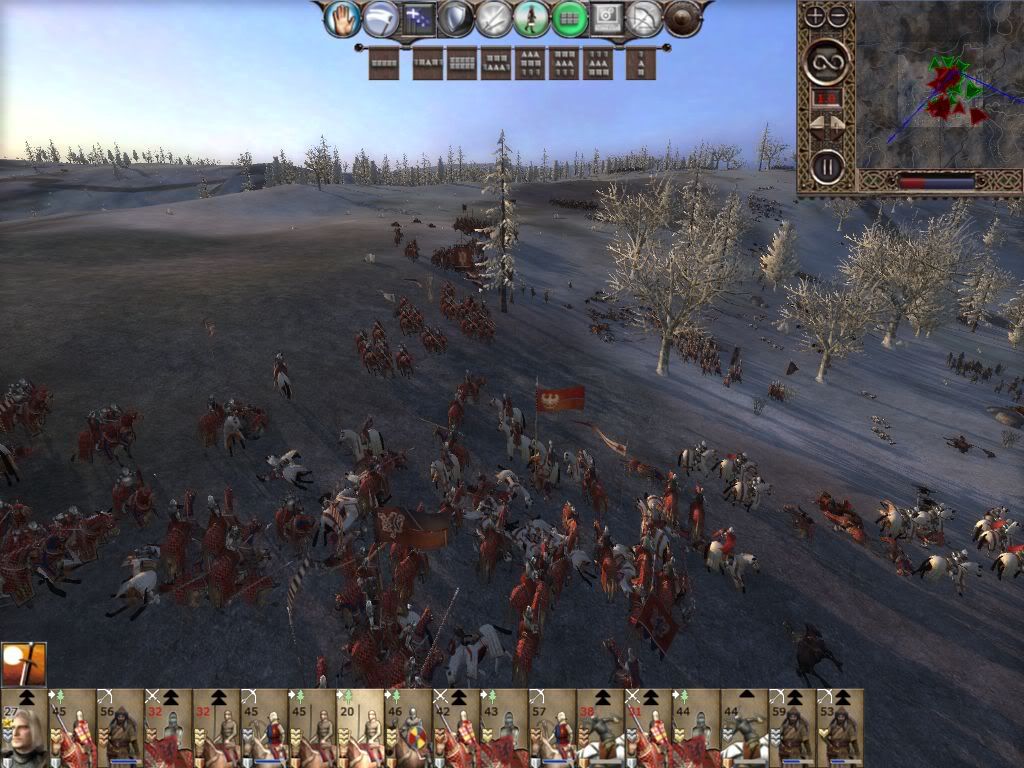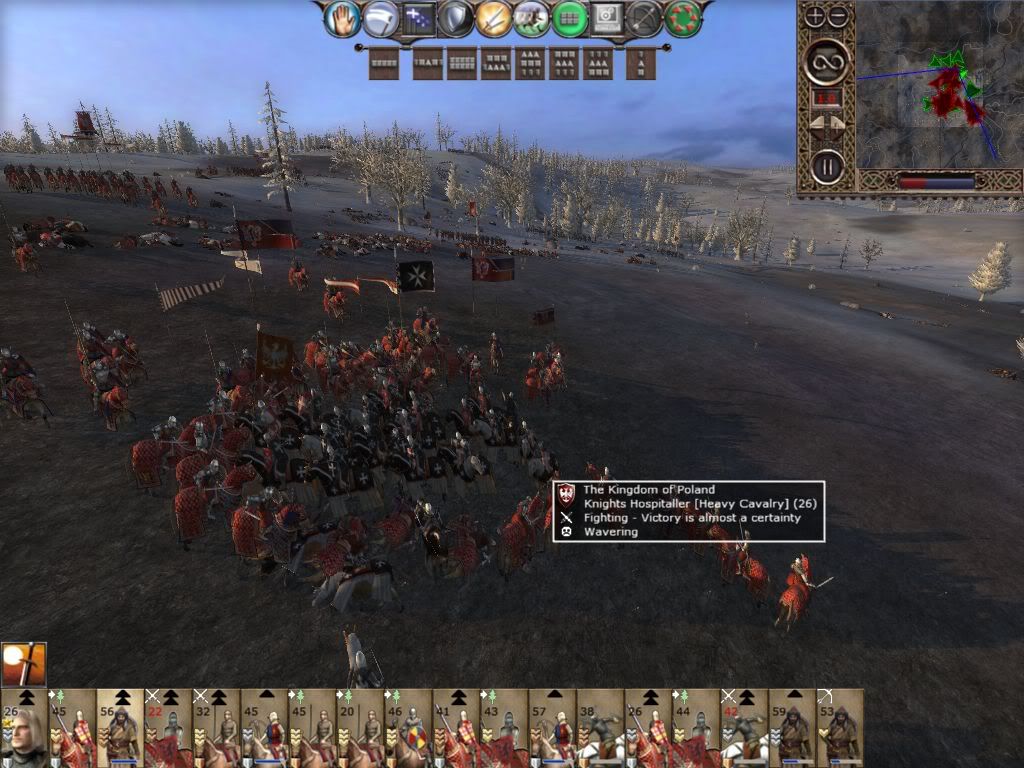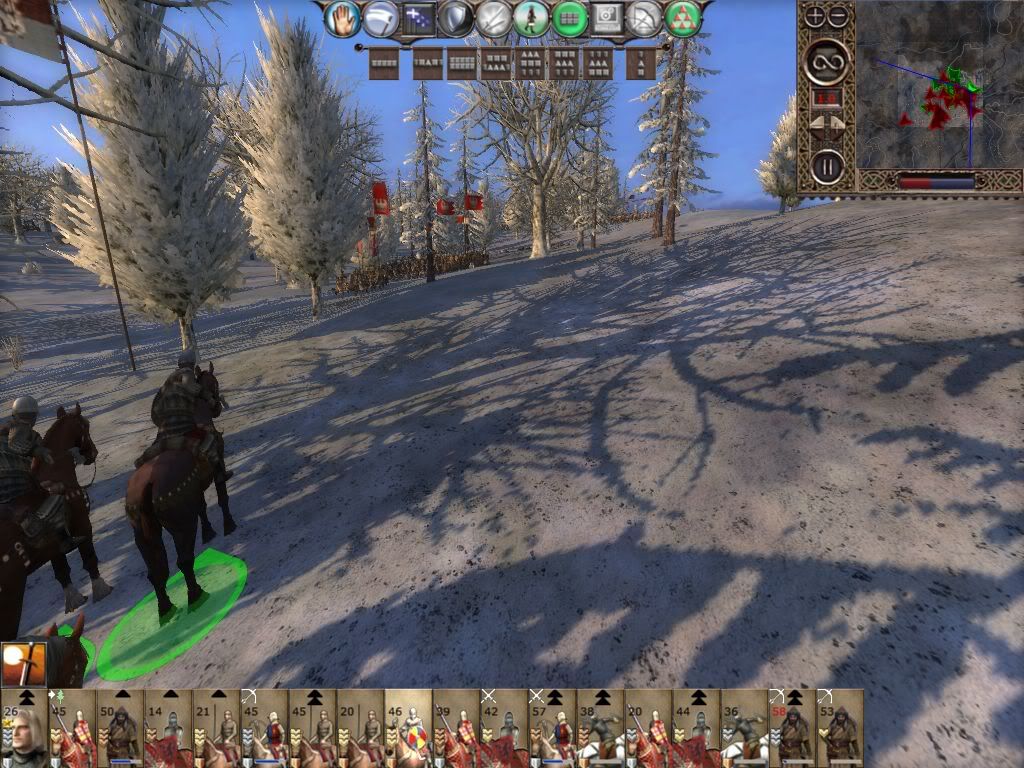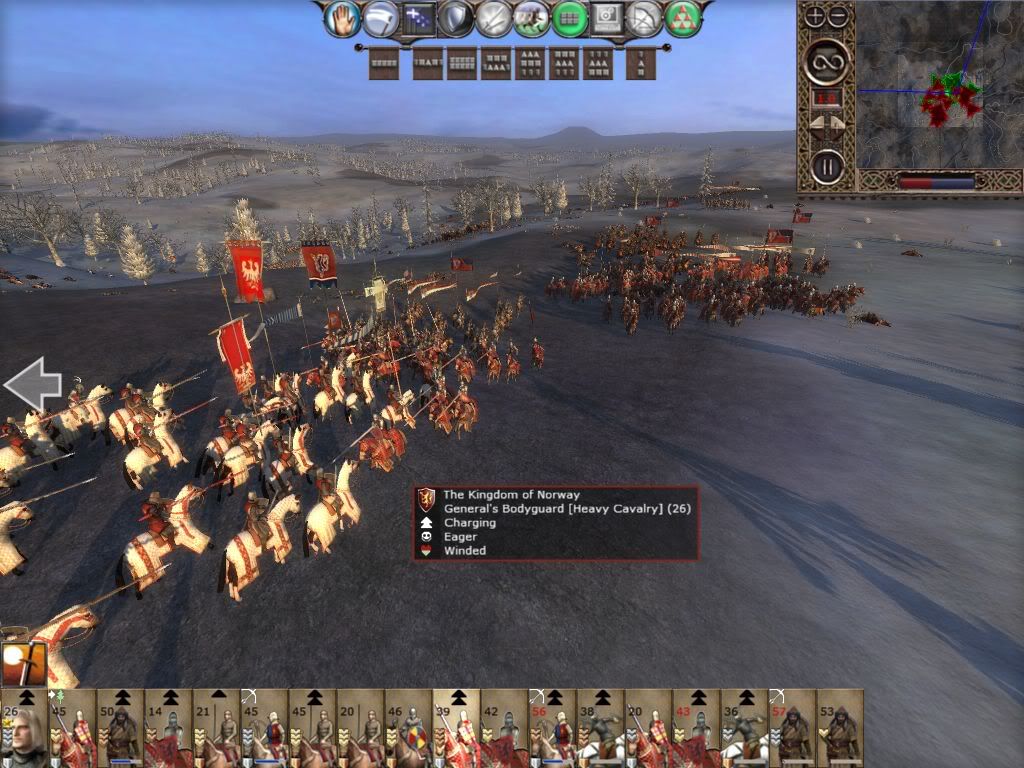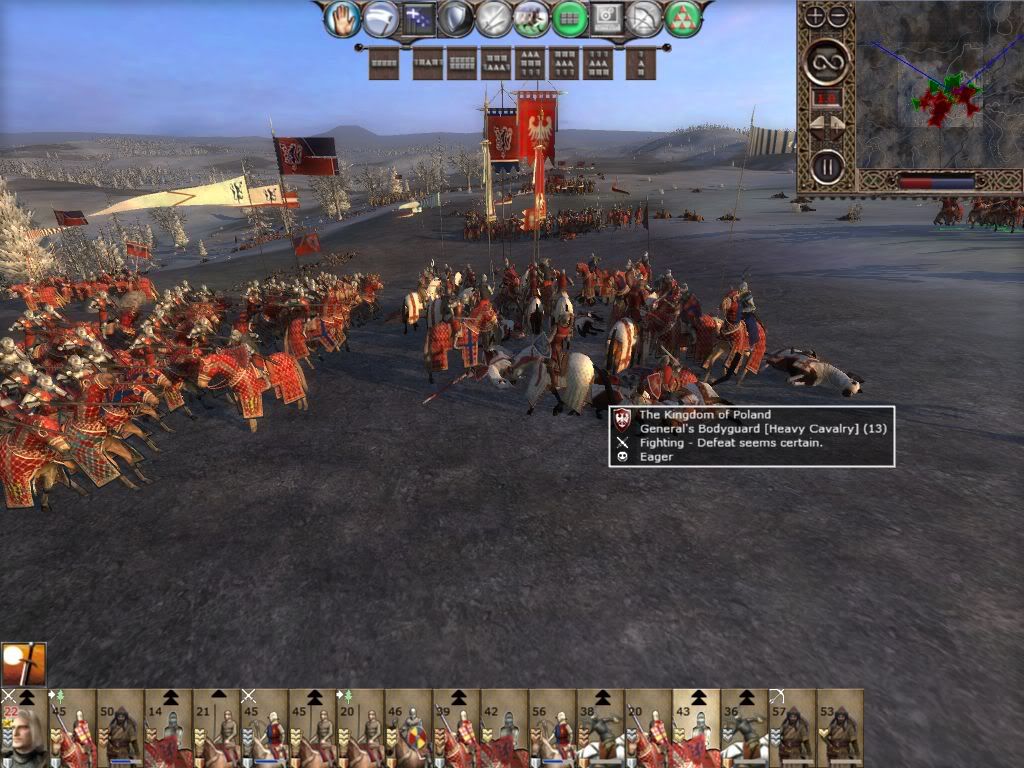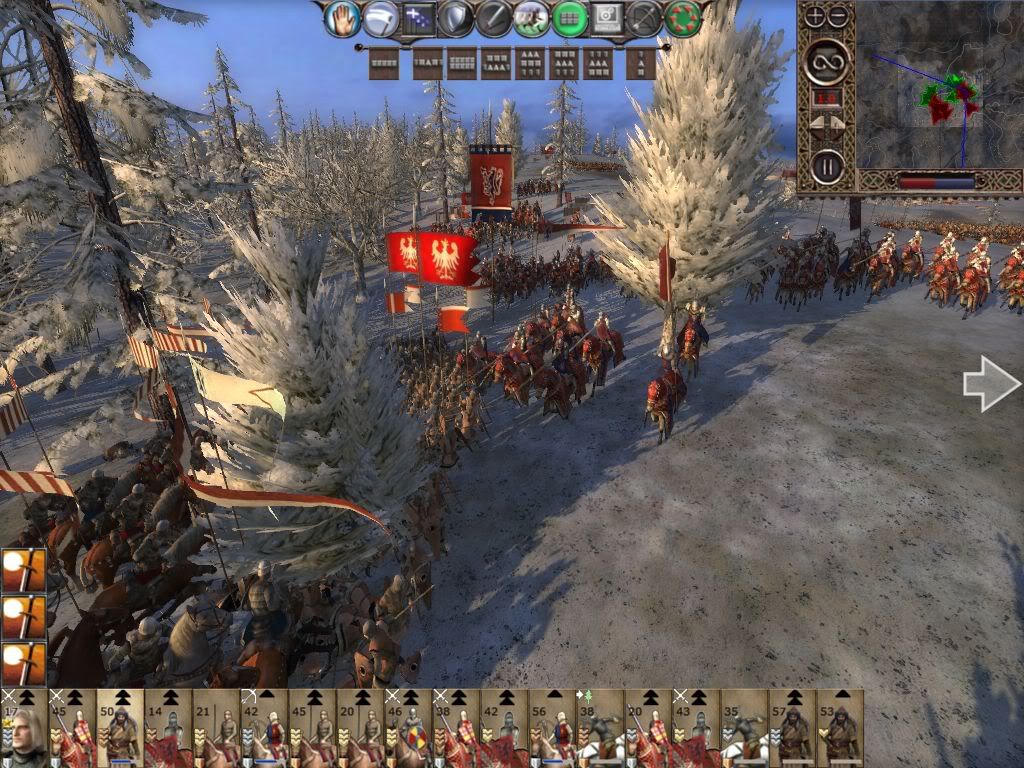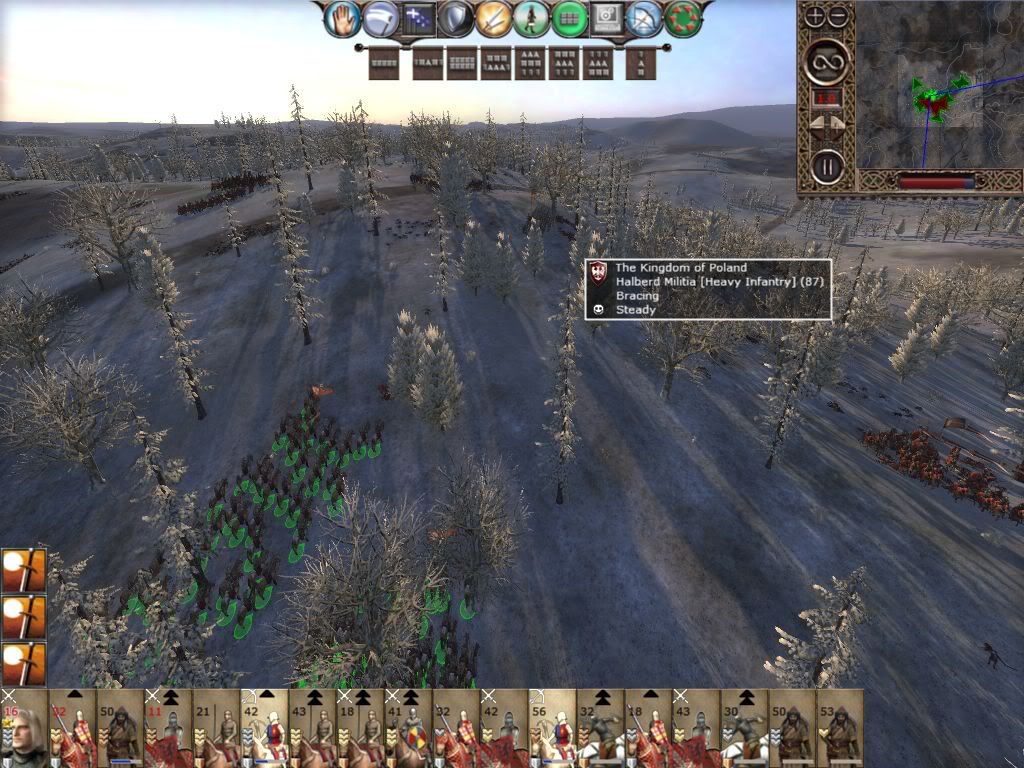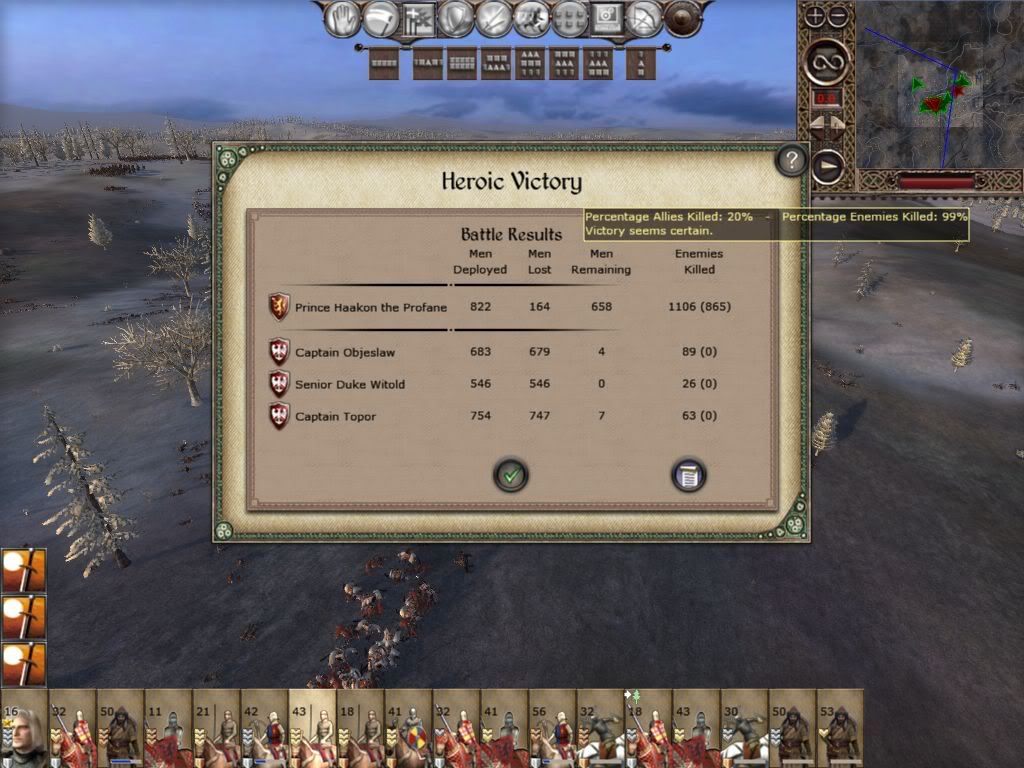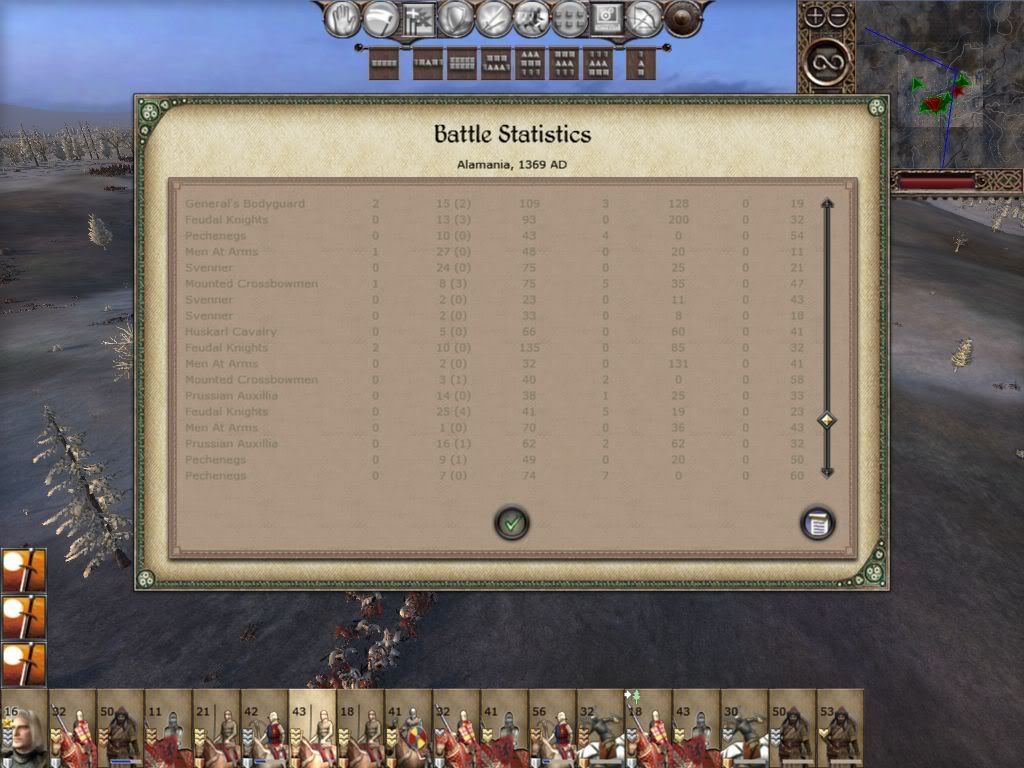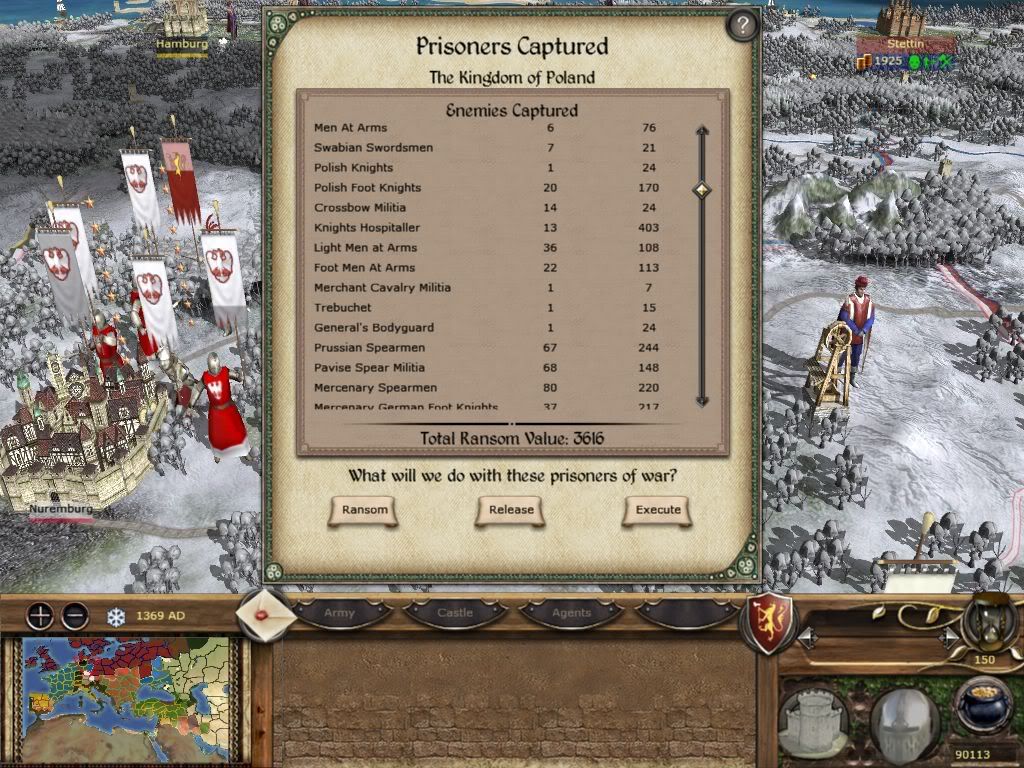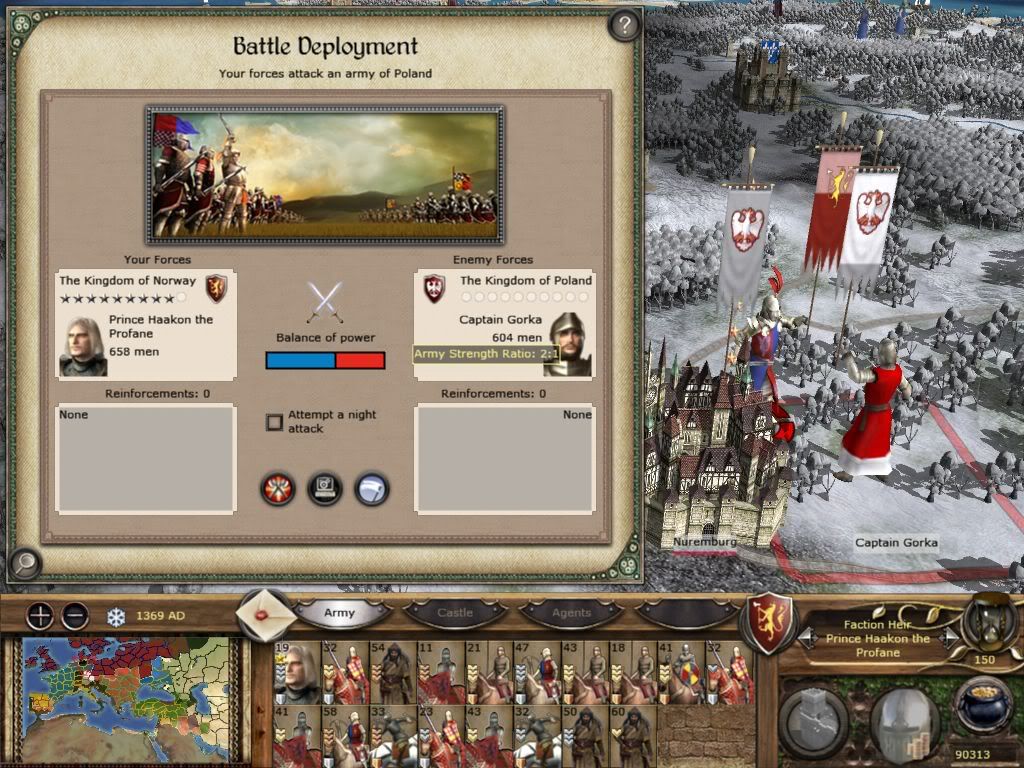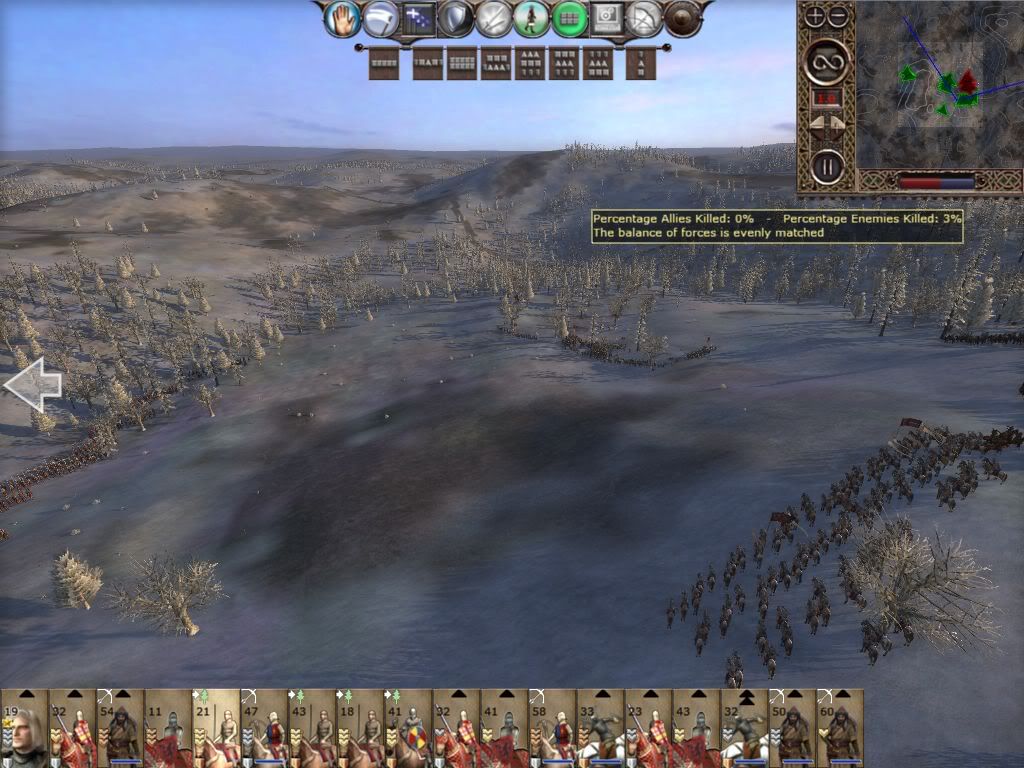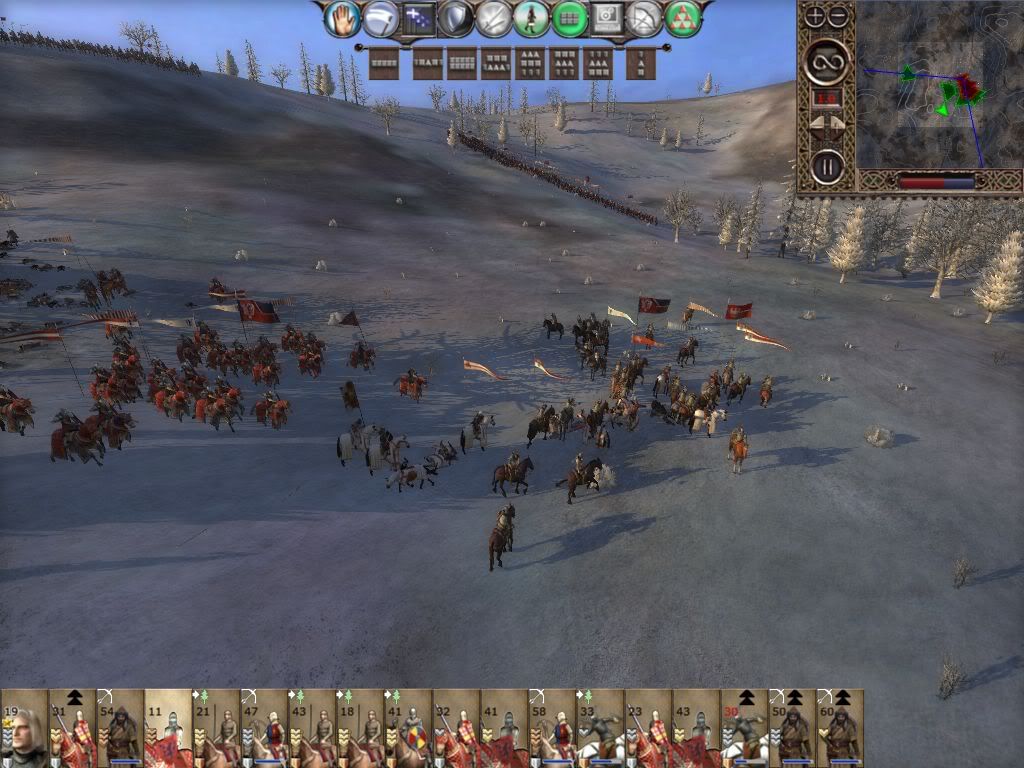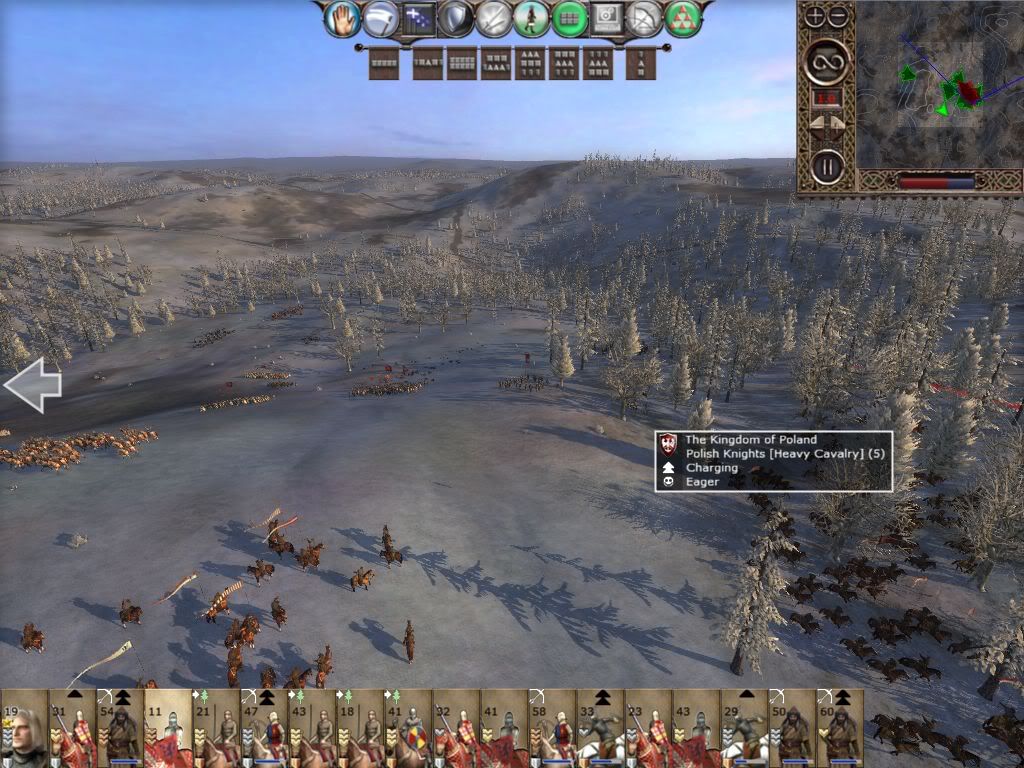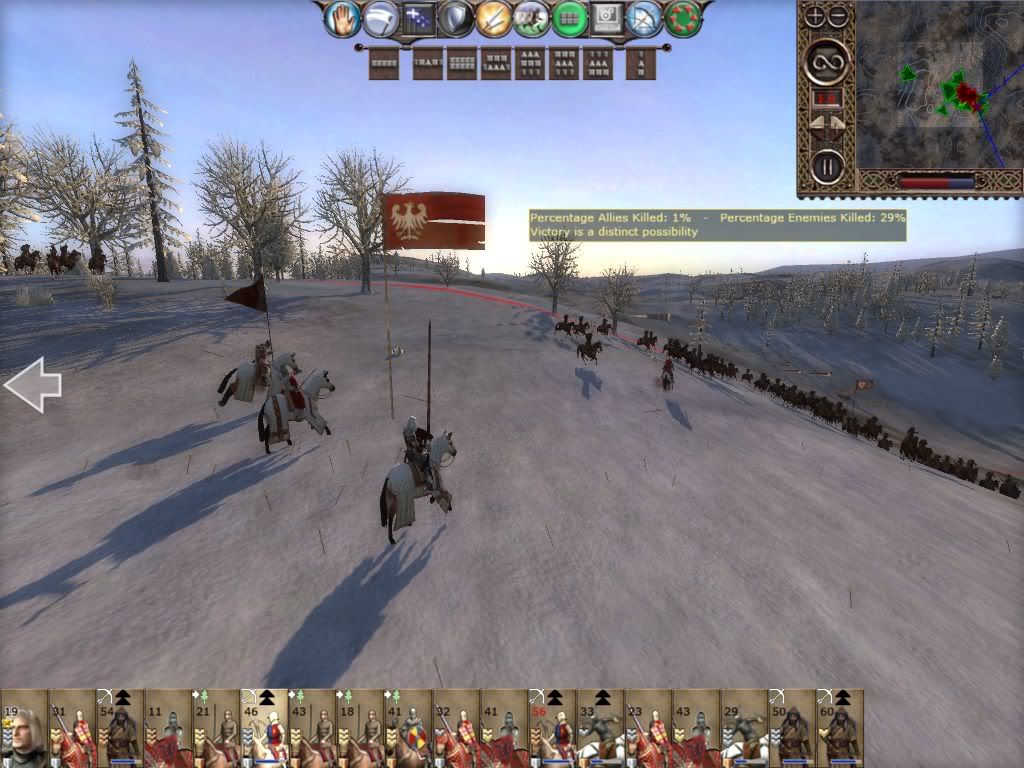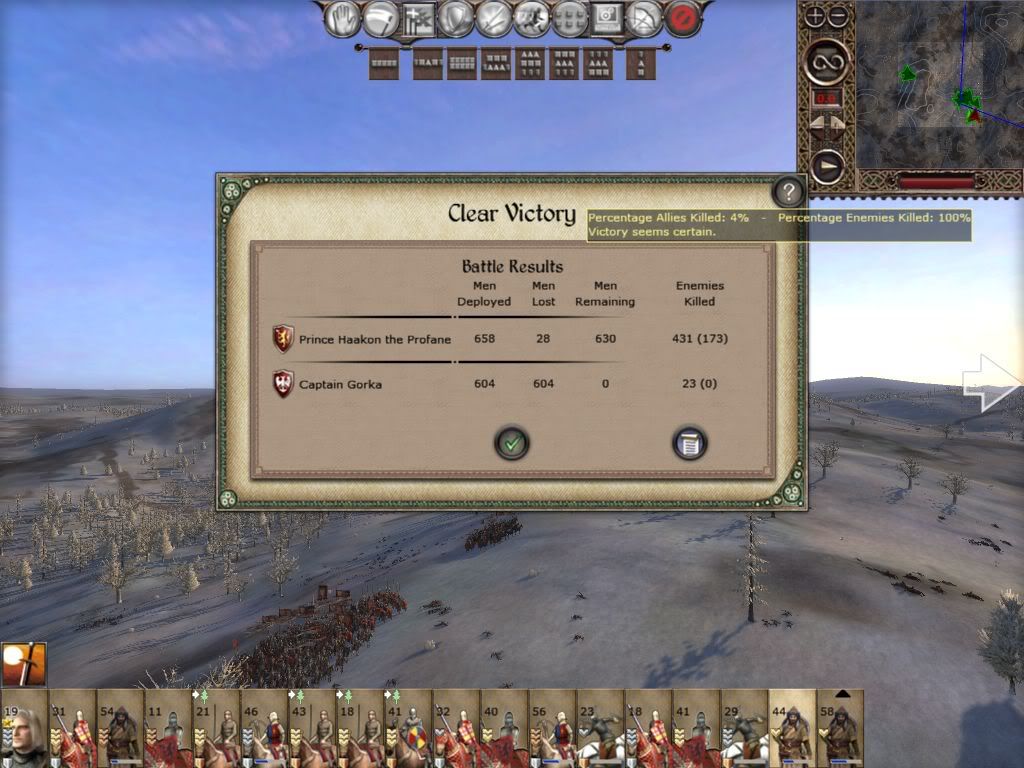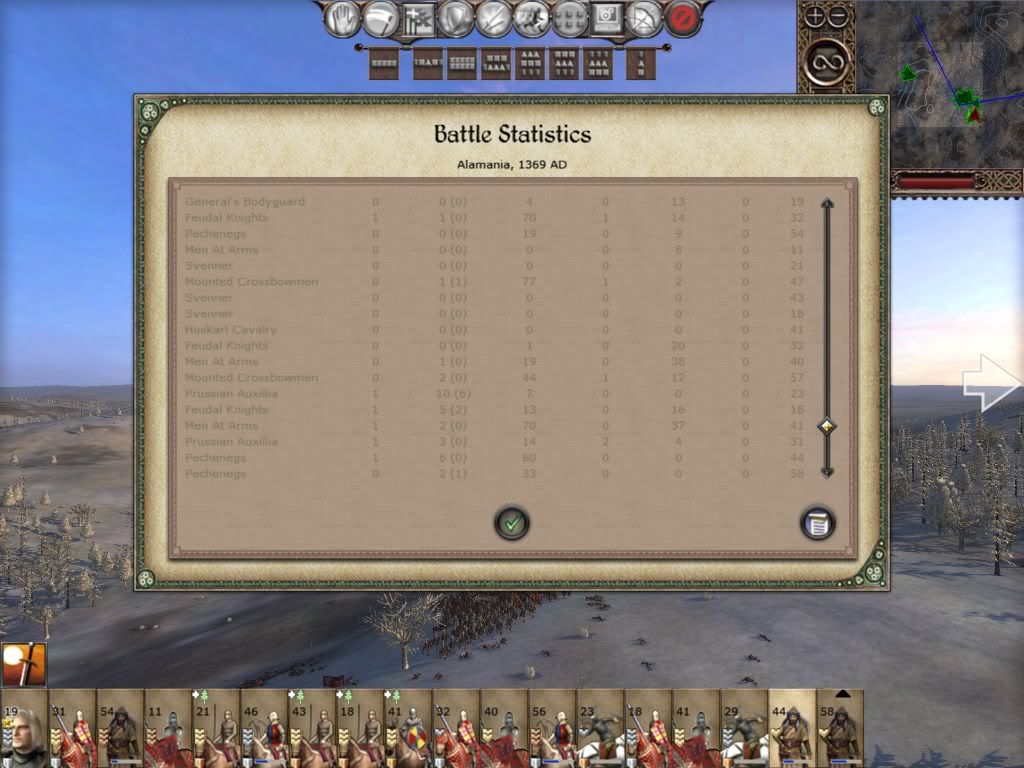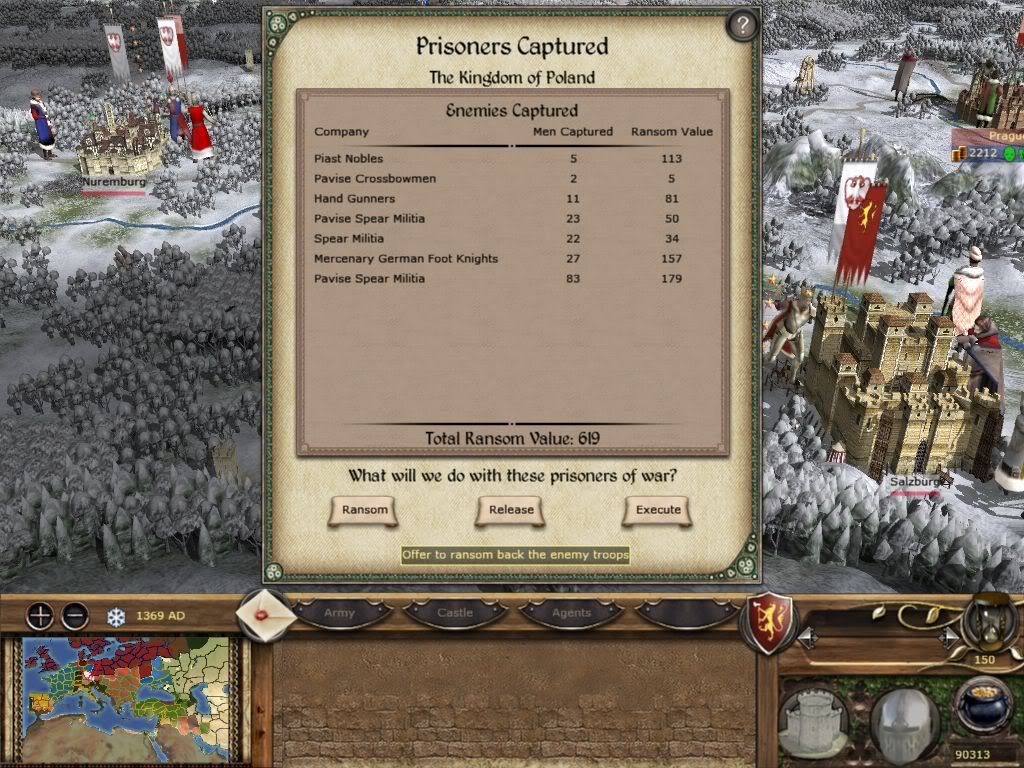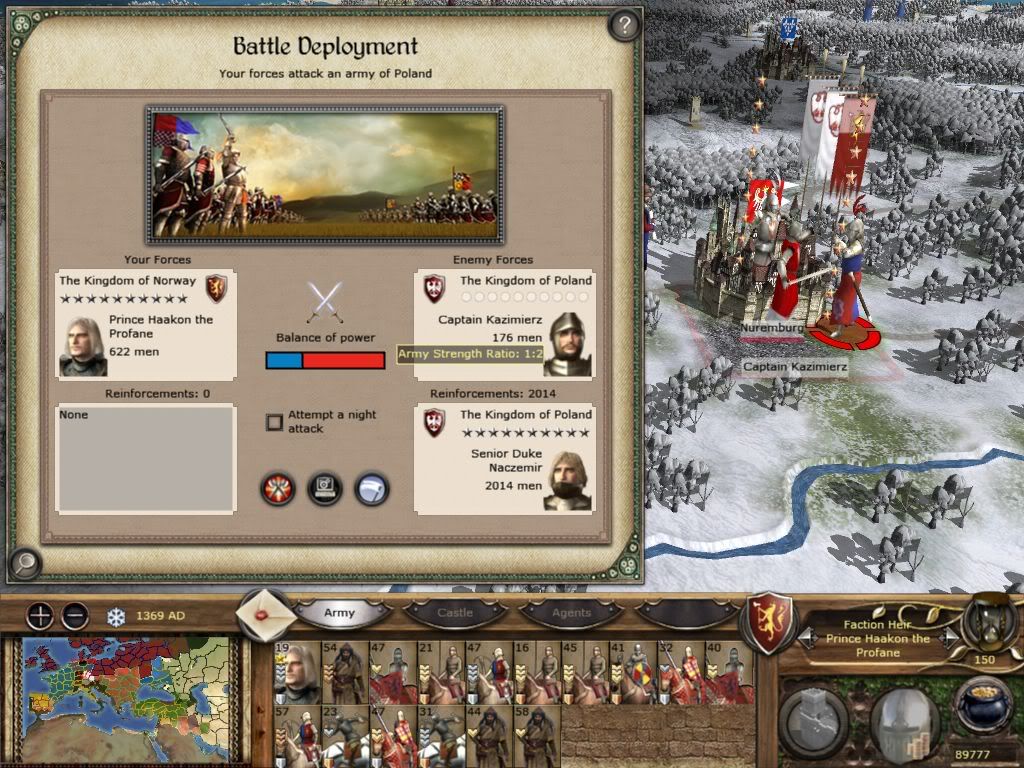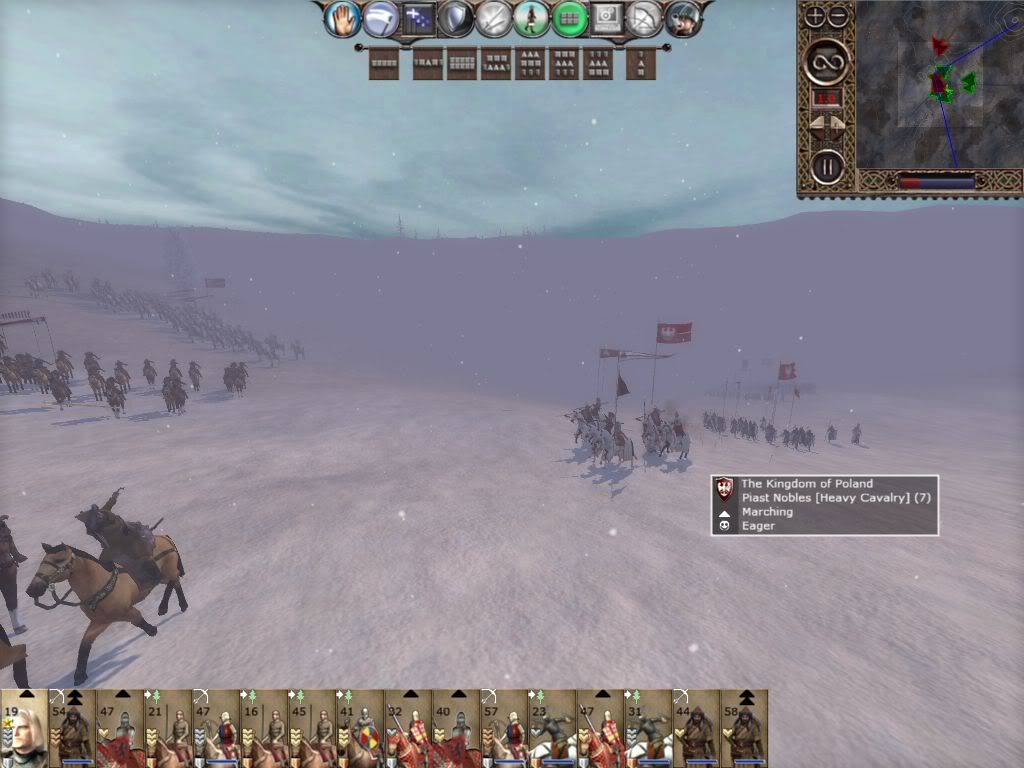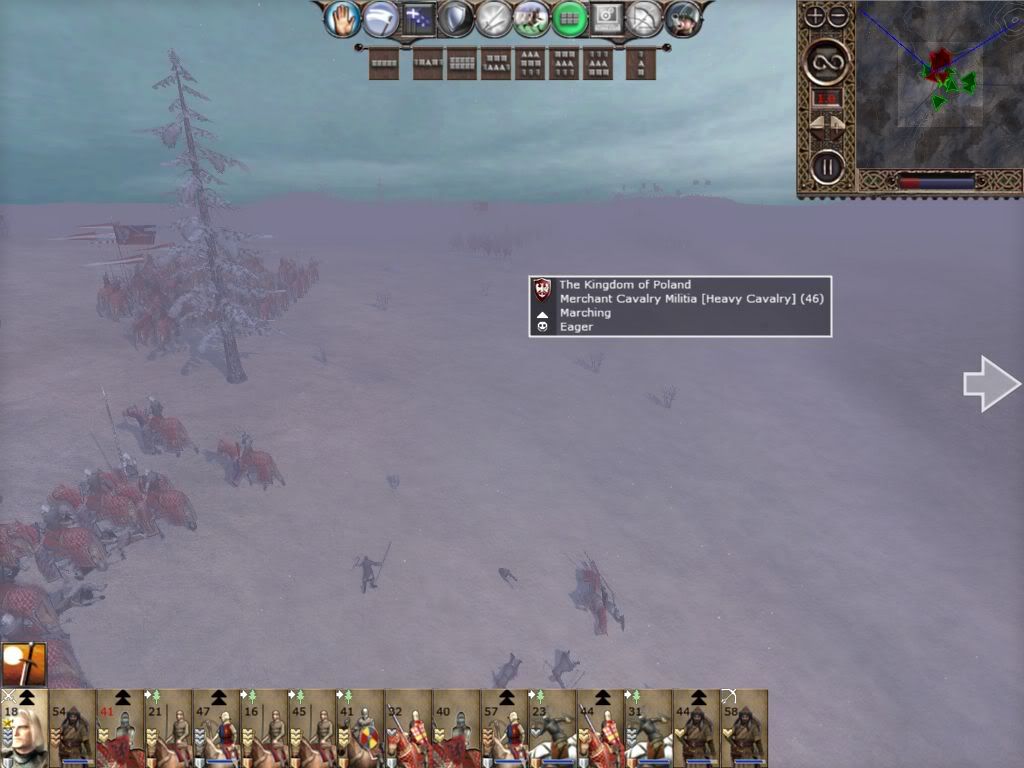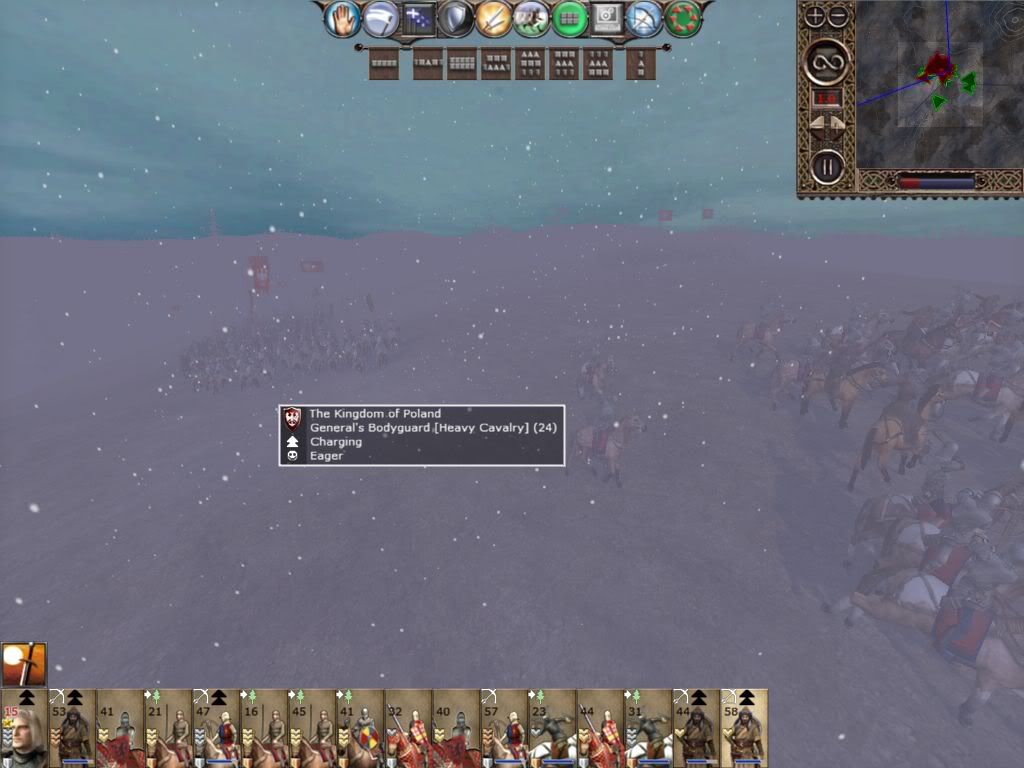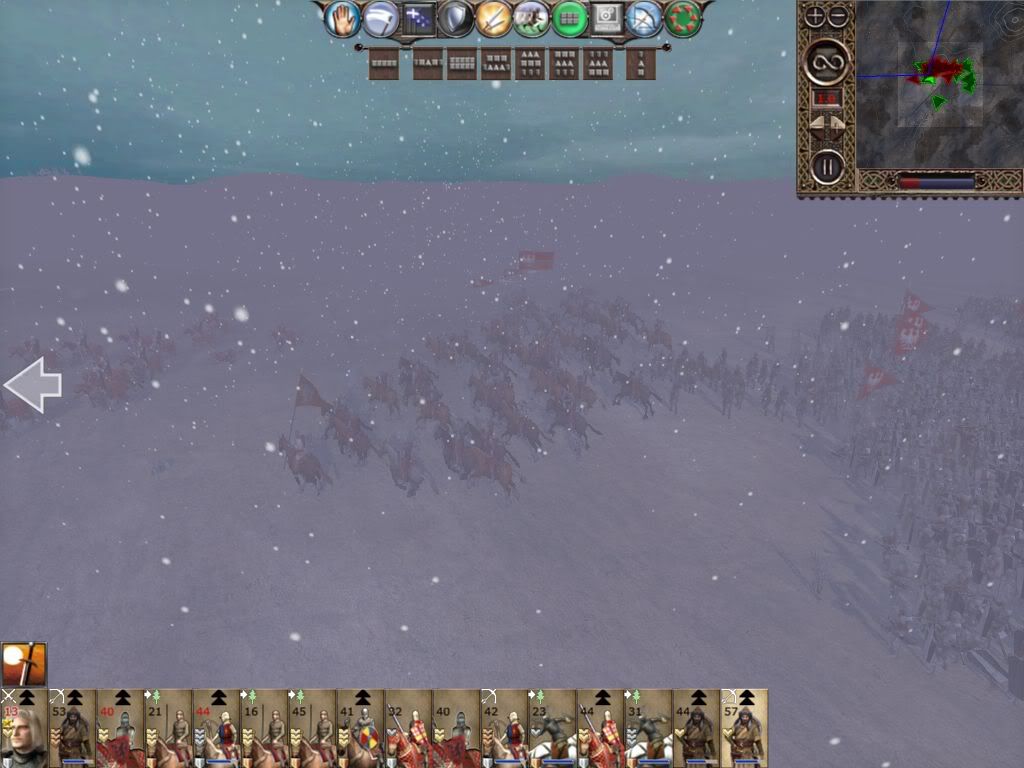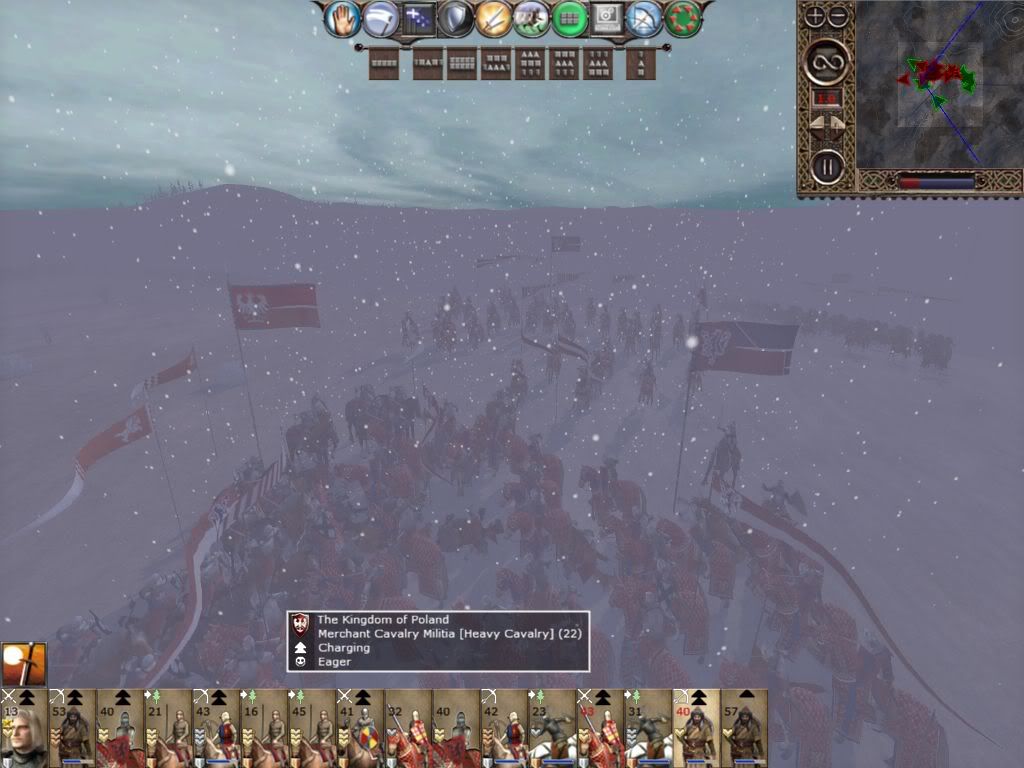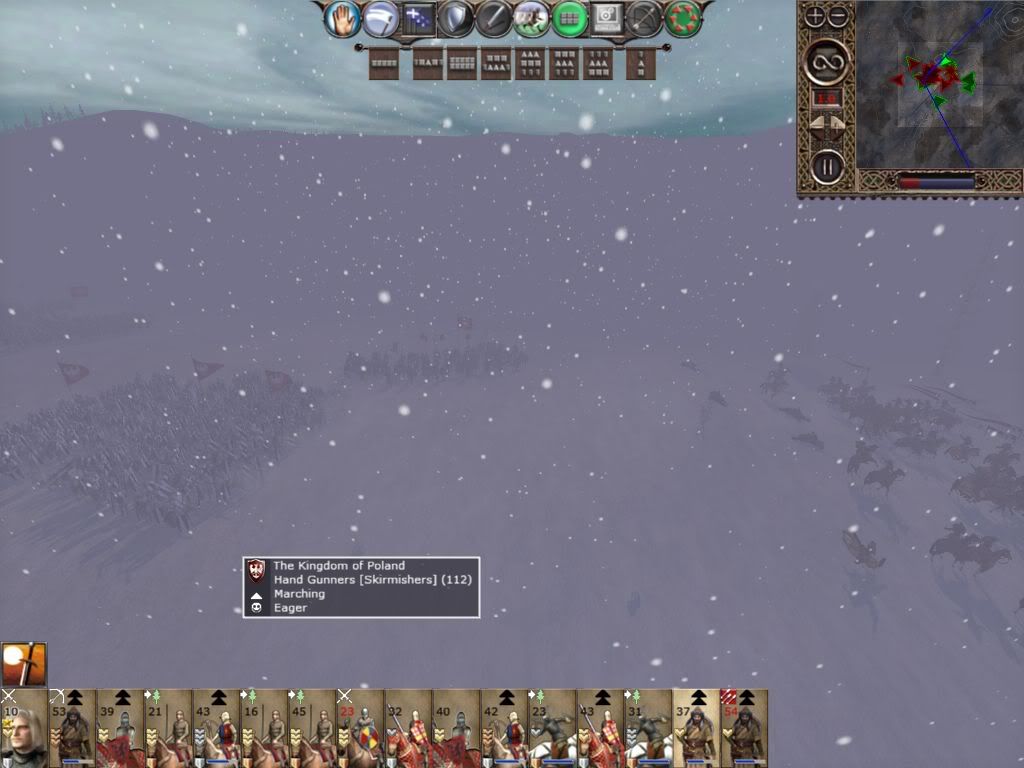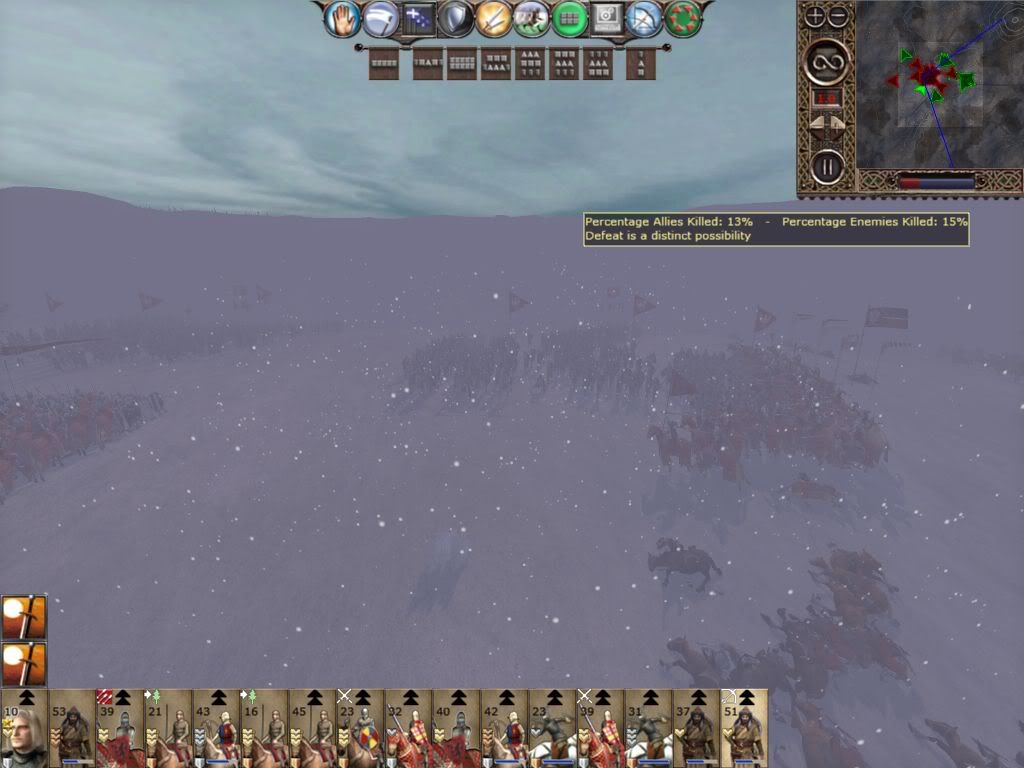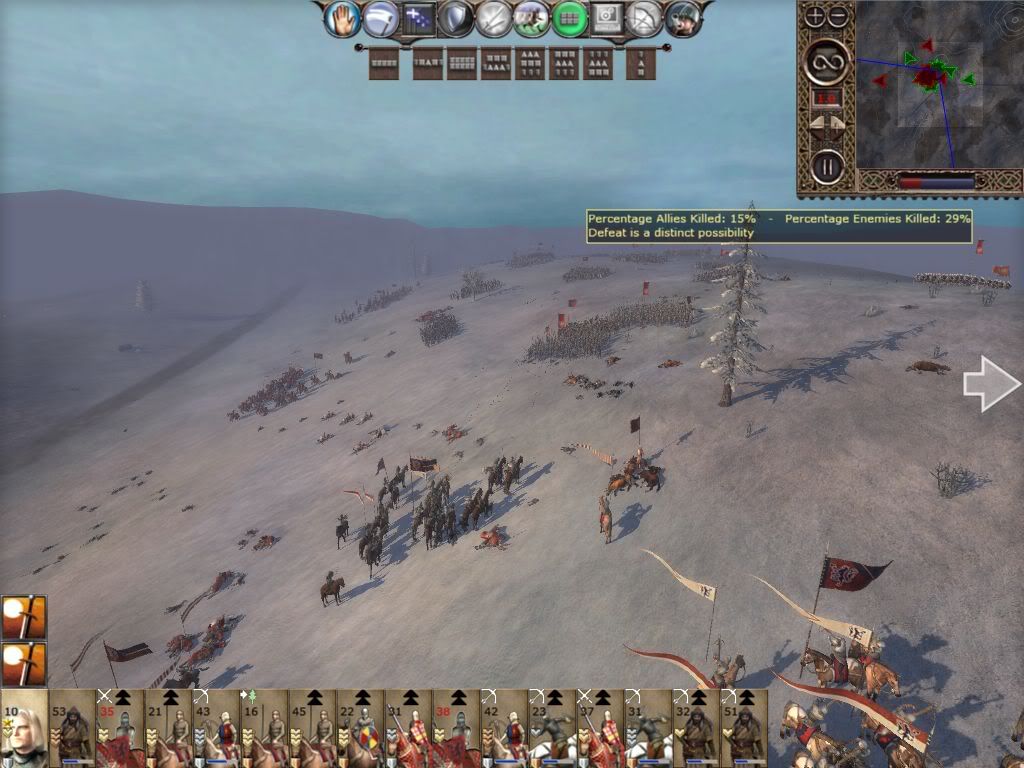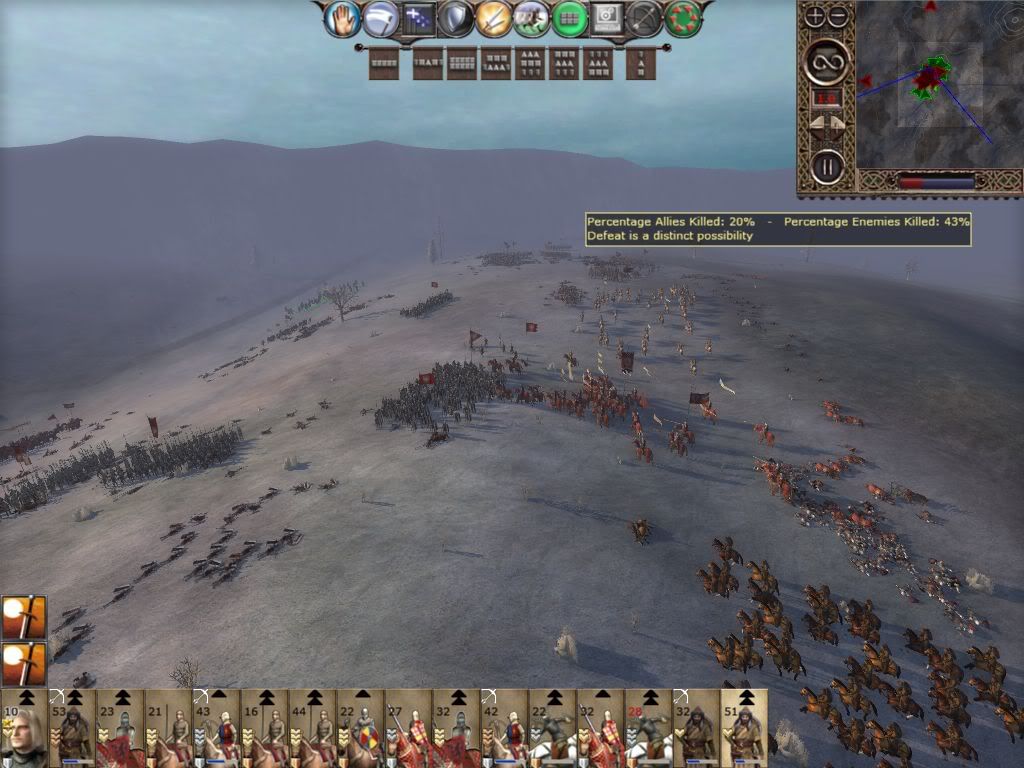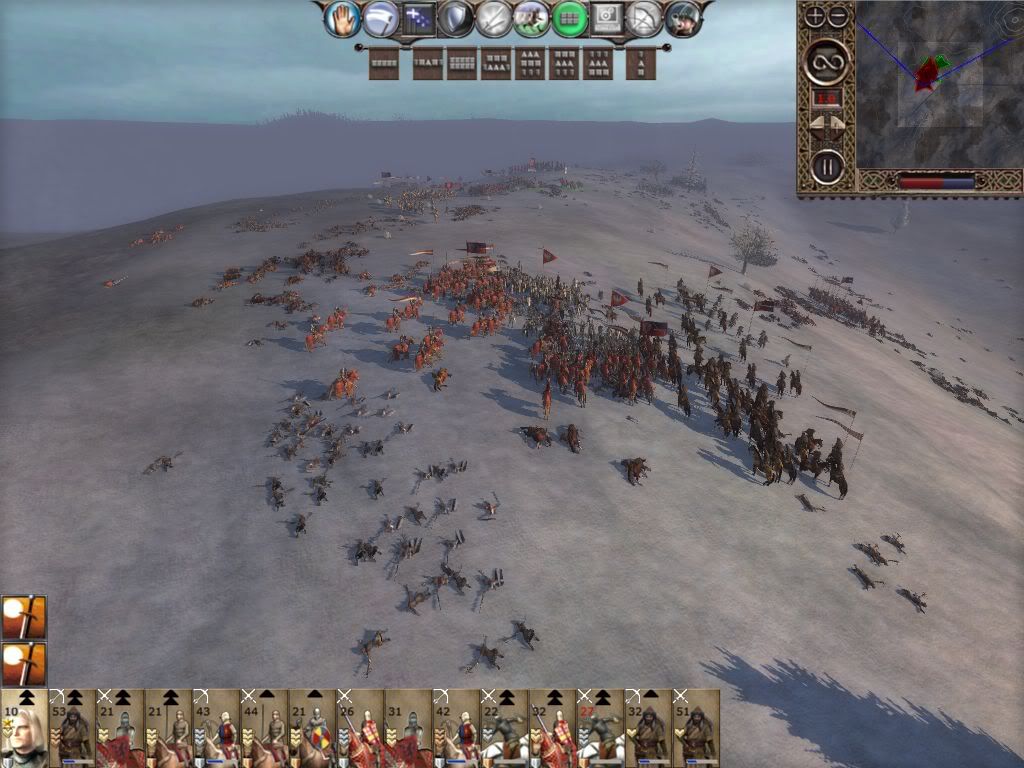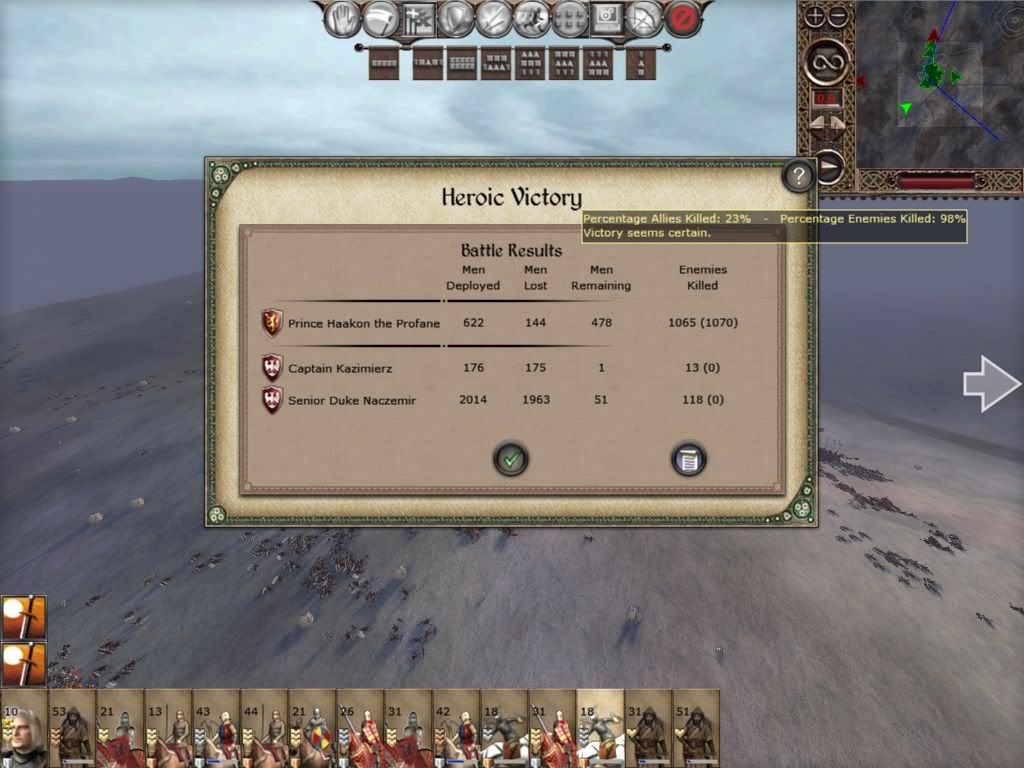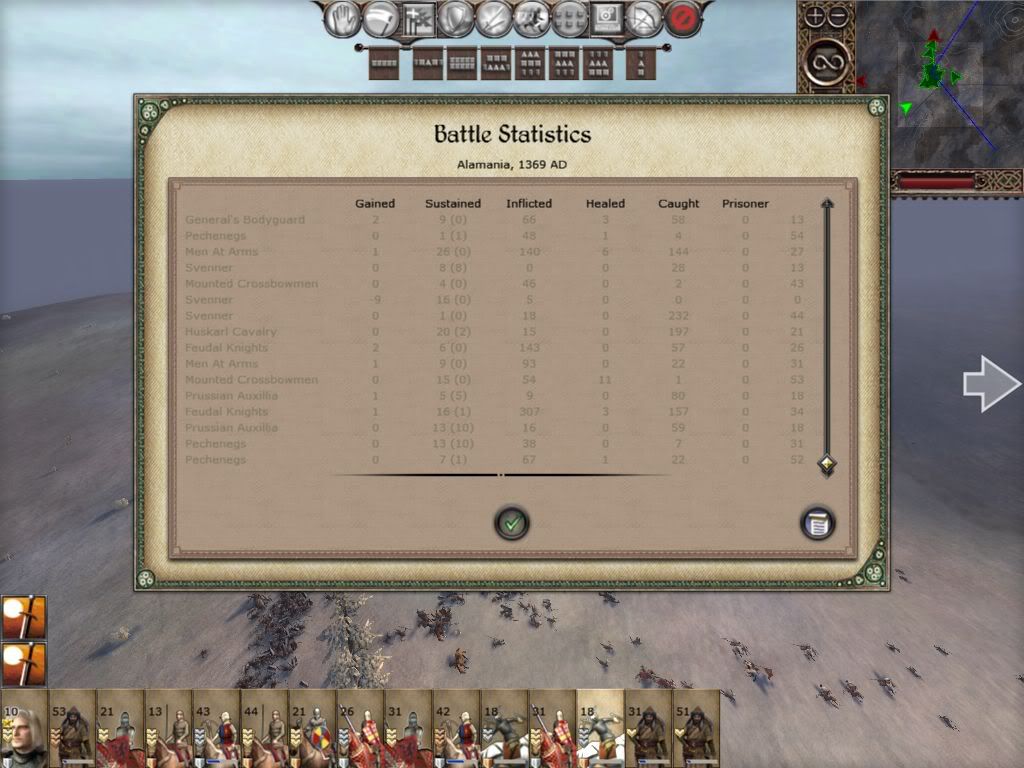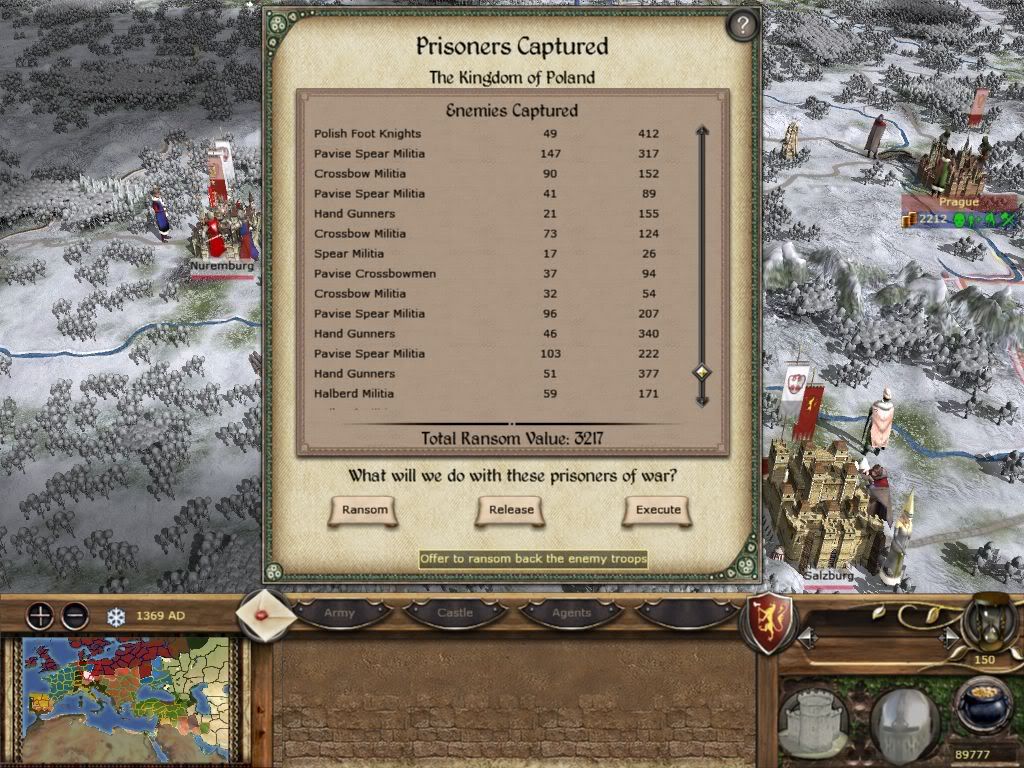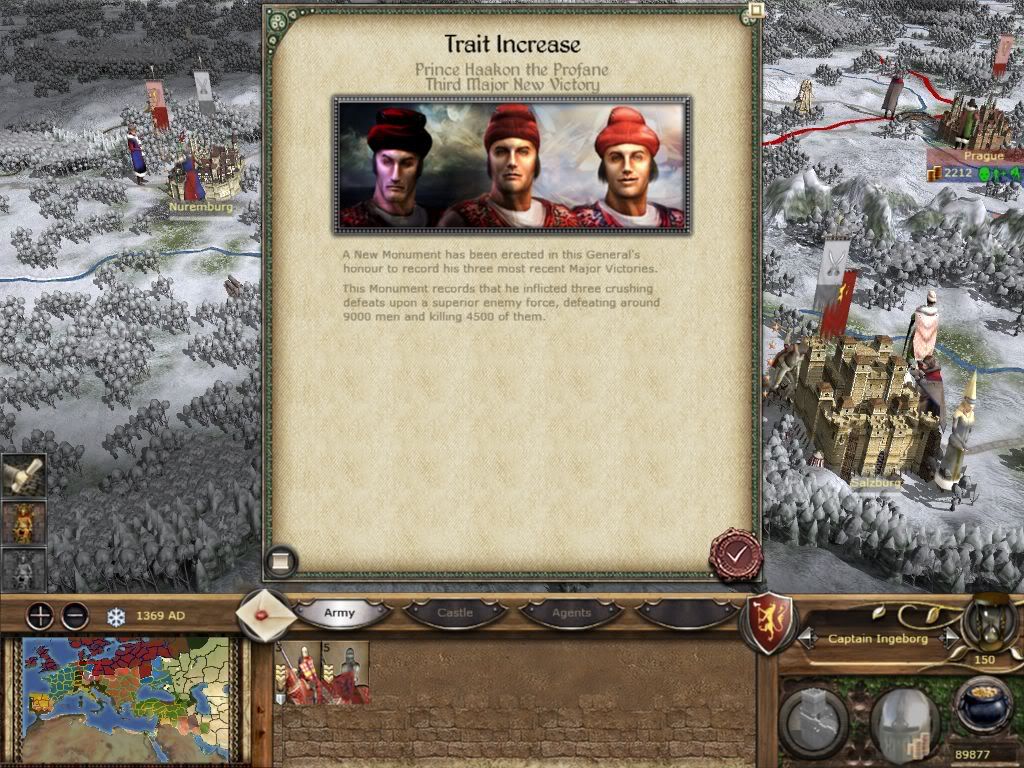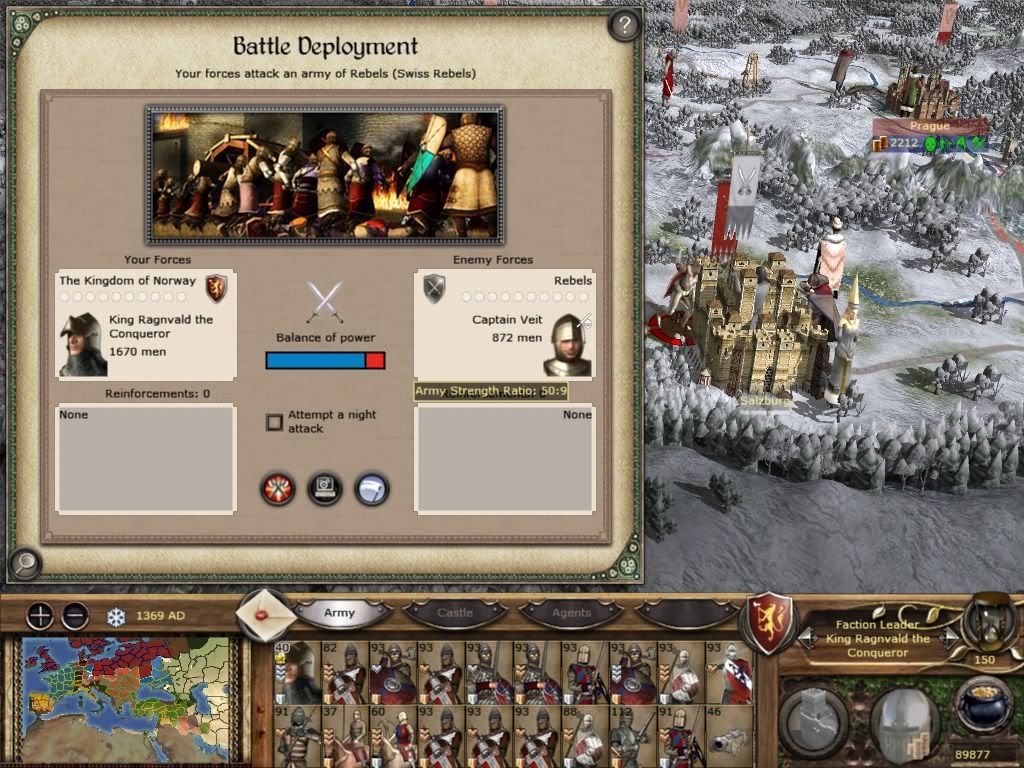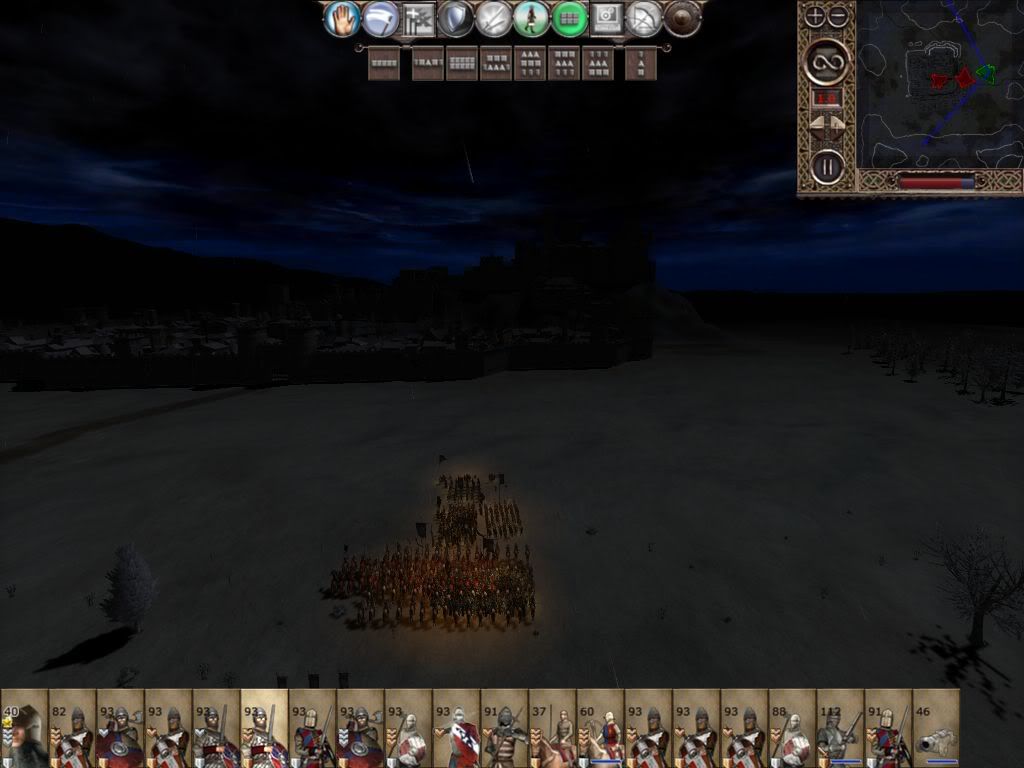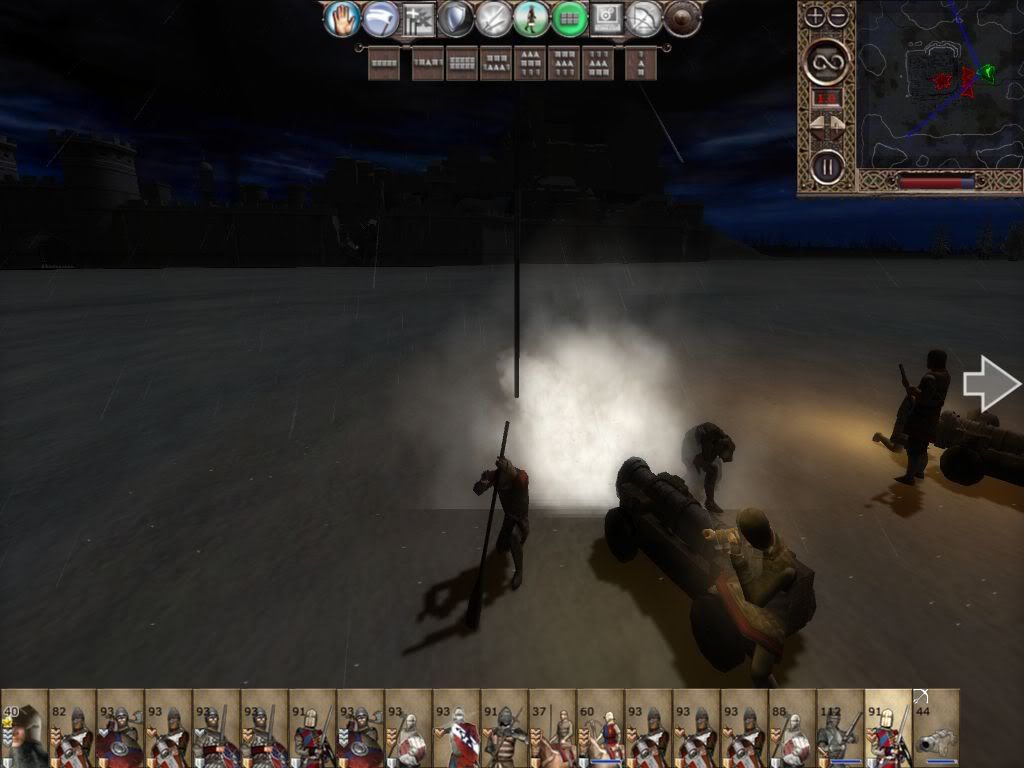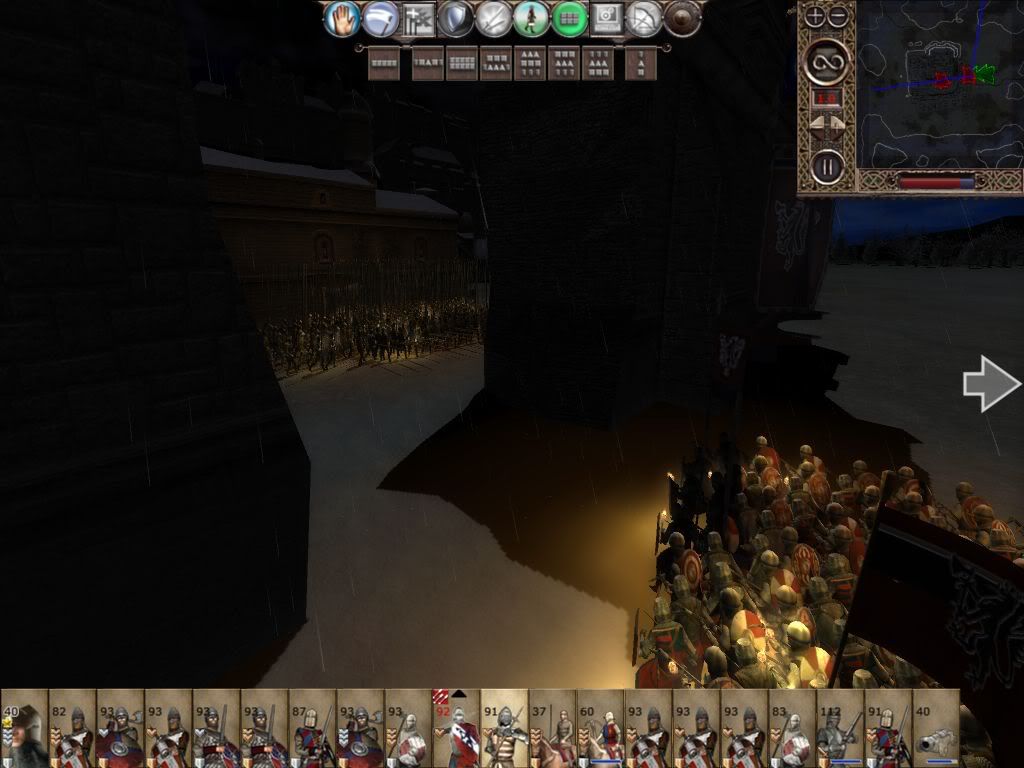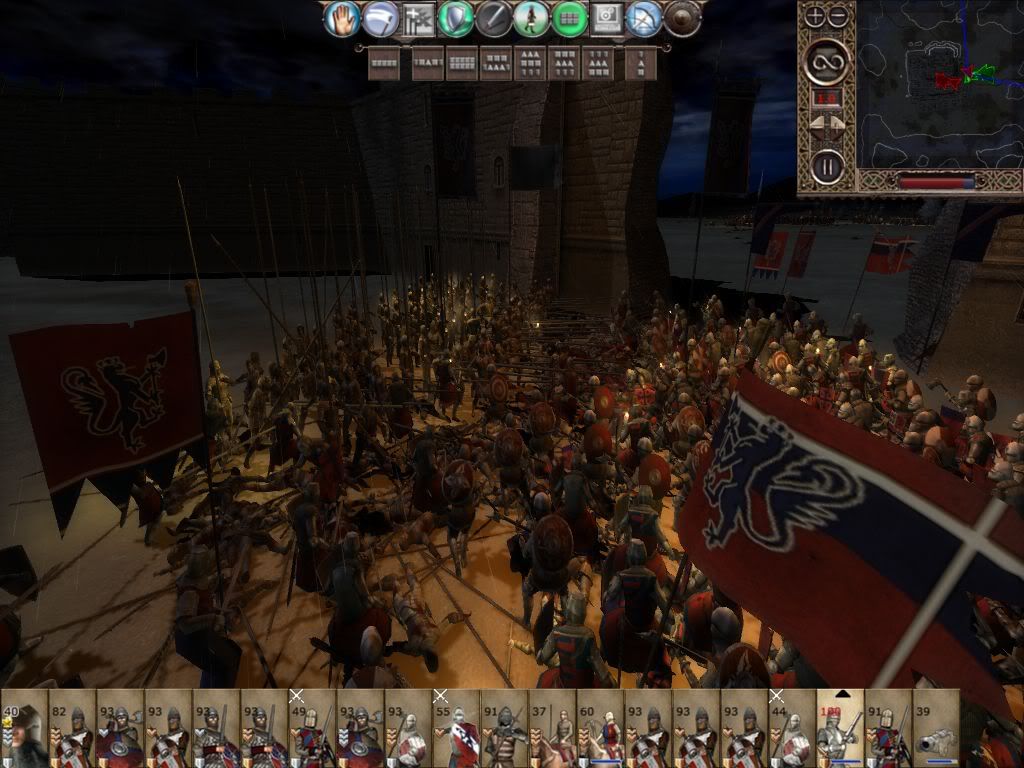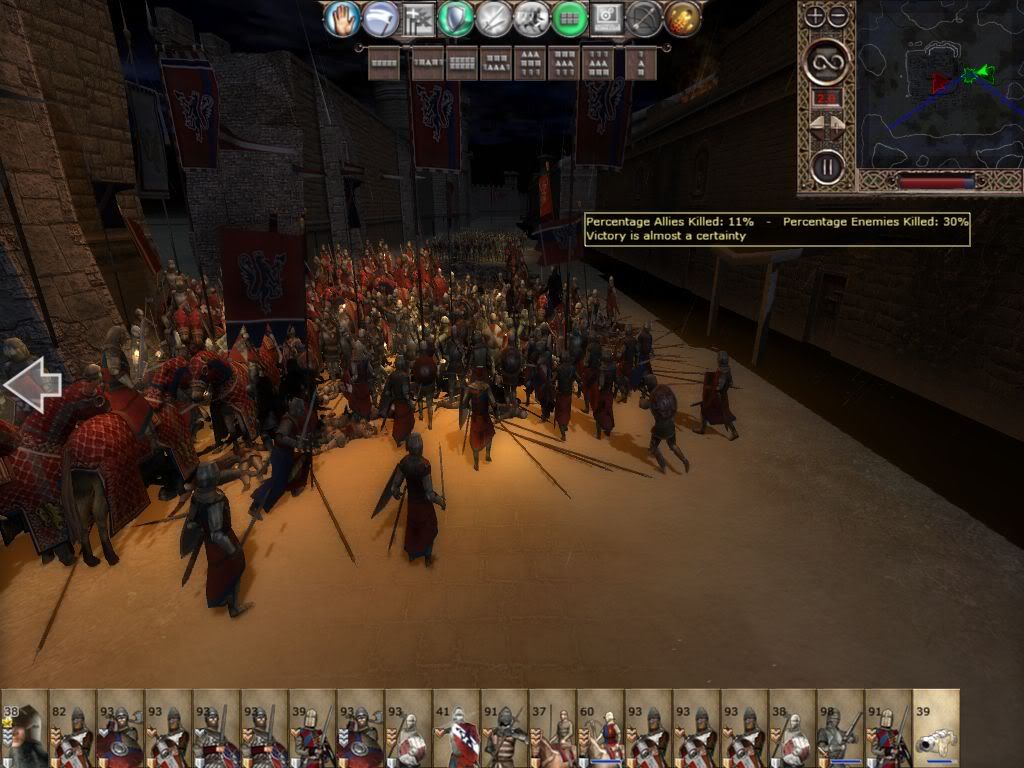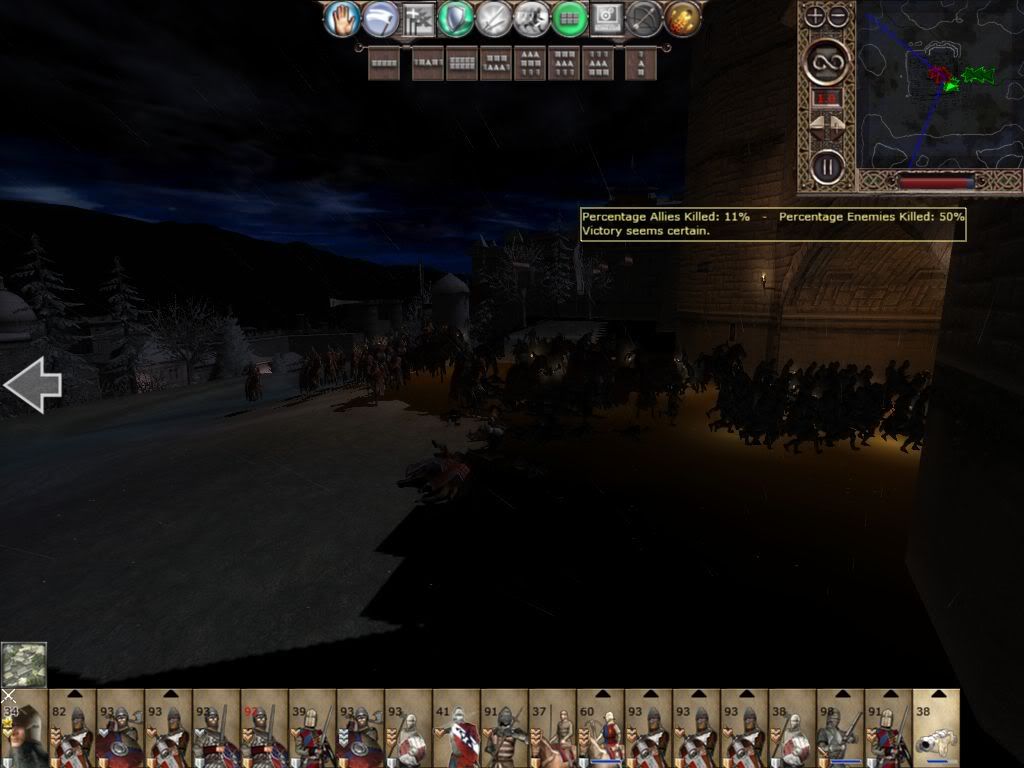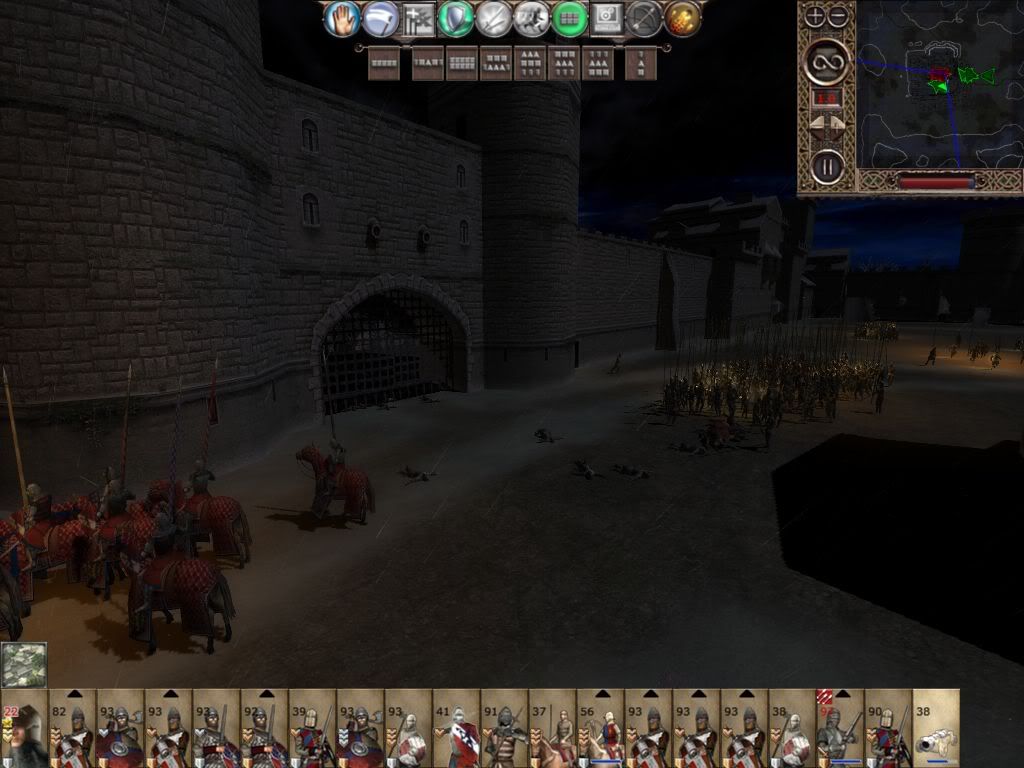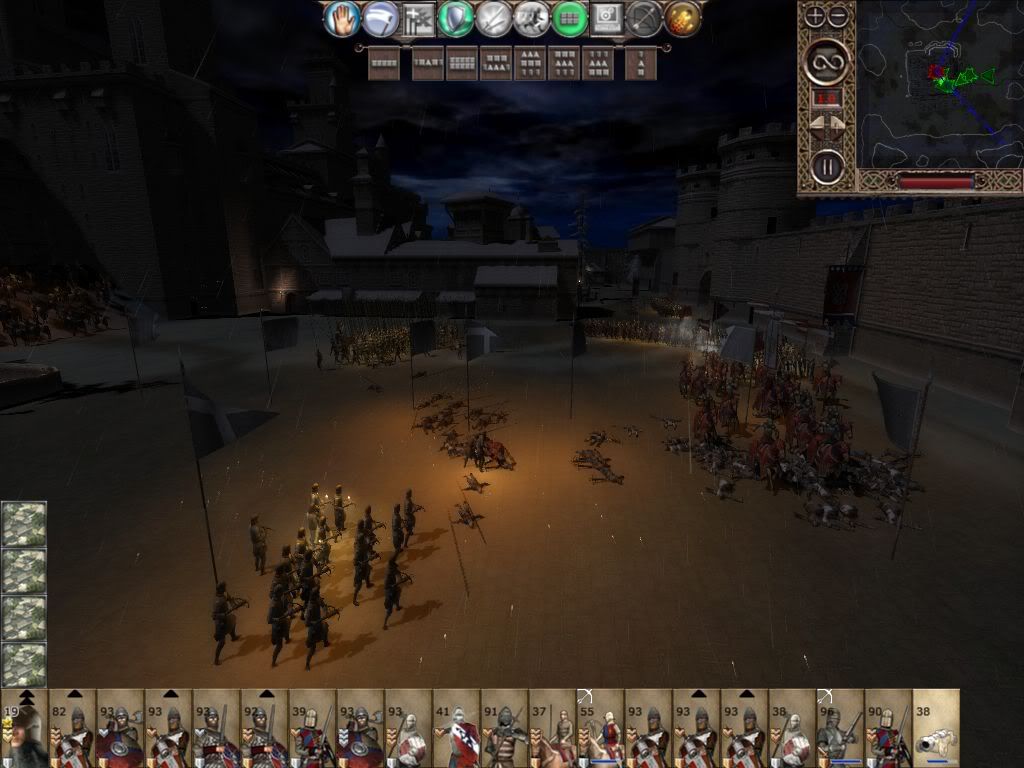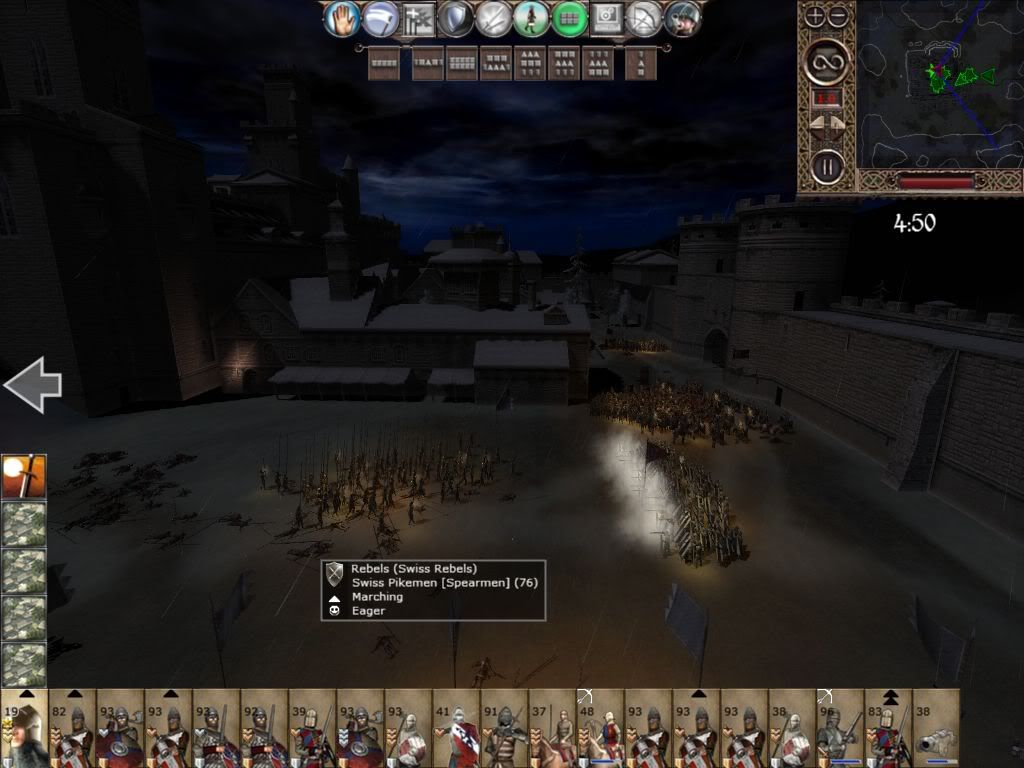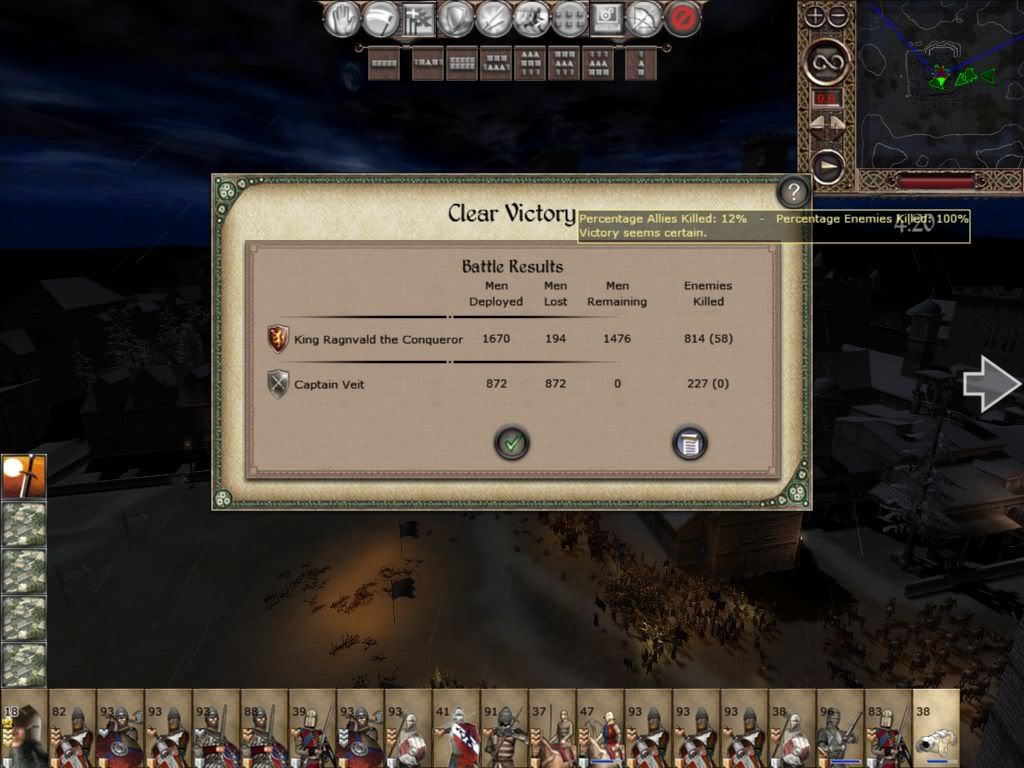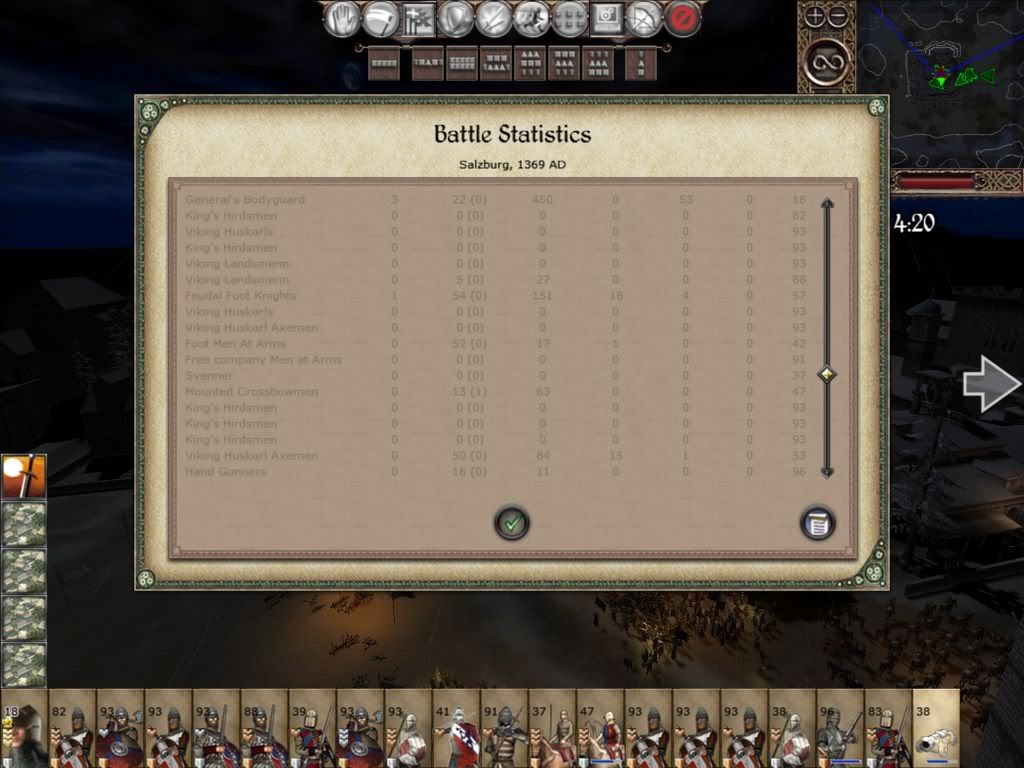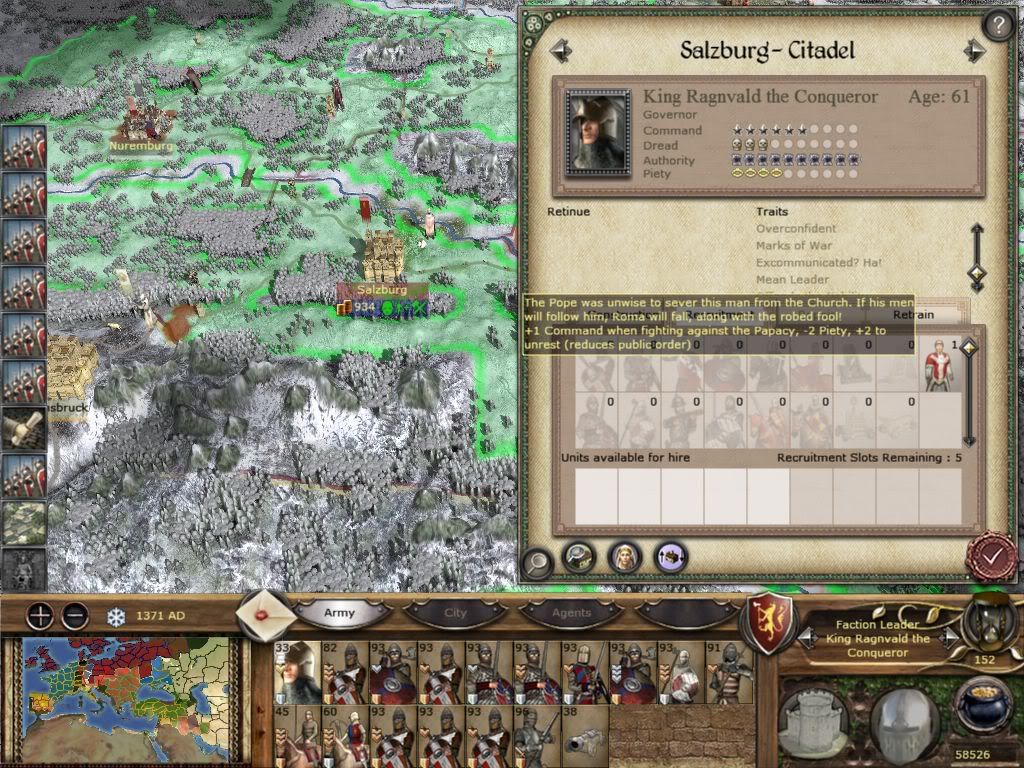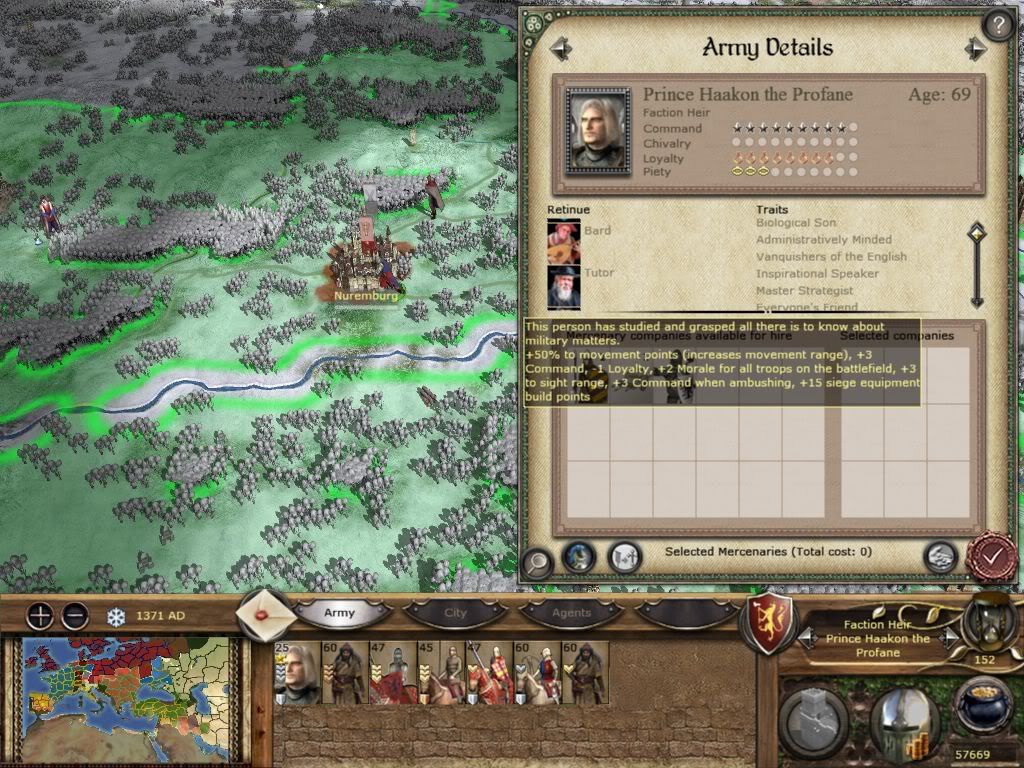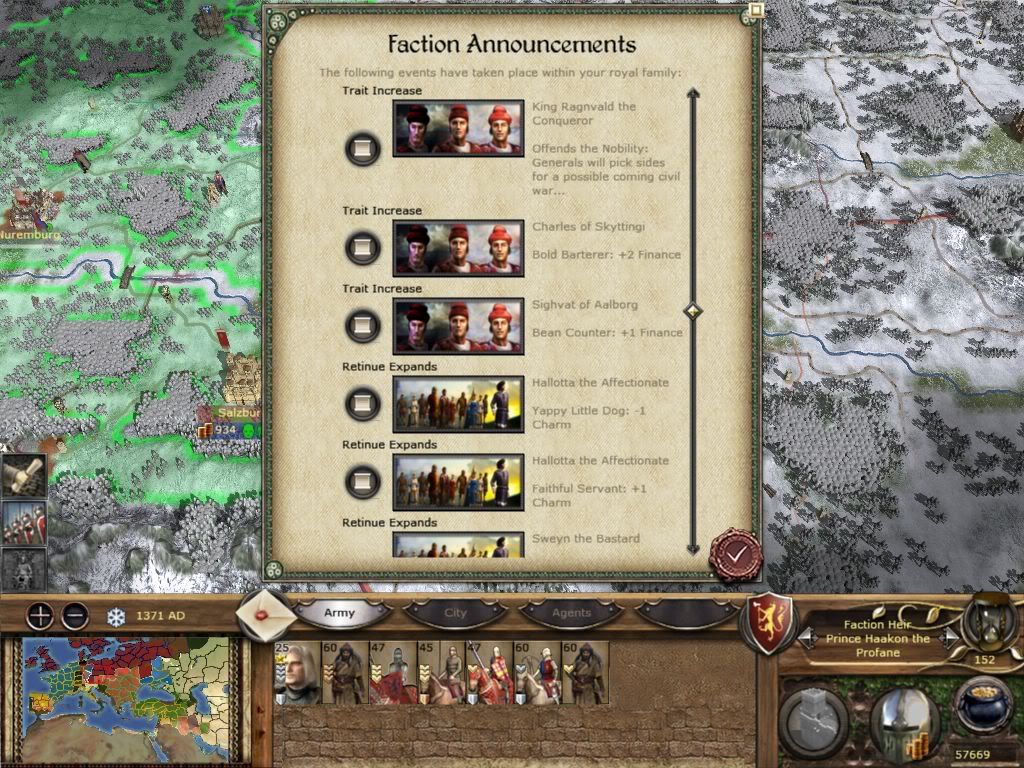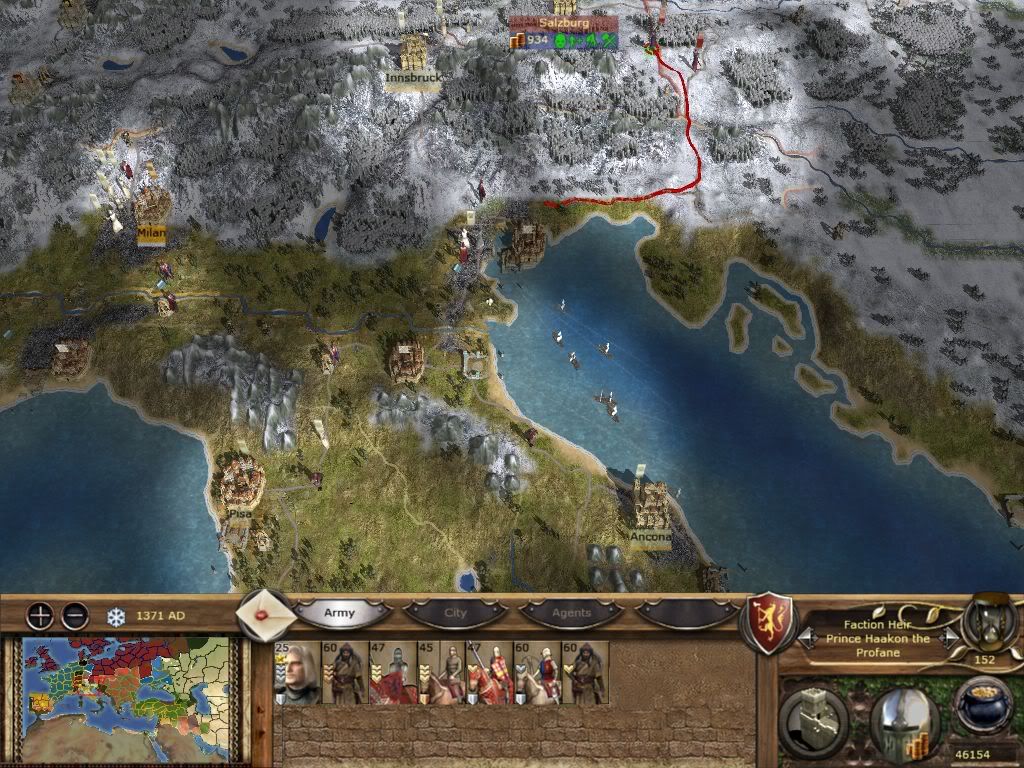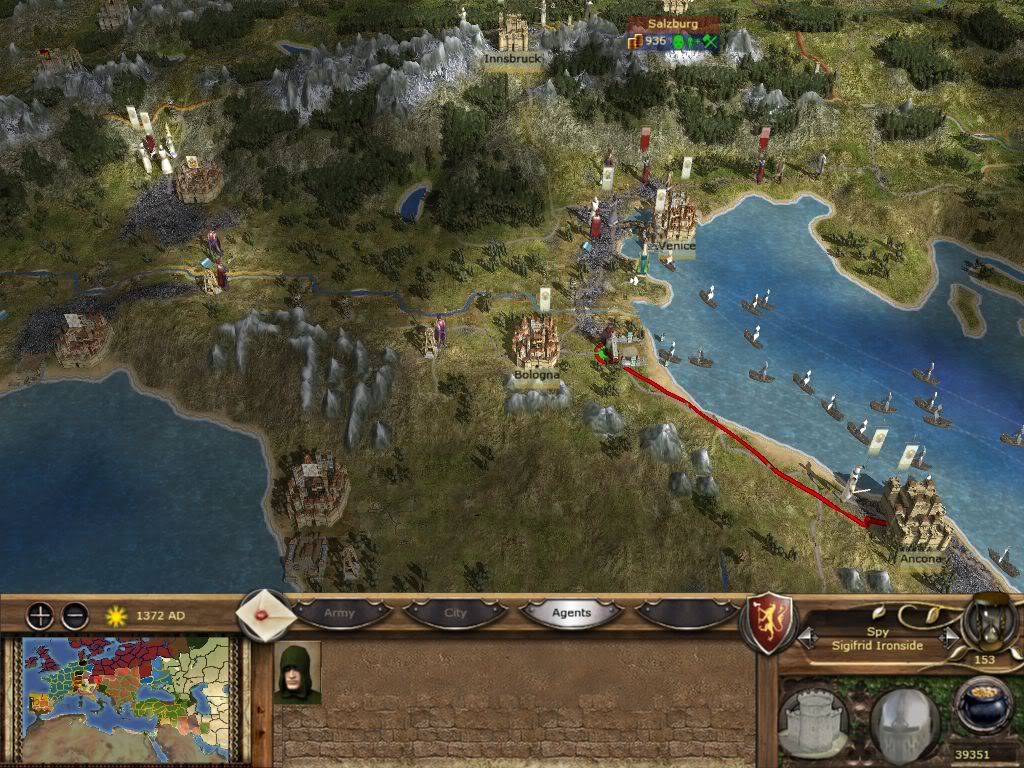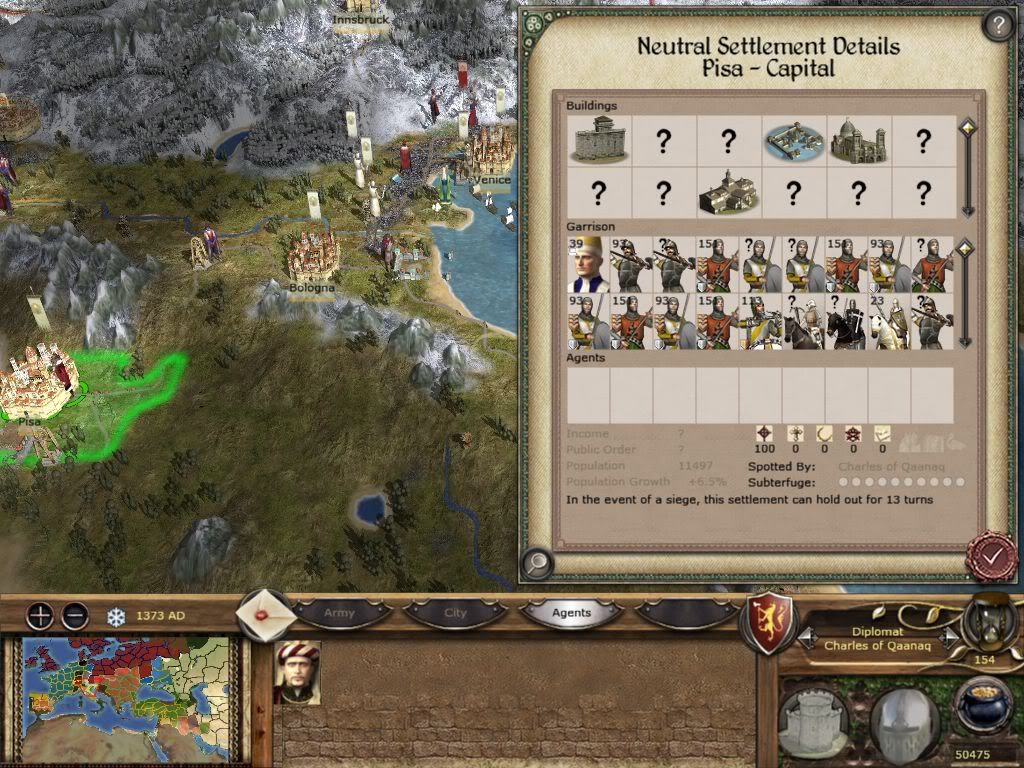King Ragnvald approaches Hrodna where Prince Haakon's messengers find him and inform him of the Teuton's last large army to the NE. King Ragnvald can barely march there before the campaign season is over and might risk early snows but with reinforcements from Konigsburg and Prince Haakon in Hrodna Ragnvald decides to crush the Teuton's now rather than later.

The forces are evenly matched though the Teutons have greater numbers King Ragnvald has superior infantry.The first of the seasons winter storms had struck the day before and the battlefield is covered in calf deep snow.
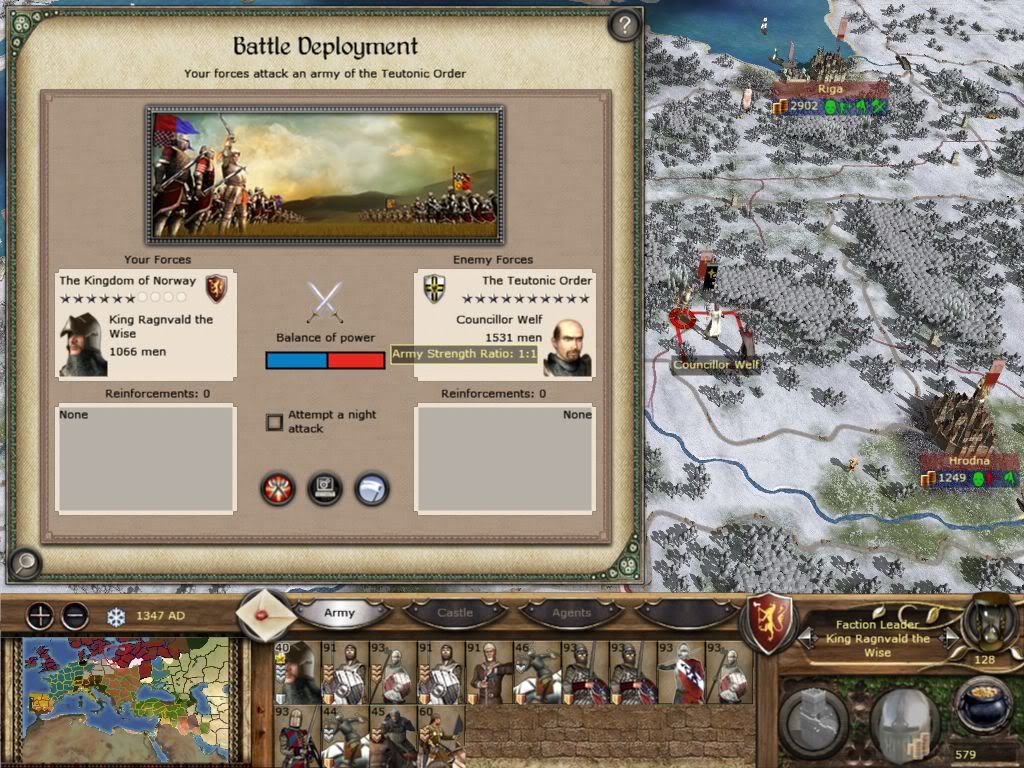
The battle opens with the Norwegians on higher ground but the Teuton army holds steady to its position. King Ragnvald waits for awhile then sends a company of Kazak mercenaries whose services he purchased far to the east down to try and draw the Teutons out of position.
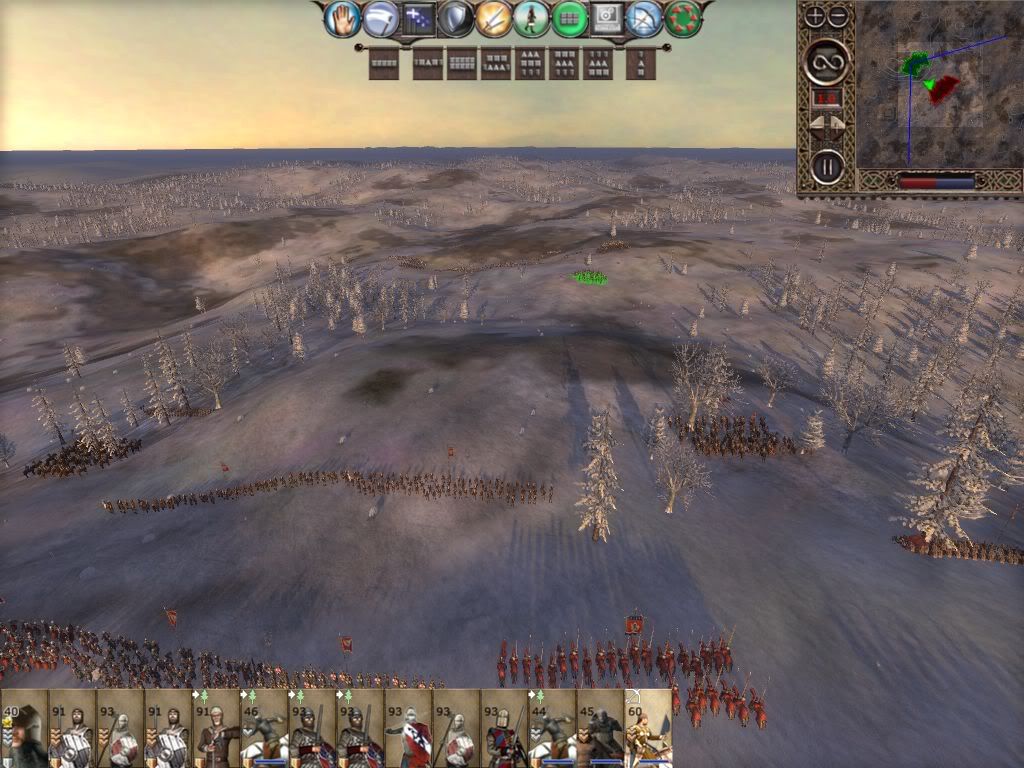
The Kazaks do manage to draw some of the Teutons Pecheneg cavalry forward but miscalculate on the range when changing position and the Pechenegs gain a small elevation advantage and inflict heavy casualties early in the exchange.
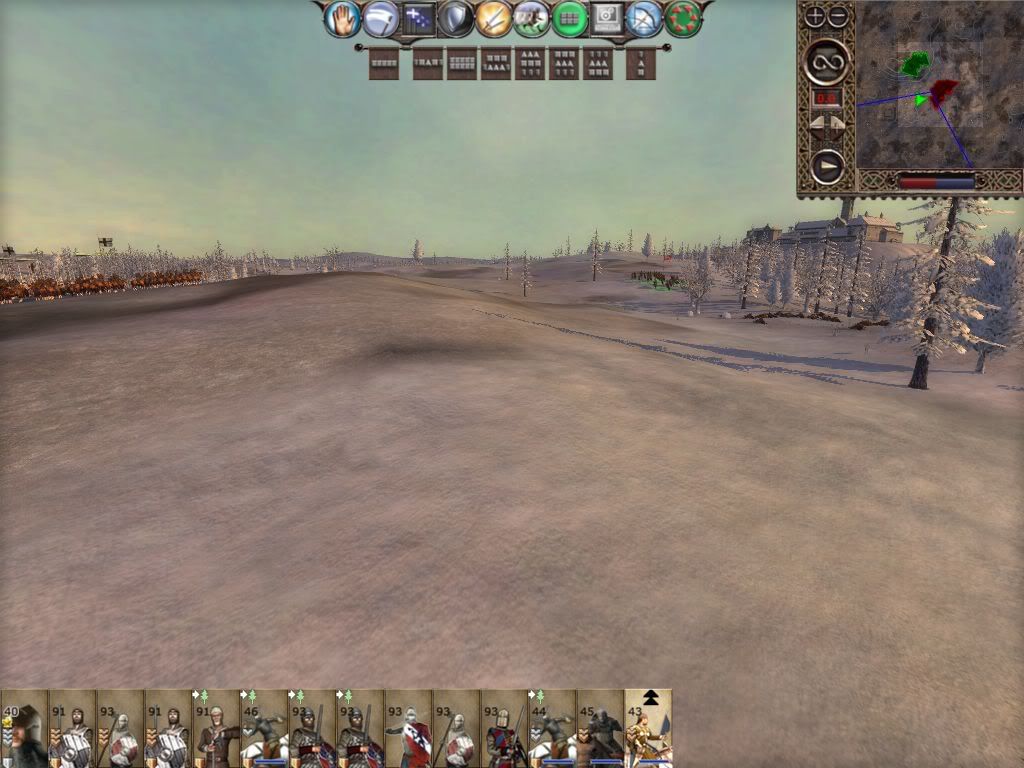
The Kazak's approach from the Teuton's rear but launch their arrows at a company of Ritterbruders protecting that flank rather than deal with the Pechenegs. This turns out to be a mistake and despite killing half the Ritterbruder company the Kazaks are forced to flee the Pecheneg arrows. The surviving Kazak's run right by King Ragnvald and flee the battle.
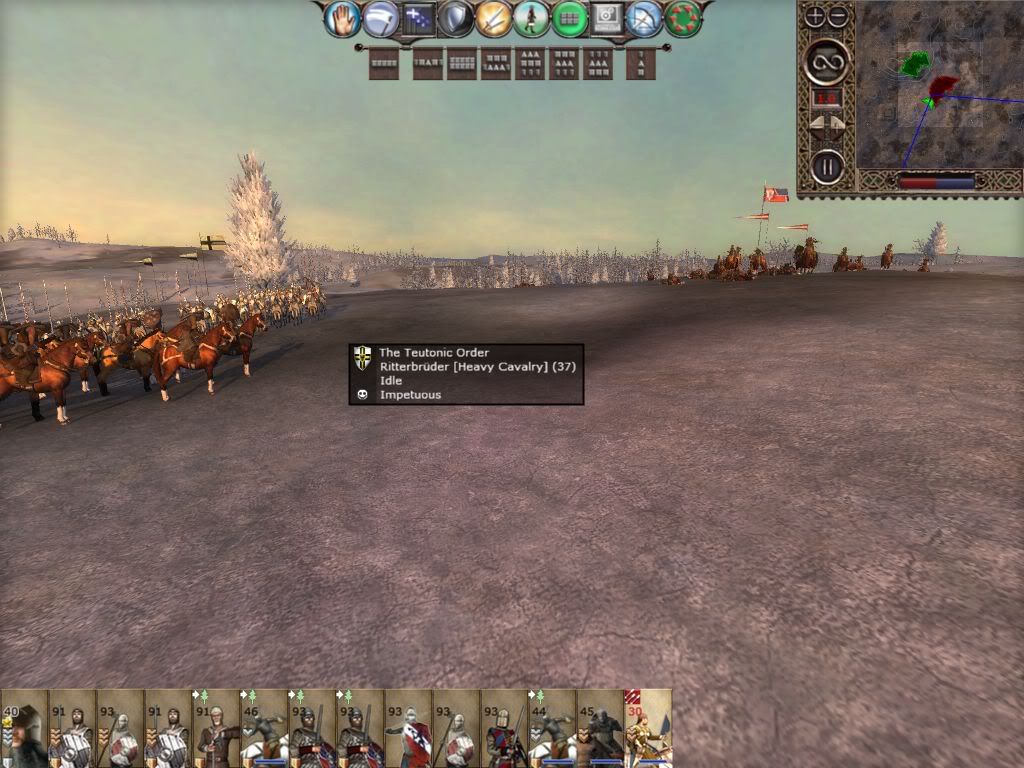
King Ragnvald confers with his captains and decides to send the Prussian auxillary cavalry forward to see if their better discipline holds up to draw the Teutons into an attack. The Teuton commander sends all of his missile cavalry forward in response. The resulting exchange leads to small losses for both sides and King Ragnvald decides he will charge with his own bodyguard to either draw the Teutons out or strike hard where they expect a feint.
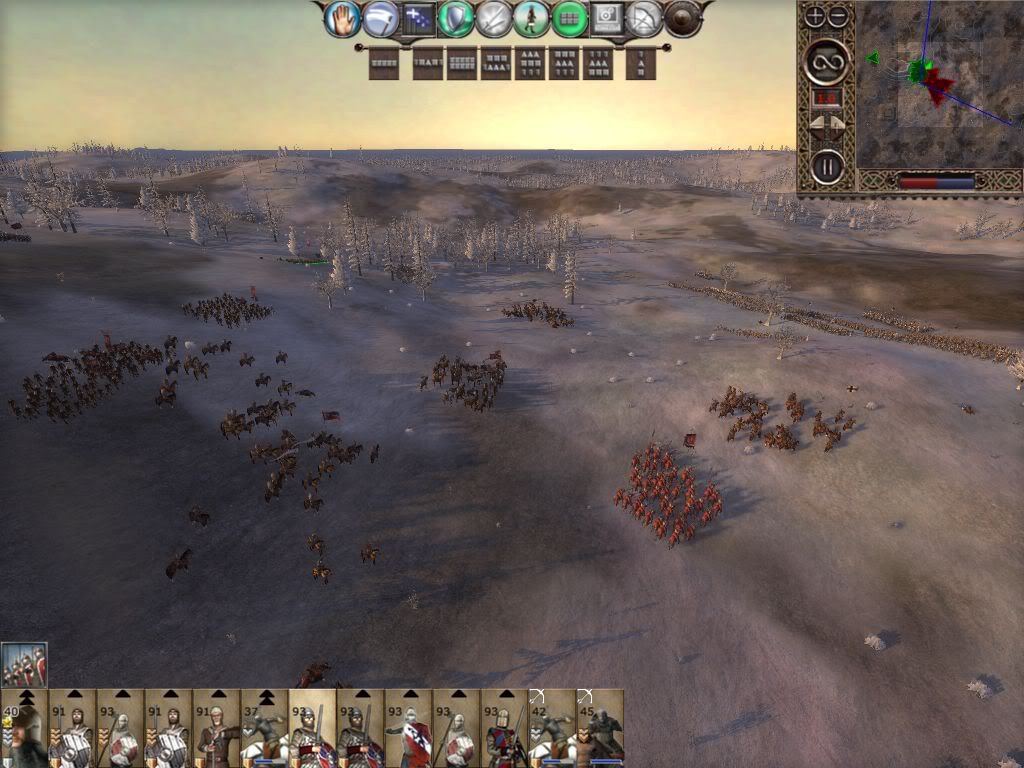
Earlier Ragnvald had ordered one of his captains to sneak a company of Landsmenn through the woods a bit closer to the Teuton lines. A company of Teuton Mounted crossbows stumble onto this company in an accidental ambush.
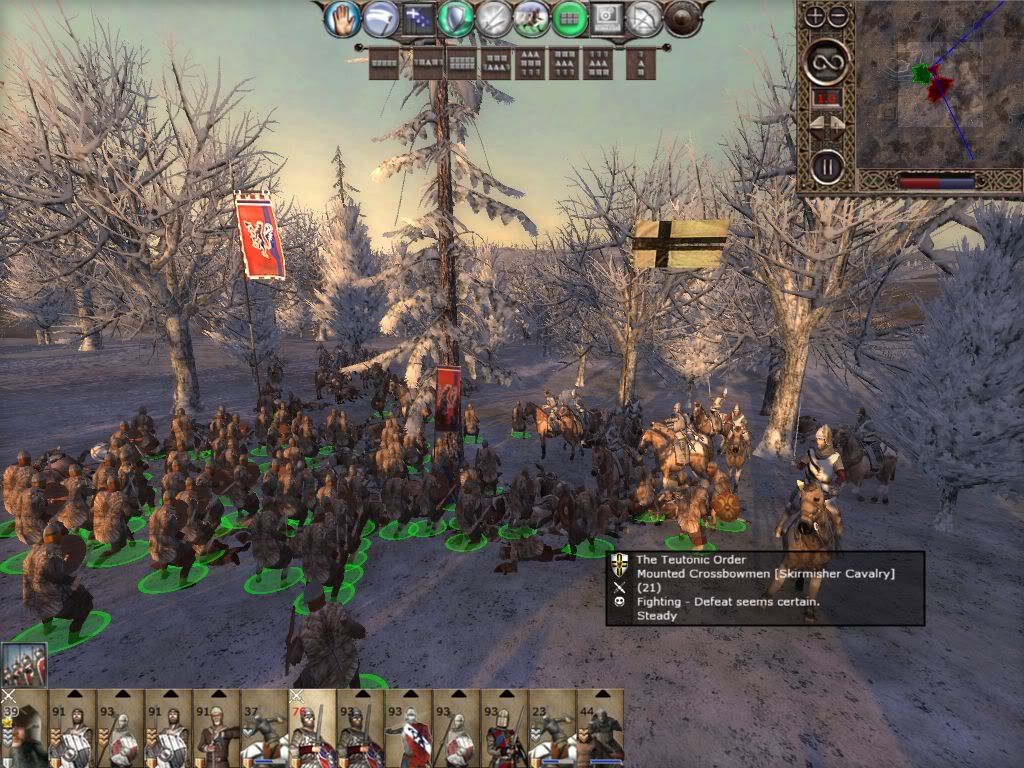
The Teuton Pecheneg cavalry is too fast for King Ragnvald to catch but the swift flight opens the Teuton's infantry to a solid charge which King Ragnvald carries home.
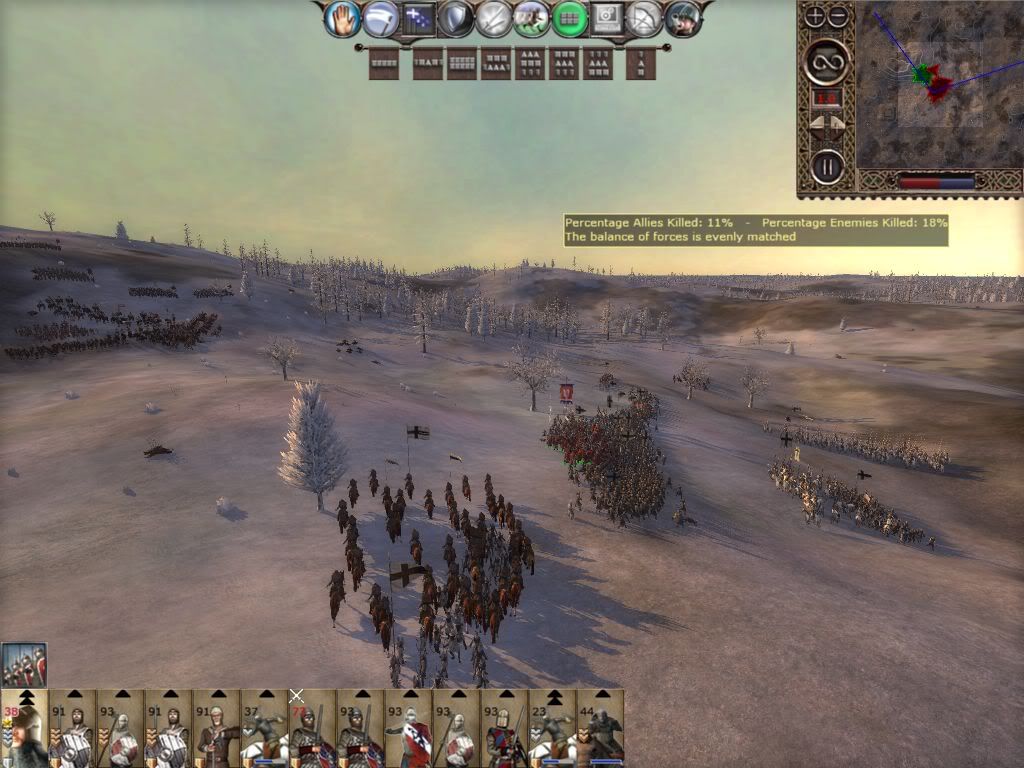
This charge is a signal for a general advance to the Norwegian infantry who march down the slope toward the waiting Teuton line. King Ragnvald orders bodyguard to disengage before being swamped by Teutons but a company of Teuton Pecheneg cavalry cuts off Ragnvald from the rest of his army- The Pechenegs might have over-estimated their chances or simply thought Ragnvald would foolishly try and engage the entire Teuton line and are surprised when Ragnvald's entire bodyguard smashes into them. The superior armor and training of the Norwegians in melee leads to the majority of the Pecheneg dying quite suddenly but they do slow Ragnvald down enough some of the men in his bodyguard are knocked out of their saddles from behind by the approaching Teuton infantry.
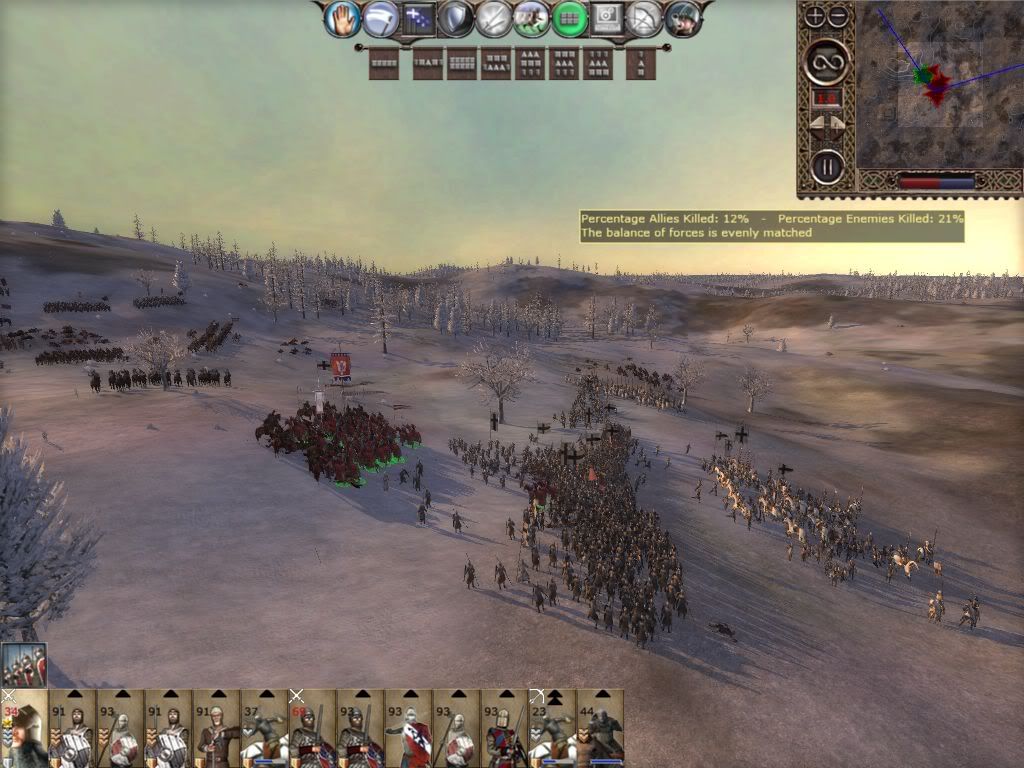
The Teuton commander notices that his Mounted crossbowmen have gotten into trouble and sends a company of Halbbruders to assist. The Druhzina horse archer mercenary company had been waiting for worthy target and races down the slope to fire off as many volleys of arrows as possible before the Halbbruders reach the shelter of the trees.
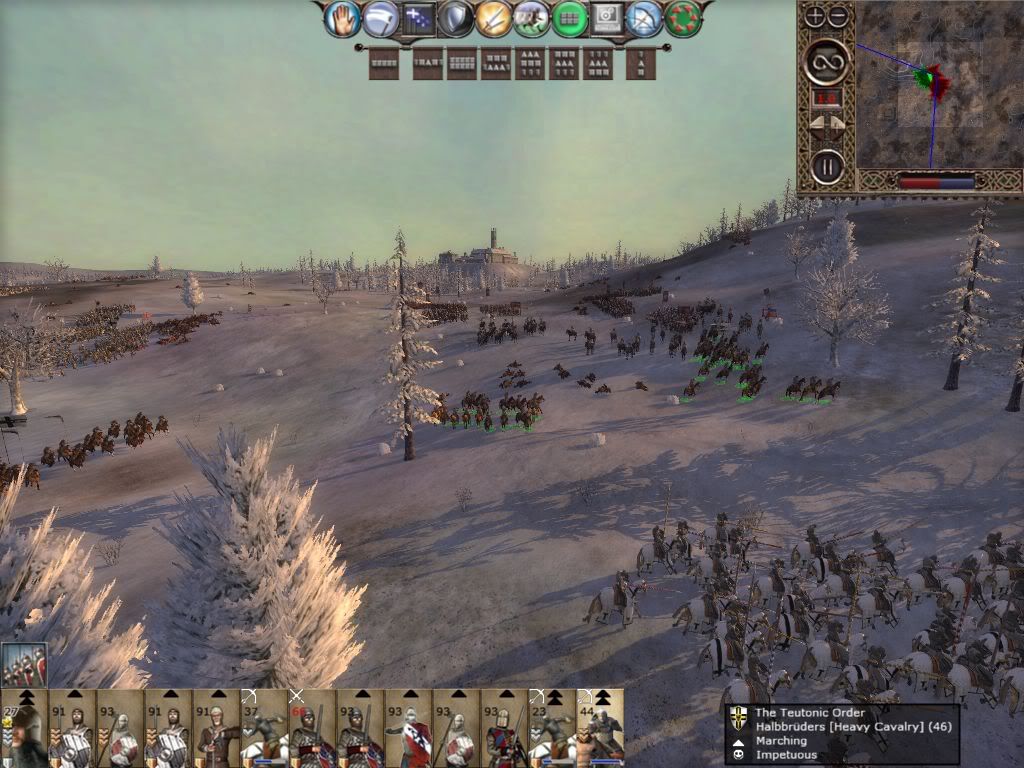
The Halbbruders catch the Landsmenn just as they dispatch the last of the Mounted crossbowmen and the initial charges kills a dozen men but then the snow and the trees even the odds in the fight.
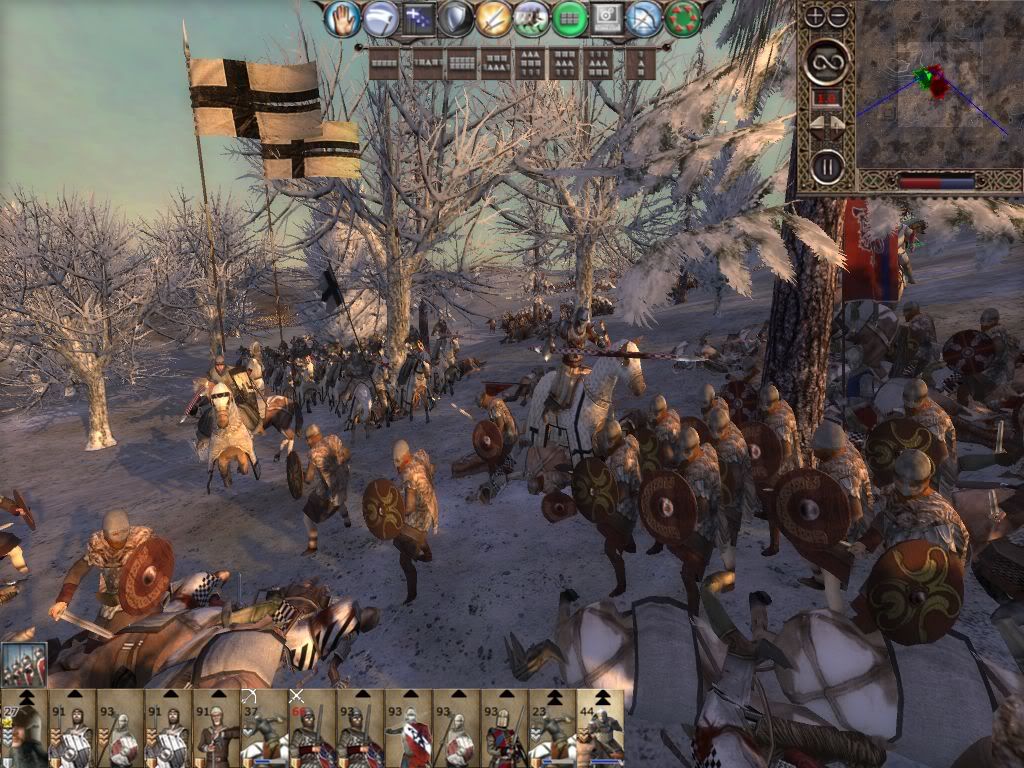
The Halbbruders disengage before more Norwegians can arrive and surround them.
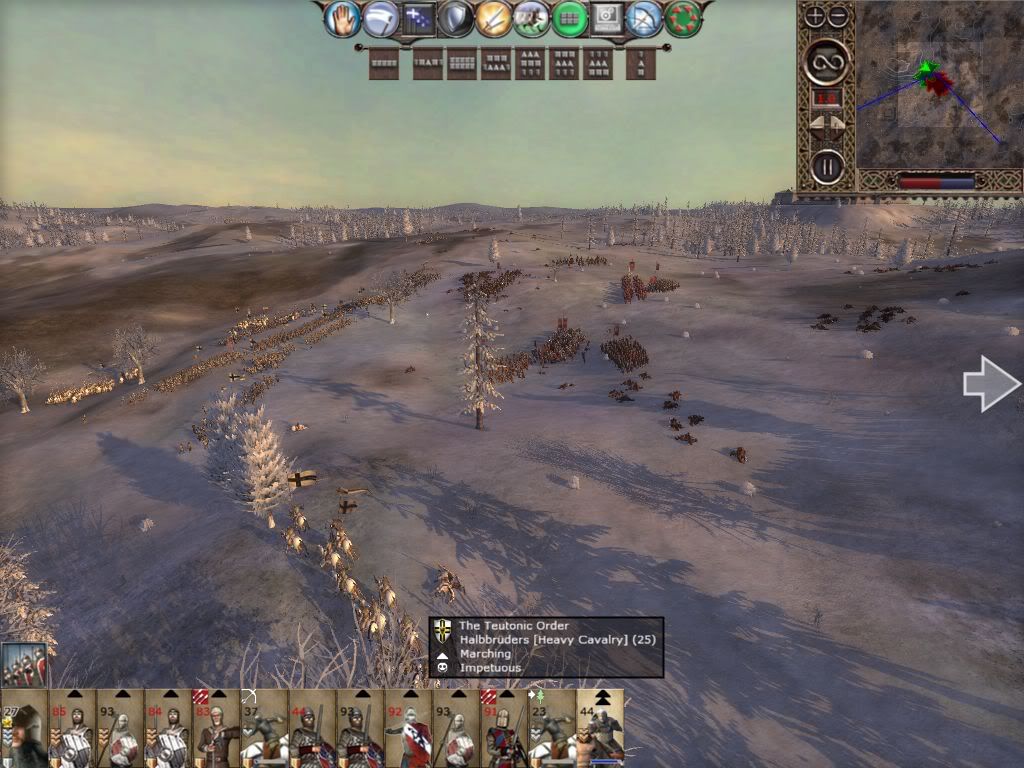
The Norwegian infantry had to weather several flights of unanswered arrows before reaching the Teuton lines but now battle is joined!
The retreating Halbbruders are pursued by a company of Prussian auxillaries which has used all its javelins and when a company of Teuton levy archers get in their way they are run down.
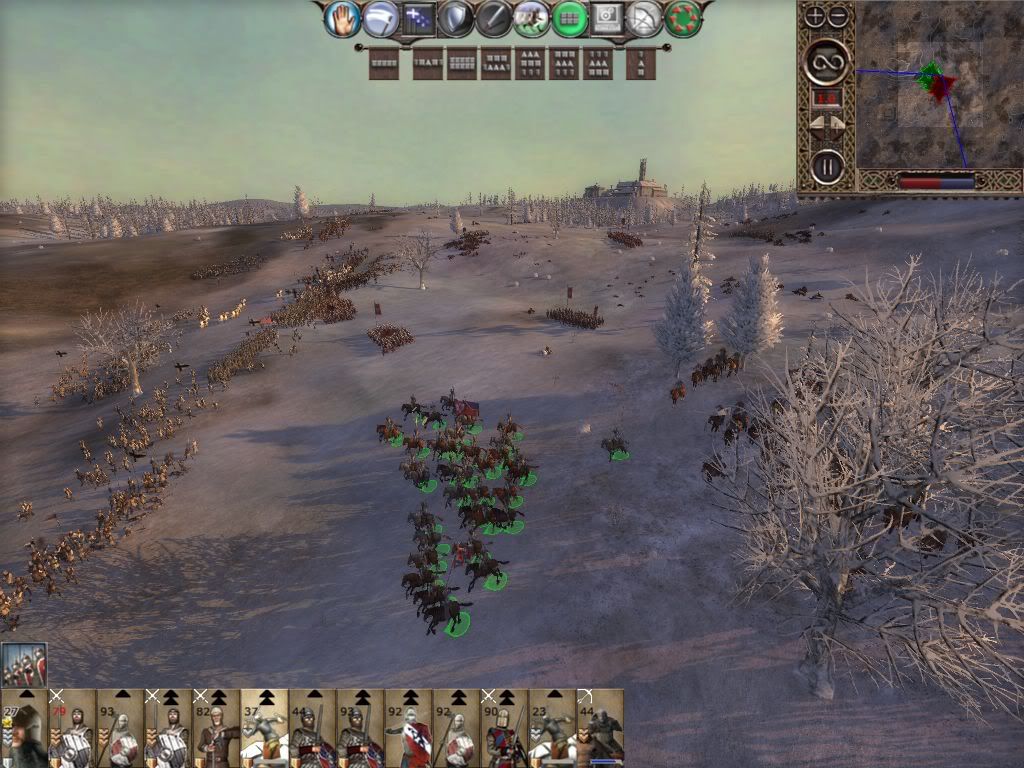
King Ragnvald waits behind his lines and orders his best company of Huskarl axemen to wait as a reserve. Soon the Teuton commander charges into the melee and Ragnvald takes the opportunity to try and kill him.
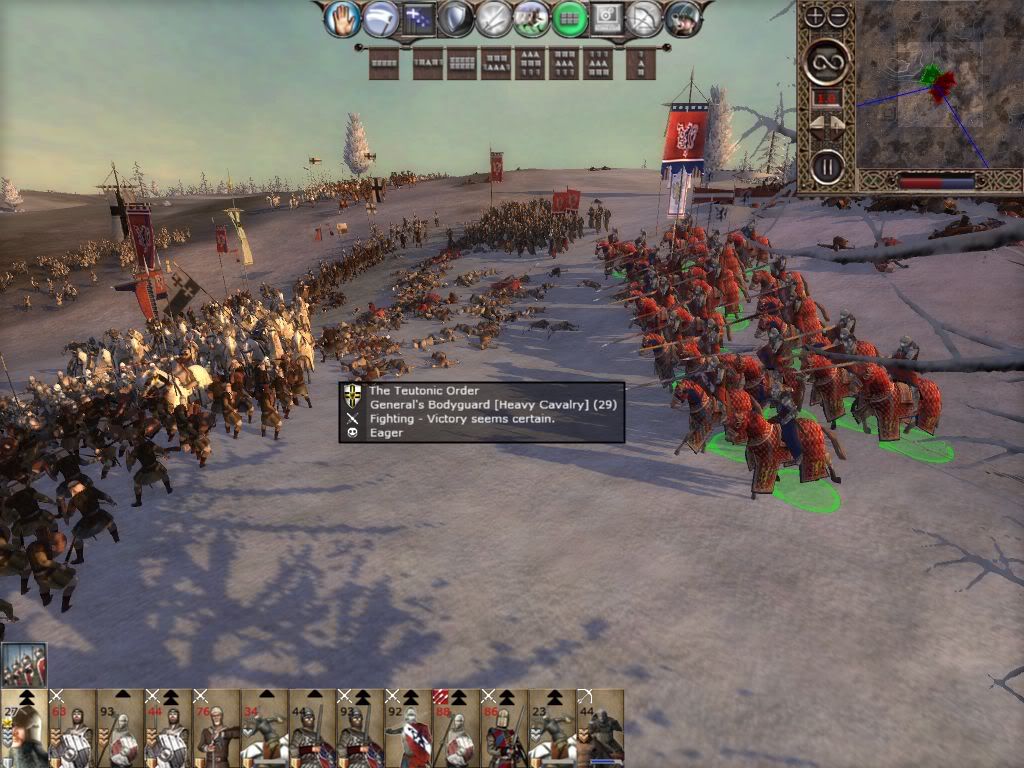
The Teuton commander manages to escape and King Ragnvald does not pursue as the battle is still undecided and the Teutons have a mass of archers behind their lines- 1 lucky arrow could end the battle if it found its way into Ragnvald's body. The Teutons had purchased the services of 2 companies of mercenary German knights and the infantry melee is exceptionally bloody.
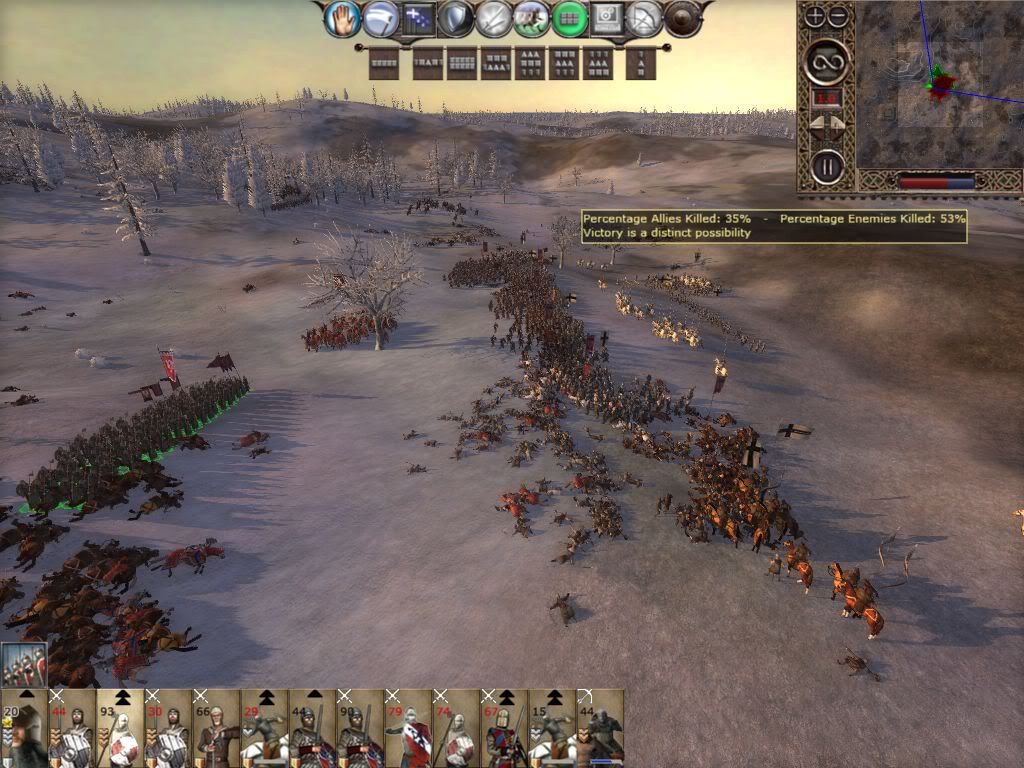
When Ragnvald observes the Teuton commander charge the left flank of the Norwegian infantry he rounds the Teutons own left flank and eliminates a company of archers attempting to let loose point blank volleys. The Teuton general does some damage with his charge but is beaten back and races towards left of his line where the Norwegian are pushing around now that King Ragnvald has cleared the archers away.
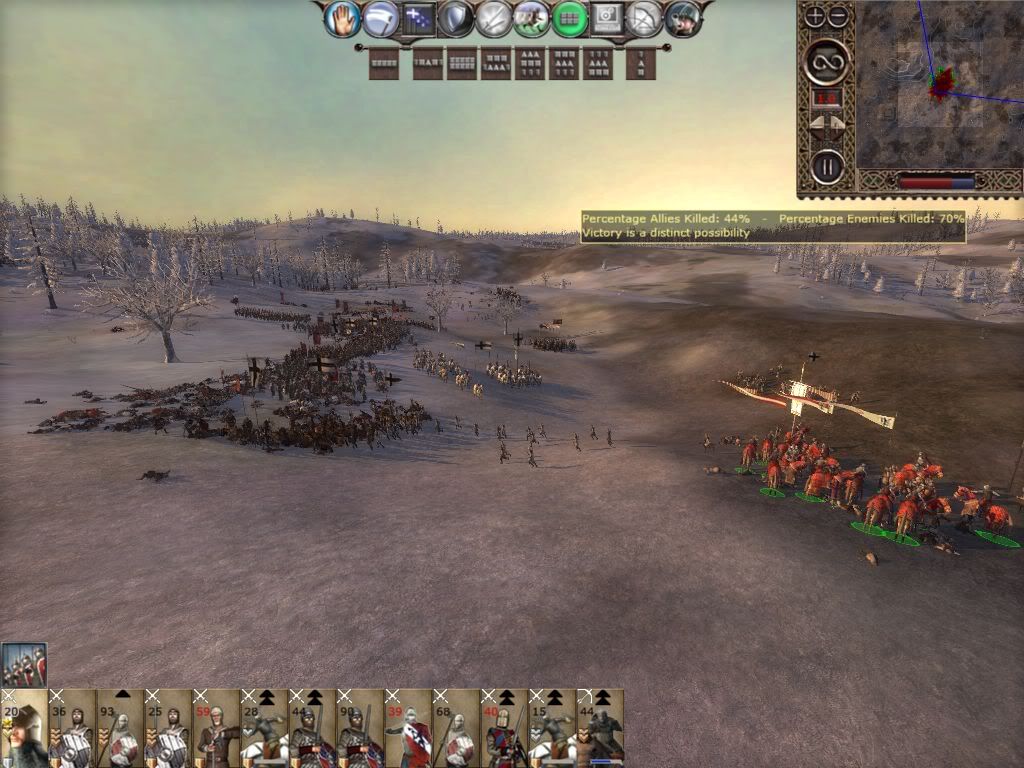
The reserve Huskarl's hurl themselves around the Teuton right flank soon after the Teuton general raced back towards King Ragnvald and the collapsing left flank of the Teuton army. The Prussian auxillary cavalry chases the Teuton archer companies all over the field further helping the Norwegian infantry focus on the foes right in front of them.
Just before the Teuton commander and the surviving Halbbruders charge into King Ragnvald's weakened bodyguard a company of Huskarl axemen who had beaten the last of the Teuton infantry facing them manage to block that charge and swiftly cut down the Halbbruders. The Teuton commander seeing his archers mostly dispersed by the Prussian auxillaries and 2 companies of Huskarls behind his infantry line which is collapsing decides to flee. King Ragnvald lets our a roar at such cowardly behavior and pursues.
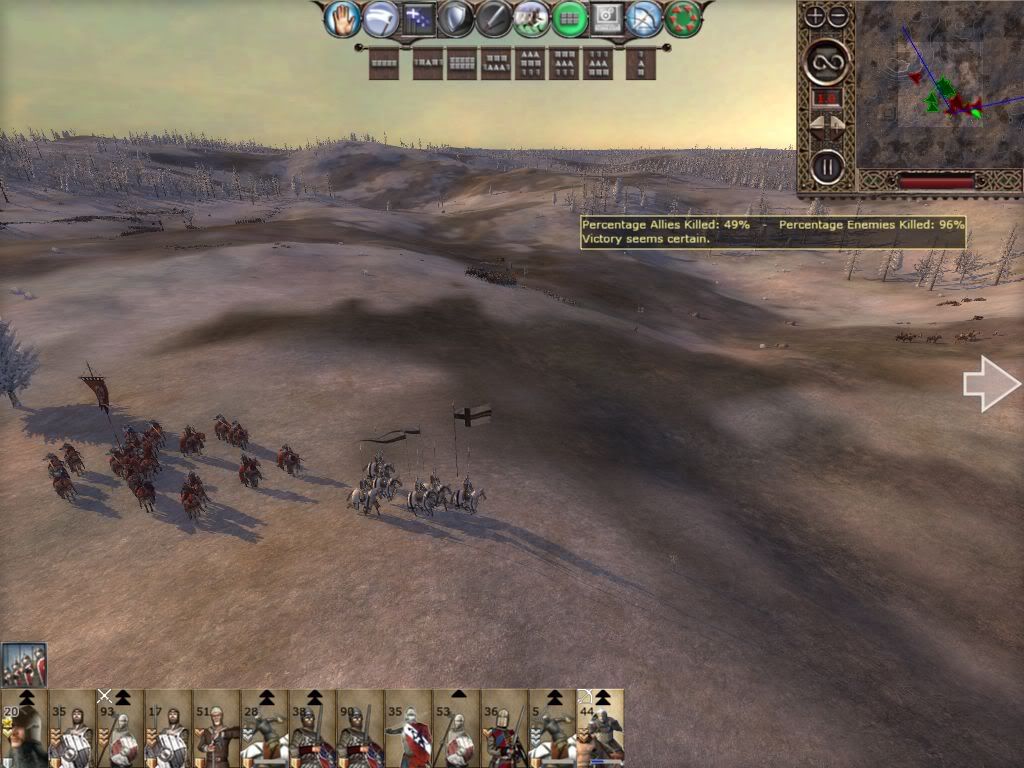
With their commander fleeing the field the remaining Teutons break and try to make a run for it. The battle is hard fought but King Ragnvald is victorious. The Teuton general does manage to escape however which is a sore disappointment to Ragnvald.
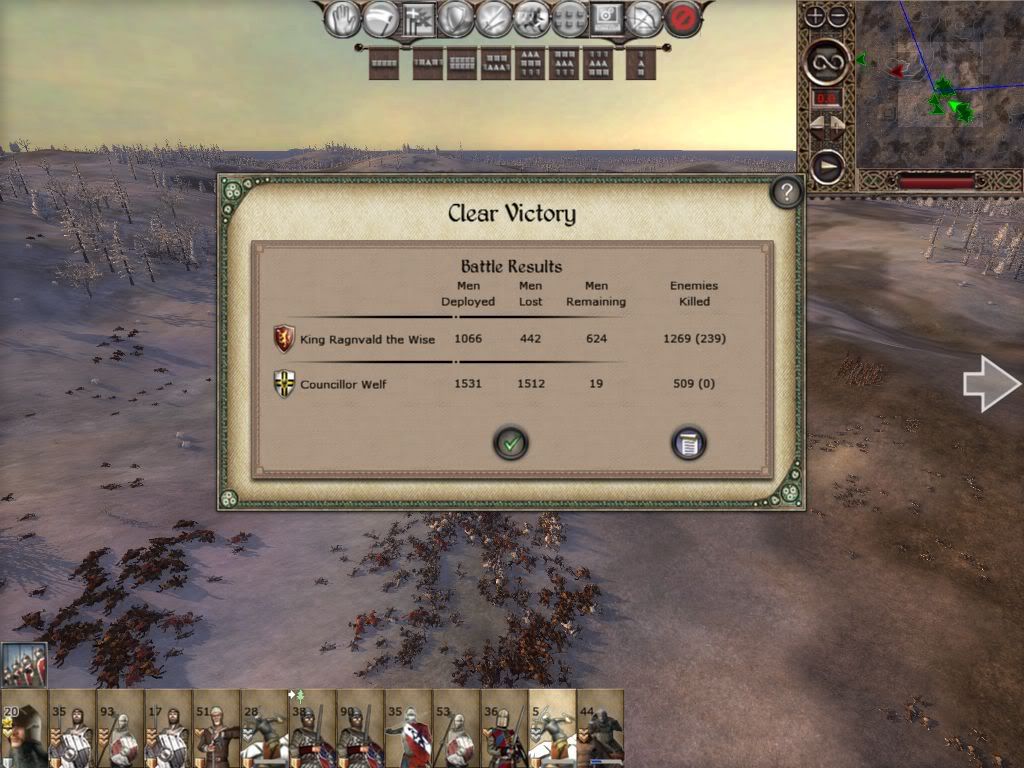
Ragnvald and a company of Foot knights in the midst of the melee gain the most loot and kill the largest share of Teutons.
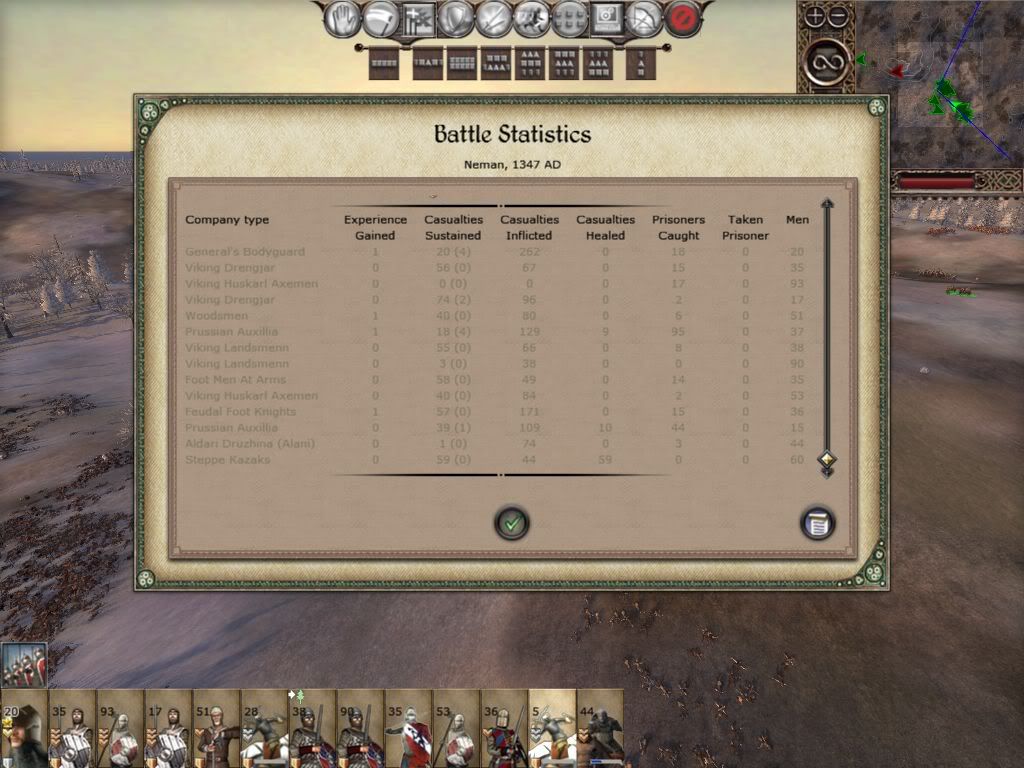
Soon after the battle is over news arrives that the Pope has ordered a blockade of a French port. To comply Norway must turn against its oldest allies...
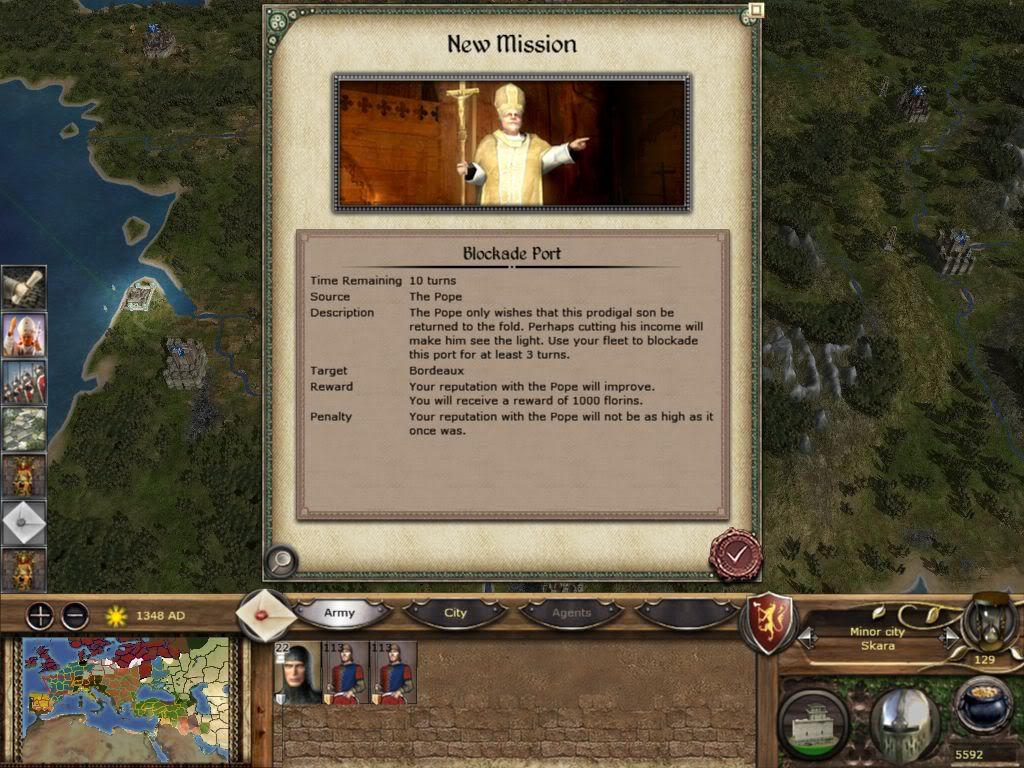
Not to mention the largest military in Europe. France, followed by Hungary which is soundly winning the war against the Turks have the largest armies in Europe. Both are Norwegian allies. The last Pope had built the Papal states into a northern Italian empire and the current Pope is expanding that empire ably. The Papal States ranks just behind Hungary in military might. The Turks are losing battles to Hungary but still remain a potent power while Norway despite controlling most of the north has been experiencing economic turmoil from the influx of war booty leading to inflation and the plague decimating the population in Britain.
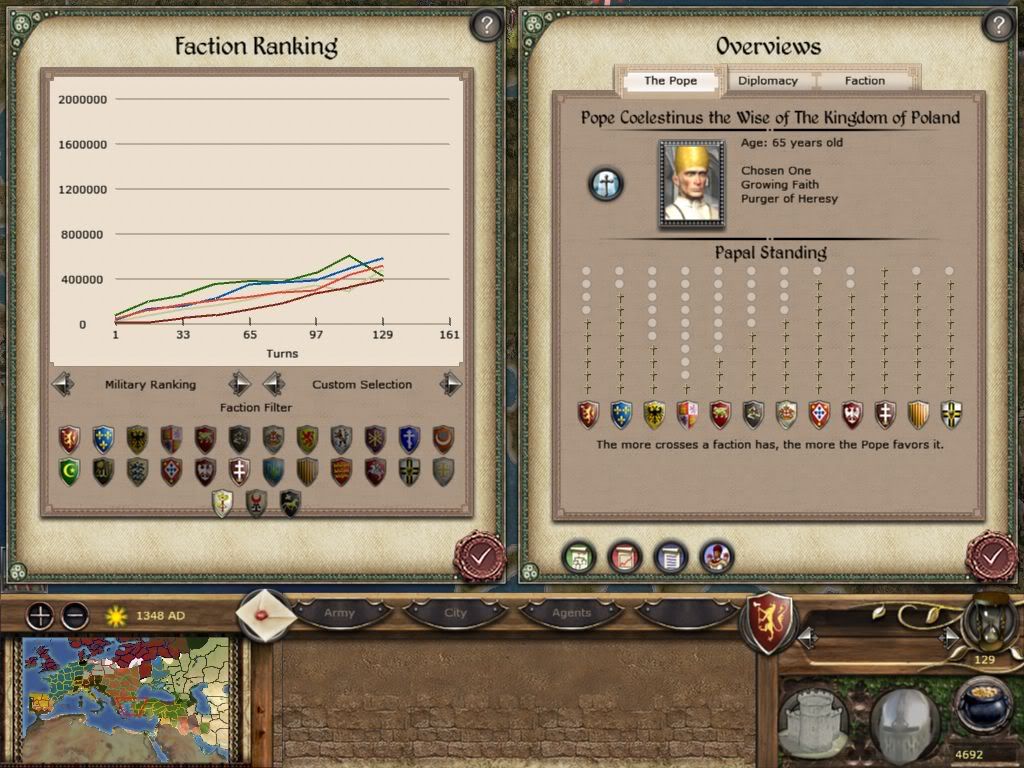
Game Info
The War Council takes the opportunity of King Ragnvald momentarily being nearer civilization after the prior years of campaigning and recommends that it is past time for the King to take a wife. Poland has been acting suspiciously and it has been a goal of Norway for some time to gain control of all Baltic ports of which Poland still holds 2.
The recent orders from the Pope complicate the political situation further as Norway is being pressured to abandon its ally France. The next Pope is likely to be Hungarian and Hungary is in the position to do the most damage should Poland convince them to help in a war against Norway.
King Ragnvald does not need much convincing and a suitable bride from is located. Ragnvald already speaks Hungarian which he learned from his mother who was also Hungarian. The marriage will strengthen the alliance between Norway and Hungary but does not offer much else. A small dowry is paid and Ragnvald takes the winter to get to know his wife and attempt to produce a secure heir to his line.
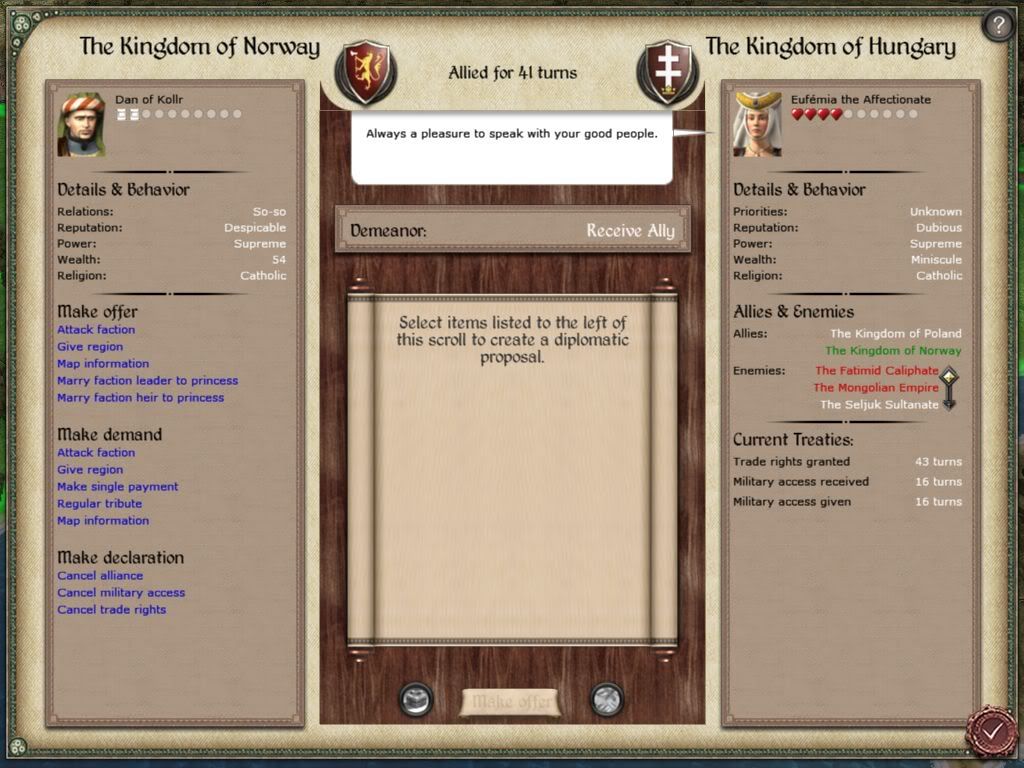
Meanwhile Ragnvald orders the garrisons of Konigsburg and Vilnius to be reduced. With new guarantees of solidarity with Hungary the time for war with Poland is nigh. The problem is the Pope. The current troubles France is experiencing is a good example for Norway to avoid. Poland should be the aggressor in any war and lightly garrisoned fortresses might be enough to tempt the Poles into launching an attack. The Norwegian fleets are launched and have stores and thousands of men aboard. English Longbowmen, Norwegian Huskarls, and Prussian auxillaries have been held in reserve for this day. King Ragnvald boards ship from Prussia and waits for the Polish to make the first move...
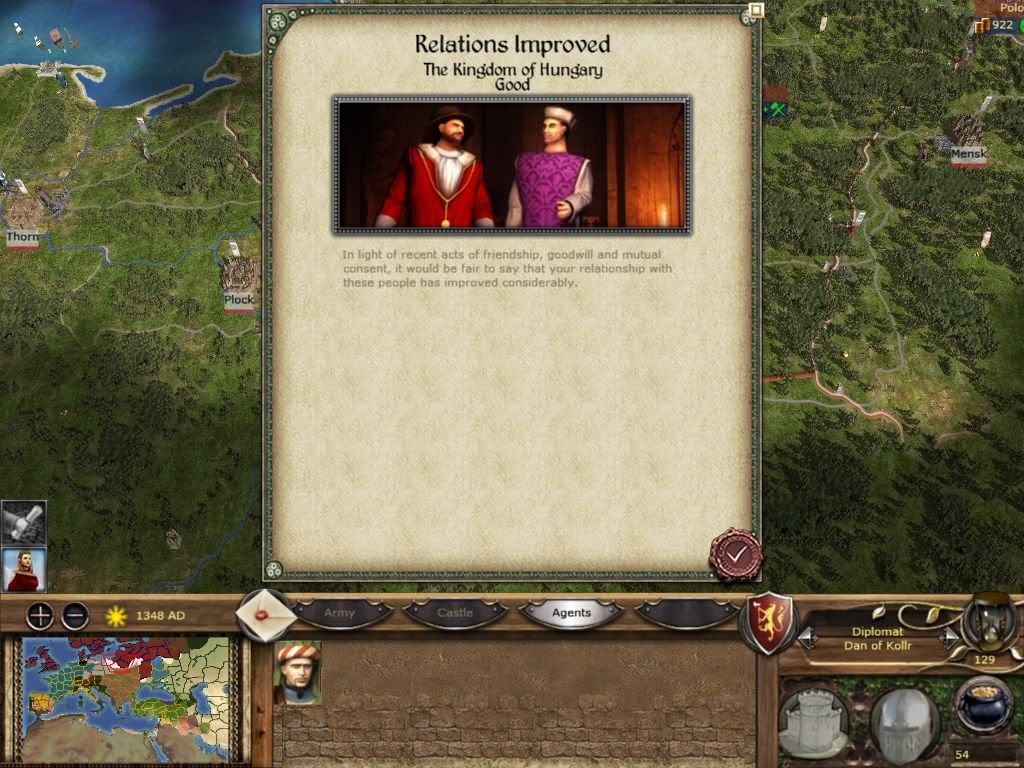
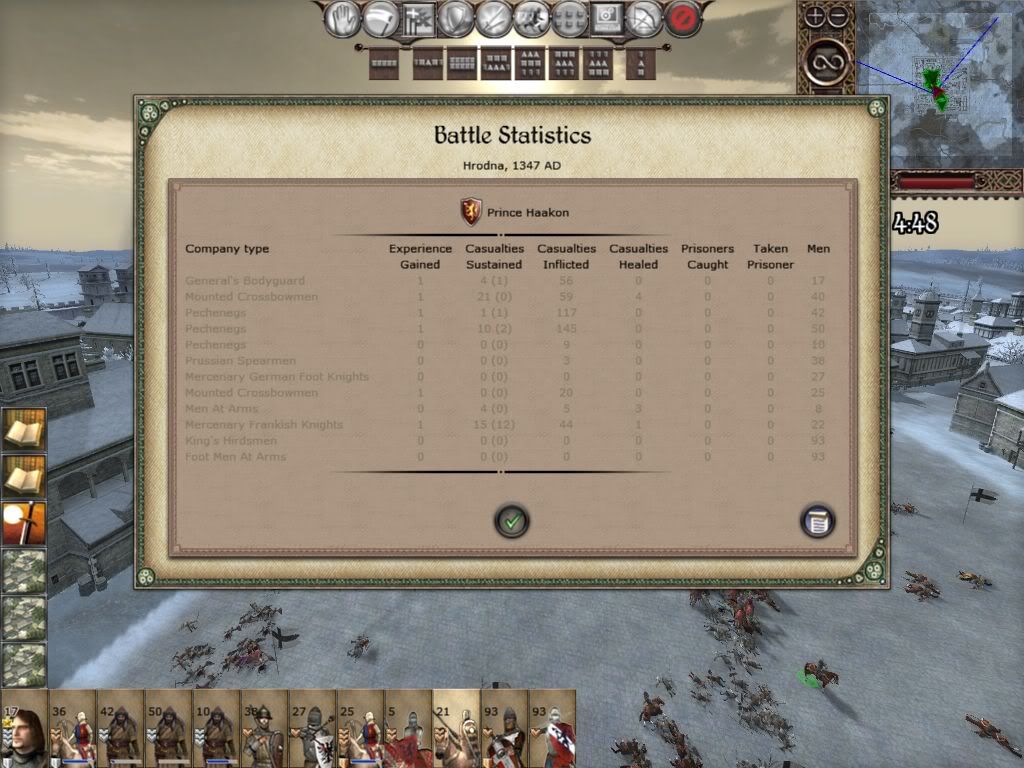





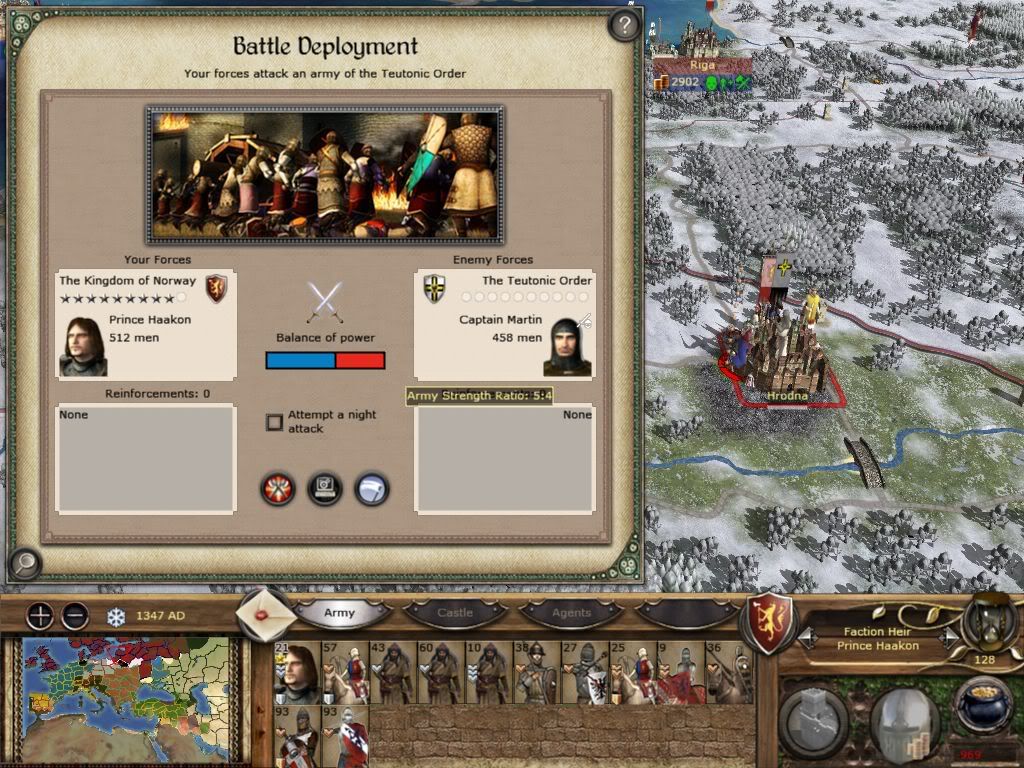
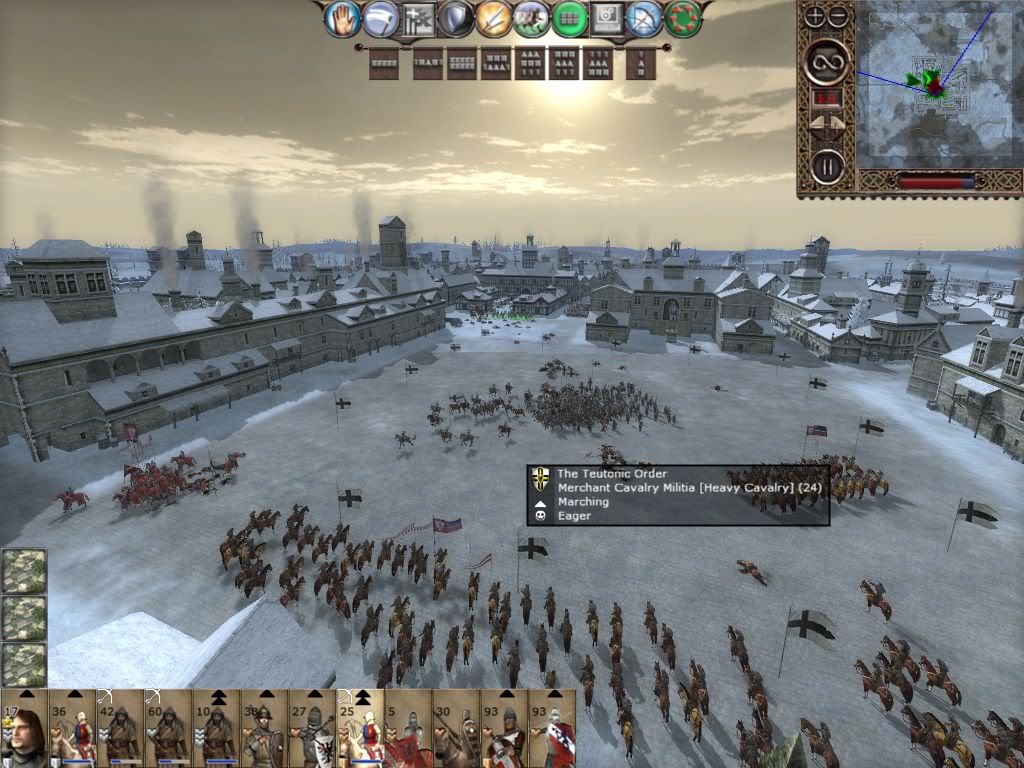
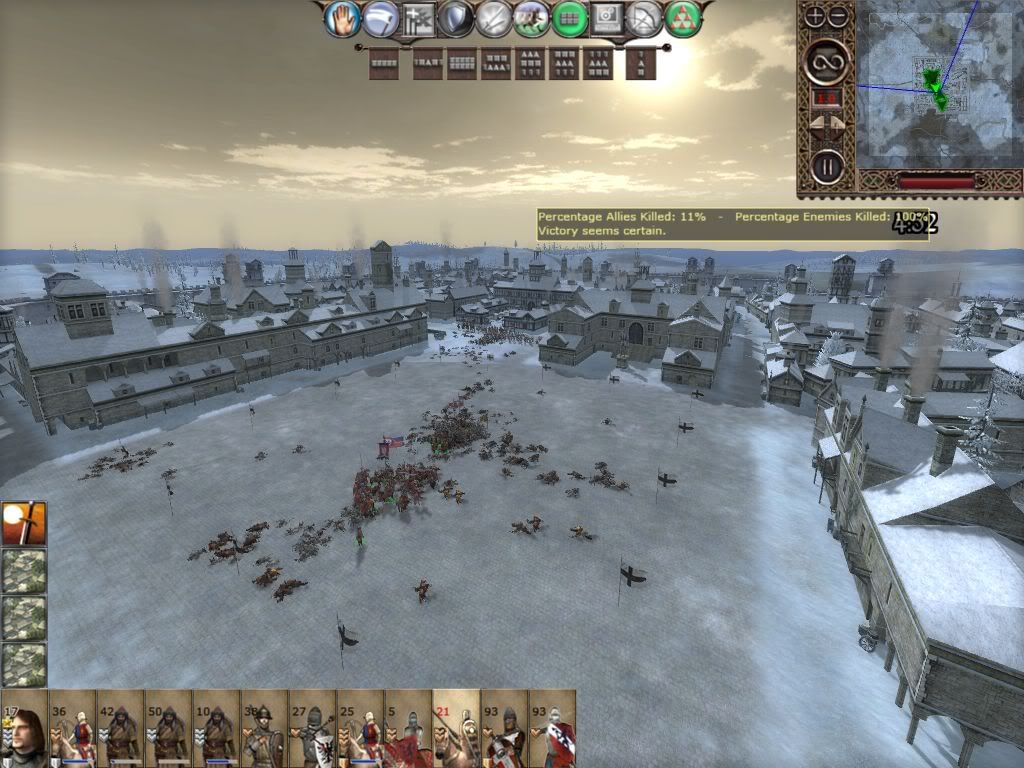
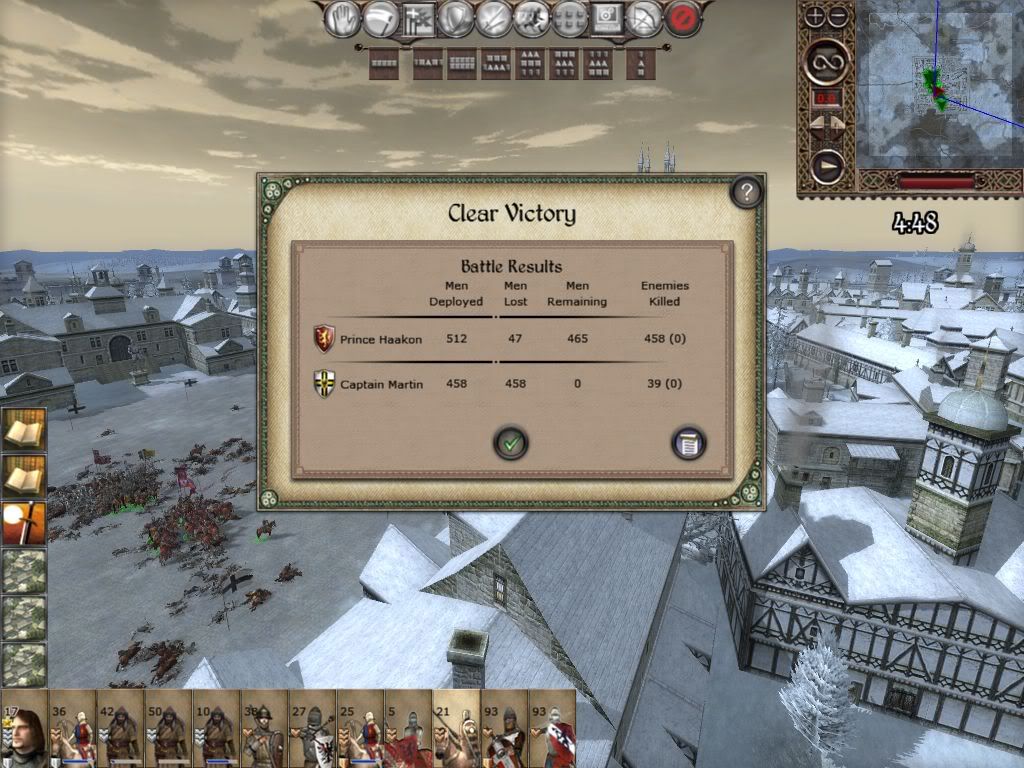

 Reply With Quote
Reply With Quote




















